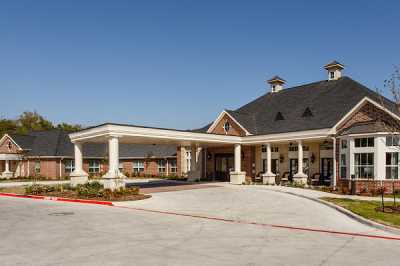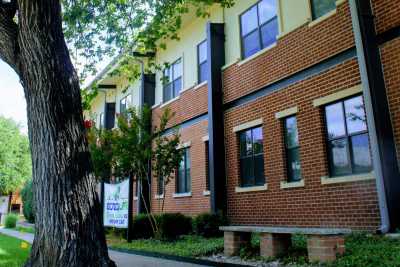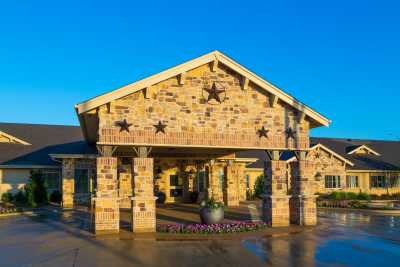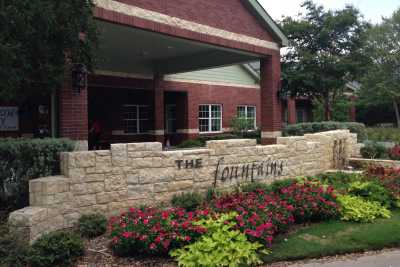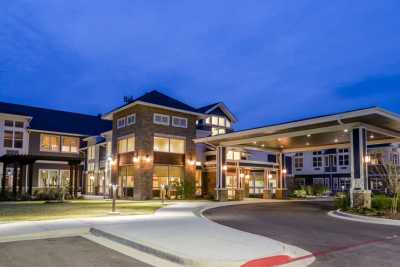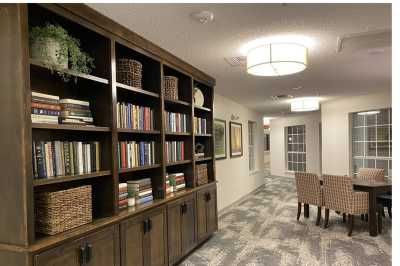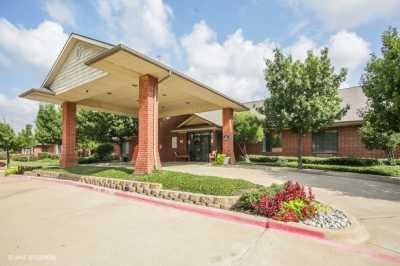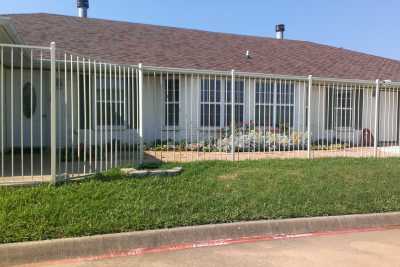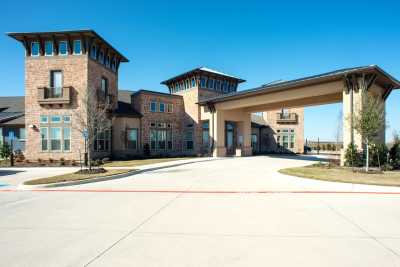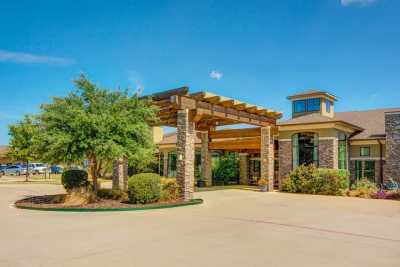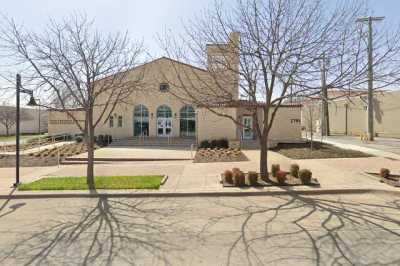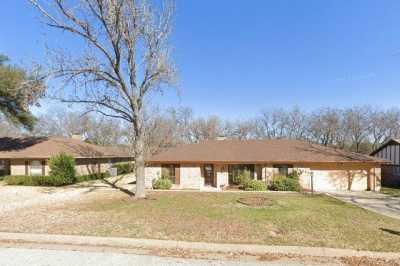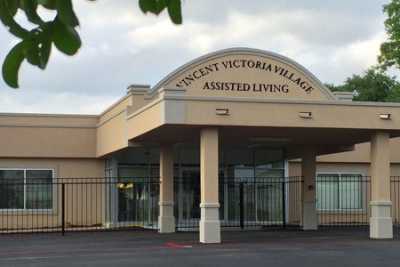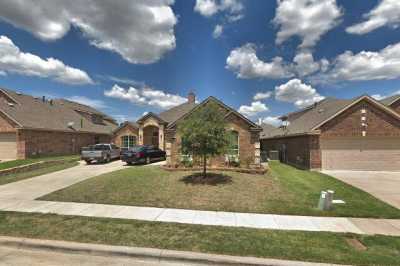https://hydra.prod.aplaceformom.com/graphql
2devne7t7k73
J7PEVho1wGm72cc3oBCuh78lk22e3qNf
30
/image/web-lighthouse/prod/Best-Of-2026-small-badge.png?t=default
desktop
assisted-living
Fort Worth
fort-worth
Texas
texas
TX
Cities
140.65791
DestinationHeader
Destination Page
SEO
true
true
false
false
23
8
15
1
0
27
8
0
true
72775
76180
true
21
11
1
true
1386422
76116
true
27
2
0
true
1356140
76107
true
266588
11591
3
normal
[{"id":"72775","slug":"brookdale-richland-hills-memory-care-72775","name":"Brookdale Richland Hills Memory Care","awards":[],"recommendedScoreV2":18559,"isCustomer":true,"hasDescription":true,"imageCount":8,"videoCount":0,"floorPlanCount":1,"hasReview":true,"promotionsExpiring":false,"promotionsTotal":0,"promotionsType":[],"scheduleTourAvailable":false,"location":{"lat":32.82282257,"lng":-97.21674347},"isHomeCareOnly":false},{"id":"1386422","slug":"the-ridglea-senior-living-1386422","name":"The Ridglea Senior Living","awards":[],"recommendedScoreV2":17712,"isCustomer":true,"hasDescription":true,"imageCount":11,"videoCount":1,"floorPlanCount":6,"hasReview":true,"promotionsExpiring":true,"promotionsTotal":1,"promotionsType":["ROOM_DISCOUNT"],"scheduleTourAvailable":false,"location":{"lat":32.71888351,"lng":-97.41405487},"isHomeCareOnly":false},{"id":"1356140","slug":"the-stayton-at-museum-way-1356140","name":"The Stayton at Museum Way","awards":[],"recommendedScoreV2":15254,"isCustomer":true,"hasDescription":true,"imageCount":2,"videoCount":0,"floorPlanCount":0,"hasReview":true,"promotionsExpiring":false,"promotionsTotal":0,"promotionsType":[],"scheduleTourAvailable":false,"location":{"lat":32.74774933,"lng":-97.35324097},"isHomeCareOnly":false},{"id":"51004","slug":"james-l-west-alzheimers-center-51004","name":"James L West Alzheimer's Center","awards":[],"recommendedScoreV2":10003,"isCustomer":false,"hasDescription":true,"imageCount":1,"videoCount":0,"floorPlanCount":0,"hasReview":true,"promotionsExpiring":false,"promotionsTotal":0,"promotionsType":[],"scheduleTourAvailable":false,"location":{"lat":32.74757767,"lng":-97.34117889},"isHomeCareOnly":false},{"id":"1368147","slug":"the-westmore-senior-living-1368147","name":"The Westmore Senior Living","awards":[],"recommendedScoreV2":16014,"isCustomer":false,"hasDescription":true,"imageCount":12,"videoCount":1,"floorPlanCount":17,"hasReview":true,"promotionsExpiring":false,"promotionsTotal":0,"promotionsType":[],"scheduleTourAvailable":false,"location":{"lat":32.77932,"lng":-97.39188},"isHomeCareOnly":false},{"id":"1421856","slug":"good-life-senior-living-ft-worth-1421856","name":"GoodLife Senior Living Ft. Worth","awards":[],"recommendedScoreV2":10014,"isCustomer":false,"hasDescription":true,"imageCount":13,"videoCount":1,"floorPlanCount":0,"hasReview":true,"promotionsExpiring":false,"promotionsTotal":0,"promotionsType":[],"scheduleTourAvailable":false,"location":{"lat":32.7288208,"lng":-97.31941223},"isHomeCareOnly":false},{"id":"1401336","slug":"lakewood-village-1401336","name":"Lakewood Village","awards":[],"recommendedScoreV2":10009,"isCustomer":false,"hasDescription":true,"imageCount":8,"videoCount":0,"floorPlanCount":0,"hasReview":true,"promotionsExpiring":false,"promotionsTotal":0,"promotionsType":[],"scheduleTourAvailable":false,"location":{"lat":32.76806641,"lng":-97.24407196},"isHomeCareOnly":false},{"id":"1374277","slug":"pegasus-landing-of-north-riverside-1374277","name":"Pegasus Landing of North Riverside","awards":[],"recommendedScoreV2":16908,"isCustomer":true,"hasDescription":true,"imageCount":7,"videoCount":1,"floorPlanCount":2,"hasReview":true,"promotionsExpiring":false,"promotionsTotal":0,"promotionsType":[],"scheduleTourAvailable":false,"location":{"lat":32.8618954262458,"lng":-97.30536621836404},"isHomeCareOnly":false},{"id":"1359580","slug":"truewood-by-merrill-river-park-permanently-closed-1359580","name":"Truewood by Merrill, River Park - Permanently Closed","awards":[],"recommendedScoreV2":17012,"isCustomer":false,"hasDescription":true,"imageCount":10,"videoCount":1,"floorPlanCount":0,"hasReview":true,"promotionsExpiring":false,"promotionsTotal":0,"promotionsType":[],"scheduleTourAvailable":false,"location":{"lat":32.70376968,"lng":-97.41894531},"isHomeCareOnly":false},{"id":"1357030","slug":"lake-country-assisted-living-llc-1357030","name":"Lake Country Assisted Living, LLC","awards":[],"recommendedScoreV2":10011,"isCustomer":false,"hasDescription":true,"imageCount":10,"videoCount":0,"floorPlanCount":0,"hasReview":true,"promotionsExpiring":false,"promotionsTotal":0,"promotionsType":[],"scheduleTourAvailable":false,"location":{"lat":32.87902069,"lng":-97.44277191},"isHomeCareOnly":false},{"id":"1413635","slug":"ignite-medical-resort-fort-worth-1413635","name":"Ignite Medical Resort Fort Worth","awards":[],"recommendedScoreV2":16011,"isCustomer":true,"hasDescription":false,"imageCount":10,"videoCount":0,"floorPlanCount":0,"hasReview":true,"promotionsExpiring":false,"promotionsTotal":0,"promotionsType":[],"scheduleTourAvailable":false,"location":{"lat":32.66178513,"lng":-97.40550995},"isHomeCareOnly":false},{"id":"51085","slug":"holiday-lane-estates-51085","name":"Holiday Lane Estates","awards":[],"recommendedScoreV2":17011,"isCustomer":false,"hasDescription":true,"imageCount":9,"videoCount":1,"floorPlanCount":2,"hasReview":true,"promotionsExpiring":false,"promotionsTotal":0,"promotionsType":[],"scheduleTourAvailable":false,"location":{"lat":32.85943222,"lng":-97.22135162},"isHomeCareOnly":false},{"id":"51081","slug":"morada-north-richland-hills-51081","name":"Morada North Richland Hills","awards":[],"recommendedScoreV2":10007,"isCustomer":true,"hasDescription":true,"imageCount":6,"videoCount":0,"floorPlanCount":0,"hasReview":true,"promotionsExpiring":false,"promotionsTotal":0,"promotionsType":[],"scheduleTourAvailable":false,"location":{"lat":32.85260773,"lng":-97.21511841},"isHomeCareOnly":false},{"id":"1359320","slug":"casablanca-retirement-inc-1359320","name":"Casablanca Retirement Inc","awards":[],"recommendedScoreV2":10007,"isCustomer":false,"hasDescription":true,"imageCount":6,"videoCount":0,"floorPlanCount":0,"hasReview":true,"promotionsExpiring":false,"promotionsTotal":0,"promotionsType":[],"scheduleTourAvailable":false,"location":{"lat":32.65059662,"lng":-97.40631866},"isHomeCareOnly":false},{"id":"1394400","slug":"discovery-village-at-alliance-town-center-assisted-living-1394400","name":"Discovery Village at Alliance Town Center Assisted Living","awards":[],"recommendedScoreV2":12027,"isCustomer":true,"hasDescription":true,"imageCount":25,"videoCount":0,"floorPlanCount":0,"hasReview":true,"promotionsExpiring":false,"promotionsTotal":0,"promotionsType":[],"scheduleTourAvailable":false,"location":{"lat":32.91820145,"lng":-97.3085556},"isHomeCareOnly":false},{"id":"1368697","slug":"the-auberge-at-benbrook-lake-1368697","name":"The Auberge at Benbrook Lake","awards":[],"recommendedScoreV2":10018,"isCustomer":false,"hasDescription":true,"imageCount":16,"videoCount":1,"floorPlanCount":0,"hasReview":true,"promotionsExpiring":false,"promotionsTotal":0,"promotionsType":[],"scheduleTourAvailable":false,"location":{"lat":32.64861298,"lng":-97.42871857},"isHomeCareOnly":false},{"id":"1447612","slug":"assisted-services-inc-1447612","name":"Assisted Services Inc","awards":[],"recommendedScoreV2":10001,"isCustomer":false,"hasDescription":false,"imageCount":0,"videoCount":0,"floorPlanCount":0,"hasReview":true,"promotionsExpiring":false,"promotionsTotal":0,"promotionsType":[],"scheduleTourAvailable":false,"location":{"lat":32.70551300048828,"lng":-97.35588836669922},"isHomeCareOnly":false},{"id":"51051","slug":"the-parc-at-bakers-pointe-51051","name":"The Parc at Baker's Pointe","awards":[],"isCustomer":false,"hasDescription":false,"imageCount":0,"videoCount":0,"floorPlanCount":0,"hasReview":false,"promotionsExpiring":false,"promotionsTotal":0,"promotionsType":[],"scheduleTourAvailable":false,"location":{"lat":32.808040618896484,"lng":-97.2270736694336},"isHomeCareOnly":false},{"id":"101885","slug":"st-johns-residential-care-i-101885","name":"St. John's Residential Care I","awards":[],"recommendedScoreV2":10001,"isCustomer":false,"hasDescription":true,"imageCount":0,"videoCount":0,"floorPlanCount":0,"hasReview":true,"promotionsExpiring":false,"promotionsTotal":0,"promotionsType":[],"scheduleTourAvailable":false,"location":{"lat":32.65960312,"lng":-97.36764526},"isHomeCareOnly":false},{"id":"1490086","slug":"the-emberly-at-heritage-glen-1490086","name":"The Emberly at Heritage Glen","awards":[],"isCustomer":true,"hasDescription":false,"imageCount":0,"videoCount":0,"floorPlanCount":0,"hasReview":false,"promotionsExpiring":false,"promotionsTotal":0,"promotionsType":[],"scheduleTourAvailable":false,"location":{"lat":32.90856726883712,"lng":-97.29064555114162},"isHomeCareOnly":false},{"id":"51052","slug":"vincent-victoria-village-51052","name":"Vincent Victoria Village","awards":[],"recommendedScoreV2":10007,"isCustomer":false,"hasDescription":false,"imageCount":6,"videoCount":0,"floorPlanCount":0,"hasReview":false,"promotionsExpiring":false,"promotionsTotal":0,"promotionsType":[],"scheduleTourAvailable":false,"location":{"lat":32.66246033,"lng":-97.25849915},"isHomeCareOnly":false},{"id":"1376541","slug":"st-johns-residential-care-home-inc-1376541","name":"St John's Residential Care Home Inc","awards":[],"recommendedScoreV2":10001,"isCustomer":false,"hasDescription":true,"imageCount":0,"videoCount":0,"floorPlanCount":0,"hasReview":true,"promotionsExpiring":false,"promotionsTotal":0,"promotionsType":[],"scheduleTourAvailable":false,"location":{"lat":32.60466766,"lng":-97.3911438},"isHomeCareOnly":false},{"id":"101884","slug":"st-johns-residential-care-home-inc-101884","name":"St John's Residential Care Home Inc","awards":[],"recommendedScoreV2":10001,"isCustomer":false,"hasDescription":true,"imageCount":0,"videoCount":0,"floorPlanCount":0,"hasReview":true,"promotionsExpiring":false,"promotionsTotal":0,"promotionsType":[],"scheduleTourAvailable":false,"location":{"lat":32.60464859,"lng":-97.39138031},"isHomeCareOnly":false}]
25
10
76164
Tarrant County
-97.3473,32.7811
2026
DESTINATION_PAGE
DESTINATION_PAGE
universalSearch.12c886069e4dda880f26.js
ASSISTED_LIVING
{"city":[],"state":[],"national":[],"years":[]}
destinationBelowTheFold.12c886069e4dda880f26.js
false
false
“Our Senior Living Advisor, Rochelle, was very professional and so helpful in finding a memory care facility for my dad that would meet his needs.”
- Mike Cagwin
professional helpful
{"wpSlug":"destination-page-inline","form":{"analytics":{"formId":"top-lead-form-challenger","formType":"long","moduleId":"Destination Page Top Lead Form Challenger v1.0","sourceId":38,"subSourceId":6257,"channel2":"SEO","pageType":"Destination Page","formVersionId":1,"formVersionDate":"12/18/2024","lastBulkUpdateTime":1758223062,"ranDisclaimerUpdates":true},"canonicalUrl":"Destination Page | A Place For Mom","commonData":{"thankYouShort":{"title":"Thanks, {{firstName}}","titleHtml":"One of our expert Senior Living Advisors will be reaching out to support your search.","paragraphs":["Your personalized listings are below."],"image":"/image/web-lighthouse/prod/SLA-IN-17991.jpg","searchLinkText":"See my listings","searchLinkUrl":"#top-of-community-list"},"thankYou":{"titleHtml":"Thanks, {{firstName}}</br>Based on your selections we recommend you speak with a Senior Living Advisor <br/>","image":"/image/web-lighthouse/prod/progressive-v1-thankyou.jpg","listSection":{"list":["We will reach out as soon as possible during normal business hours below","Need to talk to someone right away? Call us at {{apfmPhoneNumber}}","Our service is 100% free of charge to you and your family as we are paid by the communities in our network"]},"searchLinkText":"Show me listings near {{city}}"},"formBlock":{"disclaimer":"<p>By sharing your contact information, you agree to our <a target=\"_blank\" href=\"/terms-of-use\">Terms of Use</a> and <a target=\"_blank\" href=\"/privacy\">Privacy Policy</a>. You also consent to receive texts and calls from us and our community customers, including telemarketing and/or advertising, even if your number is on a Do Not Call list. Outreach may be during quiet hours under all applicable laws, auto-dialed, or may use pre-recorded or artificial voice. Your consent is not a condition to using our service. Msg and Data Rates may apply. Msg frequency varies. Text HELP for Help. Text STOP for Stop.</p>"},"thankYouAddOn":{"image":"/image/web-lighthouse/prod/ty-sla.jpg","title":"Hi, {{firstName}}","paragraph":"Thanks for contacting us; We are calling you now to understand your situation better","countdownText":"Our call will arrive within: <span>00:10</span>","avatarText":"Get insight from a local","quote":"“I love having the knowledge to empower and educate families, so they are confident in their long term care decisions.” - Keri, Senior Living Advisor","searchLinkText":"Show me my listings"},"formBlockBP":{"disclaimer":"<p>By sharing your contact information, you agree to our <a target=\"_blank\" href=\"/terms-of-use\">Terms of Use</a> and <a target=\"_blank\" href=\"/privacy\">Privacy Policy</a>. You also consent to receive texts and calls from us and our community customers, including telemarketing and/or advertising, even if your number is on a Do Not Call list. Outreach may be during quiet hours under all applicable laws, auto-dialed, or may use pre-recorded or artificial voice. Your consent is not a condition to using our service. Msg and Data Rates may apply. Msg frequency varies. Text HELP for Help. Text STOP for Stop.</p>"}},"description":"Destination Page | A Place For Mom","dynamicHeadlines":{"locationCurrentlyLivingQuestion":{"headline":{"MOTHER":"Where is Mom living?","FATHER":"Where is Dad living?","SELF":"Where are you living?","SPOUSE":"Where is your spouse living?","OTHER_RELATIVE":"Where is this person living?"}},"wheelchairPropelQuestion":{"headline":{"MOTHER":"Can Mom propel her wheelchair on her own?","FATHER":"Can Dad propel his wheelchair on his own?","SELF":"Can you propel your wheelchair on your own?","SPOUSE":"Can your spouse propel their wheelchair on their own?","OTHER_RELATIVE":"Can this person propel their wheelchair on their own?"}},"wheelchairTransferQuestion":{"headline":{"MOTHER":"Can Mom transfer from her wheelchair to a bed or couch on her own?","FATHER":"Can Dad transfer from his wheelchair to a bed or couch on his own?","SELF":"Can you transfer from your wheelchair to a bed or couch on your own?","SPOUSE":"Can your spouse transfer from their wheelchair to a bed or couch on their own?","OTHER_RELATIVE":"Can this person transfer from their wheelchair to a bed or couch on their own?"}},"assistanceQuestion":{"headline":{"MOTHER":"Does Mom need help with the following?","FATHER":"Does Dad need help with the following?","SELF":"Do you need help with the following?","SPOUSE":"Does your spouse need help with the following?","OTHER_RELATIVE":"Does this person need help with the following?"}},"behaviorsExperiencedQuestion":{"headline":{"MOTHER":"Has Mom experienced any of the following behaviors related to memory loss?","FATHER":"Has Dad experienced any of the following behaviors related to memory loss?","SELF":"Have you experienced any of the following behaviors related to memory loss?","SPOUSE":"Has your spouse experienced any of the following behaviors related to memory loss?","OTHER_RELATIVE":"Has this person experienced any of the following behaviors related to memory loss?"}},"financialResourcesQuestion":{"headline":{"MOTHER":"How does Mom plan to pay for senior living?","FATHER":"How does Dad plan to pay for senior living?","SELF":"How do you plan to pay for senior living?","SPOUSE":"How does your spouse plan to pay for senior living?","OTHER_RELATIVE":"How do you or this person plan to pay for senior living?"}},"veteranQuestion":{"headline":{"MOTHER":"Is Mom or her spouse a wartime Veteran?","FATHER":"Is Dad or his spouse a wartime Veteran?","SELF":"Are you or your spouse a wartime Veteran?","SPOUSE":"Are you or your spouse a wartime Veteran?","OTHER_RELATIVE":"Is this person or their spouse a wartime Veteran?"}},"resident1AgeQuestion":{"headline":{"MOTHER":"How old is Mom?","FATHER":"How old is Dad?","SELF":"How old are you?","SPOUSE":"How old is your spouse?","OTHER_RELATIVE":"How old is this person?"}},"getAroundQuestion":{"headline":{"MOTHER":"How is Mom getting around?","FATHER":"How is Dad getting around?","SELF":"How are you getting around?","SPOUSE":"How is your spouse getting around?","OTHER_RELATIVE":"How is this person getting around?"}},"resident1NameQuestion":{"headline":{"MOTHER":"What is Mom’s name?","FATHER":"What is Dad’s name?","SPOUSE":"What is your spouse’s name?","OTHER_RELATIVE":"What is this person’s name?"},"inputPlaceholders":{"resident1FirstName":{"MOTHER":"Mom's first name","FATHER":"Dad's first name","SPOUSE":"Spouse's first name","OTHER_RELATIVE":"Person's first name"},"resident1LastName":{"MOTHER":"Mom's last name","FATHER":"Dad's last name","SPOUSE":"Spouse's last name","OTHER_RELATIVE":"Person's last name"}},"list":{"MOTHER":["We won’t contact your mother"],"FATHER":["We won’t contact your father"],"SPOUSE":["We won’t contact your spouse"],"OTHER_RELATIVE":["We won’t contact this person"]},"tip":{"MOTHER":"We need Mom’s name for our records. We will not contact your Mom.","FATHER":"We need Dad's name for our records. We will not contact your Dad.","SPOUSE":"We need your spouse's name for our records. We will not contact your spouse.","OTHER_RELATIVE":"We need this person's name for our records. We will not contact this person."}},"resident1AmenitiesQuestion":{"headline":{"MOTHER":"What would Mom like in a community?","FATHER":"What would Dad like in a community?","SELF":"What would you like in a community?","SPOUSE":"What would your spouse like in a community?","OTHER_RELATIVE":"What would this person like in a community?"}},"notesQuestion":{"headline":{"MOTHER":"What else is important to Mom? <span class=\"fw-normal\">(optional)</span>","FATHER":"What else is important to Dad? <span class=\"fw-normal\">(optional)</span>","SELF":"What else is important to you? <span class=\"fw-normal\">(optional)</span>","SPOUSE":"What else is important to your spouse? <span class=\"fw-normal\">(optional)</span>","OTHER_RELATIVE":"What else is important to this person? <span class=\"fw-normal\">(optional)</span>"}}},"phases":[{"name":"Phase One","key":"phase_1","theme":"SEOProg","plugins":[{"name":"locationInquiryFields","on":"relationToResidentQuestion","pluginData":{}},{"name":"leadFormCompleted","on":"relationToResidentQuestion","pluginData":{"tyStepName":"thankYou"}},{"name":"getNextPhaseData","on":"moveDateRangeQuestion","pluginData":{"cmsSlug":"destination-page-inline","phaseToLoad":"phase_2","shouldBeCalledOnce":true}},{"name":"getNextPhaseData","on":"lookingReasonQuestion","pluginData":{"cmsSlug":"inline-add-on-v2","phaseToLoad":"phase_3","shouldLoadCss":true,"shouldBeCalledOnce":true}}],"steps":[{"figmaStep":"null","name":"relationToResidentQuestion","qualtricsName":"relationToResidentQuestion","component":"SelectSingleColTwoDestinationSlimFirstStep","controller":"SelectSingleController","progressBarType":"default","on":{"ANY_VALUE":"moveDateRangeQuestion"},"componentData":{"header":"Answer a few questions to get personalized results","title":"Who are you searching for?","options":[{"inquiryField":["relationToResident","relationshipToResidentDetail"],"label":"Spouse","value":["SPOUSE","SPOUSE"]},{"inquiryField":["relationToResident","relationshipToResidentDetail"],"label":"Myself","value":["SELF","SELF"]},{"inquiryField":["relationToResident","relationshipToResidentDetail"],"label":"Mom","value":["MOTHER","MOTHER"]},{"inquiryField":["relationToResident","relationshipToResidentDetail"],"label":"Dad","value":["FATHER","FATHER"]},{"inquiryField":["relationToResident","relationshipToResidentDetail"],"label":"Someone else","value":["OTHER_RELATIVE","OTHER_RELATIVE"]}],"hideProgressBar":true,"hideBackButton":true,"saveToStorage":true},"analytics":{"headerText":"{{title}}","questionType":"Who","formStepType":"question","question":"{{title}}"}},{"figmaStep":"null","name":"moveDateRangeQuestion","qualtricsName":"moveDateRangeQuestion","component":"SelectSingleColTwoDestinationSlimStep","controller":"SelectSingleController","progressBarType":"default","on":{"_0_DAYS":"lookingReasonQuestion","_30_DAYS":"lookingReasonQuestion","_60_DAYS":"lookingReasonQuestion","MORE_THAN_90":"lookingReasonQuestion"},"componentData":{"title":"How quickly do you need to find an option?","options":[{"inquiryField":["moveDateRange"],"label":"ASAP","value":["_0_DAYS"]},{"inquiryField":["moveDateRange"],"label":"Within 30 days","value":["_30_DAYS"]},{"inquiryField":["moveDateRange"],"label":"Within 60 days","value":["_60_DAYS"]},{"inquiryField":["moveDateRange"],"label":"No rush","value":["MORE_THAN_90"]}],"saveToStorage":true},"analytics":{"headerText":"{{title}}","questionType":"Urgency","formStepType":"question","question":"{{title}}"}},{"figmaStep":"null","name":"lookingReasonQuestion","qualtricsName":"lookingReasonQuestion","component":"SelectSingleColTwoDestinationSlimStep","controller":"SelectSingleController","progressBarType":"default","on":{"DISCHARGE_HOSPITAL_REHAB":"budgetQuestion","OTHER":"budgetQuestion"},"componentData":{"title":"Is dementia or a hospital/rehab stay prompting your search?","options":[{"inquiryField":["lookingReason"],"label":"Yes","value":["DISCHARGE_HOSPITAL_REHAB"]},{"inquiryField":["lookingReason"],"label":"No","value":["OTHER"]}],"saveToStorage":true},"analytics":{"headerText":"{{title}}","questionType":"Reason","formStepType":"question","question":"{{title}}"}},{"figmaStep":"null","name":"budgetQuestion","qualtricsName":"budgetQuestion","component":"SelectSingleColTwoDestinationSlimStep","controller":"SelectSingleController","progressBarType":"default","on":{"ANY_VALUE":"formBlock"},"componentData":{"title":"Would you estimate the monthly budget above or below $1,500?","options":[{"inquiryField":["budgetMin","budgetMax"],"label":"Above","value":["2001","2000"]},{"inquiryField":["budgetMin","budgetMax"],"label":"Below","value":["1","1999"]}],"saveToStorage":true},"analytics":{"headerText":"{{title}}","questionType":"Budget Qualifier","formStepType":"question","question":"{{title}}","buttonText":"{{buttonAction.label}}"}},{"figmaStep":null,"name":"thankYou","qualtricsName":"thankYou","component":"ThankYouShort","controller":"ThankYouShortController","componentData":{"showBusinessHours":false,"keepStepVisible":true,"hideProgressBar":true},"analytics":{"headerText":"{{title}}","questionType":"Off-ramp inquiry response error","formStepType":"4 text fields","question":"{{title}}","buttonText":"{{buttonAction.label}}"}}]}],"progress":{"relationToResidentQuestion":0,"moveDateRangeQuestion":50,"lookingReasonQuestion":75,"budgetQuestion":100,"formBlock":null,"thankYouInquiryResponseError":null,"startPhase3":56.52,"offRampTalkToAnAdvisor":8.7,"locationInputQuestion":13.04,"locationCurrentlyLivingQuestion":17.39,"resident1AmenitiesQuestion":21.74,"notesQuestion":26.09,"resident1AgeQuestion":30.43,"resident1NameQuestion":34.78,"getAroundQuestion":39.13,"assistanceQuestion":43.48,"behaviorsExperiencedQuestion":47.83,"eligibilityBreakTwo":52.17,"thankYouOffRampNoResidentName":null,"thankYouOfframpNoCommunities":null,"thankYouOffRampTimerExpired":null,"tempStateFastCarAnswers":null,"secondFinancialResourcesQuestion":60.87,"veteranQuestion":65.22,"budgetRangeQuestion":69.57,"thankYouBudgetRangeQuestionOfframp":null,"eligibilityBreakThree":73.91,"thankYouEligibilityThreeOffRamp":null,"startPhase4":78.26,"is2fAuthOptInQuestion":82.61,"emailConfirmation":82.61,"twoFactorAuthEmailCodeQuestion":86.96,"twoFactorAuthEmailCodeWithoutBackButtonQuestion":86.96,"twoFactorAuthPhoneCodeQuestion":86.96,"thankYouOfframpNoCode":null,"stateDisclosure":91.3,"viewResults":95.65,"thankYouInquiryUpdateOnOffRampSpeakToAnAdvisorFirst":null,"eligibilityBreakFour":100,"communities":null},"title":"Destination Page | A Place For Mom"}}
{"wpSlug":"destination-page-short-form","form":{"analytics":{"formType":"short","sourceId":38,"subSourceId":6257,"channel2":"SEO","pageType":"Destination Page","formVersionId":1,"formVersionDate":"03/05/2025","lastBulkUpdateTime":1758223062,"ranDisclaimerUpdates":true},"canonicalUrl":"[{\"phase\":\"{\\\"name\\\":\\\"Phase Two\\\",\\\"key\\\":\\\"phase_2\\\",\\\"theme\\\":\\\"SEOProg\\\",\\\"plugins\\\":[{\\\"name\\\":\\\"setStateDisclosuresAndExclusions\\\",\\\"on\\\":\\\"startPhase2\\\",\\\"pluginData\\\":{\\\"shouldBeCalledOnce\\\":true}},{\\\"name\\\":\\\"getNextPhaseData\\\",\\\"on\\\":\\\"relationToResidentQuestion\\\",\\\"pluginData\\\":{\\\"phaseToLoad\\\":\\\"phase_3\\\",\\\"shouldBeCalledOnce\\\":true}},{\\\"name\\\":\\\"dynamicHeadlines\\\",\\\"on\\\":\\\"lookingReasonQuestion\\\",\\\"pluginData\\\":{}},{\\\"name\\\":\\\"geocoder\\\",\\\"on\\\":\\\"relationToResidentQuestion\\\",\\\"pluginData\\\":{}}],\\\"steps\\\":[{\\\"figmaStep\\\":\\\"1\\\",\\\"name\\\":\\\"locationSemLanding\\\",\\\"component\\\":\\\"LocationSemLanding\\\",\\\"controller\\\":\\\"SemLandingInputController\\\",\\\"on\\\":{\\\"ANY_VALUE\\\":\\\"startPhase2\\\"},\\\"componentData\\\":{\\\"bottomImagePath\\\":\\\"\\/image\\/web-lighthouse\\/prod\\/housing_graphic\\\",\\\"title\\\":\\\"Discover the best Senior Living options in your area\\\",\\\"description\\\":\\\"Compare options. Get pricing. Save time.\\\",\\\"buttonAction\\\":{\\\"label\\\":\\\"Search\\\"},\\\"inputs\\\":[{\\\"errorMessage\\\":\\\"Please enter a valid City & State, or Zip\\\",\\\"inquiryField\\\":[\\\"desiredCity\\\",\\\"desiredState\\\",\\\"desiredPostalCode\\\",\\\"desiredCountryCode\\\"],\\\"name\\\":\\\"locationForm\\\",\\\"placeholder\\\":\\\"Enter the zip code or city\\\"}],\\\"hideBackButton\\\":true,\\\"hideProgressBar\\\":true,\\\"canAutoAnswerOrSkipOnNavigation\\\":true},\\\"analytics\\\":{\\\"headerText\\\":\\\"{{title}}\\\",\\\"questionType\\\":\\\"Location\\\",\\\"formStepType\\\":\\\"question\\\",\\\"buttonText\\\":\\\"{{buttonAction.label}}\\\",\\\"question\\\":\\\"{{title}}\\\"},\\\"qualtricsName\\\":\\\"locationSemLanding\\\",\\\"enterStateGate\\\":{\\\"fallback\\\":\\\"startPhase2\\\"}},{\\\"figmaStep\\\":\\\"2\\\",\\\"name\\\":\\\"startPhase2\\\",\\\"component\\\":\\\"Content\\\",\\\"controller\\\":\\\"ContentController\\\",\\\"progressBarType\\\":\\\"default\\\",\\\"on\\\":{\\\"ANY_VALUE\\\":\\\"relationToResidentQuestion\\\"},\\\"componentData\\\":{\\\"images\\\":{\\\"mobile\\\":\\\"\\/image\\/web-lighthouse\\/prod\\/progressive-v2-map-2-mobile-resized.svg\\\",\\\"tablet\\\":\\\"\\/image\\/web-lighthouse\\/prod\\/progressive-v2-map-2-tablet-resized.svg\\\",\\\"desktop\\\":\\\"\\/image\\/web-lighthouse\\/prod\\/progressive-v2-map-2-desktop-resized.svg\\\"},\\\"title\\\":\\\"Make a confident senior living decision\\\",\\\"description\\\":\\\"Simplify your search by taking a care assessment to get personalized senior living recommendations\\\",\\\"buttonAction\\\":{\\\"isDisabled\\\":false,\\\"isSubmitButton\\\":true,\\\"label\\\":\\\"Let's get started\\\"},\\\"hideBackButton\\\":true,\\\"showCloseButton\\\":true},\\\"analytics\\\":{\\\"headerText\\\":\\\"{{title}}\\\",\\\"questionType\\\":\\\"Start\\\",\\\"formStepType\\\":\\\"question\\\",\\\"buttonText\\\":\\\"{{buttonAction.label}}\\\",\\\"question\\\":\\\"{{title}}\\\"},\\\"qualtricsName\\\":\\\"startPhase2\\\"},{\\\"figmaStep\\\":\\\"3\\\",\\\"name\\\":\\\"relationToResidentQuestion\\\",\\\"component\\\":\\\"SelectSingleColOne\\\",\\\"controller\\\":\\\"SelectSingleController\\\",\\\"progressBarType\\\":\\\"default\\\",\\\"on\\\":{\\\"ANY_VALUE\\\":\\\"lookingReasonQuestion\\\"},\\\"componentData\\\":{\\\"title\\\":\\\"Who are you searching for?\\\",\\\"options\\\":[{\\\"inquiryField\\\":[\\\"relationToResident\\\",\\\"relationshipToResidentDetail\\\"],\\\"label\\\":\\\"Mom\\\",\\\"value\\\":[\\\"MOTHER\\\",\\\"MOTHER\\\"]},{\\\"inquiryField\\\":[\\\"relationToResident\\\",\\\"relationshipToResidentDetail\\\"],\\\"label\\\":\\\"Dad\\\",\\\"value\\\":[\\\"FATHER\\\",\\\"FATHER\\\"]},{\\\"inquiryField\\\":[\\\"relationToResident\\\",\\\"relationshipToResidentDetail\\\"],\\\"label\\\":\\\"Myself\\\",\\\"value\\\":[\\\"SELF\\\",\\\"SELF\\\"]},{\\\"inquiryField\\\":[\\\"relationToResident\\\",\\\"relationshipToResidentDetail\\\"],\\\"label\\\":\\\"Spouse\\\",\\\"value\\\":[\\\"SPOUSE\\\",\\\"SPOUSE\\\"]},{\\\"inquiryField\\\":[\\\"relationToResident\\\",\\\"relationshipToResidentDetail\\\"],\\\"label\\\":\\\"Someone else\\\",\\\"value\\\":[\\\"OTHER_RELATIVE\\\",\\\"OTHER_RELATIVE\\\"]}]},\\\"analytics\\\":{\\\"headerText\\\":\\\"{{title}}\\\",\\\"questionType\\\":\\\"Who\\\",\\\"formStepType\\\":\\\"question\\\",\\\"question\\\":\\\"{{title}}\\\"},\\\"qualtricsName\\\":\\\"relationToResidentQuestion\\\"},{\\\"figmaStep\\\":\\\"4\\\",\\\"name\\\":\\\"lookingReasonQuestion\\\",\\\"component\\\":\\\"SelectSingleColOne\\\",\\\"controller\\\":\\\"SelectSingleController\\\",\\\"progressBarType\\\":\\\"default\\\",\\\"on\\\":{\\\"HELP_WITH_DAILY_ACTIVITIES\\\":\\\"moveDateRangeQuestion\\\",\\\"ALZHEIMER_DEMENTIA_DIAGNOSIS\\\":\\\"moveDateRangeQuestion\\\",\\\"DISCHARGE_HOSPITAL_REHAB\\\":\\\"moveDateRangeQuestion\\\",\\\"SOCIALIZATION_AND_COMPANIONSHIP\\\":\\\"moveDateRangeQuestion\\\",\\\"PLANNING_AHEAD\\\":\\\"moveDateRangeQuestion\\\",\\\"OTHER\\\":\\\"moveDateRangeQuestion\\\"},\\\"componentData\\\":{\\\"title\\\":\\\"What prompted your search for senior living?\\\",\\\"options\\\":[{\\\"inquiryField\\\":[\\\"lookingReason\\\"],\\\"label\\\":\\\"Help with daily activities\\\",\\\"value\\\":[\\\"HELP_WITH_DAILY_ACTIVITIES\\\"]},{\\\"inquiryField\\\":[\\\"lookingReason\\\"],\\\"label\\\":\\\"Memory care needs\\\",\\\"value\\\":[\\\"ALZHEIMER_DEMENTIA_DIAGNOSIS\\\"]},{\\\"inquiryField\\\":[\\\"lookingReason\\\"],\\\"label\\\":\\\"Placement post-hospital or short-term rehab\\\",\\\"value\\\":[\\\"DISCHARGE_HOSPITAL_REHAB\\\"]},{\\\"inquiryField\\\":[\\\"lookingReason\\\"],\\\"label\\\":\\\"Socialization and companionship\\\",\\\"value\\\":[\\\"SOCIALIZATION_AND_COMPANIONSHIP\\\"]},{\\\"inquiryField\\\":[\\\"lookingReason\\\"],\\\"label\\\":\\\"Starting to plan for the future\\\",\\\"value\\\":[\\\"PLANNING_AHEAD\\\"]},{\\\"inquiryField\\\":[\\\"lookingReason\\\"],\\\"label\\\":\\\"Other\\\",\\\"value\\\":[\\\"OTHER\\\"]}]},\\\"analytics\\\":{\\\"headerText\\\":\\\"{{title}}\\\",\\\"questionType\\\":\\\"Reason\\\",\\\"formStepType\\\":\\\"question\\\",\\\"question\\\":\\\"{{title}}\\\"},\\\"qualtricsName\\\":\\\"lookingReasonQuestion\\\"},{\\\"figmaStep\\\":\\\"5\\\",\\\"name\\\":\\\"moveDateRangeQuestion\\\",\\\"component\\\":\\\"SelectSingleColOne\\\",\\\"controller\\\":\\\"SelectSingleController\\\",\\\"progressBarType\\\":\\\"default\\\",\\\"on\\\":{\\\"_0_DAYS\\\":\\\"locationCurrentlyLivingQuestion\\\",\\\"_60_DAYS\\\":\\\"locationCurrentlyLivingQuestion\\\",\\\"_90_DAYS\\\":\\\"locationCurrentlyLivingQuestion\\\",\\\"MORE_THAN_90\\\":\\\"locationCurrentlyLivingQuestion\\\"},\\\"componentData\\\":{\\\"title\\\":\\\"What is your timing?\\\",\\\"options\\\":[{\\\"inquiryField\\\":[\\\"moveDateRange\\\"],\\\"label\\\":\\\"Immediately\\\",\\\"value\\\":[\\\"_0_DAYS\\\"]},{\\\"inquiryField\\\":[\\\"moveDateRange\\\"],\\\"label\\\":\\\"Within a few months\\\",\\\"value\\\":[\\\"_60_DAYS\\\"]},{\\\"inquiryField\\\":[\\\"moveDateRange\\\"],\\\"label\\\":\\\"Within 6 months\\\",\\\"value\\\":[\\\"_90_DAYS\\\"]},{\\\"inquiryField\\\":[\\\"moveDateRange\\\"],\\\"label\\\":\\\"Not urgent\\\",\\\"value\\\":[\\\"MORE_THAN_90\\\"]},{\\\"inquiryField\\\":[\\\"moveDateRange\\\"],\\\"label\\\":\\\"Not sure\\\",\\\"value\\\":[\\\"MORE_THAN_90\\\"]}]},\\\"analytics\\\":{\\\"headerText\\\":\\\"{{title}}\\\",\\\"questionType\\\":\\\"Urgency\\\",\\\"formStepType\\\":\\\"question\\\",\\\"question\\\":\\\"{{title}}\\\"},\\\"qualtricsName\\\":\\\"moveDateRangeQuestion\\\"},{\\\"figmaStep\\\":\\\"6\\\",\\\"name\\\":\\\"locationCurrentlyLivingQuestion\\\",\\\"component\\\":\\\"SelectSingleColOne\\\",\\\"controller\\\":\\\"SelectSingleController\\\",\\\"progressBarType\\\":\\\"default\\\",\\\"on\\\":{\\\"HOME_LIVES_ALONE\\\":\\\"locationInputQuestion\\\",\\\"HOME_LIVES_WITH_SOMEONE\\\":\\\"locationInputQuestion\\\",\\\"LIVES_WITH_FAMILY\\\":\\\"locationInputQuestion\\\",\\\"ASSISTED_LIVING\\\":\\\"locationNameQuestion\\\",\\\"HOSPITAL\\\":\\\"locationNameQuestion\\\",\\\"REHAB_FACILITY\\\":\\\"locationNameQuestion\\\",\\\"OTHER\\\":\\\"locationNameQuestion\\\"},\\\"componentData\\\":{\\\"title\\\":\\\"Where <is Mom> living?\\\",\\\"options\\\":[{\\\"inquiryField\\\":[\\\"locationCurrentlyLiving\\\"],\\\"label\\\":\\\"Home alone\\\",\\\"value\\\":[\\\"HOME_LIVES_ALONE\\\"]},{\\\"inquiryField\\\":[\\\"locationCurrentlyLiving\\\"],\\\"label\\\":\\\"Home with spouse, family or friends\\\",\\\"value\\\":[\\\"HOME_LIVES_WITH_SOMEONE\\\"]},{\\\"inquiryField\\\":[\\\"locationCurrentlyLiving\\\"],\\\"label\\\":\\\"Staying with family temporarily\\\",\\\"value\\\":[\\\"LIVES_WITH_FAMILY\\\"]},{\\\"inquiryField\\\":[\\\"locationCurrentlyLiving\\\"],\\\"label\\\":\\\"In a senior living community\\\",\\\"value\\\":[\\\"ASSISTED_LIVING\\\"]},{\\\"inquiryField\\\":[\\\"locationCurrentlyLiving\\\"],\\\"label\\\":\\\"Currently in the hospital\\\",\\\"value\\\":[\\\"HOSPITAL\\\"]},{\\\"inquiryField\\\":[\\\"locationCurrentlyLiving\\\"],\\\"label\\\":\\\"Short-term rehab\\\",\\\"value\\\":[\\\"REHAB_FACILITY\\\"]},{\\\"inquiryField\\\":[\\\"YAML_IGNORABLE_CONSTANT\\\",\\\"locationCurrentlyLiving\\\"],\\\"label\\\":\\\"Other\\\",\\\"value\\\":[\\\"OTHER\\\",null]}]},\\\"analytics\\\":{\\\"headerText\\\":\\\"{{title}}\\\",\\\"questionType\\\":\\\"Currently living\\\",\\\"formStepType\\\":\\\"question\\\",\\\"question\\\":\\\"{{title}}\\\"},\\\"qualtricsName\\\":\\\"locationCurrentlyLivingQuestion\\\"},{\\\"figmaStep\\\":\\\"7\\\",\\\"name\\\":\\\"locationNameQuestion\\\",\\\"component\\\":\\\"TextFieldInput\\\",\\\"controller\\\":\\\"TextFieldController\\\",\\\"progressBarType\\\":\\\"dynamic\\\",\\\"on\\\":{\\\"ANY_VALUE\\\":\\\"locationInputQuestion\\\"},\\\"componentData\\\":{\\\"title\\\":\\\"What is the name of the facility?\\\",\\\"inputs\\\":[{\\\"errorMessage\\\":\\\"Please enter a valid facility name.\\\",\\\"inquiryField\\\":[\\\"locationName\\\"],\\\"name\\\":\\\"locationName\\\",\\\"placeholder\\\":\\\"Name of facility\\\",\\\"type\\\":\\\"text\\\"}],\\\"buttonAction\\\":{\\\"label\\\":\\\"Continue\\\",\\\"isSubmitButton\\\":true},\\\"tip\\\":\\\"Knowing the specific facility will help us provide options that better match your needs.\\\"},\\\"analytics\\\":{\\\"headerText\\\":\\\"{{title}}\\\",\\\"questionType\\\":\\\"Facility name\\\",\\\"formStepType\\\":\\\"question\\\",\\\"question\\\":\\\"{{title}}\\\",\\\"buttonText\\\":\\\"{{buttonAction.label}}\\\",\\\"ghostText\\\":\\\"{{inputs[0].placeholder}}\\\"},\\\"qualtricsName\\\":\\\"locationNameQuestion\\\"},{\\\"figmaStep\\\":\\\"8\\\",\\\"name\\\":\\\"locationInputQuestion\\\",\\\"component\\\":\\\"LocationBasic\\\",\\\"controller\\\":\\\"LocationInputController\\\",\\\"progressBarType\\\":\\\"default\\\",\\\"on\\\":{\\\"ANY_VALUE\\\":\\\"eligibilityBreakOne\\\"},\\\"enterStateGate\\\":{\\\"answers\\\":{},\\\"fallback\\\":\\\"eligibilityBreakOne\\\"},\\\"componentData\\\":{\\\"canAutoAnswerOrSkipOnNavigation\\\":true,\\\"title\\\":\\\"Where is your preferred community location?\\\",\\\"inputs\\\":[{\\\"errorMessage\\\":\\\"Please enter a valid City & State, or Zip\\\",\\\"inquiryField\\\":[\\\"desiredCity\\\",\\\"desiredState\\\",\\\"desiredPostalCode\\\",\\\"desiredCountryCode\\\"],\\\"name\\\":\\\"locationForm\\\",\\\"placeholder\\\":\\\"Enter the zip code or city\\\"}],\\\"buttonAction\\\":{\\\"label\\\":\\\"Continue\\\",\\\"isSubmitButton\\\":true},\\\"name\\\":\\\"locationForm\\\"},\\\"analytics\\\":{\\\"headerText\\\":\\\"{{title}}\\\",\\\"questionType\\\":\\\"Location\\\",\\\"formStepType\\\":\\\"question\\\",\\\"buttonText\\\":\\\"{{buttonAction.label}}\\\",\\\"ghostText\\\":\\\"{{inputs[0].placeholder}}\\\",\\\"question\\\":\\\"{{title}}\\\"},\\\"qualtricsName\\\":\\\"locationInputQuestion\\\"},{\\\"figmaStep\\\":\\\"9\\\",\\\"name\\\":\\\"eligibilityBreakOne\\\",\\\"component\\\":\\\"LoaderEligibilityBreakBasic\\\",\\\"controller\\\":\\\"LoaderEligibilityBreakCommunitiesByZipController\\\",\\\"progressBarType\\\":\\\"default\\\",\\\"on\\\":{\\\"SUCCESS\\\":\\\"startPhase3\\\",\\\"FAILURE\\\":\\\"formBlockEligibilityBreakOneOfframp\\\"},\\\"componentData\\\":{\\\"title\\\":\\\"Compiling an initial set of community options\\\",\\\"images\\\":[\\\"\\/image\\/web-lighthouse\\/prod\\/progressive-v2-loader-1-1.png\\\",\\\"\\/image\\/web-lighthouse\\/prod\\/progressive-v2-loader-1-2.png\\\",\\\"\\/image\\/web-lighthouse\\/prod\\/progressive-v2-loader-1-3.png\\\",\\\"\\/image\\/web-lighthouse\\/prod\\/progressive-v2-loader-1-4.png\\\"],\\\"hideBackButton\\\":true,\\\"minCommunitiesThreshold\\\":5,\\\"failNextStateAnswer\\\":\\\"FAILURE\\\",\\\"successNextStateAnswer\\\":\\\"SUCCESS\\\",\\\"successNextStates\\\":[{\\\"name\\\":\\\"startPhase3\\\"}]},\\\"analytics\\\":{\\\"headerText\\\":\\\"{{title}}\\\",\\\"questionType\\\":\\\"n\\/a\\\",\\\"formStepType\\\":\\\"transition page\\\",\\\"question\\\":\\\"{{title}}\\\"},\\\"qualtricsName\\\":\\\"eligibilityBreakOne\\\"},{\\\"figmaStep\\\":\\\"10\\\",\\\"name\\\":\\\"formBlockEligibilityBreakOneOfframp\\\",\\\"component\\\":\\\"FormBlock\\\",\\\"controller\\\":\\\"FormBlockController\\\",\\\"progressBarType\\\":\\\"offRamp\\\",\\\"on\\\":{\\\"ANY_VALUE\\\":\\\"thankYouEligibilityBreakOneOfframp\\\"},\\\"componentData\\\":{\\\"customInquiryData\\\":{\\\"offRamped\\\":true,\\\"subSourceId\\\":40794,\\\"offRampReason\\\":\\\"NOT_ENOUGH_COMMS_IN_AREA\\\",\\\"offRampReasonDetail\\\":\\\"NOT_ENOUGH_COMMS_IN_AREA_ZIP\\\"},\\\"title\\\":\\\"A conversation will allow us to provide better recommendations\\\",\\\"paragraphs\\\":[\\\"Enter your details to connect with an expert Senior Living Advisor\\\"],\\\"disclaimer\\\":\\\"<p>By sharing your contact information, you agree to our <a target=\\\\\\\"_blank\\\\\\\" href=\\\\\\\"\\/terms-of-use\\\\\\\">Terms of Use<\\/a> and <a target=\\\\\\\"_blank\\\\\\\" href=\\\\\\\"\\/privacy\\\\\\\">Privacy Policy<\\/a>. You also consent to receive texts and calls from us and our community customers, including telemarketing and\\/or advertising, even if your number is on a Do Not Call list. Outreach may be during quiet hours under all applicable laws, auto-dialed, or may use pre-recorded or artificial voice. Your consent is not a condition to using our service. Msg and Data Rates may apply. Msg frequency varies. Text HELP for Help. Text STOP for Stop.<\\/p>\\\",\\\"defaultTyPage\\\":\\\"thankYouInquiryResponseError\\\",\\\"inputs\\\":[{\\\"inquiryField\\\":[\\\"firstName\\\"],\\\"name\\\":\\\"firstName\\\",\\\"placeholder\\\":\\\"First name\\\",\\\"errorMessage\\\":\\\"Please enter a valid first name.\\\",\\\"autocomplete\\\":\\\"given-name\\\"},{\\\"inquiryField\\\":[\\\"lastName\\\"],\\\"name\\\":\\\"lastName\\\",\\\"placeholder\\\":\\\"Last name\\\",\\\"errorMessage\\\":\\\"Please enter a valid last name.\\\",\\\"autocomplete\\\":\\\"family-name\\\"},{\\\"inquiryField\\\":[\\\"email\\\"],\\\"name\\\":\\\"email\\\",\\\"placeholder\\\":\\\"Email\\\",\\\"errorMessage\\\":\\\"Please enter a valid email address.\\\",\\\"autocomplete\\\":\\\"email\\\"},{\\\"inquiryField\\\":[\\\"primaryPhone\\\"],\\\"name\\\":\\\"primaryPhone\\\",\\\"placeholder\\\":\\\"Phone number\\\",\\\"errorMessage\\\":\\\"Please enter a valid phone number.\\\",\\\"autocomplete\\\":\\\"tel\\\"}],\\\"buttonAction\\\":{\\\"label\\\":\\\"Contact me\\\",\\\"isSubmitButton\\\":true},\\\"hideBackButton\\\":true,\\\"successNextStates\\\":[{\\\"name\\\":\\\"thankYouEligibilityBreakOneOfframp\\\"}],\\\"showDisclaimer\\\":true,\\\"submissionCustomData\\\":{\\\"eligibilityAPIVersion\\\":2}},\\\"analytics\\\":{\\\"headerText\\\":\\\"{{title}}\\\",\\\"questionType\\\":\\\"Off-ramp 1\\\",\\\"formStepType\\\":\\\"4 text fields\\\",\\\"question\\\":\\\"{{title}}\\\",\\\"buttonText\\\":\\\"{{buttonAction.label}}\\\"},\\\"qualtricsName\\\":\\\"formBlockEligibilityBreakOneOfframp\\\"},{\\\"figmaStep\\\":\\\"11\\\",\\\"name\\\":\\\"thankYouEligibilityBreakOneOfframp\\\",\\\"offrampIdentifier\\\":\\\"dj.nocomm.zip\\\",\\\"component\\\":\\\"ThankYou\\\",\\\"controller\\\":\\\"ThankYouController\\\",\\\"progressBarType\\\":\\\"thankYou\\\",\\\"componentData\\\":{\\\"title\\\":\\\"Thanks, {{firstName}}\\\",\\\"hideBackButton\\\":true,\\\"hideProgressBar\\\":true,\\\"image\\\":\\\"\\/image\\/web-lighthouse\\/prod\\/progressive-v1-thankyou.jpg\\\",\\\"listSection\\\":{\\\"list\\\":[\\\"We will reach out as soon as possible during normal business hours below\\\",\\\"Need to talk to someone right away? Call us at {{apfmPhoneNumber}}\\\",\\\"Our service is 100% free of charge to you and your family as we are paid by the communities in our network\\\"]},\\\"paragraphs\\\":[\\\"One of our expert Senior Living Advisors will reach out to talk through your community recommendations, help schedule tours and provide additional resources so you can make a confident senior living decision.\\\"],\\\"searchLinkText\\\":\\\"Show me listings near {{city}}\\\"},\\\"analytics\\\":{\\\"headerText\\\":\\\"{{title}}\\\",\\\"questionType\\\":\\\"Thank you 1\\\",\\\"formStepType\\\":\\\"thank you\\\",\\\"question\\\":\\\"{{title}}\\\"},\\\"qualtricsName\\\":\\\"thankYouEligibilityBreakOneOfframp\\\"},{\\\"figmaStep\\\":null,\\\"name\\\":\\\"thankYouInquiryResponseError\\\",\\\"offrampIdentifier\\\":\\\"semb.dj.inquirycreate\\\",\\\"component\\\":\\\"ThankYou\\\",\\\"controller\\\":\\\"ThankYouController\\\",\\\"componentData\\\":{\\\"title\\\":\\\"Thanks, {{firstName}}\\\",\\\"hideBackButton\\\":true,\\\"hideProgressBar\\\":true,\\\"image\\\":\\\"\\/image\\/web-lighthouse\\/prod\\/progressive-v1-thankyou.jpg\\\",\\\"listSection\\\":{\\\"list\\\":[\\\"We will reach out as soon as possible during normal business hours below\\\",\\\"Need to talk to someone right away? Call us at {{apfmPhoneNumber}}\\\",\\\"Our service is 100% free of charge to you and your family as we are paid by the communities in our network\\\"]},\\\"paragraphs\\\":[\\\"One of our expert Senior Living Advisors will reach out to talk through your community recommendations, help schedule tours and provide additional resources so you can make a confident senior living decision.\\\"],\\\"searchLinkText\\\":\\\"Show me listings near {{city}}\\\"},\\\"analytics\\\":{\\\"headerText\\\":\\\"{{title}}\\\",\\\"questionType\\\":\\\"Off-ramp inquiry response error\\\",\\\"formStepType\\\":\\\"4 text fields\\\",\\\"question\\\":\\\"{{title}}\\\",\\\"buttonText\\\":\\\"{{buttonAction.label}}\\\"},\\\"qualtricsName\\\":\\\"thankYouInquiryResponseError\\\"}]}\"},{\"phase\":\"{\\\"name\\\":\\\"Phase Three\\\",\\\"key\\\":\\\"phase_3\\\",\\\"theme\\\":\\\"SEOProg\\\",\\\"plugins\\\":[{\\\"name\\\":\\\"getNextPhaseData\\\",\\\"on\\\":\\\"resident1AmenitiesQuestion\\\",\\\"pluginData\\\":{\\\"phaseToLoad\\\":\\\"phase_4\\\",\\\"shouldBeCalledOnce\\\":true}},{\\\"name\\\":\\\"dynamicHeadlines\\\",\\\"on\\\":\\\"startPhase3\\\",\\\"pluginData\\\":{}}],\\\"steps\\\":[{\\\"figmaStep\\\":\\\"12\\\",\\\"name\\\":\\\"startPhase3\\\",\\\"component\\\":\\\"Content\\\",\\\"controller\\\":\\\"ContentController\\\",\\\"progressBarType\\\":\\\"default\\\",\\\"on\\\":{\\\"ANY_VALUE\\\":\\\"resident1AmenitiesQuestion\\\"},\\\"componentData\\\":{\\\"images\\\":{\\\"mobile\\\":\\\"\\/image\\/web-lighthouse\\/prod\\/progressive-v2-map-12-mobile-resized.svg\\\",\\\"tablet\\\":\\\"\\/image\\/web-lighthouse\\/prod\\/progressive-v2-map-12-tablet-resized.svg\\\",\\\"desktop\\\":\\\"\\/image\\/web-lighthouse\\/prod\\/progressive-v2-map-12-desktop-resized.svg\\\"},\\\"title\\\":\\\"Good news \\u2013 there are several options in {{cityState}}\\\",\\\"description\\\":\\\"Tell us more about <Mom> so we can share the best results\\\",\\\"buttonAction\\\":{\\\"isDisabled\\\":false,\\\"isSubmitButton\\\":true,\\\"label\\\":\\\"Continue\\\"},\\\"hideBackButton\\\":true},\\\"analytics\\\":{\\\"headerText\\\":\\\"{{title}}\\\",\\\"questionType\\\":\\\"Transition page 1\\\",\\\"formStepType\\\":\\\"question\\\",\\\"buttonText\\\":\\\"{{buttonAction.label}}\\\",\\\"question\\\":\\\"{{title}}\\\",\\\"communityCount\\\":\\\"{{communityCount}}\\\"},\\\"qualtricsName\\\":\\\"startPhase3\\\"},{\\\"figmaStep\\\":\\\"13\\\",\\\"name\\\":\\\"resident1AmenitiesQuestion\\\",\\\"component\\\":\\\"SelectMultiColOne\\\",\\\"controller\\\":\\\"SelectMultiController\\\",\\\"progressBarType\\\":\\\"default\\\",\\\"on\\\":{\\\"ANY_VALUE\\\":\\\"notesQuestion\\\"},\\\"componentData\\\":{\\\"title\\\":\\\"What would <Mom> like in a community?\\\",\\\"buttonBlockLabel\\\":\\\"Select all that apply:\\\",\\\"options\\\":[{\\\"inquiryField\\\":[\\\"resident1Amenities\\\"],\\\"label\\\":\\\"Gardening or outdoor spaces\\\",\\\"value\\\":[\\\"GARDENING_OUTDOOR_SPACES\\\"]},{\\\"inquiryField\\\":[\\\"resident1Amenities\\\"],\\\"label\\\":\\\"Transportation services\\\",\\\"value\\\":[\\\"TRANSPORTATION_AVAILABLE\\\"]},{\\\"inquiryField\\\":[\\\"resident1Amenities\\\"],\\\"label\\\":\\\"Restaurant-style dining or room service\\\",\\\"value\\\":[\\\"RESTAURANT_STYLE_DINING_ROOM_SERVICE\\\"]},{\\\"inquiryField\\\":[\\\"resident1Amenities\\\"],\\\"label\\\":\\\"Pets on site\\\",\\\"value\\\":[\\\"PET_FRIENDLY\\\"]},{\\\"inquiryField\\\":[\\\"resident1Amenities\\\"],\\\"label\\\":\\\"Beauty salon or barber shop\\\",\\\"value\\\":[\\\"BEAUTY_SALON_BARBER_SHOP\\\"]},{\\\"inquiryField\\\":[\\\"resident1Amenities\\\"],\\\"label\\\":\\\"Educational speakers or lifelong learning\\\",\\\"value\\\":[\\\"EDUCATIONAL_SPEAKERS_LIFELONG_LEARNING\\\"]},{\\\"inquiryField\\\":[\\\"resident1Amenities\\\"],\\\"label\\\":\\\"Health and wellness programs\\\",\\\"value\\\":[\\\"EXERCISE_PROGRAMS\\\"]},{\\\"inquiryField\\\":[\\\"resident1Amenities\\\"],\\\"label\\\":\\\"Clubs and games\\\",\\\"value\\\":[\\\"CLUBS_GAMES\\\"]},{\\\"clickHandlerType\\\":\\\"unselectAll\\\",\\\"inquiryField\\\":[\\\"resident1Amenities\\\"],\\\"label\\\":\\\"Not sure\\\",\\\"value\\\":[\\\"undefined\\\"]}],\\\"buttonAction\\\":{\\\"label\\\":\\\"Continue\\\",\\\"isSubmitButton\\\":true}},\\\"analytics\\\":{\\\"headerText\\\":\\\"{{title}}\\\",\\\"questionType\\\":\\\"Amenities\\\",\\\"formStepType\\\":\\\"question\\\",\\\"question\\\":\\\"{{title}}\\\"},\\\"qualtricsName\\\":\\\"resident1AmenitiesQuestion\\\"},{\\\"figmaStep\\\":\\\"14\\\",\\\"name\\\":\\\"notesQuestion\\\",\\\"component\\\":\\\"NotesBasic\\\",\\\"controller\\\":\\\"TextAreaController\\\",\\\"progressBarType\\\":\\\"default\\\",\\\"on\\\":{\\\"ANY_VALUE\\\":\\\"resident1AgeQuestion\\\"},\\\"componentData\\\":{\\\"title\\\":\\\"What else is important to <Mom>? <span class=\\\\\\\"fw-normal\\\\\\\">(optional)<\\/span>\\\",\\\"inputs\\\":[{\\\"inquiryField\\\":[\\\"notes\\\"],\\\"name\\\":\\\"note\\\",\\\"placeholder\\\":\\\"Examples might include favorite activities and desired services.\\\"}],\\\"buttonAction\\\":{\\\"isDisabled\\\":false,\\\"isSubmitButton\\\":true,\\\"label\\\":\\\"Continue\\\"}},\\\"analytics\\\":{\\\"headerText\\\":\\\"{{title}}\\\",\\\"questionType\\\":\\\"Freeform\\\",\\\"formStepType\\\":\\\"question\\\",\\\"buttonText\\\":\\\"{{buttonAction.label}}\\\",\\\"question\\\":\\\"{{title}}\\\"},\\\"qualtricsName\\\":\\\"notesQuestion\\\"},{\\\"figmaStep\\\":\\\"15\\\",\\\"name\\\":\\\"resident1AgeQuestion\\\",\\\"component\\\":\\\"Age\\\",\\\"controller\\\":\\\"AgeController\\\",\\\"progressBarType\\\":\\\"default\\\",\\\"on\\\":{\\\"ANY_VALUE\\\":\\\"getAroundQuestion\\\"},\\\"componentData\\\":{\\\"title\\\":\\\"How old <is Mom>?\\\",\\\"inputs\\\":[{\\\"errorMessage\\\":\\\"Please enter a valid age.\\\",\\\"inputType\\\":\\\"number\\\",\\\"inquiryField\\\":\\\"resident1Age\\\",\\\"name\\\":\\\"resident1Age\\\",\\\"placeholder\\\":\\\"Enter age (55 years or older)\\\"}],\\\"buttonAction\\\":{\\\"label\\\":\\\"Continue\\\",\\\"isSubmitButton\\\":true}},\\\"analytics\\\":{\\\"headerText\\\":\\\"{{title}}\\\",\\\"questionType\\\":\\\"Age\\\",\\\"formStepType\\\":\\\"question\\\",\\\"question\\\":\\\"{{title}}\\\",\\\"buttonText\\\":\\\"{{buttonAction.label}}\\\",\\\"ghostText\\\":\\\"{{inputs[0].placeholder}}\\\"},\\\"qualtricsName\\\":\\\"resident1AgeQuestion\\\"},{\\\"figmaStep\\\":\\\"16\\\",\\\"name\\\":\\\"getAroundQuestion\\\",\\\"component\\\":\\\"SelectSingleColOne\\\",\\\"controller\\\":\\\"SelectSingleController\\\",\\\"progressBarType\\\":\\\"default\\\",\\\"on\\\":{\\\"INDEPENDENT\\\":\\\"assistanceQuestion\\\",\\\"WALKER\\\":\\\"assistanceQuestion\\\",\\\"CANE\\\":\\\"assistanceQuestion\\\",\\\"WHEELCHAIR\\\":\\\"wheelchairPropelQuestion\\\",\\\"TEMPORARILY_IMMOBILE_INJURY\\\":\\\"assistanceQuestion\\\",\\\"BEDRIDDEN_UNABLE_WEIGHT\\\":\\\"assistanceQuestion\\\"},\\\"componentData\\\":{\\\"title\\\":\\\"[DYNAMIC] How <is Mom> getting around?\\\",\\\"options\\\":[{\\\"inquiryField\\\":[\\\"getAround\\\"],\\\"label\\\":\\\"Independently\\\",\\\"value\\\":[\\\"INDEPENDENT\\\"]},{\\\"inquiryField\\\":[\\\"getAround\\\"],\\\"label\\\":\\\"With a walker\\\",\\\"value\\\":[\\\"WALKER\\\"]},{\\\"inquiryField\\\":[\\\"getAround\\\"],\\\"label\\\":\\\"With a cane\\\",\\\"value\\\":[\\\"CANE\\\"]},{\\\"inquiryField\\\":[\\\"getAround\\\"],\\\"label\\\":\\\"In a wheelchair\\\",\\\"value\\\":[\\\"WHEELCHAIR\\\"]},{\\\"inquiryField\\\":[\\\"getAround\\\"],\\\"label\\\":\\\"Immobile\\\",\\\"value\\\":[\\\"TEMPORARILY_IMMOBILE_INJURY\\\"]},{\\\"inquiryField\\\":[\\\"getAround\\\"],\\\"label\\\":\\\"Bedridden\\\",\\\"value\\\":[\\\"BEDRIDDEN_UNABLE_WEIGHT\\\"]}]},\\\"analytics\\\":{\\\"headerText\\\":\\\"{{title}}\\\",\\\"questionType\\\":\\\"Mobility\\\",\\\"formStepType\\\":\\\"question\\\",\\\"question\\\":\\\"{{title}}\\\"},\\\"qualtricsName\\\":\\\"getAroundQuestion\\\"},{\\\"figmaStep\\\":\\\"17\\\",\\\"name\\\":\\\"wheelchairPropelQuestion\\\",\\\"component\\\":\\\"SelectSingleColOne\\\",\\\"controller\\\":\\\"SelectSingleController\\\",\\\"progressBarType\\\":\\\"dynamic\\\",\\\"on\\\":{\\\"YES\\\":\\\"wheelchairTransferQuestion\\\",\\\"NO\\\":\\\"wheelchairTransferQuestion\\\",\\\"NOT_SURE\\\":\\\"wheelchairTransferQuestion\\\"},\\\"componentData\\\":{\\\"title\\\":\\\"Can <Mom> propel <her> wheelchair on <her> own?\\\",\\\"options\\\":[{\\\"inquiryField\\\":[\\\"YAML_IGNORABLE_CONSTANT\\\",\\\"getAroundWheelchairPropel\\\"],\\\"label\\\":\\\"Yes\\\",\\\"value\\\":[\\\"YES\\\",true]},{\\\"inquiryField\\\":[\\\"YAML_IGNORABLE_CONSTANT\\\",\\\"getAroundWheelchairPropel\\\"],\\\"label\\\":\\\"No\\\",\\\"value\\\":[\\\"NO\\\",false]},{\\\"inquiryField\\\":[\\\"YAML_IGNORABLE_CONSTANT\\\",\\\"getAroundWheelchairPropel\\\"],\\\"label\\\":\\\"I don\\u2019t know\\\",\\\"value\\\":[\\\"NOT_SURE\\\",null]}]},\\\"analytics\\\":{\\\"headerText\\\":\\\"{{title}}\\\",\\\"questionType\\\":\\\"Wheelchair Propel\\\",\\\"formStepType\\\":\\\"question\\\",\\\"question\\\":\\\"{{title}}\\\"},\\\"qualtricsName\\\":\\\"wheelchairPropelQuestion\\\"},{\\\"figmaStep\\\":\\\"18\\\",\\\"name\\\":\\\"wheelchairTransferQuestion\\\",\\\"component\\\":\\\"SelectSingleColOne\\\",\\\"controller\\\":\\\"SelectSingleController\\\",\\\"progressBarType\\\":\\\"dynamic\\\",\\\"on\\\":{\\\"YES\\\":\\\"assistanceQuestion\\\",\\\"NO\\\":\\\"assistanceQuestion\\\",\\\"NOT_SURE\\\":\\\"assistanceQuestion\\\"},\\\"componentData\\\":{\\\"title\\\":\\\"Can <Mom> transfer from <her> wheelchair to a bed or couch on <her> own?\\\",\\\"options\\\":[{\\\"inquiryField\\\":[\\\"YAML_IGNORABLE_CONSTANT\\\",\\\"getAroundWheelchairTransfer\\\"],\\\"label\\\":\\\"Yes\\\",\\\"value\\\":[\\\"YES\\\",true]},{\\\"inquiryField\\\":[\\\"YAML_IGNORABLE_CONSTANT\\\",\\\"getAroundWheelchairTransfer\\\"],\\\"label\\\":\\\"No\\\",\\\"value\\\":[\\\"NO\\\",false]},{\\\"inquiryField\\\":[\\\"YAML_IGNORABLE_CONSTANT\\\",\\\"getAroundWheelchairTransfer\\\"],\\\"label\\\":\\\"I don\\u2019t know\\\",\\\"value\\\":[\\\"NOT_SURE\\\",null]}]},\\\"analytics\\\":{\\\"headerText\\\":\\\"{{title}}\\\",\\\"questionType\\\":\\\"Wheelchair Transfer\\\",\\\"formStepType\\\":\\\"question\\\",\\\"question\\\":\\\"{{title}}\\\"},\\\"qualtricsName\\\":\\\"wheelchairTransferQuestion\\\"},{\\\"figmaStep\\\":\\\"19\\\",\\\"name\\\":\\\"assistanceQuestion\\\",\\\"component\\\":\\\"SelectMultiColOne\\\",\\\"controller\\\":\\\"SelectMultiController\\\",\\\"progressBarType\\\":\\\"default\\\",\\\"on\\\":{\\\"IS_MEDICATION\\\":\\\"medicationsQuestion\\\",\\\"BATHING\\\":\\\"medicationsQuestion\\\",\\\"TOILETING\\\":\\\"medicationsQuestion\\\",\\\"IS_DIABETIC_CARE\\\":\\\"medicationsQuestion\\\",\\\"IS_SPECIAL_DIET\\\":\\\"medicationsQuestion\\\",\\\"IS_SOCIAL_ACTIVITIES\\\":\\\"medicationsQuestion\\\",\\\"NONE\\\":\\\"medicationsQuestion\\\"},\\\"componentData\\\":{\\\"title\\\":\\\"Do they need assistance with any of the following?\\\",\\\"buttonBlockLabel\\\":\\\"Select all that apply:\\\",\\\"options\\\":[{\\\"inquiryField\\\":[\\\"YAML_IGNORABLE_CONSTANT\\\",\\\"isMedication\\\"],\\\"label\\\":\\\"Medication\\\",\\\"value\\\":[\\\"IS_MEDICATION\\\",true]},{\\\"inquiryField\\\":[\\\"YAML_IGNORABLE_CONSTANT\\\",\\\"bathing\\\"],\\\"label\\\":\\\"Bathing\\\",\\\"value\\\":[\\\"BATHING\\\",true]},{\\\"inquiryField\\\":[\\\"YAML_IGNORABLE_CONSTANT\\\",\\\"toileting\\\"],\\\"label\\\":\\\"Toileting\\\",\\\"value\\\":[\\\"TOILETING\\\",true]},{\\\"inquiryField\\\":[\\\"YAML_IGNORABLE_CONSTANT\\\",\\\"isDiabeticCare\\\"],\\\"label\\\":\\\"Diabetic care\\\",\\\"value\\\":[\\\"IS_DIABETIC_CARE\\\",true]},{\\\"inquiryField\\\":[\\\"YAML_IGNORABLE_CONSTANT\\\",\\\"isSpecialDiet\\\"],\\\"label\\\":\\\"Special diet\\\",\\\"value\\\":[\\\"IS_SPECIAL_DIET\\\",true]},{\\\"inquiryField\\\":[\\\"YAML_IGNORABLE_CONSTANT\\\",\\\"isSocialActivities\\\"],\\\"label\\\":\\\"Social activities\\\",\\\"value\\\":[\\\"IS_SOCIAL_ACTIVITIES\\\",true]},{\\\"clickHandlerType\\\":\\\"unselectAll\\\",\\\"inquiryField\\\":[\\\"YAML_IGNORABLE_CONSTANT\\\"],\\\"label\\\":\\\"None\\\",\\\"value\\\":[\\\"NONE\\\"]}],\\\"buttonAction\\\":{\\\"label\\\":\\\"Continue\\\",\\\"isSubmitButton\\\":true}},\\\"analytics\\\":{\\\"headerText\\\":\\\"{{title}}\\\",\\\"questionType\\\":\\\"Assistance\\\",\\\"formStepType\\\":\\\"question\\\",\\\"question\\\":\\\"{{title}}\\\"},\\\"qualtricsName\\\":\\\"assistanceQuestion\\\"},{\\\"figmaStep\\\":\\\"20\\\",\\\"name\\\":\\\"medicationsQuestion\\\",\\\"component\\\":\\\"SelectSingleColOne\\\",\\\"controller\\\":\\\"SelectSingleController\\\",\\\"progressBarType\\\":\\\"dynamic\\\",\\\"enterStateGate\\\":{\\\"answers\\\":{\\\"assistanceQuestion\\\":{\\\"anyOf\\\":[\\\"IS_MEDICATION\\\"]}},\\\"fallback\\\":\\\"diabeticQuestion\\\"},\\\"on\\\":{\\\"ANY_VALUE\\\":\\\"diabeticQuestion\\\"},\\\"componentData\\\":{\\\"title\\\":\\\"What type of medication assistance is needed?\\\",\\\"options\\\":[{\\\"inquiryField\\\":[\\\"medications\\\"],\\\"label\\\":\\\"Needs reminders to take medication\\\",\\\"value\\\":[\\\"undefined\\\"]},{\\\"inquiryField\\\":[\\\"medications\\\"],\\\"label\\\":\\\"Needs help taking medication\\\",\\\"value\\\":[\\\"NEED_HELP_TAKING\\\"]}]},\\\"analytics\\\":{\\\"headerText\\\":\\\"{{title}}\\\",\\\"questionType\\\":\\\"Medication Assistance\\\",\\\"formStepType\\\":\\\"question\\\",\\\"question\\\":\\\"{{title}}\\\"},\\\"qualtricsName\\\":\\\"medicationsQuestion\\\"},{\\\"figmaStep\\\":\\\"21\\\",\\\"name\\\":\\\"diabeticQuestion\\\",\\\"component\\\":\\\"SelectSingleColOne\\\",\\\"controller\\\":\\\"SelectSingleController\\\",\\\"progressBarType\\\":\\\"dynamic\\\",\\\"enterStateGate\\\":{\\\"answers\\\":{\\\"assistanceQuestion\\\":{\\\"anyOf\\\":[\\\"IS_DIABETIC_CARE\\\"]}},\\\"fallback\\\":\\\"behaviorsExperiencedQuestion\\\"},\\\"on\\\":{\\\"ANY_VALUE\\\":\\\"behaviorsExperiencedQuestion\\\"},\\\"componentData\\\":{\\\"title\\\":\\\"What type of diabetic assistance is needed?\\\",\\\"options\\\":[{\\\"inquiryField\\\":[\\\"diabetic\\\"],\\\"label\\\":\\\"Needs sugar monitored\\\",\\\"value\\\":[\\\"BLOOD_SUGAR_MONITORED\\\"]},{\\\"inquiryField\\\":[\\\"diabetic\\\"],\\\"label\\\":\\\"Needs injections administered\\\",\\\"value\\\":[\\\"INSULIN_INJECTIONS\\\"]},{\\\"inquiryField\\\":[\\\"diabetic\\\"],\\\"label\\\":\\\"Needs sliding scale administered\\\",\\\"value\\\":[\\\"SLIDING_SCALE\\\"]},{\\\"inquiryField\\\":[\\\"YAML_IGNORABLE_CONSTANT\\\",\\\"diabetic\\\"],\\\"label\\\":\\\"Not sure\\\",\\\"value\\\":[\\\"NOT_SURE\\\",null]}],\\\"tip\\\":\\\"Understanding the type of diabetic assistance required is important as we find communities that will meet your needs.\\\"},\\\"analytics\\\":{\\\"headerText\\\":\\\"{{title}}\\\",\\\"questionType\\\":\\\"Diabetic Assistance\\\",\\\"formStepType\\\":\\\"question\\\",\\\"question\\\":\\\"{{title}}\\\"},\\\"qualtricsName\\\":\\\"diabeticQuestion\\\"},{\\\"figmaStep\\\":\\\"22\\\",\\\"name\\\":\\\"behaviorsExperiencedQuestion\\\",\\\"component\\\":\\\"SelectMultiColOne\\\",\\\"controller\\\":\\\"SelectMultiController\\\",\\\"progressBarType\\\":\\\"default\\\",\\\"on\\\":{\\\"LOSS_OF_JUDGEMENT\\\":\\\"eligibilityBreakTwo\\\",\\\"WITHDRAWAL_FROM_SOCIAL_ACTIVITIES\\\":\\\"eligibilityBreakTwo\\\",\\\"SUN_DOWNING\\\":\\\"eligibilityBreakTwo\\\",\\\"HALLUCINATIONS\\\":\\\"eligibilityBreakTwo\\\",\\\"COMBATIVE_ISSUES\\\":\\\"eligibilityBreakTwo\\\",\\\"WANDERING_ISSUES\\\":\\\"eligibilityBreakTwo\\\",\\\"NONE\\\":\\\"eligibilityBreakTwo\\\"},\\\"componentData\\\":{\\\"title\\\":\\\"<Has Mom> experienced any of the following behaviors related to memory loss?\\\",\\\"buttonBlockLabel\\\":\\\"Select all that apply:\\\",\\\"options\\\":[{\\\"inquiryField\\\":[\\\"behaviorsExperienced\\\",\\\"memoryLoss\\\",\\\"memoryCareDiagnosis\\\"],\\\"label\\\":\\\"Judgment loss\\\",\\\"value\\\":[\\\"LOSS_OF_JUDGEMENT\\\",\\\"YES\\\",\\\"I_DONT_KNOW\\\"]},{\\\"inquiryField\\\":[\\\"behaviorsExperienced\\\",\\\"memoryLoss\\\",\\\"memoryCareDiagnosis\\\"],\\\"label\\\":\\\"Social withdrawal\\\",\\\"value\\\":[\\\"WITHDRAWAL_FROM_SOCIAL_ACTIVITIES\\\",\\\"YES\\\",\\\"I_DONT_KNOW\\\"]},{\\\"inquiryField\\\":[\\\"behaviorsExperienced\\\",\\\"memoryLoss\\\",\\\"memoryCareDiagnosis\\\"],\\\"labelHtml\\\":\\\"Sundowning <span class=\\\\\\\"button-small\\\\\\\">(late-day confusion)<\\/span>\\\",\\\"label\\\":\\\"Sundowing (late-day confusion)\\\",\\\"value\\\":[\\\"SUN_DOWNING\\\",\\\"YES\\\",\\\"I_DONT_KNOW\\\"]},{\\\"inquiryField\\\":[\\\"behaviorsExperienced\\\",\\\"memoryLoss\\\",\\\"memoryCareDiagnosis\\\"],\\\"label\\\":\\\"Hallucinations\\\",\\\"value\\\":[\\\"HALLUCINATIONS\\\",\\\"YES\\\",\\\"I_DONT_KNOW\\\"]},{\\\"inquiryField\\\":[\\\"behaviorsExperienced\\\",\\\"memoryLoss\\\",\\\"memoryCareDiagnosis\\\"],\\\"label\\\":\\\"Aggressiveness\\\",\\\"value\\\":[\\\"COMBATIVE_ISSUES\\\",\\\"YES\\\",\\\"I_DONT_KNOW\\\"]},{\\\"inquiryField\\\":[\\\"behaviorsExperienced\\\",\\\"behaviorsExperienced\\\",\\\"behaviorsExperienced\\\",\\\"memoryLoss\\\",\\\"memoryCareDiagnosis\\\"],\\\"label\\\":\\\"Exit-seeking\\/Wandering\\\",\\\"value\\\":[\\\"WANDERING_ISSUES\\\",\\\"EXIT_SEEKING\\\",\\\"REQUIRES_ROUND_THE_CLOCK_CARE\\\",\\\"YES\\\",\\\"I_DONT_KNOW\\\"]},{\\\"clickHandlerType\\\":\\\"unselectAll\\\",\\\"inquiryField\\\":[\\\"YAML_IGNORABLE_CONSTANT\\\",\\\"behaviorsExperienced\\\",\\\"memoryLoss\\\",\\\"memoryCareDiagnosis\\\"],\\\"label\\\":\\\"None\\\",\\\"value\\\":[\\\"NONE\\\",\\\"undefined\\\",null,null]},{\\\"clickHandlerType\\\":\\\"unselectAll\\\",\\\"inquiryField\\\":[\\\"YAML_IGNORABLE_CONSTANT\\\",\\\"behaviorsExperienced\\\",\\\"memoryLoss\\\",\\\"memoryCareDiagnosis\\\"],\\\"label\\\":\\\"Not sure\\\",\\\"value\\\":[\\\"NONE\\\",\\\"undefined\\\",null,null]}],\\\"buttonAction\\\":{\\\"label\\\":\\\"Continue\\\",\\\"isSubmitButton\\\":true}},\\\"analytics\\\":{\\\"headerText\\\":\\\"{{title}}\\\",\\\"questionType\\\":\\\"Behaviors\\\",\\\"formStepType\\\":\\\"question\\\",\\\"question\\\":\\\"{{title}}\\\"},\\\"qualtricsName\\\":\\\"behaviorsExperiencedQuestion\\\"},{\\\"figmaStep\\\":\\\"23\\\",\\\"name\\\":\\\"eligibilityBreakTwo\\\",\\\"component\\\":\\\"LoaderEligibilityBreakBasic\\\",\\\"controller\\\":\\\"LoaderEligibilityBreakBudgetController\\\",\\\"progressBarType\\\":\\\"default\\\",\\\"on\\\":{\\\"SUCCESS\\\":\\\"startPhase4\\\",\\\"FAILURE\\\":\\\"formBlockOfframpNoCommunities\\\"},\\\"componentData\\\":{\\\"title\\\":\\\"Narrowing down options based on your care needs\\\",\\\"images\\\":[\\\"\\/image\\/web-lighthouse\\/prod\\/progressive-v2-loader-2-1.png\\\",\\\"\\/image\\/web-lighthouse\\/prod\\/progressive-v2-loader-2-2.png\\\",\\\"\\/image\\/web-lighthouse\\/prod\\/progressive-v2-loader-2-3.png\\\",\\\"\\/image\\/web-lighthouse\\/prod\\/progressive-v2-loader-2-4.png\\\"],\\\"hideBackButton\\\":true,\\\"minCommunitiesThreshold\\\":5,\\\"failNextStateAnswer\\\":\\\"FAILURE\\\",\\\"successNextStateAnswer\\\":\\\"SUCCESS\\\",\\\"successNextStates\\\":[{\\\"name\\\":\\\"startPhase4\\\"},{\\\"name\\\":\\\"budgetRangeQuestion\\\",\\\"targetClassName\\\":\\\".LF_Copy__header-heavy\\\"}]},\\\"analytics\\\":{\\\"headerText\\\":\\\"{{title}}\\\",\\\"questionType\\\":\\\"n\\/a\\\",\\\"formStepType\\\":\\\"loader\\\",\\\"question\\\":\\\"{{title}}\\\"},\\\"qualtricsName\\\":\\\"eligibilityBreakTwo\\\"},{\\\"figmaStep\\\":\\\"24\\\",\\\"name\\\":\\\"formBlockOfframpNoCommunities\\\",\\\"component\\\":\\\"FormBlock\\\",\\\"controller\\\":\\\"FormBlockController\\\",\\\"progressBarType\\\":\\\"offRamp\\\",\\\"on\\\":{\\\"ANY_VALUE\\\":\\\"thankYouOfframpNoCommunities\\\"},\\\"componentData\\\":{\\\"customInquiryData\\\":{\\\"offRamped\\\":true,\\\"subSourceId\\\":40795,\\\"offRampReason\\\":\\\"NOT_ENOUGH_COMMS_IN_AREA\\\",\\\"offRampReasonDetail\\\":\\\"NOT_ENOUGH_COMMS_IN_AREA_CARE_TYPE\\\"},\\\"title\\\":\\\"Thank you for sharing. We need a little more information to provide recommendations.\\\",\\\"paragraphs\\\":[\\\"Enter your details to connect with an expert Senior Living Advisor\\\"],\\\"disclaimer\\\":\\\"<p>By sharing your contact information, you agree to our <a target=\\\\\\\"_blank\\\\\\\" href=\\\\\\\"\\/terms-of-use\\\\\\\">Terms of Use<\\/a> and <a target=\\\\\\\"_blank\\\\\\\" href=\\\\\\\"\\/privacy\\\\\\\">Privacy Policy<\\/a>. You also consent to receive texts and calls from us and our community customers, including telemarketing and\\/or advertising, even if your number is on a Do Not Call list. Outreach may be during quiet hours under all applicable laws, auto-dialed, or may use pre-recorded or artificial voice. Your consent is not a condition to using our service. Msg and Data Rates may apply. Msg frequency varies. Text HELP for Help. Text STOP for Stop.<\\/p>\\\",\\\"defaultTyPage\\\":\\\"thankYouInquiryResponseError\\\",\\\"inputs\\\":[{\\\"inquiryField\\\":[\\\"firstName\\\"],\\\"name\\\":\\\"firstName\\\",\\\"placeholder\\\":\\\"First name\\\",\\\"errorMessage\\\":\\\"Please enter a valid first name.\\\",\\\"autocomplete\\\":\\\"given-name\\\"},{\\\"inquiryField\\\":[\\\"lastName\\\"],\\\"name\\\":\\\"lastName\\\",\\\"placeholder\\\":\\\"Last name\\\",\\\"errorMessage\\\":\\\"Please enter a valid last name.\\\",\\\"autocomplete\\\":\\\"family-name\\\"},{\\\"inquiryField\\\":[\\\"email\\\"],\\\"name\\\":\\\"email\\\",\\\"placeholder\\\":\\\"Email\\\",\\\"errorMessage\\\":\\\"Please enter a valid email address.\\\",\\\"autocomplete\\\":\\\"email\\\"},{\\\"inquiryField\\\":[\\\"primaryPhone\\\"],\\\"name\\\":\\\"primaryPhone\\\",\\\"placeholder\\\":\\\"Phone number\\\",\\\"errorMessage\\\":\\\"Please enter a valid phone number.\\\",\\\"autocomplete\\\":\\\"tel\\\"}],\\\"buttonAction\\\":{\\\"label\\\":\\\"Contact me\\\",\\\"isSubmitButton\\\":true},\\\"hideBackButton\\\":true,\\\"showDisclaimer\\\":true,\\\"successNextStates\\\":[{\\\"name\\\":\\\"thankYouBudgetOfframpNoCommunities\\\"}],\\\"submissionCustomData\\\":{\\\"eligibilityAPIVersion\\\":2}},\\\"analytics\\\":{\\\"headerText\\\":\\\"{{title}}\\\",\\\"questionType\\\":\\\"Off-ramp 2\\\",\\\"formStepType\\\":\\\"4 text fields\\\",\\\"question\\\":\\\"{{title}}\\\",\\\"buttonText\\\":\\\"{{buttonAction.label}}\\\"},\\\"qualtricsName\\\":\\\"formBlockOfframpNoCommunities\\\"},{\\\"figmaStep\\\":\\\"25\\\",\\\"name\\\":\\\"thankYouOfframpNoCommunities\\\",\\\"offrampIdentifier\\\":\\\"dj.nocomm.caretype\\\",\\\"component\\\":\\\"ThankYou\\\",\\\"controller\\\":\\\"ThankYouController\\\",\\\"progressBarType\\\":\\\"thankYou\\\",\\\"componentData\\\":{\\\"title\\\":\\\"Thanks, {{firstName}}\\\",\\\"image\\\":\\\"\\/image\\/web-lighthouse\\/prod\\/progressive-v1-thankyou.jpg\\\",\\\"hideBackButton\\\":true,\\\"hideProgressBar\\\":true,\\\"listSection\\\":{\\\"list\\\":[\\\"We will reach out as soon as possible during normal business hours below\\\",\\\"Need to talk to someone right away? Call us at {{apfmPhoneNumber}}\\\",\\\"Our service is 100% free of charge to you and your family as we are paid by the communities in our network\\\"]},\\\"paragraphs\\\":[\\\"One of our expert Senior Living Advisors will reach out to talk through your community recommendations, help schedule tours and provide additional resources so you can make a confident senior living decision.\\\"],\\\"searchLinkText\\\":\\\"Show me listings near {{city}}\\\"},\\\"analytics\\\":{\\\"headerText\\\":\\\"{{title}}\\\",\\\"questionType\\\":\\\"Thank you 2\\\",\\\"formStepType\\\":\\\"thank you\\\",\\\"question\\\":\\\"{{title}}\\\"},\\\"qualtricsName\\\":\\\"thankYouOfframpNoCommunities\\\"}]}\"},{\"phase\":\"{\\\"name\\\":\\\"Phase Four\\\",\\\"key\\\":\\\"phase_4\\\",\\\"theme\\\":\\\"SEOProg\\\",\\\"plugins\\\":[{\\\"name\\\":\\\"getNextPhaseData\\\",\\\"on\\\":\\\"financialResourcesQuestion\\\",\\\"pluginData\\\":{\\\"phaseToLoad\\\":\\\"phase_5\\\",\\\"shouldBeCalledOnce\\\":true}},{\\\"name\\\":\\\"dynamicHeadlines\\\",\\\"on\\\":\\\"startPhase4\\\",\\\"pluginData\\\":{}}],\\\"steps\\\":[{\\\"figmaStep\\\":\\\"26\\\",\\\"name\\\":\\\"startPhase4\\\",\\\"component\\\":\\\"Content\\\",\\\"controller\\\":\\\"ContentController\\\",\\\"progressBarType\\\":\\\"default\\\",\\\"on\\\":{\\\"ANY_VALUE\\\":\\\"financialResourcesQuestion\\\"},\\\"componentData\\\":{\\\"images\\\":{\\\"mobile\\\":\\\"\\/image\\/web-lighthouse\\/prod\\/progressive-v2-map-26-mobile-resized.svg\\\",\\\"tablet\\\":\\\"\\/image\\/web-lighthouse\\/prod\\/progressive-v2-map-26-tablet-resized.svg\\\",\\\"desktop\\\":\\\"\\/image\\/web-lighthouse\\/prod\\/progressive-v2-map-26-desktop-resized.svg\\\"},\\\"title\\\":\\\"Good news \\u2013 based on the information you shared, there are {{communityCount}} options in your area\\\",\\\"description\\\":\\\"To finalize your list, let\\u2019s get a sense of your budget\\\",\\\"buttonAction\\\":{\\\"isDisabled\\\":false,\\\"isSubmitButton\\\":true,\\\"label\\\":\\\"Continue\\\"},\\\"hideBackButton\\\":true},\\\"analytics\\\":{\\\"headerText\\\":\\\"{{title}}\\\",\\\"questionType\\\":\\\"Transition page 2\\\",\\\"formStepType\\\":\\\"question\\\",\\\"buttonText\\\":\\\"{{buttonAction.label}}\\\",\\\"question\\\":\\\"{{title}}\\\",\\\"communityCount\\\":\\\"{{communityCount}}\\\"},\\\"qualtricsName\\\":\\\"startPhase4\\\"},{\\\"figmaStep\\\":\\\"27\\\",\\\"name\\\":\\\"financialResourcesQuestion\\\",\\\"component\\\":\\\"SelectMultiColOne\\\",\\\"controller\\\":\\\"SelectMultiController\\\",\\\"progressBarType\\\":\\\"default\\\",\\\"on\\\":{\\\"MONTHLY_INCOME_ADDITIONAL\\\":\\\"veteranQuestion\\\",\\\"SAVINGS\\\":\\\"veteranQuestion\\\",\\\"HOME_TO_SELL\\\":\\\"veteranQuestion\\\",\\\"LONG_TERM_CARE_INSURANCE\\\":\\\"veteranQuestion\\\",\\\"FAMILY_FINANCIAL_SUPPORT\\\":\\\"veteranQuestion\\\",\\\"STOCKS_BONDS_CDS_IRAS\\\":\\\"veteranQuestion\\\",\\\"_401K\\\":\\\"veteranQuestion\\\",\\\"OTHER_ASSETS\\\":\\\"veteranQuestion\\\",\\\"NOT_SURE\\\":\\\"veteranQuestion\\\"},\\\"componentData\\\":{\\\"title\\\":\\\"How does <your Mom> plan to pay for senior living?\\\",\\\"buttonBlockLabel\\\":\\\"Select all that apply:\\\",\\\"options\\\":[{\\\"inquiryField\\\":[\\\"financialResources\\\"],\\\"label\\\":\\\"Monthly income\\\",\\\"value\\\":[\\\"MONTHLY_INCOME_ADDITIONAL\\\"]},{\\\"inquiryField\\\":[\\\"financialResources\\\"],\\\"label\\\":\\\"Personal savings\\\",\\\"value\\\":[\\\"SAVINGS\\\"]},{\\\"inquiryField\\\":[\\\"financialResources\\\"],\\\"label\\\":\\\"Home to sell\\\",\\\"value\\\":[\\\"HOME_TO_SELL\\\"]},{\\\"inquiryField\\\":[\\\"financialResources\\\"],\\\"label\\\":\\\"Long-term care insurance\\\",\\\"value\\\":[\\\"LONG_TERM_CARE_INSURANCE\\\"]},{\\\"inquiryField\\\":[\\\"financialResources\\\"],\\\"label\\\":\\\"Family support\\\",\\\"value\\\":[\\\"FAMILY_FINANCIAL_SUPPORT\\\"]},{\\\"inquiryField\\\":[\\\"financialResources\\\"],\\\"label\\\":\\\"Stocks, Bonds, CDs, or IRAs\\\",\\\"value\\\":[\\\"STOCKS_BONDS_CDS_IRAS\\\"]},{\\\"inquiryField\\\":[\\\"financialResources\\\"],\\\"label\\\":\\\"401ks\\\",\\\"value\\\":[\\\"_401K\\\"]},{\\\"inquiryField\\\":[\\\"financialResources\\\"],\\\"label\\\":\\\"Other assets\\\",\\\"value\\\":[\\\"OTHER_ASSETS\\\"]},{\\\"clickHandlerType\\\":\\\"unselectAll\\\",\\\"inquiryField\\\":[\\\"YAML_IGNORABLE_CONSTANT\\\",\\\"financialResources\\\"],\\\"label\\\":\\\"Not sure\\\",\\\"value\\\":[\\\"NOT_SURE\\\",\\\"undefined\\\"]}],\\\"buttonAction\\\":{\\\"label\\\":\\\"Continue\\\",\\\"isSubmitButton\\\":true}},\\\"analytics\\\":{\\\"headerText\\\":\\\"{{title}}\\\",\\\"questionType\\\":\\\"Plan to pay\\\",\\\"formStepType\\\":\\\"question\\\",\\\"question\\\":\\\"{{title}}\\\"},\\\"qualtricsName\\\":\\\"financialResourcesQuestion\\\"},{\\\"figmaStep\\\":\\\"28\\\",\\\"name\\\":\\\"veteranQuestion\\\",\\\"component\\\":\\\"SelectSingleColOne\\\",\\\"controller\\\":\\\"SelectSingleController\\\",\\\"progressBarType\\\":\\\"default\\\",\\\"on\\\":{\\\"YES\\\":\\\"budgetQuestion\\\",\\\"NO\\\":\\\"budgetQuestion\\\",\\\"NOT_SURE\\\":\\\"budgetQuestion\\\"},\\\"componentData\\\":{\\\"title\\\":\\\"<Is Mom or her spouse> a wartime veteran?\\\",\\\"options\\\":[{\\\"inquiryField\\\":[\\\"YAML_IGNORABLE_CONSTANT\\\",\\\"veteran\\\"],\\\"label\\\":\\\"Yes\\\",\\\"value\\\":[\\\"YES\\\",true]},{\\\"inquiryField\\\":[\\\"YAML_IGNORABLE_CONSTANT\\\",\\\"veteran\\\"],\\\"label\\\":\\\"No\\\",\\\"value\\\":[\\\"NO\\\",false]},{\\\"inquiryField\\\":[\\\"YAML_IGNORABLE_CONSTANT\\\",\\\"veteran\\\"],\\\"label\\\":\\\"Not sure\\\",\\\"value\\\":[\\\"NOT_SURE\\\",null]}],\\\"tip\\\":\\\"You or your loved one may be eligible for special Veterans benefits.\\\"},\\\"analytics\\\":{\\\"headerText\\\":\\\"{{title}}\\\",\\\"questionType\\\":\\\"Veteran\\\",\\\"formStepType\\\":\\\"question\\\",\\\"question\\\":\\\"{{title}}\\\"},\\\"qualtricsName\\\":\\\"veteranQuestion\\\"},{\\\"figmaStep\\\":\\\"29\\\",\\\"name\\\":\\\"budgetQuestion\\\",\\\"component\\\":\\\"SelectSingleColOne\\\",\\\"controller\\\":\\\"SelectSingleController\\\",\\\"progressBarType\\\":\\\"default\\\",\\\"on\\\":{\\\"1500\\\":\\\"formBlockBudgetQuestionOfframp\\\",\\\"2000\\\":\\\"budgetRangeQuestion\\\"},\\\"componentData\\\":{\\\"titleHtml\\\":\\\"<div>All options in your area cost more than $2,000 a month<\\/div><br><div>How would you like to proceed?<\\/div>\\\",\\\"options\\\":[{\\\"inquiryField\\\":[\\\"budgetMin\\\",\\\"budgetMax\\\"],\\\"label\\\":\\\"Continue to review options\\\",\\\"value\\\":[\\\"2000\\\",\\\"2499\\\"]},{\\\"inquiryField\\\":[\\\"budgetMin\\\",\\\"budgetMax\\\"],\\\"label\\\":\\\"Speak with an advisor to discuss alternatives\\\",\\\"value\\\":[\\\"1500\\\",\\\"1999\\\"]}]},\\\"analytics\\\":{\\\"headerText\\\":\\\"{{title}}\\\",\\\"questionType\\\":\\\"Budget Qualifier\\\",\\\"formStepType\\\":\\\"question\\\",\\\"question\\\":\\\"{{title}}\\\"},\\\"qualtricsName\\\":\\\"budgetQuestion\\\"},{\\\"figmaStep\\\":\\\"30\\\",\\\"name\\\":\\\"formBlockBudgetQuestionOfframp\\\",\\\"component\\\":\\\"FormBlock\\\",\\\"controller\\\":\\\"FormBlockController\\\",\\\"progressBarType\\\":\\\"offRamp\\\",\\\"on\\\":{\\\"ANY_VALUE\\\":\\\"thankYouBudgetQuestionOfframp\\\"},\\\"componentData\\\":{\\\"customInquiryData\\\":{\\\"offRamped\\\":true,\\\"subSourceId\\\":40796,\\\"offRampReason\\\":\\\"NOT_CONFIDENT_CAN_AFFORD\\\",\\\"offRampReasonDetail\\\":\\\"NOT_CONFIDENT_CAN_AFFORD_SUB_2000\\\"},\\\"title\\\":\\\"Enter your details to speak with a Senior Living Advisor\\\",\\\"defaultTyPage\\\":\\\"thankYouInquiryResponseError\\\",\\\"disclaimer\\\":\\\"<p>By sharing your contact information, you agree to our <a target=\\\\\\\"_blank\\\\\\\" href=\\\\\\\"\\/terms-of-use\\\\\\\">Terms of Use<\\/a> and <a target=\\\\\\\"_blank\\\\\\\" href=\\\\\\\"\\/privacy\\\\\\\">Privacy Policy<\\/a>. You also consent to receive texts and calls from us and our community customers, including telemarketing and\\/or advertising, even if your number is on a Do Not Call list. Outreach may be during quiet hours under all applicable laws, auto-dialed, or may use pre-recorded or artificial voice. Your consent is not a condition to using our service. Msg and Data Rates may apply. Msg frequency varies. Text HELP for Help. Text STOP for Stop.<\\/p>\\\",\\\"inputs\\\":[{\\\"inquiryField\\\":[\\\"firstName\\\"],\\\"name\\\":\\\"firstName\\\",\\\"placeholder\\\":\\\"First name\\\",\\\"errorMessage\\\":\\\"Please enter a valid first name.\\\",\\\"autocomplete\\\":\\\"given-name\\\"},{\\\"inquiryField\\\":[\\\"lastName\\\"],\\\"name\\\":\\\"lastName\\\",\\\"placeholder\\\":\\\"Last name\\\",\\\"errorMessage\\\":\\\"Please enter a valid last name.\\\",\\\"autocomplete\\\":\\\"family-name\\\"},{\\\"inquiryField\\\":[\\\"email\\\"],\\\"name\\\":\\\"email\\\",\\\"placeholder\\\":\\\"Email\\\",\\\"errorMessage\\\":\\\"Please enter a valid email address.\\\",\\\"autocomplete\\\":\\\"email\\\"},{\\\"inquiryField\\\":[\\\"primaryPhone\\\"],\\\"name\\\":\\\"primaryPhone\\\",\\\"placeholder\\\":\\\"Phone number\\\",\\\"errorMessage\\\":\\\"Please enter a valid phone number.\\\",\\\"autocomplete\\\":\\\"tel\\\"}],\\\"buttonAction\\\":{\\\"label\\\":\\\"Contact me\\\",\\\"isSubmitButton\\\":true},\\\"hideBackButton\\\":true,\\\"showDisclaimer\\\":true,\\\"successNextStates\\\":[{\\\"name\\\":\\\"thankYouBudgetQuestionOfframp\\\"}],\\\"submissionCustomData\\\":{\\\"eligibilityAPIVersion\\\":2}},\\\"analytics\\\":{\\\"headerText\\\":\\\"{{title}}\\\",\\\"questionType\\\":\\\"Off-ramp 3\\\",\\\"formStepType\\\":\\\"4 text fields\\\",\\\"question\\\":\\\"{{title}}\\\",\\\"buttonText\\\":\\\"{{buttonAction.label}}\\\"},\\\"qualtricsName\\\":\\\"formBlockBudgetQuestionOfframp\\\"},{\\\"figmaStep\\\":\\\"31\\\",\\\"name\\\":\\\"thankYouBudgetQuestionOfframp\\\",\\\"offrampIdentifier\\\":\\\"dj.budget.under2K\\\",\\\"component\\\":\\\"ThankYou\\\",\\\"controller\\\":\\\"ThankYouController\\\",\\\"progressBarType\\\":\\\"thankYou\\\",\\\"componentData\\\":{\\\"title\\\":\\\"Thanks, {{firstName}}\\\",\\\"hideBackButton\\\":true,\\\"hideProgressBar\\\":true,\\\"image\\\":\\\"\\/image\\/web-lighthouse\\/prod\\/progressive-v1-thankyou.jpg\\\",\\\"listSection\\\":{\\\"list\\\":[\\\"We will reach out as soon as possible during normal business hours below\\\",\\\"Need to talk to someone right away? Call us at {{apfmPhoneNumber}}\\\",\\\"Our service is 100% free of charge to you and your family as we are paid by the communities in our network\\\"]},\\\"paragraphs\\\":[\\\"One of our expert Senior Living Advisors will reach out to talk through your community recommendations, help schedule tours and provide additional resources so you can make a confident senior living decision.\\\"],\\\"searchLinkText\\\":\\\"Show me listings near {{city}}\\\"},\\\"analytics\\\":{\\\"headerText\\\":\\\"{{title}}\\\",\\\"questionType\\\":\\\"Thank you 3\\\",\\\"formStepType\\\":\\\"thank you\\\",\\\"question\\\":\\\"{{title}}\\\"},\\\"qualtricsName\\\":\\\"thankYouBudgetQuestionOfframp\\\"},{\\\"figmaStep\\\":\\\"32\\\",\\\"name\\\":\\\"budgetRangeQuestion\\\",\\\"component\\\":\\\"BudgetRange\\\",\\\"controller\\\":\\\"BudgetRangeController\\\",\\\"progressBarType\\\":\\\"default\\\",\\\"on\\\":{\\\"2000\\\":\\\"eligibilityBreakThree\\\",\\\"2500\\\":\\\"eligibilityBreakThree\\\",\\\"3000\\\":\\\"eligibilityBreakThree\\\",\\\"4000\\\":\\\"eligibilityBreakThree\\\",\\\"5000\\\":\\\"eligibilityBreakThree\\\",\\\"6000\\\":\\\"eligibilityBreakThree\\\",\\\"7000\\\":\\\"eligibilityBreakThree\\\",\\\"LINK\\\":\\\"formBlockBudgetRangeQuestionOfframp\\\"},\\\"componentData\\\":{\\\"header\\\":\\\"The average monthly cost of rent and care in {{city}} is {{averageCost}}, with options ranging from {{rangeLow}} to {{rangeHigh}}.\\\",\\\"title\\\":\\\"Which price ranges are you considering?\\\",\\\"buttonBlockLabel\\\":\\\"Select all that apply:\\\",\\\"options\\\":[{\\\"inquiryField\\\":[\\\"budgetMin\\\",\\\"budgetMax\\\"],\\\"labelHtml\\\":\\\"$2,000 - $2,499 <span class=\\\\\\\"button-small\\\\\\\">({{2000####2499}} matches)<\\/span>\\\",\\\"value\\\":[\\\"2000\\\",\\\"2499\\\"]},{\\\"inquiryField\\\":[\\\"budgetMin\\\",\\\"budgetMax\\\"],\\\"labelHtml\\\":\\\"$2,500 - $2,999 <span class=\\\\\\\"button-small\\\\\\\">({{2500####2999}} matches)<\\/span>\\\",\\\"value\\\":[\\\"2500\\\",\\\"2999\\\"]},{\\\"inquiryField\\\":[\\\"budgetMin\\\",\\\"budgetMax\\\"],\\\"labelHtml\\\":\\\"$3,000 - $3,999 <span class=\\\\\\\"button-small\\\\\\\">({{3000####3999}} matches)<\\/span>\\\",\\\"value\\\":[\\\"3000\\\",\\\"3999\\\"]},{\\\"inquiryField\\\":[\\\"budgetMin\\\",\\\"budgetMax\\\"],\\\"labelHtml\\\":\\\"$4,000 - $4,999 <span class=\\\\\\\"button-small\\\\\\\">({{4000####4999}} matches)<\\/span>\\\",\\\"value\\\":[\\\"4000\\\",\\\"4999\\\"]},{\\\"inquiryField\\\":[\\\"budgetMin\\\",\\\"budgetMax\\\"],\\\"labelHtml\\\":\\\"$5,000 - $5,999 <span class=\\\\\\\"button-small\\\\\\\">({{5000####5999}} matches)<\\/span>\\\",\\\"value\\\":[\\\"5000\\\",\\\"5999\\\"]},{\\\"inquiryField\\\":[\\\"budgetMin\\\",\\\"budgetMax\\\"],\\\"labelHtml\\\":\\\"$6,000 - $6,999 <span class=\\\\\\\"button-small\\\\\\\">({{6000####6999}} matches)<\\/span>\\\",\\\"value\\\":[\\\"6000\\\",\\\"6999\\\"]},{\\\"inquiryField\\\":[\\\"budgetMin\\\",\\\"budgetMax\\\"],\\\"labelHtml\\\":\\\"$7,000 + <span class=\\\\\\\"button-small\\\\\\\">({{7000####7999}} matches)<\\/span>\\\",\\\"value\\\":[\\\"7000\\\",\\\"7999\\\"]},{\\\"clickHandlerType\\\":\\\"optionIsLink\\\",\\\"inquiryField\\\":[\\\"YAML_IGNORABLE_CONSTANT\\\"],\\\"labelHtml\\\":\\\"Not sure.<br\\/>I\\u2019d like to speak with an Advisor\\\",\\\"isLinkButton\\\":true,\\\"value\\\":[\\\"LINK\\\"]}],\\\"buttonAction\\\":{\\\"label\\\":\\\"Continue\\\",\\\"isSubmitButton\\\":true}},\\\"analytics\\\":{\\\"headerText\\\":\\\"{{title}}\\\",\\\"questionType\\\":\\\"Budget range\\\",\\\"formStepType\\\":\\\"question\\\",\\\"question\\\":\\\"{{title}}\\\"},\\\"qualtricsName\\\":\\\"budgetRangeQuestion\\\"},{\\\"figmaStep\\\":\\\"33\\\",\\\"name\\\":\\\"formBlockBudgetRangeQuestionOfframp\\\",\\\"component\\\":\\\"FormBlock\\\",\\\"controller\\\":\\\"FormBlockController\\\",\\\"progressBarType\\\":\\\"offRamp\\\",\\\"on\\\":{\\\"ANY_VALUE\\\":\\\"thankYouBudgetRangeQuestionOfframp\\\"},\\\"componentData\\\":{\\\"customInquiryData\\\":{\\\"offRamped\\\":true,\\\"subSourceId\\\":40797,\\\"offRampReason\\\":\\\"NOT_CONFIDENT_CAN_AFFORD\\\",\\\"offRampReasonDetail\\\":\\\"NOT_CONFIDENT_CAN_AFFORD_NOT_SURE\\\"},\\\"title\\\":\\\"Enter your details to speak with a Senior Living Advisor\\\",\\\"defaultTyPage\\\":\\\"thankYouInquiryResponseError\\\",\\\"disclaimer\\\":\\\"<p>By sharing your contact information, you agree to our <a target=\\\\\\\"_blank\\\\\\\" href=\\\\\\\"\\/terms-of-use\\\\\\\">Terms of Use<\\/a> and <a target=\\\\\\\"_blank\\\\\\\" href=\\\\\\\"\\/privacy\\\\\\\">Privacy Policy<\\/a>. You also consent to receive texts and calls from us and our community customers, including telemarketing and\\/or advertising, even if your number is on a Do Not Call list. Outreach may be during quiet hours under all applicable laws, auto-dialed, or may use pre-recorded or artificial voice. Your consent is not a condition to using our service. Msg and Data Rates may apply. Msg frequency varies. Text HELP for Help. Text STOP for Stop.<\\/p>\\\",\\\"inputs\\\":[{\\\"inquiryField\\\":[\\\"firstName\\\"],\\\"name\\\":\\\"firstName\\\",\\\"placeholder\\\":\\\"First name\\\",\\\"errorMessage\\\":\\\"Please enter a valid first name.\\\",\\\"autocomplete\\\":\\\"given-name\\\"},{\\\"inquiryField\\\":[\\\"lastName\\\"],\\\"name\\\":\\\"lastName\\\",\\\"placeholder\\\":\\\"Last name\\\",\\\"errorMessage\\\":\\\"Please enter a valid last name.\\\",\\\"autocomplete\\\":\\\"family-name\\\"},{\\\"inquiryField\\\":[\\\"email\\\"],\\\"name\\\":\\\"email\\\",\\\"placeholder\\\":\\\"Email\\\",\\\"errorMessage\\\":\\\"Please enter a valid email address.\\\",\\\"autocomplete\\\":\\\"email\\\"},{\\\"inquiryField\\\":[\\\"primaryPhone\\\"],\\\"name\\\":\\\"primaryPhone\\\",\\\"placeholder\\\":\\\"Phone number\\\",\\\"errorMessage\\\":\\\"Please enter a valid phone number.\\\",\\\"autocomplete\\\":\\\"tel\\\"}],\\\"buttonAction\\\":{\\\"label\\\":\\\"Contact me\\\",\\\"isSubmitButton\\\":true},\\\"hideBackButton\\\":true,\\\"showDisclaimer\\\":true,\\\"successNextStates\\\":[{\\\"name\\\":\\\"thankYouBudgetRangeQuestionOfframp\\\"}],\\\"submissionCustomData\\\":{\\\"eligibilityAPIVersion\\\":2}},\\\"analytics\\\":{\\\"headerText\\\":\\\"{{title}}\\\",\\\"questionType\\\":\\\"Off-ramp 4\\\",\\\"formStepType\\\":\\\"4 text fields\\\",\\\"question\\\":\\\"{{title}}\\\",\\\"buttonText\\\":\\\"{{buttonAction.label}}\\\"},\\\"qualtricsName\\\":\\\"formBlockBudgetRangeQuestionOfframp\\\"},{\\\"figmaStep\\\":\\\"34\\\",\\\"name\\\":\\\"thankYouBudgetRangeQuestionOfframp\\\",\\\"offrampIdentifier\\\":\\\"dj.budget.unclear\\\",\\\"component\\\":\\\"ThankYou\\\",\\\"controller\\\":\\\"ThankYouController\\\",\\\"progressBarType\\\":\\\"thankYou\\\",\\\"componentData\\\":{\\\"title\\\":\\\"Thanks, {{firstName}}\\\",\\\"hideBackButton\\\":true,\\\"hideProgressBar\\\":true,\\\"image\\\":\\\"\\/image\\/web-lighthouse\\/prod\\/progressive-v1-thankyou.jpg\\\",\\\"listSection\\\":{\\\"list\\\":[\\\"We will reach out as soon as possible during normal business hours below\\\",\\\"Need to talk to someone right away? Call us at {{apfmPhoneNumber}}\\\",\\\"Our service is 100% free of charge to you and your family as we are paid by the communities in our network\\\"]},\\\"paragraphs\\\":[\\\"One of our expert Senior Living Advisors will reach out to talk through your community recommendations, help schedule tours and provide additional resources so you can make a confident senior living decision.\\\"],\\\"searchLinkText\\\":\\\"Show me listings near {{city}}\\\"},\\\"analytics\\\":{\\\"headerText\\\":\\\"{{title}}\\\",\\\"questionType\\\":\\\"Thank you 4\\\",\\\"formStepType\\\":\\\"thank you\\\",\\\"question\\\":\\\"{{title}}\\\"},\\\"qualtricsName\\\":\\\"thankYouBudgetRangeQuestionOfframp\\\"},{\\\"figmaStep\\\":\\\"35\\\",\\\"name\\\":\\\"eligibilityBreakThree\\\",\\\"component\\\":\\\"LoaderEligibilityBreakBasic\\\",\\\"controller\\\":\\\"LoaderEligibilityBreakCommunitiesByAlgoController\\\",\\\"progressBarType\\\":\\\"default\\\",\\\"on\\\":{\\\"SUCCESS\\\":\\\"startPhase5\\\",\\\"FAILURE\\\":\\\"formBlockEligibilityBreakThreeOfframp\\\"},\\\"componentData\\\":{\\\"title\\\":\\\"Narrowing down options based on your budget\\\",\\\"images\\\":[\\\"\\/image\\/web-lighthouse\\/prod\\/progressive-v2-loader-3-1.png\\\",\\\"\\/image\\/web-lighthouse\\/prod\\/progressive-v2-loader-3-2.png\\\",\\\"\\/image\\/web-lighthouse\\/prod\\/progressive-v2-loader-3-3.png\\\",\\\"\\/image\\/web-lighthouse\\/prod\\/progressive-v2-loader-3-4.png\\\"],\\\"minCommunitiesThreshold\\\":3,\\\"hideBackButton\\\":true,\\\"failNextStateAnswer\\\":\\\"FAILURE\\\",\\\"successNextStateAnswer\\\":\\\"SUCCESS\\\",\\\"successNextStates\\\":[{\\\"name\\\":\\\"startPhase5\\\"}]},\\\"analytics\\\":{\\\"headerText\\\":\\\"{{title}}\\\",\\\"questionType\\\":\\\"n\\/a\\\",\\\"formStepType\\\":\\\"loader\\\",\\\"question\\\":\\\"{{title}}\\\"},\\\"qualtricsName\\\":\\\"eligibilityBreakThree\\\"},{\\\"figmaStep\\\":\\\"36\\\",\\\"name\\\":\\\"formBlockEligibilityBreakThreeOfframp\\\",\\\"component\\\":\\\"FormBlock\\\",\\\"controller\\\":\\\"FormBlockController\\\",\\\"progressBarType\\\":\\\"offRamp\\\",\\\"on\\\":{\\\"ANY_VALUE\\\":\\\"thankYouEligibilityBreakThreeOfframp\\\"},\\\"componentData\\\":{\\\"customInquiryData\\\":{\\\"offRamped\\\":true,\\\"subSourceId\\\":40798,\\\"offRampReason\\\":\\\"NOT_ENOUGH_COMMS_IN_AREA\\\",\\\"offRampReasonDetail\\\":\\\"NOT_ENOUGH_COMMS_IN_AREA_BUDGET\\\"},\\\"title\\\":\\\"Based on your selections we recommend you speak with a Senior Living Advisor\\\",\\\"description\\\":\\\"Enter your details below\\\",\\\"defaultTyPage\\\":\\\"thankYouInquiryResponseError\\\",\\\"disclaimer\\\":\\\"<p>By sharing your contact information, you agree to our <a target=\\\\\\\"_blank\\\\\\\" href=\\\\\\\"\\/terms-of-use\\\\\\\">Terms of Use<\\/a> and <a target=\\\\\\\"_blank\\\\\\\" href=\\\\\\\"\\/privacy\\\\\\\">Privacy Policy<\\/a>. You also consent to receive texts and calls from us and our community customers, including telemarketing and\\/or advertising, even if your number is on a Do Not Call list. Outreach may be during quiet hours under all applicable laws, auto-dialed, or may use pre-recorded or artificial voice. Your consent is not a condition to using our service. Msg and Data Rates may apply. Msg frequency varies. Text HELP for Help. Text STOP for Stop.<\\/p>\\\",\\\"inputs\\\":[{\\\"inquiryField\\\":[\\\"firstName\\\"],\\\"name\\\":\\\"firstName\\\",\\\"placeholder\\\":\\\"First name\\\",\\\"errorMessage\\\":\\\"Please enter a valid first name.\\\",\\\"autocomplete\\\":\\\"given-name\\\"},{\\\"inquiryField\\\":[\\\"lastName\\\"],\\\"name\\\":\\\"lastName\\\",\\\"placeholder\\\":\\\"Last name\\\",\\\"errorMessage\\\":\\\"Please enter a valid last name.\\\",\\\"autocomplete\\\":\\\"family-name\\\"},{\\\"inquiryField\\\":[\\\"email\\\"],\\\"name\\\":\\\"email\\\",\\\"placeholder\\\":\\\"Email\\\",\\\"errorMessage\\\":\\\"Please enter a valid email address.\\\",\\\"autocomplete\\\":\\\"email\\\"},{\\\"inquiryField\\\":[\\\"primaryPhone\\\"],\\\"name\\\":\\\"primaryPhone\\\",\\\"placeholder\\\":\\\"Phone number\\\",\\\"errorMessage\\\":\\\"Please enter a valid phone number.\\\",\\\"autocomplete\\\":\\\"tel\\\"}],\\\"buttonAction\\\":{\\\"label\\\":\\\"Contact me\\\",\\\"isSubmitButton\\\":true},\\\"hideBackButton\\\":true,\\\"showDisclaimer\\\":true,\\\"successNextStates\\\":[{\\\"name\\\":\\\"thankYouEligibilityBreakThreeOfframp\\\"}],\\\"submissionCustomData\\\":{\\\"eligibilityAPIVersion\\\":2}},\\\"analytics\\\":{\\\"headerText\\\":\\\"{{title}}\\\",\\\"questionType\\\":\\\"Off-ramp 5\\\",\\\"formStepType\\\":\\\"4 text fields\\\",\\\"question\\\":\\\"{{title}}\\\",\\\"buttonText\\\":\\\"{{buttonAction.label}}\\\"},\\\"qualtricsName\\\":\\\"formBlockEligibilityBreakThreeOfframp\\\"},{\\\"figmaStep\\\":\\\"37\\\",\\\"name\\\":\\\"thankYouEligibilityBreakThreeOfframp\\\",\\\"offrampIdentifier\\\":\\\"dj.nocomm.under3\\\",\\\"component\\\":\\\"ThankYou\\\",\\\"controller\\\":\\\"ThankYouController\\\",\\\"progressBarType\\\":\\\"thankYou\\\",\\\"componentData\\\":{\\\"title\\\":\\\"Thanks, {{firstName}}\\\",\\\"hideBackButton\\\":true,\\\"hideProgressBar\\\":true,\\\"image\\\":\\\"\\/image\\/web-lighthouse\\/prod\\/progressive-v1-thankyou.jpg\\\",\\\"listSection\\\":{\\\"list\\\":[\\\"We will reach out as soon as possible during normal business hours below\\\",\\\"Need to talk to someone right away? Call us at {{apfmPhoneNumber}}\\\",\\\"Our service is 100% free of charge to you and your family as we are paid by the communities in our network\\\"]},\\\"paragraphs\\\":[\\\"One of our expert Senior Living Advisors will reach out to talk through your community recommendations, help schedule tours and provide additional resources so you can make a confident senior living decision.\\\"],\\\"searchLinkText\\\":\\\"Show me listings near {{city}}\\\"},\\\"analytics\\\":{\\\"headerText\\\":\\\"{{title}}\\\",\\\"questionType\\\":\\\"Thank you 5\\\",\\\"formStepType\\\":\\\"thank you\\\",\\\"question\\\":\\\"{{title}}\\\"},\\\"qualtricsName\\\":\\\"thankYouEligibilityBreakThreeOfframp\\\"}]}\"},{\"phase\":\"{\\\"name\\\":\\\"Phase Five\\\",\\\"key\\\":\\\"phase_5\\\",\\\"theme\\\":\\\"SEOProg\\\",\\\"plugins\\\":[{\\\"name\\\":\\\"timerEligibility\\\",\\\"on\\\":[\\\"resident1NameQuestion\\\",\\\"is2fAuthOptInQuestion\\\",\\\"emailConfirmation\\\",\\\"preSubmitPrimaryPhone\\\"],\\\"pluginData\\\":{\\\"offrampIdentifier\\\":\\\"semu.dj.eligible.timeout\\\",\\\"version\\\":\\\"ENUM_HERE\\\",\\\"timer\\\":10,\\\"title\\\":\\\"Your session will expire in 5 minutes. Select 'Continue' to complete your profile.\\\",\\\"defaultTyPage\\\":\\\"thankYouOffRampTimerExpired\\\",\\\"subSourceId\\\":40880,\\\"offRampReason\\\":\\\"TIME_OUT\\\",\\\"offRampReasonDetail\\\":\\\"TIME_OUT\\\"}},{\\\"name\\\":\\\"dynamicHeadlines\\\",\\\"on\\\":\\\"startPhase5\\\",\\\"pluginData\\\":{}},{\\\"name\\\":\\\"preSelectAnswers\\\",\\\"on\\\":\\\"preSubmitPrimaryPhone\\\",\\\"pluginData\\\":{\\\"answers\\\":{\\\"preSubmitPrimaryPhone\\\":{\\\"smsPhone\\\":[\\\"{{primaryPhone}}\\\"]}}}}],\\\"steps\\\":[{\\\"figmaStep\\\":\\\"38\\\",\\\"name\\\":\\\"startPhase5\\\",\\\"component\\\":\\\"Content\\\",\\\"controller\\\":\\\"ContentController\\\",\\\"progressBarType\\\":\\\"default\\\",\\\"on\\\":{\\\"ANY_VALUE\\\":\\\"preSubmitName\\\"},\\\"componentData\\\":{\\\"images\\\":{\\\"mobile\\\":\\\"\\/image\\/web-lighthouse\\/prod\\/progressive-v2-map-38-mobile-resized.svg\\\",\\\"tablet\\\":\\\"\\/image\\/web-lighthouse\\/prod\\/progressive-v2-map-38-tablet-resized.svg\\\",\\\"desktop\\\":\\\"\\/image\\/web-lighthouse\\/prod\\/progressive-v2-map-38-desktop-resized.svg\\\"},\\\"title\\\":\\\"There are {{communityCount}} communities in your area that are a good fit based on the information you provided\\\",\\\"description\\\":\\\"Let's get your contact information so we can share your results\\\",\\\"buttonAction\\\":{\\\"isDisabled\\\":false,\\\"isSubmitButton\\\":true,\\\"label\\\":\\\"Continue\\\"},\\\"hideBackButton\\\":true},\\\"analytics\\\":{\\\"headerText\\\":\\\"{{title}}\\\",\\\"questionType\\\":\\\"Transition page 3\\\",\\\"formStepType\\\":\\\"question\\\",\\\"buttonText\\\":\\\"{{buttonAction.label}}\\\",\\\"question\\\":\\\"{{title}}\\\",\\\"communityCount\\\":\\\"{{communityCount}}\\\"},\\\"qualtricsName\\\":\\\"startPhase5\\\"},{\\\"figmaStep\\\":\\\"39\\\",\\\"name\\\":\\\"preSubmitName\\\",\\\"component\\\":\\\"TextFieldInput\\\",\\\"controller\\\":\\\"TextFieldController\\\",\\\"progressBarType\\\":\\\"default\\\",\\\"on\\\":{\\\"ANY_VALUE\\\":\\\"preSubmitEmailPrimaryPhoneForm\\\"},\\\"componentData\\\":{\\\"title\\\":\\\"What is your name?\\\",\\\"inputs\\\":[{\\\"inquiryField\\\":[\\\"firstName\\\"],\\\"name\\\":\\\"firstName\\\",\\\"placeholder\\\":\\\"Your first name\\\",\\\"errorMessage\\\":\\\"Please enter a valid first name.\\\",\\\"autocomplete\\\":\\\"given-name\\\"},{\\\"inquiryField\\\":[\\\"lastName\\\"],\\\"name\\\":\\\"lastName\\\",\\\"placeholder\\\":\\\"Your last name\\\",\\\"errorMessage\\\":\\\"Please enter a valid last name.\\\",\\\"autocomplete\\\":\\\"family-name\\\"}],\\\"buttonAction\\\":{\\\"label\\\":\\\"Continue\\\",\\\"isSubmitButton\\\":true}},\\\"analytics\\\":{\\\"headerText\\\":\\\"{{title}}\\\",\\\"questionType\\\":\\\"Contact name\\\",\\\"formStepType\\\":\\\"1 text field\\\",\\\"question\\\":\\\"{{title}}\\\",\\\"buttonText\\\":\\\"{{buttonAction.label}}\\\"},\\\"qualtricsName\\\":\\\"preSubmitName\\\"},{\\\"figmaStep\\\":\\\"40 [FORM]\\\",\\\"name\\\":\\\"preSubmitEmailPrimaryPhoneForm\\\",\\\"component\\\":\\\"FormBlock\\\",\\\"controller\\\":\\\"FormBlockFinalStepController\\\",\\\"progressBarType\\\":\\\"default\\\",\\\"enterStateGate\\\":{\\\"fallback\\\":\\\"preSubmitEmailPrimaryPhone\\\"},\\\"on\\\":{\\\"ANY_VALUE\\\":\\\"resident1NameQuestion\\\"},\\\"componentData\\\":{\\\"defaultTyPage\\\":\\\"thankYouOfframpDuplicateLead\\\",\\\"customInquiryData\\\":{\\\"isDigitalReferOptIn\\\":\\\"AUTO\\\",\\\"subSourceId\\\":40878,\\\"offRampReason\\\":\\\"READY_NOT_QUALIFIED\\\",\\\"offRampReasonDetail\\\":\\\"READY_NOT_QUALIFIED_ALT_INQUIRY_TREATMENT\\\"},\\\"title\\\":\\\"What is your contact information?\\\",\\\"disclaimer\\\":\\\"<p>By sharing your contact information, you agree to our <a target=\\\\\\\"_blank\\\\\\\" href=\\\\\\\"\\/terms-of-use\\\\\\\">Terms of Use<\\/a> and <a target=\\\\\\\"_blank\\\\\\\" href=\\\\\\\"\\/privacy\\\\\\\">Privacy Policy<\\/a>. You also consent to receive texts and calls from us and our community customers, including telemarketing and\\/or advertising, even if your number is on a Do Not Call list. Outreach may be during quiet hours under all applicable laws, auto-dialed, or may use pre-recorded or artificial voice. Your consent is not a condition to using our service. Msg and Data Rates may apply. Msg frequency varies. Text HELP for Help. Text STOP for Stop.<\\/p>\\\",\\\"inputs\\\":[{\\\"inquiryField\\\":[\\\"email\\\"],\\\"name\\\":\\\"email\\\",\\\"placeholder\\\":\\\"Your email\\\",\\\"errorMessage\\\":\\\"Please enter a valid email address.\\\",\\\"autocomplete\\\":\\\"email\\\"},{\\\"inquiryField\\\":[\\\"primaryPhone\\\"],\\\"name\\\":\\\"primaryPhone\\\",\\\"placeholder\\\":\\\"Your phone number (cell preferred)\\\",\\\"errorMessage\\\":\\\"Please enter a valid phone number.\\\",\\\"autocomplete\\\":\\\"tel\\\"}],\\\"buttonAction\\\":{\\\"label\\\":\\\"Continue\\\",\\\"isSubmitButton\\\":true},\\\"showDisclaimer\\\":true},\\\"analytics\\\":{\\\"headerText\\\":\\\"{{title}}\\\",\\\"questionType\\\":\\\"Contact details\\\",\\\"formStepType\\\":\\\"1 text field\\\",\\\"question\\\":\\\"{{title}}\\\",\\\"buttonText\\\":\\\"{{buttonAction.label}}\\\"},\\\"qualtricsName\\\":\\\"preSubmitEmailPrimaryPhoneForm\\\"},{\\\"figmaStep\\\":\\\"40 [INPUT]\\\",\\\"name\\\":\\\"preSubmitEmailPrimaryPhone\\\",\\\"component\\\":\\\"TextFieldInput\\\",\\\"controller\\\":\\\"TextFieldController\\\",\\\"progressBarType\\\":\\\"copyPrevious\\\",\\\"on\\\":{\\\"ANY_VALUE\\\":\\\"stateDisclosure\\\"},\\\"componentData\\\":{\\\"customInquiryData\\\":{\\\"isDigitalReferOptIn\\\":\\\"AUTO\\\"},\\\"title\\\":\\\"What is your contact information?\\\",\\\"inputs\\\":[{\\\"inquiryField\\\":[\\\"email\\\"],\\\"name\\\":\\\"email\\\",\\\"placeholder\\\":\\\"Your email\\\",\\\"errorMessage\\\":\\\"Please enter a valid email address.\\\",\\\"autocomplete\\\":\\\"email\\\"},{\\\"inquiryField\\\":[\\\"primaryPhone\\\"],\\\"name\\\":\\\"primaryPhone\\\",\\\"placeholder\\\":\\\"Your phone number (cell preferred)\\\",\\\"errorMessage\\\":\\\"Please enter a valid phone number.\\\",\\\"autocomplete\\\":\\\"tel\\\"}],\\\"showDisclaimer\\\":true,\\\"buttonAction\\\":{\\\"label\\\":\\\"Continue\\\",\\\"isSubmitButton\\\":true}},\\\"analytics\\\":{\\\"headerText\\\":\\\"{{title}}\\\",\\\"questionType\\\":\\\"Contact details\\\",\\\"formStepType\\\":\\\"1 text field\\\",\\\"question\\\":\\\"{{title}}\\\",\\\"buttonText\\\":\\\"{{buttonAction.label}}\\\"},\\\"qualtricsName\\\":\\\"preSubmitEmailPrimaryPhone\\\"},{\\\"figmaStep\\\":\\\"41\\\",\\\"name\\\":\\\"stateDisclosure\\\",\\\"component\\\":\\\"StateDisclosure\\\",\\\"controller\\\":\\\"FormBlockStateDisclosureController\\\",\\\"progressBarType\\\":\\\"default\\\",\\\"on\\\":{\\\"ANY_VALUE\\\":\\\"resident1NameQuestion\\\"},\\\"componentData\\\":{\\\"customInquiryData\\\":{\\\"isDigitalReferOptIn\\\":\\\"AUTO\\\",\\\"subSourceId\\\":40878,\\\"offRampReason\\\":\\\"READY_NOT_QUALIFIED\\\",\\\"offRampReasonDetail\\\":\\\"READY_NOT_QUALIFIED_ALT_INQUIRY_TREATMENT\\\"},\\\"header\\\":\\\"Please review the disclosure and provide consent to continue\\\",\\\"options\\\":[{\\\"inquiryField\\\":[\\\"stateDisclosureConsentCaptured\\\"],\\\"label\\\":\\\"I consent to the collection and sharing of my personal data, including data that may be about my health, in {{desiredState}}. If I am consenting on behalf of someone else, I have the proper authorization to do so. I understand that A Place for Mom will share my information with the communities where I ask for a referral, to affiliates of A Place for Mom, and to third parties at my request.\\\",\\\"value\\\":[\\\"true\\\"]}],\\\"buttonAction\\\":{\\\"label\\\":\\\"Continue\\\",\\\"isSubmitButton\\\":true},\\\"defaultTyPage\\\":\\\"thankYouOfframpNotEligible\\\"},\\\"analytics\\\":{\\\"headerText\\\":\\\"{{title}}\\\",\\\"questionType\\\":\\\"Disclosure\\\",\\\"formStepType\\\":\\\"question\\\",\\\"buttonText\\\":\\\"{{buttonAction.label}}\\\",\\\"question\\\":\\\"{{title}}\\\"},\\\"qualtricsName\\\":\\\"stateDisclosure\\\"},{\\\"figmaStep\\\":\\\"no number\\\",\\\"name\\\":\\\"thankYouOfframpNotEligible\\\",\\\"offrampIdentifier\\\":\\\"semu.dj.inquirycreate\\\",\\\"component\\\":\\\"ThankYou\\\",\\\"controller\\\":\\\"ThankYouController\\\",\\\"progressBarType\\\":\\\"thankYou\\\",\\\"componentData\\\":{\\\"title\\\":\\\"Thanks, {{firstName}}\\\",\\\"image\\\":\\\"\\/image\\/web-lighthouse\\/prod\\/progressive-v1-thankyou.jpg\\\",\\\"hideBackButton\\\":true,\\\"hideProgressBar\\\":true,\\\"listSection\\\":{\\\"list\\\":[\\\"We will reach out as soon as possible during normal business hours below\\\",\\\"Need to talk to someone right away? Call us at {{apfmPhoneNumber}}\\\",\\\"Our service is 100% free of charge to you and your family as we are paid by the communities in our network\\\"]},\\\"paragraphs\\\":[\\\"One of our expert Senior Living Advisors will reach out to talk through your community recommendations, help schedule tours and provide additional resources so you can make a confident senior living decision.\\\"],\\\"searchLinkText\\\":\\\"Show me listings near {{city}}\\\"},\\\"analytics\\\":{\\\"headerText\\\":\\\"{{title}}\\\",\\\"questionType\\\":\\\"Thank you 6\\\",\\\"formStepType\\\":\\\"thank you\\\",\\\"question\\\":\\\"{{title}}\\\"},\\\"qualtricsName\\\":\\\"thankYouOfframpNotEligible\\\"},{\\\"figmaStep\\\":\\\"no number\\\",\\\"name\\\":\\\"thankYouOfframpDuplicateLead\\\",\\\"offrampIdentifier\\\":\\\"semu.dj.inquirycreate\\\",\\\"component\\\":\\\"ThankYou\\\",\\\"controller\\\":\\\"ThankYouController\\\",\\\"progressBarType\\\":\\\"thankYou\\\",\\\"componentData\\\":{\\\"title\\\":\\\"Thanks, {{firstName}}\\\",\\\"image\\\":\\\"\\/image\\/web-lighthouse\\/prod\\/progressive-v1-thankyou.jpg\\\",\\\"hideBackButton\\\":true,\\\"hideProgressBar\\\":true,\\\"listSection\\\":{\\\"list\\\":[\\\"We will reach out as soon as possible during normal business hours below\\\",\\\"Need to talk to someone right away? Call us at {{apfmPhoneNumber}}\\\",\\\"Our service is 100% free of charge to you and your family as we are paid by the communities in our network\\\"]},\\\"paragraphs\\\":[\\\"One of our expert Senior Living Advisors will reach out to talk through your community recommendations, help schedule tours and provide additional resources so you can make a confident senior living decision.\\\"],\\\"searchLinkText\\\":\\\"Show me listings near {{city}}\\\"},\\\"analytics\\\":{\\\"headerText\\\":\\\"{{title}}\\\",\\\"questionType\\\":\\\"Thank you 7\\\",\\\"formStepType\\\":\\\"thank you\\\",\\\"question\\\":\\\"{{title}}\\\"},\\\"qualtricsName\\\":\\\"thankYouOfframpDuplicateLead\\\"},{\\\"figmaStep\\\":\\\"42\\\",\\\"name\\\":\\\"resident1NameQuestion\\\",\\\"component\\\":\\\"ResidentName\\\",\\\"controller\\\":\\\"ResidentNameFormBlockUpdateController\\\",\\\"progressBarType\\\":\\\"default\\\",\\\"enterStateGate\\\":{\\\"answers\\\":{\\\"relationToResidentQuestion\\\":{\\\"anyOf\\\":[\\\"FATHER\\\",\\\"OTHER_RELATIVE\\\",\\\"SPOUSE\\\",\\\"MOTHER\\\"]}},\\\"fallback\\\":\\\"preSubmitPrimaryPhone\\\"},\\\"on\\\":{\\\"ANY_VALUE\\\":\\\"preSubmitPrimaryPhone\\\",\\\"LINK\\\":\\\"thankYouInquiryUpdateOnOffRampNoResidentName\\\"},\\\"componentData\\\":{\\\"canAutoAnswerOrSkipOnNavigation\\\":true,\\\"customInquiryData\\\":{\\\"digitalReferEligibilityServiceVersion\\\":\\\"2.0\\\",\\\"subSourceId\\\":40799,\\\"offRampReason\\\":\\\"QUALIFIED_NOT_READY\\\",\\\"offRampReasonDetail\\\":\\\"QUALIFIED_NOT_READY_RESIDENT_NAME\\\"},\\\"title\\\":\\\"What is <Mom\\u2019s> name?\\\",\\\"list\\\":[\\\"We won\\u2019t contact <your Mom>\\\",\\\"Your information is protected through our <a href='https:\\/\\/www.aplaceformom.com\\/privacy' target='_blank'><b>Privacy Policy<\\/b><\\/a>\\\",\\\"We use this to provide a seamless experience when scheduling tours and making recommendations\\\"],\\\"inputs\\\":[{\\\"inquiryField\\\":[\\\"resident1FirstName\\\"],\\\"name\\\":\\\"resident1FirstName\\\",\\\"placeholder\\\":\\\"<Mom\\u2019s> first name\\\",\\\"errorMessage\\\":\\\"Please enter a valid first name.\\\",\\\"autocomplete\\\":\\\"given-name\\\"},{\\\"inquiryField\\\":[\\\"resident1LastName\\\"],\\\"name\\\":\\\"resident1LastName\\\",\\\"placeholder\\\":\\\"<Mom\\u2019s> last name\\\",\\\"errorMessage\\\":\\\"Please enter a valid last name.\\\",\\\"autocomplete\\\":\\\"family-name\\\"}],\\\"options\\\":[{\\\"clickHandlerType\\\":\\\"optionIsLink\\\",\\\"inquiryField\\\":[\\\"YAML_IGNORABLE_CONSTANT\\\"],\\\"label\\\":\\\"Speak with an advisor\\\",\\\"isLinkButton\\\":true,\\\"value\\\":[\\\"LINK\\\"]}],\\\"buttonAction\\\":{\\\"label\\\":\\\"Continue\\\",\\\"isSubmitButton\\\":true},\\\"hideBackButton\\\":true},\\\"analytics\\\":{\\\"headerText\\\":\\\"{{title}}\\\",\\\"questionType\\\":\\\"Resident Name\\\",\\\"formStepType\\\":\\\"2 text field\\\",\\\"question\\\":\\\"{{title}}\\\",\\\"buttonText\\\":\\\"{{buttonAction.label}}\\\"},\\\"qualtricsName\\\":\\\"resident1NameQuestion\\\"},{\\\"figmaStep\\\":null,\\\"name\\\":\\\"preSubmitPrimaryPhone\\\",\\\"component\\\":\\\"TextFieldInput\\\",\\\"controller\\\":\\\"PhoneNumberFieldController\\\",\\\"progressBarType\\\":\\\"default\\\",\\\"on\\\":{\\\"ANY_VALUE\\\":\\\"twoFactorAuthPhoneCodeQuestion\\\"},\\\"componentData\\\":{\\\"title\\\":\\\"We need to send you a one-time code via text to verify your identity\\\",\\\"description\\\":\\\"Where would you like to receive your verification code?\\\",\\\"inputs\\\":[{\\\"inquiryField\\\":[\\\"smsPhone\\\"],\\\"name\\\":\\\"smsPhone\\\",\\\"placeholder\\\":\\\"Your cell phone number\\\",\\\"errorMessage\\\":\\\"Please enter a valid phone number.\\\",\\\"autocomplete\\\":\\\"tel\\\"}],\\\"showDisclaimer\\\":false,\\\"buttonAction\\\":{\\\"label\\\":\\\"Continue\\\",\\\"isSubmitButton\\\":true},\\\"hideBackButton\\\":true,\\\"successNextStates\\\":[{\\\"name\\\":\\\"twoFactorAuthPhoneCodeQuestion\\\",\\\"targetClassName\\\":\\\".LF_Copy__description\\\",\\\"values\\\":[\\\"primaryPhone\\\"]}]},\\\"analytics\\\":{\\\"headerText\\\":\\\"{{title}}\\\",\\\"questionType\\\":\\\"2FA method text\\\",\\\"formStepType\\\":\\\"question\\\",\\\"question\\\":\\\"{{title}}\\\",\\\"buttonText\\\":\\\"{{buttonAction.label}}\\\"},\\\"qualtricsName\\\":\\\"preSubmitPrimaryPhone\\\"},{\\\"figmaStep\\\":\\\"44\\\",\\\"name\\\":\\\"is2fAuthOptInQuestion\\\",\\\"component\\\":\\\"SelectSingleColOne\\\",\\\"controller\\\":\\\"TwoFactorAuthOptInController\\\",\\\"progressBarType\\\":\\\"default\\\",\\\"enterStateGate\\\":{\\\"fallback\\\":\\\"emailConfirmation\\\"},\\\"on\\\":{\\\"EMAIL\\\":\\\"twoFactorAuthEmailCodeQuestion\\\",\\\"SMS\\\":\\\"twoFactorAuthPhoneCodeQuestion\\\"},\\\"componentData\\\":{\\\"title\\\":\\\"We need to send you a one-time code to verify your identity. How would you like to receive it?\\\",\\\"options\\\":[{\\\"inquiryField\\\":[\\\"YAML_IGNORABLE_CONSTANT\\\",\\\"is2fAuthOptIn\\\"],\\\"label\\\":\\\"Text message\\\",\\\"value\\\":[\\\"SMS\\\",true]},{\\\"inquiryField\\\":[\\\"YAML_IGNORABLE_CONSTANT\\\",\\\"is2fAuthOptIn\\\"],\\\"label\\\":\\\"Email\\\",\\\"value\\\":[\\\"EMAIL\\\",true]}],\\\"hideBackButton\\\":true,\\\"successNextStates\\\":[{\\\"name\\\":\\\"twoFactorAuthEmailCodeQuestion\\\",\\\"targetClassName\\\":\\\".LF_Copy__description\\\",\\\"values\\\":[\\\"email\\\"]},{\\\"name\\\":\\\"twoFactorAuthPhoneCodeQuestion\\\",\\\"targetClassName\\\":\\\".LF_Copy__description\\\",\\\"values\\\":[\\\"primaryPhone\\\"]},{\\\"name\\\":\\\"twoFactorAuthEmailCodeWithoutBackButtonQuestion\\\",\\\"targetClassName\\\":\\\".LF_Copy__description\\\",\\\"values\\\":[\\\"email\\\"]}]},\\\"analytics\\\":{\\\"headerText\\\":\\\"{{title}}\\\",\\\"questionType\\\":\\\"2FA Method\\\",\\\"formStepType\\\":\\\"question\\\",\\\"question\\\":\\\"{{title}}\\\"},\\\"qualtricsName\\\":\\\"is2fAuthOptInQuestion\\\"},{\\\"figmaStep\\\":\\\"44A\\\",\\\"name\\\":\\\"emailConfirmation\\\",\\\"component\\\":\\\"Content\\\",\\\"controller\\\":\\\"ContentController\\\",\\\"progressBarType\\\":\\\"copyPrevious\\\",\\\"on\\\":{\\\"ANY_VALUE\\\":\\\"twoFactorAuthEmailCodeWithoutBackButtonQuestion\\\"},\\\"componentData\\\":{\\\"title\\\":\\\"We will send you a one-time code via email to verify your identity\\\",\\\"description\\\":\\\"Select \\u2018Continue\\u2019 to proceed to entering your code\\\",\\\"buttonAction\\\":{\\\"label\\\":\\\"Continue\\\",\\\"isDisabled\\\":false,\\\"isSubmitButton\\\":true,\\\"inquiryField\\\":[\\\"is2fAuthOptIn\\\"],\\\"value\\\":[true]},\\\"hideBackButton\\\":true},\\\"analytics\\\":{\\\"headerText\\\":\\\"{{title}}\\\",\\\"questionType\\\":\\\"2FA Method\\\",\\\"formStepType\\\":\\\"question\\\",\\\"buttonText\\\":\\\"{{buttonAction.label}}\\\",\\\"question\\\":\\\"{{title}}\\\"},\\\"qualtricsName\\\":\\\"emailConfirmation\\\"},{\\\"figmaStep\\\":\\\"44B\\\",\\\"name\\\":\\\"twoFactorAuthEmailCodeQuestion\\\",\\\"component\\\":\\\"TwoFactorAuthMailCode\\\",\\\"controller\\\":\\\"TwoFactorAuthMailCodeController\\\",\\\"progressBarType\\\":\\\"default\\\",\\\"on\\\":{\\\"ANY_VALUE\\\":\\\"viewResults\\\",\\\"NOT_RECEIVING_YOUR_CODE\\\":\\\"thankYouOfframpNoCodeFromEmail\\\"},\\\"componentData\\\":{\\\"title\\\":\\\"Enter your verification code\\\",\\\"description\\\":\\\"An email with a six-digit verification code has been sent to {{email}}.\\\",\\\"buttonAction\\\":{\\\"label\\\":\\\"Continue\\\",\\\"isSubmitButton\\\":true,\\\"inquiryField\\\":[\\\"twoFAuthMethodCompleted\\\"],\\\"value\\\":[\\\"EMAIL\\\"]}},\\\"analytics\\\":{\\\"headerText\\\":\\\"{{title}}\\\",\\\"questionType\\\":\\\"2FA email\\\",\\\"formStepType\\\":\\\"question\\\",\\\"buttonText\\\":\\\"{{buttonAction.label}}\\\",\\\"question\\\":\\\"{{title}}\\\"},\\\"qualtricsName\\\":\\\"twoFactorAuthEmailCodeQuestion\\\"},{\\\"figmaStep\\\":\\\"44D\\\",\\\"name\\\":\\\"twoFactorAuthEmailCodeWithoutBackButtonQuestion\\\",\\\"component\\\":\\\"TwoFactorAuthMailCode\\\",\\\"controller\\\":\\\"TwoFactorAuthMailCodeController\\\",\\\"progressBarType\\\":\\\"copyPrevious\\\",\\\"on\\\":{\\\"ANY_VALUE\\\":\\\"viewResults\\\",\\\"NOT_RECEIVING_YOUR_CODE\\\":\\\"thankYouOfframpNoCodeFromEmailNoBack\\\"},\\\"componentData\\\":{\\\"title\\\":\\\"Enter your verification code\\\",\\\"description\\\":\\\"An email with a six-digit verification code has been sent to {{email}}.\\\",\\\"buttonAction\\\":{\\\"label\\\":\\\"Continue\\\",\\\"isSubmitButton\\\":true,\\\"inquiryField\\\":[\\\"twoFAuthMethodCompleted\\\"],\\\"value\\\":[\\\"EMAIL\\\"]},\\\"hideBackButton\\\":true},\\\"analytics\\\":{\\\"headerText\\\":\\\"{{title}}\\\",\\\"questionType\\\":\\\"2FA email\\\",\\\"formStepType\\\":\\\"question\\\",\\\"buttonText\\\":\\\"{{buttonAction.label}}\\\",\\\"question\\\":\\\"{{title}}\\\"},\\\"qualtricsName\\\":\\\"twoFactorAuthEmailCodeWithoutBackButtonQuestion\\\"},{\\\"figmaStep\\\":\\\"45\\\",\\\"name\\\":\\\"twoFactorAuthPhoneCodeQuestion\\\",\\\"component\\\":\\\"TwoFactorAuthPhoneCode\\\",\\\"controller\\\":\\\"TwoFactorAuthPhoneCodeController\\\",\\\"progressBarType\\\":\\\"copyPrevious\\\",\\\"on\\\":{\\\"ANY_VALUE\\\":\\\"viewResults\\\",\\\"NOT_RECEIVING_YOUR_CODE\\\":\\\"thankYouOfframpNoCodeFromPhone\\\"},\\\"componentData\\\":{\\\"title\\\":\\\"Enter your verification code\\\",\\\"description\\\":\\\"A text message with a six-digit verification code has been sent to {{primaryPhone}}.\\\",\\\"buttonAction\\\":{\\\"label\\\":\\\"Continue\\\",\\\"isSubmitButton\\\":true,\\\"inquiryField\\\":[\\\"twoFAuthMethodCompleted\\\"],\\\"value\\\":[\\\"SMS\\\"]}},\\\"analytics\\\":{\\\"headerText\\\":\\\"{{title}}\\\",\\\"questionType\\\":\\\"2FA phone\\\",\\\"formStepType\\\":\\\"question\\\",\\\"buttonText\\\":\\\"{{buttonAction.label}}\\\",\\\"question\\\":\\\"{{title}}\\\"},\\\"qualtricsName\\\":\\\"twoFactorAuthPhoneCodeQuestion\\\"},{\\\"figmaStep\\\":\\\"46A\\\",\\\"name\\\":\\\"thankYouOfframpNoCodeFromEmailNoBack\\\",\\\"offrampIdentifier\\\":\\\"semu.dj.eligible.2FA\\\",\\\"component\\\":\\\"ThankYou\\\",\\\"controller\\\":\\\"ThankYouInquiryUpdateOnOffRampController\\\",\\\"progressBarType\\\":\\\"thankYou\\\",\\\"componentData\\\":{\\\"title\\\":\\\"Thanks, {{firstName}}\\\",\\\"image\\\":\\\"\\/image\\/web-lighthouse\\/prod\\/progressive-v1-thankyou.jpg\\\",\\\"listSection\\\":{\\\"list\\\":[\\\"We will reach out as soon as possible during normal business hours below\\\",\\\"Need to talk to someone right away? Call us at {{apfmPhoneNumber}}\\\",\\\"Our service is 100% free of charge to you and your family as we are paid by the communities in our network\\\"]},\\\"paragraphs\\\":[\\\"One of our expert Senior Living Advisors will reach out to talk through your community recommendations, help schedule tours and provide additional resources so you can make a confident senior living decision.\\\"],\\\"searchLinkText\\\":\\\"Show me listings near {{city}}\\\",\\\"failNextStateAnswer\\\":\\\"YAML_IGNORABLE_CONSTANT\\\",\\\"successNextStateAnswer\\\":\\\"YAML_IGNORABLE_CONSTANT\\\",\\\"hideBackButton\\\":true,\\\"hideProgressBar\\\":true,\\\"customInquiryData\\\":{\\\"subSourceId\\\":40800,\\\"offRampReason\\\":\\\"ELIGIBLE_NOT_READY\\\",\\\"offRampReasonDetail\\\":\\\"QUALIFIED_NOT_READY_2FA\\\"}},\\\"analytics\\\":{\\\"headerText\\\":\\\"{{title}}\\\",\\\"questionType\\\":\\\"Thank you 8\\\",\\\"formStepType\\\":\\\"thank you\\\",\\\"question\\\":\\\"{{title}}\\\"},\\\"qualtricsName\\\":\\\"thankYouOfframpNoCodeFromEmailNoBack\\\"},{\\\"figmaStep\\\":\\\"46A\\\",\\\"name\\\":\\\"thankYouOfframpNoCodeFromEmail\\\",\\\"offrampIdentifier\\\":\\\"semu.dj.eligible.2FA\\\",\\\"component\\\":\\\"ThankYou\\\",\\\"controller\\\":\\\"ThankYouInquiryUpdateOnOffRampController\\\",\\\"progressBarType\\\":\\\"thankYou\\\",\\\"componentData\\\":{\\\"title\\\":\\\"Thanks, {{firstName}}\\\",\\\"image\\\":\\\"\\/image\\/web-lighthouse\\/prod\\/progressive-v1-thankyou.jpg\\\",\\\"listSection\\\":{\\\"list\\\":[\\\"We will reach out as soon as possible during normal business hours below\\\",\\\"Need to talk to someone right away? Call us at {{apfmPhoneNumber}}\\\",\\\"Our service is 100% free of charge to you and your family as we are paid by the communities in our network\\\"]},\\\"paragraphs\\\":[\\\"One of our expert Senior Living Advisors will reach out to talk through your community recommendations, help schedule tours and provide additional resources so you can make a confident senior living decision.\\\"],\\\"searchLinkText\\\":\\\"Show me listings near {{city}}\\\",\\\"failNextStateAnswer\\\":\\\"YAML_IGNORABLE_CONSTANT\\\",\\\"successNextStateAnswer\\\":\\\"YAML_IGNORABLE_CONSTANT\\\",\\\"hideBackButton\\\":true,\\\"hideProgressBar\\\":true,\\\"customInquiryData\\\":{\\\"subSourceId\\\":40800,\\\"offRampReason\\\":\\\"ELIGIBLE_NOT_READY\\\",\\\"offRampReasonDetail\\\":\\\"QUALIFIED_NOT_READY_2FA\\\"}},\\\"analytics\\\":{\\\"headerText\\\":\\\"{{title}}\\\",\\\"questionType\\\":\\\"Thank you 8\\\",\\\"formStepType\\\":\\\"thank you\\\",\\\"question\\\":\\\"{{title}}\\\"},\\\"qualtricsName\\\":\\\"thankYouOfframpNoCodeFromEmail\\\"},{\\\"figmaStep\\\":\\\"46A\\\",\\\"name\\\":\\\"thankYouOfframpNoCodeFromPhone\\\",\\\"offrampIdentifier\\\":\\\"semu.dj.eligible.2FA\\\",\\\"component\\\":\\\"ThankYou\\\",\\\"controller\\\":\\\"ThankYouInquiryUpdateOnOffRampController\\\",\\\"progressBarType\\\":\\\"thankYou\\\",\\\"componentData\\\":{\\\"title\\\":\\\"Thanks, {{firstName}}\\\",\\\"image\\\":\\\"\\/image\\/web-lighthouse\\/prod\\/progressive-v1-thankyou.jpg\\\",\\\"listSection\\\":{\\\"list\\\":[\\\"We will reach out as soon as possible during normal business hours below\\\",\\\"Need to talk to someone right away? Call us at {{apfmPhoneNumber}}\\\",\\\"Our service is 100% free of charge to you and your family as we are paid by the communities in our network\\\"]},\\\"paragraphs\\\":[\\\"One of our expert Senior Living Advisors will reach out to talk through your community recommendations, help schedule tours and provide additional resources so you can make a confident senior living decision.\\\"],\\\"searchLinkText\\\":\\\"Show me listings near {{city}}\\\",\\\"failNextStateAnswer\\\":\\\"YAML_IGNORABLE_CONSTANT\\\",\\\"successNextStateAnswer\\\":\\\"YAML_IGNORABLE_CONSTANT\\\",\\\"hideBackButton\\\":true,\\\"hideProgressBar\\\":true,\\\"customInquiryData\\\":{\\\"subSourceId\\\":40800,\\\"offRampReason\\\":\\\"ELIGIBLE_NOT_READY\\\",\\\"offRampReasonDetail\\\":\\\"QUALIFIED_NOT_READY_2FA\\\"}},\\\"analytics\\\":{\\\"headerText\\\":\\\"{{title}}\\\",\\\"questionType\\\":\\\"Thank you 8\\\",\\\"formStepType\\\":\\\"thank you\\\",\\\"question\\\":\\\"{{title}}\\\"},\\\"qualtricsName\\\":\\\"thankYouOfframpNoCodeFromPhone\\\"},{\\\"figmaStep\\\":\\\"47\\\",\\\"name\\\":\\\"viewResults\\\",\\\"component\\\":\\\"ContentWithSingleSelect\\\",\\\"controller\\\":\\\"SelectSingleController\\\",\\\"progressBarType\\\":\\\"default\\\",\\\"on\\\":{\\\"READY\\\":\\\"eligibilityBreakFour\\\",\\\"NOT_READY\\\":\\\"thankYouInquiryUpdateOnOffRampSpeakToAnAdvisorFirst\\\"},\\\"componentData\\\":{\\\"images\\\":{\\\"mobile\\\":\\\"\\/image\\/web-lighthouse\\/prod\\/progressive-v2-map-47-mobile-resized.svg\\\",\\\"tablet\\\":\\\"\\/image\\/web-lighthouse\\/prod\\/progressive-v2-map-47-tablet-resized.svg\\\",\\\"desktop\\\":\\\"\\/image\\/web-lighthouse\\/prod\\/progressive-v2-map-47-desktop-resized.svg\\\"},\\\"title\\\":\\\"Great news \\u2013 your recommendations are ready\\\",\\\"options\\\":[{\\\"inquiryField\\\":[\\\"communityConnectStatus\\\"],\\\"label\\\":\\\"View results and speak to communities\\\",\\\"value\\\":[\\\"READY\\\"]},{\\\"inquiryField\\\":[\\\"communityConnectStatus\\\"],\\\"isLinkButton\\\":true,\\\"label\\\":\\\"Review results with an Advisor first\\\",\\\"value\\\":[\\\"NOT_READY\\\"]}],\\\"hideBackButton\\\":true},\\\"analytics\\\":{\\\"headerText\\\":\\\"{{title}}\\\",\\\"questionType\\\":\\\"Transition page 4\\\",\\\"formStepType\\\":\\\"question\\\",\\\"question\\\":\\\"{{title}}\\\"},\\\"qualtricsName\\\":\\\"viewResults\\\"},{\\\"figmaStep\\\":\\\"49\\\",\\\"name\\\":\\\"eligibilityBreakFour\\\",\\\"offrampIdentifier\\\":\\\"semu.dj.eligible.verified\\\",\\\"component\\\":\\\"LoaderEligibilityBreakBasic\\\",\\\"controller\\\":\\\"LoaderEligibilityBreakUpdateInquiryController\\\",\\\"progressBarType\\\":\\\"default\\\",\\\"on\\\":{\\\"SUCCESS\\\":\\\"communities\\\",\\\"FAILURE\\\":\\\"formBlockEligibilityBreakFourOfframp\\\"},\\\"componentData\\\":{\\\"title\\\":\\\"Sharing your results\\\",\\\"images\\\":[\\\"\\/image\\/web-lighthouse\\/prod\\/progressive-v2-loader-4-1.png\\\",\\\"\\/image\\/web-lighthouse\\/prod\\/progressive-v2-loader-4-2.png\\\",\\\"\\/image\\/web-lighthouse\\/prod\\/progressive-v2-loader-4-3.png\\\",\\\"\\/image\\/web-lighthouse\\/prod\\/progressive-v2-loader-4-4.png\\\"],\\\"hideBackButton\\\":true,\\\"failNextStateAnswer\\\":\\\"FAILURE\\\",\\\"successNextStateAnswer\\\":\\\"SUCCESS\\\",\\\"customInquiryData\\\":{\\\"digitalReferEligibilityServiceVersion\\\":\\\"2.0\\\",\\\"subSourceId\\\":40802,\\\"offRampReason\\\":\\\"READY_QUALIFIED\\\",\\\"offRampReasonDetail\\\":\\\"READY_QUALIFIED\\\",\\\"isDigitalReferOptIn\\\":\\\"AUTO\\\"}},\\\"analytics\\\":{\\\"headerText\\\":\\\"{{title}}\\\",\\\"questionType\\\":\\\"n\\/a\\\",\\\"formStepType\\\":\\\"loader\\\",\\\"question\\\":\\\"{{title}}\\\"},\\\"qualtricsName\\\":\\\"eligibilityBreakFour\\\"},{\\\"figmaStep\\\":\\\"no number\\\",\\\"name\\\":\\\"formBlockEligibilityBreakFourOfframp\\\",\\\"offrampIdentifier\\\":\\\"semu.dj.eligible.notqualified\\\",\\\"component\\\":\\\"ThankYou\\\",\\\"controller\\\":\\\"ThankYouController\\\",\\\"progressBarType\\\":\\\"offRamp\\\",\\\"componentData\\\":{\\\"title\\\":\\\"Thanks, {{firstName}}\\\",\\\"image\\\":\\\"\\/image\\/web-lighthouse\\/prod\\/progressive-v1-thankyou.jpg\\\",\\\"listSection\\\":{\\\"list\\\":[\\\"We will reach out as soon as possible during normal business hours below\\\",\\\"Need to talk to someone right away? Call us at {{apfmPhoneNumber}}\\\",\\\"Our service is 100% free of charge to you and your family as we are paid by the communities in our network\\\"]},\\\"paragraphs\\\":[\\\"One of our expert Senior Living Advisors will reach out to talk through your community recommendations, help schedule tours and provide additional resources so you can make a confident senior living decision.\\\"],\\\"searchLinkText\\\":\\\"Show me listings near {{city}}\\\",\\\"hideBackButton\\\":true,\\\"hideProgressBar\\\":true,\\\"customInquiryData\\\":{\\\"subSourceId\\\":40803,\\\"offRampReason\\\":\\\"READY_NOT_QUALIFIED\\\",\\\"offRampReasonDetail\\\":\\\"READY_NOT_QUALIFIED_RESIDENT_DUPLICATE\\\"}},\\\"analytics\\\":{\\\"headerText\\\":\\\"{{title}}\\\",\\\"questionType\\\":\\\"Thank you 11\\\",\\\"formStepType\\\":\\\"thank you\\\",\\\"question\\\":\\\"{{title}}\\\"},\\\"qualtricsName\\\":\\\"formBlockEligibilityBreakFourOfframp\\\"},{\\\"figmaStep\\\":\\\"50\\\",\\\"name\\\":\\\"communities\\\",\\\"component\\\":\\\"Communities\\\",\\\"controller\\\":\\\"CommunityListController\\\",\\\"progressBarType\\\":\\\"thankYou\\\",\\\"componentData\\\":{\\\"title\\\":\\\"Your personalized senior living recommendations\\\",\\\"description\\\":\\\"Communities will be reaching out to provide more detailed information\\\",\\\"footnote\\\":\\\"We sent your information to these communities and we\\u2019ll share this information with your personalized Senior Living Advisor that has been assigned to assist you.\\\",\\\"stickyFooterNote\\\":\\\"A Senior Living Advisor is available to help you schedule tours and further assist with questions to make a confident senior living decision.\\\",\\\"hideProgressBar\\\":true},\\\"analytics\\\":{\\\"headerText\\\":\\\"{{title}}\\\",\\\"questionType\\\":\\\"Community Listing\\\",\\\"formStepType\\\":\\\"community listing\\\",\\\"question\\\":\\\"{{title}}\\\"},\\\"qualtricsName\\\":\\\"communities\\\"},{\\\"figmaStep\\\":\\\"53 timer expired\\\",\\\"name\\\":\\\"thankYouOffRampTimerExpired\\\",\\\"component\\\":\\\"ThankYou\\\",\\\"controller\\\":\\\"ThankYouController\\\",\\\"progressBarType\\\":\\\"thankYou\\\",\\\"componentData\\\":{\\\"title\\\":\\\"Thanks, {{firstName}}\\\",\\\"image\\\":\\\"\\/image\\/web-lighthouse\\/prod\\/progressive-v1-thankyou.jpg\\\",\\\"listSection\\\":{\\\"list\\\":[\\\"We will reach out as soon as possible during normal business hours below\\\",\\\"Need to talk to someone right away? Call us at {{apfmPhoneNumber}}\\\",\\\"Our service is 100% free of charge to you and your family as we are paid by the communities in our network\\\"]},\\\"paragraphs\\\":[\\\"One of our expert Senior Living Advisors will reach out to talk through your community recommendations, help schedule tours and provide additional resources so you can make a confident senior living decision.\\\"],\\\"searchLinkText\\\":\\\"Show me listings near {{city}}\\\",\\\"failNextStateAnswer\\\":\\\"YAML_IGNORABLE_CONSTANT\\\",\\\"successNextStateAnswer\\\":\\\"YAML_IGNORABLE_CONSTANT\\\",\\\"hideBackButton\\\":true,\\\"hideProgressBar\\\":true},\\\"analytics\\\":{\\\"headerText\\\":\\\"{{title}}\\\",\\\"questionType\\\":\\\"Thank you - Timer Expiry\\\",\\\"formStepType\\\":\\\"thank you\\\",\\\"question\\\":\\\"{{title}}\\\"},\\\"qualtricsName\\\":\\\"thankYouOffRampTimerExpired\\\"},{\\\"figmaStep\\\":\\\"48\\\",\\\"name\\\":\\\"thankYouInquiryUpdateOnOffRampSpeakToAnAdvisorFirst\\\",\\\"offrampIdentifier\\\":\\\"semu.dj.eligible.declinedcommconvo\\\",\\\"component\\\":\\\"ThankYou\\\",\\\"controller\\\":\\\"ThankYouInquiryUpdateOnOffRampCompletedController\\\",\\\"progressBarType\\\":\\\"thankYou\\\",\\\"componentData\\\":{\\\"title\\\":\\\"Thanks, {{firstName}}\\\",\\\"image\\\":\\\"\\/image\\/web-lighthouse\\/prod\\/progressive-v1-thankyou.jpg\\\",\\\"listSection\\\":{\\\"list\\\":[\\\"We will reach out as soon as possible during normal business hours below\\\",\\\"Need to talk to someone right away? Call us at {{apfmPhoneNumber}}\\\",\\\"Our service is 100% free of charge to you and your family as we are paid by the communities in our network\\\"]},\\\"paragraphs\\\":[\\\"One of our expert Senior Living Advisors will reach out to talk through your community recommendations, help schedule tours and provide additional resources so you can make a confident senior living decision.\\\"],\\\"searchLinkText\\\":\\\"Show me listings near {{city}}\\\",\\\"failNextStateAnswer\\\":\\\"YAML_IGNORABLE_CONSTANT\\\",\\\"successNextStateAnswer\\\":\\\"YAML_IGNORABLE_CONSTANT\\\",\\\"hideBackButton\\\":true,\\\"hideProgressBar\\\":true,\\\"customInquiryData\\\":{\\\"subSourceId\\\":40801,\\\"offRampReason\\\":\\\"QUALIFIED_NOT_READY\\\",\\\"offRampReasonDetail\\\":\\\"QUALIFIED_NOT_READY_COMMUNITY_OUTREACH\\\"}},\\\"analytics\\\":{\\\"headerText\\\":\\\"{{title}}\\\",\\\"questionType\\\":\\\"Thank you 10\\\",\\\"formStepType\\\":\\\"thank you\\\",\\\"question\\\":\\\"{{title}}\\\"},\\\"qualtricsName\\\":\\\"thankYouInquiryUpdateOnOffRampSpeakToAnAdvisorFirst\\\"},{\\\"figmaStep\\\":\\\"43\\\",\\\"name\\\":\\\"thankYouInquiryUpdateOnOffRampNoResidentName\\\",\\\"offrampIdentifier\\\":\\\"semu.dj.eligible.noresidentname\\\",\\\"component\\\":\\\"ThankYou\\\",\\\"controller\\\":\\\"ThankYouController\\\",\\\"progressBarType\\\":\\\"thankYou\\\",\\\"componentData\\\":{\\\"title\\\":\\\"Thanks, {{firstName}}\\\",\\\"image\\\":\\\"\\/image\\/web-lighthouse\\/prod\\/progressive-v1-thankyou.jpg\\\",\\\"listSection\\\":{\\\"list\\\":[\\\"We will reach out as soon as possible during normal business hours below\\\",\\\"Need to talk to someone right away? Call us at {{apfmPhoneNumber}}\\\",\\\"Our service is 100% free of charge to you and your family as we are paid by the communities in our network\\\"]},\\\"paragraphs\\\":[\\\"One of our expert Senior Living Advisors will reach out to talk through your community recommendations, help schedule tours and provide additional resources so you can make a confident senior living decision.\\\"],\\\"searchLinkText\\\":\\\"Show me listings near {{city}}\\\",\\\"failNextStateAnswer\\\":\\\"YAML_IGNORABLE_CONSTANT\\\",\\\"successNextStateAnswer\\\":\\\"YAML_IGNORABLE_CONSTANT\\\",\\\"hideBackButton\\\":true,\\\"hideProgressBar\\\":true},\\\"analytics\\\":{\\\"headerText\\\":\\\"{{title}}\\\",\\\"questionType\\\":\\\"Thank you 9\\\",\\\"formStepType\\\":\\\"thank you\\\",\\\"question\\\":\\\"{{title}}\\\"},\\\"qualtricsName\\\":\\\"thankYouInquiryUpdateOnOffRampNoResidentName\\\"}]}\"}]","commonData":{"formBlock":{"disclaimer":"<p>By sharing your contact information, you agree to our <a target=\"_blank\" href=\"/terms-of-use\">Terms of Use</a> and <a target=\"_blank\" href=\"/privacy\">Privacy Policy</a>. You also consent to receive texts and calls from us and our community customers, including telemarketing and/or advertising, even if your number is on a Do Not Call list. Outreach may be during quiet hours under all applicable laws, auto-dialed, or may use pre-recorded or artificial voice. Your consent is not a condition to using our service. Msg and Data Rates may apply. Msg frequency varies. Text HELP for Help. Text STOP for Stop.</p>"},"formBlockBP":{"disclaimer":"<p>By sharing your contact information, you agree to our <a target=\"_blank\" href=\"/terms-of-use\">Terms of Use</a> and <a target=\"_blank\" href=\"/privacy\">Privacy Policy</a>. You also consent to receive texts and calls from us and our community customers, including telemarketing and/or advertising, even if your number is on a Do Not Call list. Outreach may be during quiet hours under all applicable laws, auto-dialed, or may use pre-recorded or artificial voice. Your consent is not a condition to using our service. Msg and Data Rates may apply. Msg frequency varies. Text HELP for Help. Text STOP for Stop.</p>"}},"description":"[{\"phase\":\"{\\\"name\\\":\\\"Phase Two\\\",\\\"key\\\":\\\"phase_2\\\",\\\"theme\\\":\\\"SEOProg\\\",\\\"plugins\\\":[{\\\"name\\\":\\\"setStateDisclosuresAndExclusions\\\",\\\"on\\\":\\\"startPhase2\\\",\\\"pluginData\\\":{\\\"shouldBeCalledOnce\\\":true}},{\\\"name\\\":\\\"getNextPhaseData\\\",\\\"on\\\":\\\"relationToResidentQuestion\\\",\\\"pluginData\\\":{\\\"phaseToLoad\\\":\\\"phase_3\\\",\\\"shouldBeCalledOnce\\\":true}},{\\\"name\\\":\\\"dynamicHeadlines\\\",\\\"on\\\":\\\"lookingReasonQuestion\\\",\\\"pluginData\\\":{}},{\\\"name\\\":\\\"geocoder\\\",\\\"on\\\":\\\"relationToResidentQuestion\\\",\\\"pluginData\\\":{}}],\\\"steps\\\":[{\\\"figmaStep\\\":\\\"1\\\",\\\"name\\\":\\\"locationSemLanding\\\",\\\"component\\\":\\\"LocationSemLanding\\\",\\\"controller\\\":\\\"SemLandingInputController\\\",\\\"on\\\":{\\\"ANY_VALUE\\\":\\\"startPhase2\\\"},\\\"componentData\\\":{\\\"bottomImagePath\\\":\\\"\\/image\\/web-lighthouse\\/prod\\/housing_graphic\\\",\\\"title\\\":\\\"Discover the best Senior Living options in your area\\\",\\\"description\\\":\\\"Compare options. Get pricing. Save time.\\\",\\\"buttonAction\\\":{\\\"label\\\":\\\"Search\\\"},\\\"inputs\\\":[{\\\"errorMessage\\\":\\\"Please enter a valid City & State, or Zip\\\",\\\"inquiryField\\\":[\\\"desiredCity\\\",\\\"desiredState\\\",\\\"desiredPostalCode\\\",\\\"desiredCountryCode\\\"],\\\"name\\\":\\\"locationForm\\\",\\\"placeholder\\\":\\\"Enter the zip code or city\\\"}],\\\"hideBackButton\\\":true,\\\"hideProgressBar\\\":true,\\\"canAutoAnswerOrSkipOnNavigation\\\":true},\\\"analytics\\\":{\\\"headerText\\\":\\\"{{title}}\\\",\\\"questionType\\\":\\\"Location\\\",\\\"formStepType\\\":\\\"question\\\",\\\"buttonText\\\":\\\"{{buttonAction.label}}\\\",\\\"question\\\":\\\"{{title}}\\\"},\\\"qualtricsName\\\":\\\"locationSemLanding\\\",\\\"enterStateGate\\\":{\\\"fallback\\\":\\\"startPhase2\\\"}},{\\\"figmaStep\\\":\\\"2\\\",\\\"name\\\":\\\"startPhase2\\\",\\\"component\\\":\\\"Content\\\",\\\"controller\\\":\\\"ContentController\\\",\\\"progressBarType\\\":\\\"default\\\",\\\"on\\\":{\\\"ANY_VALUE\\\":\\\"relationToResidentQuestion\\\"},\\\"componentData\\\":{\\\"images\\\":{\\\"mobile\\\":\\\"\\/image\\/web-lighthouse\\/prod\\/progressive-v2-map-2-mobile-resized.svg\\\",\\\"tablet\\\":\\\"\\/image\\/web-lighthouse\\/prod\\/progressive-v2-map-2-tablet-resized.svg\\\",\\\"desktop\\\":\\\"\\/image\\/web-lighthouse\\/prod\\/progressive-v2-map-2-desktop-resized.svg\\\"},\\\"title\\\":\\\"Make a confident senior living decision\\\",\\\"description\\\":\\\"Simplify your search by taking a care assessment to get personalized senior living recommendations\\\",\\\"buttonAction\\\":{\\\"isDisabled\\\":false,\\\"isSubmitButton\\\":true,\\\"label\\\":\\\"Let's get started\\\"},\\\"hideBackButton\\\":true,\\\"showCloseButton\\\":true},\\\"analytics\\\":{\\\"headerText\\\":\\\"{{title}}\\\",\\\"questionType\\\":\\\"Start\\\",\\\"formStepType\\\":\\\"question\\\",\\\"buttonText\\\":\\\"{{buttonAction.label}}\\\",\\\"question\\\":\\\"{{title}}\\\"},\\\"qualtricsName\\\":\\\"startPhase2\\\"},{\\\"figmaStep\\\":\\\"3\\\",\\\"name\\\":\\\"relationToResidentQuestion\\\",\\\"component\\\":\\\"SelectSingleColOne\\\",\\\"controller\\\":\\\"SelectSingleController\\\",\\\"progressBarType\\\":\\\"default\\\",\\\"on\\\":{\\\"ANY_VALUE\\\":\\\"lookingReasonQuestion\\\"},\\\"componentData\\\":{\\\"title\\\":\\\"Who are you searching for?\\\",\\\"options\\\":[{\\\"inquiryField\\\":[\\\"relationToResident\\\",\\\"relationshipToResidentDetail\\\"],\\\"label\\\":\\\"Mom\\\",\\\"value\\\":[\\\"MOTHER\\\",\\\"MOTHER\\\"]},{\\\"inquiryField\\\":[\\\"relationToResident\\\",\\\"relationshipToResidentDetail\\\"],\\\"label\\\":\\\"Dad\\\",\\\"value\\\":[\\\"FATHER\\\",\\\"FATHER\\\"]},{\\\"inquiryField\\\":[\\\"relationToResident\\\",\\\"relationshipToResidentDetail\\\"],\\\"label\\\":\\\"Myself\\\",\\\"value\\\":[\\\"SELF\\\",\\\"SELF\\\"]},{\\\"inquiryField\\\":[\\\"relationToResident\\\",\\\"relationshipToResidentDetail\\\"],\\\"label\\\":\\\"Spouse\\\",\\\"value\\\":[\\\"SPOUSE\\\",\\\"SPOUSE\\\"]},{\\\"inquiryField\\\":[\\\"relationToResident\\\",\\\"relationshipToResidentDetail\\\"],\\\"label\\\":\\\"Someone else\\\",\\\"value\\\":[\\\"OTHER_RELATIVE\\\",\\\"OTHER_RELATIVE\\\"]}]},\\\"analytics\\\":{\\\"headerText\\\":\\\"{{title}}\\\",\\\"questionType\\\":\\\"Who\\\",\\\"formStepType\\\":\\\"question\\\",\\\"question\\\":\\\"{{title}}\\\"},\\\"qualtricsName\\\":\\\"relationToResidentQuestion\\\"},{\\\"figmaStep\\\":\\\"4\\\",\\\"name\\\":\\\"lookingReasonQuestion\\\",\\\"component\\\":\\\"SelectSingleColOne\\\",\\\"controller\\\":\\\"SelectSingleController\\\",\\\"progressBarType\\\":\\\"default\\\",\\\"on\\\":{\\\"HELP_WITH_DAILY_ACTIVITIES\\\":\\\"moveDateRangeQuestion\\\",\\\"ALZHEIMER_DEMENTIA_DIAGNOSIS\\\":\\\"moveDateRangeQuestion\\\",\\\"DISCHARGE_HOSPITAL_REHAB\\\":\\\"moveDateRangeQuestion\\\",\\\"SOCIALIZATION_AND_COMPANIONSHIP\\\":\\\"moveDateRangeQuestion\\\",\\\"PLANNING_AHEAD\\\":\\\"moveDateRangeQuestion\\\",\\\"OTHER\\\":\\\"moveDateRangeQuestion\\\"},\\\"componentData\\\":{\\\"title\\\":\\\"What prompted your search for senior living?\\\",\\\"options\\\":[{\\\"inquiryField\\\":[\\\"lookingReason\\\"],\\\"label\\\":\\\"Help with daily activities\\\",\\\"value\\\":[\\\"HELP_WITH_DAILY_ACTIVITIES\\\"]},{\\\"inquiryField\\\":[\\\"lookingReason\\\"],\\\"label\\\":\\\"Memory care needs\\\",\\\"value\\\":[\\\"ALZHEIMER_DEMENTIA_DIAGNOSIS\\\"]},{\\\"inquiryField\\\":[\\\"lookingReason\\\"],\\\"label\\\":\\\"Placement post-hospital or short-term rehab\\\",\\\"value\\\":[\\\"DISCHARGE_HOSPITAL_REHAB\\\"]},{\\\"inquiryField\\\":[\\\"lookingReason\\\"],\\\"label\\\":\\\"Socialization and companionship\\\",\\\"value\\\":[\\\"SOCIALIZATION_AND_COMPANIONSHIP\\\"]},{\\\"inquiryField\\\":[\\\"lookingReason\\\"],\\\"label\\\":\\\"Starting to plan for the future\\\",\\\"value\\\":[\\\"PLANNING_AHEAD\\\"]},{\\\"inquiryField\\\":[\\\"lookingReason\\\"],\\\"label\\\":\\\"Other\\\",\\\"value\\\":[\\\"OTHER\\\"]}]},\\\"analytics\\\":{\\\"headerText\\\":\\\"{{title}}\\\",\\\"questionType\\\":\\\"Reason\\\",\\\"formStepType\\\":\\\"question\\\",\\\"question\\\":\\\"{{title}}\\\"},\\\"qualtricsName\\\":\\\"lookingReasonQuestion\\\"},{\\\"figmaStep\\\":\\\"5\\\",\\\"name\\\":\\\"moveDateRangeQuestion\\\",\\\"component\\\":\\\"SelectSingleColOne\\\",\\\"controller\\\":\\\"SelectSingleController\\\",\\\"progressBarType\\\":\\\"default\\\",\\\"on\\\":{\\\"_0_DAYS\\\":\\\"locationCurrentlyLivingQuestion\\\",\\\"_60_DAYS\\\":\\\"locationCurrentlyLivingQuestion\\\",\\\"_90_DAYS\\\":\\\"locationCurrentlyLivingQuestion\\\",\\\"MORE_THAN_90\\\":\\\"locationCurrentlyLivingQuestion\\\"},\\\"componentData\\\":{\\\"title\\\":\\\"What is your timing?\\\",\\\"options\\\":[{\\\"inquiryField\\\":[\\\"moveDateRange\\\"],\\\"label\\\":\\\"Immediately\\\",\\\"value\\\":[\\\"_0_DAYS\\\"]},{\\\"inquiryField\\\":[\\\"moveDateRange\\\"],\\\"label\\\":\\\"Within a few months\\\",\\\"value\\\":[\\\"_60_DAYS\\\"]},{\\\"inquiryField\\\":[\\\"moveDateRange\\\"],\\\"label\\\":\\\"Within 6 months\\\",\\\"value\\\":[\\\"_90_DAYS\\\"]},{\\\"inquiryField\\\":[\\\"moveDateRange\\\"],\\\"label\\\":\\\"Not urgent\\\",\\\"value\\\":[\\\"MORE_THAN_90\\\"]},{\\\"inquiryField\\\":[\\\"moveDateRange\\\"],\\\"label\\\":\\\"Not sure\\\",\\\"value\\\":[\\\"MORE_THAN_90\\\"]}]},\\\"analytics\\\":{\\\"headerText\\\":\\\"{{title}}\\\",\\\"questionType\\\":\\\"Urgency\\\",\\\"formStepType\\\":\\\"question\\\",\\\"question\\\":\\\"{{title}}\\\"},\\\"qualtricsName\\\":\\\"moveDateRangeQuestion\\\"},{\\\"figmaStep\\\":\\\"6\\\",\\\"name\\\":\\\"locationCurrentlyLivingQuestion\\\",\\\"component\\\":\\\"SelectSingleColOne\\\",\\\"controller\\\":\\\"SelectSingleController\\\",\\\"progressBarType\\\":\\\"default\\\",\\\"on\\\":{\\\"HOME_LIVES_ALONE\\\":\\\"locationInputQuestion\\\",\\\"HOME_LIVES_WITH_SOMEONE\\\":\\\"locationInputQuestion\\\",\\\"LIVES_WITH_FAMILY\\\":\\\"locationInputQuestion\\\",\\\"ASSISTED_LIVING\\\":\\\"locationNameQuestion\\\",\\\"HOSPITAL\\\":\\\"locationNameQuestion\\\",\\\"REHAB_FACILITY\\\":\\\"locationNameQuestion\\\",\\\"OTHER\\\":\\\"locationNameQuestion\\\"},\\\"componentData\\\":{\\\"title\\\":\\\"Where <is Mom> living?\\\",\\\"options\\\":[{\\\"inquiryField\\\":[\\\"locationCurrentlyLiving\\\"],\\\"label\\\":\\\"Home alone\\\",\\\"value\\\":[\\\"HOME_LIVES_ALONE\\\"]},{\\\"inquiryField\\\":[\\\"locationCurrentlyLiving\\\"],\\\"label\\\":\\\"Home with spouse, family or friends\\\",\\\"value\\\":[\\\"HOME_LIVES_WITH_SOMEONE\\\"]},{\\\"inquiryField\\\":[\\\"locationCurrentlyLiving\\\"],\\\"label\\\":\\\"Staying with family temporarily\\\",\\\"value\\\":[\\\"LIVES_WITH_FAMILY\\\"]},{\\\"inquiryField\\\":[\\\"locationCurrentlyLiving\\\"],\\\"label\\\":\\\"In a senior living community\\\",\\\"value\\\":[\\\"ASSISTED_LIVING\\\"]},{\\\"inquiryField\\\":[\\\"locationCurrentlyLiving\\\"],\\\"label\\\":\\\"Currently in the hospital\\\",\\\"value\\\":[\\\"HOSPITAL\\\"]},{\\\"inquiryField\\\":[\\\"locationCurrentlyLiving\\\"],\\\"label\\\":\\\"Short-term rehab\\\",\\\"value\\\":[\\\"REHAB_FACILITY\\\"]},{\\\"inquiryField\\\":[\\\"YAML_IGNORABLE_CONSTANT\\\",\\\"locationCurrentlyLiving\\\"],\\\"label\\\":\\\"Other\\\",\\\"value\\\":[\\\"OTHER\\\",null]}]},\\\"analytics\\\":{\\\"headerText\\\":\\\"{{title}}\\\",\\\"questionType\\\":\\\"Currently living\\\",\\\"formStepType\\\":\\\"question\\\",\\\"question\\\":\\\"{{title}}\\\"},\\\"qualtricsName\\\":\\\"locationCurrentlyLivingQuestion\\\"},{\\\"figmaStep\\\":\\\"7\\\",\\\"name\\\":\\\"locationNameQuestion\\\",\\\"component\\\":\\\"TextFieldInput\\\",\\\"controller\\\":\\\"TextFieldController\\\",\\\"progressBarType\\\":\\\"dynamic\\\",\\\"on\\\":{\\\"ANY_VALUE\\\":\\\"locationInputQuestion\\\"},\\\"componentData\\\":{\\\"title\\\":\\\"What is the name of the facility?\\\",\\\"inputs\\\":[{\\\"errorMessage\\\":\\\"Please enter a valid facility name.\\\",\\\"inquiryField\\\":[\\\"locationName\\\"],\\\"name\\\":\\\"locationName\\\",\\\"placeholder\\\":\\\"Name of facility\\\",\\\"type\\\":\\\"text\\\"}],\\\"buttonAction\\\":{\\\"label\\\":\\\"Continue\\\",\\\"isSubmitButton\\\":true},\\\"tip\\\":\\\"Knowing the specific facility will help us provide options that better match your needs.\\\"},\\\"analytics\\\":{\\\"headerText\\\":\\\"{{title}}\\\",\\\"questionType\\\":\\\"Facility name\\\",\\\"formStepType\\\":\\\"question\\\",\\\"question\\\":\\\"{{title}}\\\",\\\"buttonText\\\":\\\"{{buttonAction.label}}\\\",\\\"ghostText\\\":\\\"{{inputs[0].placeholder}}\\\"},\\\"qualtricsName\\\":\\\"locationNameQuestion\\\"},{\\\"figmaStep\\\":\\\"8\\\",\\\"name\\\":\\\"locationInputQuestion\\\",\\\"component\\\":\\\"LocationBasic\\\",\\\"controller\\\":\\\"LocationInputController\\\",\\\"progressBarType\\\":\\\"default\\\",\\\"on\\\":{\\\"ANY_VALUE\\\":\\\"eligibilityBreakOne\\\"},\\\"enterStateGate\\\":{\\\"answers\\\":{},\\\"fallback\\\":\\\"eligibilityBreakOne\\\"},\\\"componentData\\\":{\\\"canAutoAnswerOrSkipOnNavigation\\\":true,\\\"title\\\":\\\"Where is your preferred community location?\\\",\\\"inputs\\\":[{\\\"errorMessage\\\":\\\"Please enter a valid City & State, or Zip\\\",\\\"inquiryField\\\":[\\\"desiredCity\\\",\\\"desiredState\\\",\\\"desiredPostalCode\\\",\\\"desiredCountryCode\\\"],\\\"name\\\":\\\"locationForm\\\",\\\"placeholder\\\":\\\"Enter the zip code or city\\\"}],\\\"buttonAction\\\":{\\\"label\\\":\\\"Continue\\\",\\\"isSubmitButton\\\":true},\\\"name\\\":\\\"locationForm\\\"},\\\"analytics\\\":{\\\"headerText\\\":\\\"{{title}}\\\",\\\"questionType\\\":\\\"Location\\\",\\\"formStepType\\\":\\\"question\\\",\\\"buttonText\\\":\\\"{{buttonAction.label}}\\\",\\\"ghostText\\\":\\\"{{inputs[0].placeholder}}\\\",\\\"question\\\":\\\"{{title}}\\\"},\\\"qualtricsName\\\":\\\"locationInputQuestion\\\"},{\\\"figmaStep\\\":\\\"9\\\",\\\"name\\\":\\\"eligibilityBreakOne\\\",\\\"component\\\":\\\"LoaderEligibilityBreakBasic\\\",\\\"controller\\\":\\\"LoaderEligibilityBreakCommunitiesByZipController\\\",\\\"progressBarType\\\":\\\"default\\\",\\\"on\\\":{\\\"SUCCESS\\\":\\\"startPhase3\\\",\\\"FAILURE\\\":\\\"formBlockEligibilityBreakOneOfframp\\\"},\\\"componentData\\\":{\\\"title\\\":\\\"Compiling an initial set of community options\\\",\\\"images\\\":[\\\"\\/image\\/web-lighthouse\\/prod\\/progressive-v2-loader-1-1.png\\\",\\\"\\/image\\/web-lighthouse\\/prod\\/progressive-v2-loader-1-2.png\\\",\\\"\\/image\\/web-lighthouse\\/prod\\/progressive-v2-loader-1-3.png\\\",\\\"\\/image\\/web-lighthouse\\/prod\\/progressive-v2-loader-1-4.png\\\"],\\\"hideBackButton\\\":true,\\\"minCommunitiesThreshold\\\":5,\\\"failNextStateAnswer\\\":\\\"FAILURE\\\",\\\"successNextStateAnswer\\\":\\\"SUCCESS\\\",\\\"successNextStates\\\":[{\\\"name\\\":\\\"startPhase3\\\"}]},\\\"analytics\\\":{\\\"headerText\\\":\\\"{{title}}\\\",\\\"questionType\\\":\\\"n\\/a\\\",\\\"formStepType\\\":\\\"transition page\\\",\\\"question\\\":\\\"{{title}}\\\"},\\\"qualtricsName\\\":\\\"eligibilityBreakOne\\\"},{\\\"figmaStep\\\":\\\"10\\\",\\\"name\\\":\\\"formBlockEligibilityBreakOneOfframp\\\",\\\"component\\\":\\\"FormBlock\\\",\\\"controller\\\":\\\"FormBlockController\\\",\\\"progressBarType\\\":\\\"offRamp\\\",\\\"on\\\":{\\\"ANY_VALUE\\\":\\\"thankYouEligibilityBreakOneOfframp\\\"},\\\"componentData\\\":{\\\"customInquiryData\\\":{\\\"offRamped\\\":true,\\\"subSourceId\\\":40794,\\\"offRampReason\\\":\\\"NOT_ENOUGH_COMMS_IN_AREA\\\",\\\"offRampReasonDetail\\\":\\\"NOT_ENOUGH_COMMS_IN_AREA_ZIP\\\"},\\\"title\\\":\\\"A conversation will allow us to provide better recommendations\\\",\\\"paragraphs\\\":[\\\"Enter your details to connect with an expert Senior Living Advisor\\\"],\\\"disclaimer\\\":\\\"<p>By sharing your contact information, you agree to our <a target=\\\\\\\"_blank\\\\\\\" href=\\\\\\\"\\/terms-of-use\\\\\\\">Terms of Use<\\/a> and <a target=\\\\\\\"_blank\\\\\\\" href=\\\\\\\"\\/privacy\\\\\\\">Privacy Policy<\\/a>. You also consent to receive texts and calls from us and our community customers, including telemarketing and\\/or advertising, even if your number is on a Do Not Call list. Outreach may be during quiet hours under all applicable laws, auto-dialed, or may use pre-recorded or artificial voice. Your consent is not a condition to using our service. Msg and Data Rates may apply. Msg frequency varies. Text HELP for Help. Text STOP for Stop.<\\/p>\\\",\\\"defaultTyPage\\\":\\\"thankYouInquiryResponseError\\\",\\\"inputs\\\":[{\\\"inquiryField\\\":[\\\"firstName\\\"],\\\"name\\\":\\\"firstName\\\",\\\"placeholder\\\":\\\"First name\\\",\\\"errorMessage\\\":\\\"Please enter a valid first name.\\\",\\\"autocomplete\\\":\\\"given-name\\\"},{\\\"inquiryField\\\":[\\\"lastName\\\"],\\\"name\\\":\\\"lastName\\\",\\\"placeholder\\\":\\\"Last name\\\",\\\"errorMessage\\\":\\\"Please enter a valid last name.\\\",\\\"autocomplete\\\":\\\"family-name\\\"},{\\\"inquiryField\\\":[\\\"email\\\"],\\\"name\\\":\\\"email\\\",\\\"placeholder\\\":\\\"Email\\\",\\\"errorMessage\\\":\\\"Please enter a valid email address.\\\",\\\"autocomplete\\\":\\\"email\\\"},{\\\"inquiryField\\\":[\\\"primaryPhone\\\"],\\\"name\\\":\\\"primaryPhone\\\",\\\"placeholder\\\":\\\"Phone number\\\",\\\"errorMessage\\\":\\\"Please enter a valid phone number.\\\",\\\"autocomplete\\\":\\\"tel\\\"}],\\\"buttonAction\\\":{\\\"label\\\":\\\"Contact me\\\",\\\"isSubmitButton\\\":true},\\\"hideBackButton\\\":true,\\\"successNextStates\\\":[{\\\"name\\\":\\\"thankYouEligibilityBreakOneOfframp\\\"}],\\\"showDisclaimer\\\":true,\\\"submissionCustomData\\\":{\\\"eligibilityAPIVersion\\\":2}},\\\"analytics\\\":{\\\"headerText\\\":\\\"{{title}}\\\",\\\"questionType\\\":\\\"Off-ramp 1\\\",\\\"formStepType\\\":\\\"4 text fields\\\",\\\"question\\\":\\\"{{title}}\\\",\\\"buttonText\\\":\\\"{{buttonAction.label}}\\\"},\\\"qualtricsName\\\":\\\"formBlockEligibilityBreakOneOfframp\\\"},{\\\"figmaStep\\\":\\\"11\\\",\\\"name\\\":\\\"thankYouEligibilityBreakOneOfframp\\\",\\\"offrampIdentifier\\\":\\\"dj.nocomm.zip\\\",\\\"component\\\":\\\"ThankYou\\\",\\\"controller\\\":\\\"ThankYouController\\\",\\\"progressBarType\\\":\\\"thankYou\\\",\\\"componentData\\\":{\\\"title\\\":\\\"Thanks, {{firstName}}\\\",\\\"hideBackButton\\\":true,\\\"hideProgressBar\\\":true,\\\"image\\\":\\\"\\/image\\/web-lighthouse\\/prod\\/progressive-v1-thankyou.jpg\\\",\\\"listSection\\\":{\\\"list\\\":[\\\"We will reach out as soon as possible during normal business hours below\\\",\\\"Need to talk to someone right away? Call us at {{apfmPhoneNumber}}\\\",\\\"Our service is 100% free of charge to you and your family as we are paid by the communities in our network\\\"]},\\\"paragraphs\\\":[\\\"One of our expert Senior Living Advisors will reach out to talk through your community recommendations, help schedule tours and provide additional resources so you can make a confident senior living decision.\\\"],\\\"searchLinkText\\\":\\\"Show me listings near {{city}}\\\"},\\\"analytics\\\":{\\\"headerText\\\":\\\"{{title}}\\\",\\\"questionType\\\":\\\"Thank you 1\\\",\\\"formStepType\\\":\\\"thank you\\\",\\\"question\\\":\\\"{{title}}\\\"},\\\"qualtricsName\\\":\\\"thankYouEligibilityBreakOneOfframp\\\"},{\\\"figmaStep\\\":null,\\\"name\\\":\\\"thankYouInquiryResponseError\\\",\\\"offrampIdentifier\\\":\\\"semb.dj.inquirycreate\\\",\\\"component\\\":\\\"ThankYou\\\",\\\"controller\\\":\\\"ThankYouController\\\",\\\"componentData\\\":{\\\"title\\\":\\\"Thanks, {{firstName}}\\\",\\\"hideBackButton\\\":true,\\\"hideProgressBar\\\":true,\\\"image\\\":\\\"\\/image\\/web-lighthouse\\/prod\\/progressive-v1-thankyou.jpg\\\",\\\"listSection\\\":{\\\"list\\\":[\\\"We will reach out as soon as possible during normal business hours below\\\",\\\"Need to talk to someone right away? Call us at {{apfmPhoneNumber}}\\\",\\\"Our service is 100% free of charge to you and your family as we are paid by the communities in our network\\\"]},\\\"paragraphs\\\":[\\\"One of our expert Senior Living Advisors will reach out to talk through your community recommendations, help schedule tours and provide additional resources so you can make a confident senior living decision.\\\"],\\\"searchLinkText\\\":\\\"Show me listings near {{city}}\\\"},\\\"analytics\\\":{\\\"headerText\\\":\\\"{{title}}\\\",\\\"questionType\\\":\\\"Off-ramp inquiry response error\\\",\\\"formStepType\\\":\\\"4 text fields\\\",\\\"question\\\":\\\"{{title}}\\\",\\\"buttonText\\\":\\\"{{buttonAction.label}}\\\"},\\\"qualtricsName\\\":\\\"thankYouInquiryResponseError\\\"}]}\"},{\"phase\":\"{\\\"name\\\":\\\"Phase Three\\\",\\\"key\\\":\\\"phase_3\\\",\\\"theme\\\":\\\"SEOProg\\\",\\\"plugins\\\":[{\\\"name\\\":\\\"getNextPhaseData\\\",\\\"on\\\":\\\"resident1AmenitiesQuestion\\\",\\\"pluginData\\\":{\\\"phaseToLoad\\\":\\\"phase_4\\\",\\\"shouldBeCalledOnce\\\":true}},{\\\"name\\\":\\\"dynamicHeadlines\\\",\\\"on\\\":\\\"startPhase3\\\",\\\"pluginData\\\":{}}],\\\"steps\\\":[{\\\"figmaStep\\\":\\\"12\\\",\\\"name\\\":\\\"startPhase3\\\",\\\"component\\\":\\\"Content\\\",\\\"controller\\\":\\\"ContentController\\\",\\\"progressBarType\\\":\\\"default\\\",\\\"on\\\":{\\\"ANY_VALUE\\\":\\\"resident1AmenitiesQuestion\\\"},\\\"componentData\\\":{\\\"images\\\":{\\\"mobile\\\":\\\"\\/image\\/web-lighthouse\\/prod\\/progressive-v2-map-12-mobile-resized.svg\\\",\\\"tablet\\\":\\\"\\/image\\/web-lighthouse\\/prod\\/progressive-v2-map-12-tablet-resized.svg\\\",\\\"desktop\\\":\\\"\\/image\\/web-lighthouse\\/prod\\/progressive-v2-map-12-desktop-resized.svg\\\"},\\\"title\\\":\\\"Good news \\u2013 there are several options in {{cityState}}\\\",\\\"description\\\":\\\"Tell us more about <Mom> so we can share the best results\\\",\\\"buttonAction\\\":{\\\"isDisabled\\\":false,\\\"isSubmitButton\\\":true,\\\"label\\\":\\\"Continue\\\"},\\\"hideBackButton\\\":true},\\\"analytics\\\":{\\\"headerText\\\":\\\"{{title}}\\\",\\\"questionType\\\":\\\"Transition page 1\\\",\\\"formStepType\\\":\\\"question\\\",\\\"buttonText\\\":\\\"{{buttonAction.label}}\\\",\\\"question\\\":\\\"{{title}}\\\",\\\"communityCount\\\":\\\"{{communityCount}}\\\"},\\\"qualtricsName\\\":\\\"startPhase3\\\"},{\\\"figmaStep\\\":\\\"13\\\",\\\"name\\\":\\\"resident1AmenitiesQuestion\\\",\\\"component\\\":\\\"SelectMultiColOne\\\",\\\"controller\\\":\\\"SelectMultiController\\\",\\\"progressBarType\\\":\\\"default\\\",\\\"on\\\":{\\\"ANY_VALUE\\\":\\\"notesQuestion\\\"},\\\"componentData\\\":{\\\"title\\\":\\\"What would <Mom> like in a community?\\\",\\\"buttonBlockLabel\\\":\\\"Select all that apply:\\\",\\\"options\\\":[{\\\"inquiryField\\\":[\\\"resident1Amenities\\\"],\\\"label\\\":\\\"Gardening or outdoor spaces\\\",\\\"value\\\":[\\\"GARDENING_OUTDOOR_SPACES\\\"]},{\\\"inquiryField\\\":[\\\"resident1Amenities\\\"],\\\"label\\\":\\\"Transportation services\\\",\\\"value\\\":[\\\"TRANSPORTATION_AVAILABLE\\\"]},{\\\"inquiryField\\\":[\\\"resident1Amenities\\\"],\\\"label\\\":\\\"Restaurant-style dining or room service\\\",\\\"value\\\":[\\\"RESTAURANT_STYLE_DINING_ROOM_SERVICE\\\"]},{\\\"inquiryField\\\":[\\\"resident1Amenities\\\"],\\\"label\\\":\\\"Pets on site\\\",\\\"value\\\":[\\\"PET_FRIENDLY\\\"]},{\\\"inquiryField\\\":[\\\"resident1Amenities\\\"],\\\"label\\\":\\\"Beauty salon or barber shop\\\",\\\"value\\\":[\\\"BEAUTY_SALON_BARBER_SHOP\\\"]},{\\\"inquiryField\\\":[\\\"resident1Amenities\\\"],\\\"label\\\":\\\"Educational speakers or lifelong learning\\\",\\\"value\\\":[\\\"EDUCATIONAL_SPEAKERS_LIFELONG_LEARNING\\\"]},{\\\"inquiryField\\\":[\\\"resident1Amenities\\\"],\\\"label\\\":\\\"Health and wellness programs\\\",\\\"value\\\":[\\\"EXERCISE_PROGRAMS\\\"]},{\\\"inquiryField\\\":[\\\"resident1Amenities\\\"],\\\"label\\\":\\\"Clubs and games\\\",\\\"value\\\":[\\\"CLUBS_GAMES\\\"]},{\\\"clickHandlerType\\\":\\\"unselectAll\\\",\\\"inquiryField\\\":[\\\"resident1Amenities\\\"],\\\"label\\\":\\\"Not sure\\\",\\\"value\\\":[\\\"undefined\\\"]}],\\\"buttonAction\\\":{\\\"label\\\":\\\"Continue\\\",\\\"isSubmitButton\\\":true}},\\\"analytics\\\":{\\\"headerText\\\":\\\"{{title}}\\\",\\\"questionType\\\":\\\"Amenities\\\",\\\"formStepType\\\":\\\"question\\\",\\\"question\\\":\\\"{{title}}\\\"},\\\"qualtricsName\\\":\\\"resident1AmenitiesQuestion\\\"},{\\\"figmaStep\\\":\\\"14\\\",\\\"name\\\":\\\"notesQuestion\\\",\\\"component\\\":\\\"NotesBasic\\\",\\\"controller\\\":\\\"TextAreaController\\\",\\\"progressBarType\\\":\\\"default\\\",\\\"on\\\":{\\\"ANY_VALUE\\\":\\\"resident1AgeQuestion\\\"},\\\"componentData\\\":{\\\"title\\\":\\\"What else is important to <Mom>? <span class=\\\\\\\"fw-normal\\\\\\\">(optional)<\\/span>\\\",\\\"inputs\\\":[{\\\"inquiryField\\\":[\\\"notes\\\"],\\\"name\\\":\\\"note\\\",\\\"placeholder\\\":\\\"Examples might include favorite activities and desired services.\\\"}],\\\"buttonAction\\\":{\\\"isDisabled\\\":false,\\\"isSubmitButton\\\":true,\\\"label\\\":\\\"Continue\\\"}},\\\"analytics\\\":{\\\"headerText\\\":\\\"{{title}}\\\",\\\"questionType\\\":\\\"Freeform\\\",\\\"formStepType\\\":\\\"question\\\",\\\"buttonText\\\":\\\"{{buttonAction.label}}\\\",\\\"question\\\":\\\"{{title}}\\\"},\\\"qualtricsName\\\":\\\"notesQuestion\\\"},{\\\"figmaStep\\\":\\\"15\\\",\\\"name\\\":\\\"resident1AgeQuestion\\\",\\\"component\\\":\\\"Age\\\",\\\"controller\\\":\\\"AgeController\\\",\\\"progressBarType\\\":\\\"default\\\",\\\"on\\\":{\\\"ANY_VALUE\\\":\\\"getAroundQuestion\\\"},\\\"componentData\\\":{\\\"title\\\":\\\"How old <is Mom>?\\\",\\\"inputs\\\":[{\\\"errorMessage\\\":\\\"Please enter a valid age.\\\",\\\"inputType\\\":\\\"number\\\",\\\"inquiryField\\\":\\\"resident1Age\\\",\\\"name\\\":\\\"resident1Age\\\",\\\"placeholder\\\":\\\"Enter age (55 years or older)\\\"}],\\\"buttonAction\\\":{\\\"label\\\":\\\"Continue\\\",\\\"isSubmitButton\\\":true}},\\\"analytics\\\":{\\\"headerText\\\":\\\"{{title}}\\\",\\\"questionType\\\":\\\"Age\\\",\\\"formStepType\\\":\\\"question\\\",\\\"question\\\":\\\"{{title}}\\\",\\\"buttonText\\\":\\\"{{buttonAction.label}}\\\",\\\"ghostText\\\":\\\"{{inputs[0].placeholder}}\\\"},\\\"qualtricsName\\\":\\\"resident1AgeQuestion\\\"},{\\\"figmaStep\\\":\\\"16\\\",\\\"name\\\":\\\"getAroundQuestion\\\",\\\"component\\\":\\\"SelectSingleColOne\\\",\\\"controller\\\":\\\"SelectSingleController\\\",\\\"progressBarType\\\":\\\"default\\\",\\\"on\\\":{\\\"INDEPENDENT\\\":\\\"assistanceQuestion\\\",\\\"WALKER\\\":\\\"assistanceQuestion\\\",\\\"CANE\\\":\\\"assistanceQuestion\\\",\\\"WHEELCHAIR\\\":\\\"wheelchairPropelQuestion\\\",\\\"TEMPORARILY_IMMOBILE_INJURY\\\":\\\"assistanceQuestion\\\",\\\"BEDRIDDEN_UNABLE_WEIGHT\\\":\\\"assistanceQuestion\\\"},\\\"componentData\\\":{\\\"title\\\":\\\"[DYNAMIC] How <is Mom> getting around?\\\",\\\"options\\\":[{\\\"inquiryField\\\":[\\\"getAround\\\"],\\\"label\\\":\\\"Independently\\\",\\\"value\\\":[\\\"INDEPENDENT\\\"]},{\\\"inquiryField\\\":[\\\"getAround\\\"],\\\"label\\\":\\\"With a walker\\\",\\\"value\\\":[\\\"WALKER\\\"]},{\\\"inquiryField\\\":[\\\"getAround\\\"],\\\"label\\\":\\\"With a cane\\\",\\\"value\\\":[\\\"CANE\\\"]},{\\\"inquiryField\\\":[\\\"getAround\\\"],\\\"label\\\":\\\"In a wheelchair\\\",\\\"value\\\":[\\\"WHEELCHAIR\\\"]},{\\\"inquiryField\\\":[\\\"getAround\\\"],\\\"label\\\":\\\"Immobile\\\",\\\"value\\\":[\\\"TEMPORARILY_IMMOBILE_INJURY\\\"]},{\\\"inquiryField\\\":[\\\"getAround\\\"],\\\"label\\\":\\\"Bedridden\\\",\\\"value\\\":[\\\"BEDRIDDEN_UNABLE_WEIGHT\\\"]}]},\\\"analytics\\\":{\\\"headerText\\\":\\\"{{title}}\\\",\\\"questionType\\\":\\\"Mobility\\\",\\\"formStepType\\\":\\\"question\\\",\\\"question\\\":\\\"{{title}}\\\"},\\\"qualtricsName\\\":\\\"getAroundQuestion\\\"},{\\\"figmaStep\\\":\\\"17\\\",\\\"name\\\":\\\"wheelchairPropelQuestion\\\",\\\"component\\\":\\\"SelectSingleColOne\\\",\\\"controller\\\":\\\"SelectSingleController\\\",\\\"progressBarType\\\":\\\"dynamic\\\",\\\"on\\\":{\\\"YES\\\":\\\"wheelchairTransferQuestion\\\",\\\"NO\\\":\\\"wheelchairTransferQuestion\\\",\\\"NOT_SURE\\\":\\\"wheelchairTransferQuestion\\\"},\\\"componentData\\\":{\\\"title\\\":\\\"Can <Mom> propel <her> wheelchair on <her> own?\\\",\\\"options\\\":[{\\\"inquiryField\\\":[\\\"YAML_IGNORABLE_CONSTANT\\\",\\\"getAroundWheelchairPropel\\\"],\\\"label\\\":\\\"Yes\\\",\\\"value\\\":[\\\"YES\\\",true]},{\\\"inquiryField\\\":[\\\"YAML_IGNORABLE_CONSTANT\\\",\\\"getAroundWheelchairPropel\\\"],\\\"label\\\":\\\"No\\\",\\\"value\\\":[\\\"NO\\\",false]},{\\\"inquiryField\\\":[\\\"YAML_IGNORABLE_CONSTANT\\\",\\\"getAroundWheelchairPropel\\\"],\\\"label\\\":\\\"I don\\u2019t know\\\",\\\"value\\\":[\\\"NOT_SURE\\\",null]}]},\\\"analytics\\\":{\\\"headerText\\\":\\\"{{title}}\\\",\\\"questionType\\\":\\\"Wheelchair Propel\\\",\\\"formStepType\\\":\\\"question\\\",\\\"question\\\":\\\"{{title}}\\\"},\\\"qualtricsName\\\":\\\"wheelchairPropelQuestion\\\"},{\\\"figmaStep\\\":\\\"18\\\",\\\"name\\\":\\\"wheelchairTransferQuestion\\\",\\\"component\\\":\\\"SelectSingleColOne\\\",\\\"controller\\\":\\\"SelectSingleController\\\",\\\"progressBarType\\\":\\\"dynamic\\\",\\\"on\\\":{\\\"YES\\\":\\\"assistanceQuestion\\\",\\\"NO\\\":\\\"assistanceQuestion\\\",\\\"NOT_SURE\\\":\\\"assistanceQuestion\\\"},\\\"componentData\\\":{\\\"title\\\":\\\"Can <Mom> transfer from <her> wheelchair to a bed or couch on <her> own?\\\",\\\"options\\\":[{\\\"inquiryField\\\":[\\\"YAML_IGNORABLE_CONSTANT\\\",\\\"getAroundWheelchairTransfer\\\"],\\\"label\\\":\\\"Yes\\\",\\\"value\\\":[\\\"YES\\\",true]},{\\\"inquiryField\\\":[\\\"YAML_IGNORABLE_CONSTANT\\\",\\\"getAroundWheelchairTransfer\\\"],\\\"label\\\":\\\"No\\\",\\\"value\\\":[\\\"NO\\\",false]},{\\\"inquiryField\\\":[\\\"YAML_IGNORABLE_CONSTANT\\\",\\\"getAroundWheelchairTransfer\\\"],\\\"label\\\":\\\"I don\\u2019t know\\\",\\\"value\\\":[\\\"NOT_SURE\\\",null]}]},\\\"analytics\\\":{\\\"headerText\\\":\\\"{{title}}\\\",\\\"questionType\\\":\\\"Wheelchair Transfer\\\",\\\"formStepType\\\":\\\"question\\\",\\\"question\\\":\\\"{{title}}\\\"},\\\"qualtricsName\\\":\\\"wheelchairTransferQuestion\\\"},{\\\"figmaStep\\\":\\\"19\\\",\\\"name\\\":\\\"assistanceQuestion\\\",\\\"component\\\":\\\"SelectMultiColOne\\\",\\\"controller\\\":\\\"SelectMultiController\\\",\\\"progressBarType\\\":\\\"default\\\",\\\"on\\\":{\\\"IS_MEDICATION\\\":\\\"medicationsQuestion\\\",\\\"BATHING\\\":\\\"medicationsQuestion\\\",\\\"TOILETING\\\":\\\"medicationsQuestion\\\",\\\"IS_DIABETIC_CARE\\\":\\\"medicationsQuestion\\\",\\\"IS_SPECIAL_DIET\\\":\\\"medicationsQuestion\\\",\\\"IS_SOCIAL_ACTIVITIES\\\":\\\"medicationsQuestion\\\",\\\"NONE\\\":\\\"medicationsQuestion\\\"},\\\"componentData\\\":{\\\"title\\\":\\\"Do they need assistance with any of the following?\\\",\\\"buttonBlockLabel\\\":\\\"Select all that apply:\\\",\\\"options\\\":[{\\\"inquiryField\\\":[\\\"YAML_IGNORABLE_CONSTANT\\\",\\\"isMedication\\\"],\\\"label\\\":\\\"Medication\\\",\\\"value\\\":[\\\"IS_MEDICATION\\\",true]},{\\\"inquiryField\\\":[\\\"YAML_IGNORABLE_CONSTANT\\\",\\\"bathing\\\"],\\\"label\\\":\\\"Bathing\\\",\\\"value\\\":[\\\"BATHING\\\",true]},{\\\"inquiryField\\\":[\\\"YAML_IGNORABLE_CONSTANT\\\",\\\"toileting\\\"],\\\"label\\\":\\\"Toileting\\\",\\\"value\\\":[\\\"TOILETING\\\",true]},{\\\"inquiryField\\\":[\\\"YAML_IGNORABLE_CONSTANT\\\",\\\"isDiabeticCare\\\"],\\\"label\\\":\\\"Diabetic care\\\",\\\"value\\\":[\\\"IS_DIABETIC_CARE\\\",true]},{\\\"inquiryField\\\":[\\\"YAML_IGNORABLE_CONSTANT\\\",\\\"isSpecialDiet\\\"],\\\"label\\\":\\\"Special diet\\\",\\\"value\\\":[\\\"IS_SPECIAL_DIET\\\",true]},{\\\"inquiryField\\\":[\\\"YAML_IGNORABLE_CONSTANT\\\",\\\"isSocialActivities\\\"],\\\"label\\\":\\\"Social activities\\\",\\\"value\\\":[\\\"IS_SOCIAL_ACTIVITIES\\\",true]},{\\\"clickHandlerType\\\":\\\"unselectAll\\\",\\\"inquiryField\\\":[\\\"YAML_IGNORABLE_CONSTANT\\\"],\\\"label\\\":\\\"None\\\",\\\"value\\\":[\\\"NONE\\\"]}],\\\"buttonAction\\\":{\\\"label\\\":\\\"Continue\\\",\\\"isSubmitButton\\\":true}},\\\"analytics\\\":{\\\"headerText\\\":\\\"{{title}}\\\",\\\"questionType\\\":\\\"Assistance\\\",\\\"formStepType\\\":\\\"question\\\",\\\"question\\\":\\\"{{title}}\\\"},\\\"qualtricsName\\\":\\\"assistanceQuestion\\\"},{\\\"figmaStep\\\":\\\"20\\\",\\\"name\\\":\\\"medicationsQuestion\\\",\\\"component\\\":\\\"SelectSingleColOne\\\",\\\"controller\\\":\\\"SelectSingleController\\\",\\\"progressBarType\\\":\\\"dynamic\\\",\\\"enterStateGate\\\":{\\\"answers\\\":{\\\"assistanceQuestion\\\":{\\\"anyOf\\\":[\\\"IS_MEDICATION\\\"]}},\\\"fallback\\\":\\\"diabeticQuestion\\\"},\\\"on\\\":{\\\"ANY_VALUE\\\":\\\"diabeticQuestion\\\"},\\\"componentData\\\":{\\\"title\\\":\\\"What type of medication assistance is needed?\\\",\\\"options\\\":[{\\\"inquiryField\\\":[\\\"medications\\\"],\\\"label\\\":\\\"Needs reminders to take medication\\\",\\\"value\\\":[\\\"undefined\\\"]},{\\\"inquiryField\\\":[\\\"medications\\\"],\\\"label\\\":\\\"Needs help taking medication\\\",\\\"value\\\":[\\\"NEED_HELP_TAKING\\\"]}]},\\\"analytics\\\":{\\\"headerText\\\":\\\"{{title}}\\\",\\\"questionType\\\":\\\"Medication Assistance\\\",\\\"formStepType\\\":\\\"question\\\",\\\"question\\\":\\\"{{title}}\\\"},\\\"qualtricsName\\\":\\\"medicationsQuestion\\\"},{\\\"figmaStep\\\":\\\"21\\\",\\\"name\\\":\\\"diabeticQuestion\\\",\\\"component\\\":\\\"SelectSingleColOne\\\",\\\"controller\\\":\\\"SelectSingleController\\\",\\\"progressBarType\\\":\\\"dynamic\\\",\\\"enterStateGate\\\":{\\\"answers\\\":{\\\"assistanceQuestion\\\":{\\\"anyOf\\\":[\\\"IS_DIABETIC_CARE\\\"]}},\\\"fallback\\\":\\\"behaviorsExperiencedQuestion\\\"},\\\"on\\\":{\\\"ANY_VALUE\\\":\\\"behaviorsExperiencedQuestion\\\"},\\\"componentData\\\":{\\\"title\\\":\\\"What type of diabetic assistance is needed?\\\",\\\"options\\\":[{\\\"inquiryField\\\":[\\\"diabetic\\\"],\\\"label\\\":\\\"Needs sugar monitored\\\",\\\"value\\\":[\\\"BLOOD_SUGAR_MONITORED\\\"]},{\\\"inquiryField\\\":[\\\"diabetic\\\"],\\\"label\\\":\\\"Needs injections administered\\\",\\\"value\\\":[\\\"INSULIN_INJECTIONS\\\"]},{\\\"inquiryField\\\":[\\\"diabetic\\\"],\\\"label\\\":\\\"Needs sliding scale administered\\\",\\\"value\\\":[\\\"SLIDING_SCALE\\\"]},{\\\"inquiryField\\\":[\\\"YAML_IGNORABLE_CONSTANT\\\",\\\"diabetic\\\"],\\\"label\\\":\\\"Not sure\\\",\\\"value\\\":[\\\"NOT_SURE\\\",null]}],\\\"tip\\\":\\\"Understanding the type of diabetic assistance required is important as we find communities that will meet your needs.\\\"},\\\"analytics\\\":{\\\"headerText\\\":\\\"{{title}}\\\",\\\"questionType\\\":\\\"Diabetic Assistance\\\",\\\"formStepType\\\":\\\"question\\\",\\\"question\\\":\\\"{{title}}\\\"},\\\"qualtricsName\\\":\\\"diabeticQuestion\\\"},{\\\"figmaStep\\\":\\\"22\\\",\\\"name\\\":\\\"behaviorsExperiencedQuestion\\\",\\\"component\\\":\\\"SelectMultiColOne\\\",\\\"controller\\\":\\\"SelectMultiController\\\",\\\"progressBarType\\\":\\\"default\\\",\\\"on\\\":{\\\"LOSS_OF_JUDGEMENT\\\":\\\"eligibilityBreakTwo\\\",\\\"WITHDRAWAL_FROM_SOCIAL_ACTIVITIES\\\":\\\"eligibilityBreakTwo\\\",\\\"SUN_DOWNING\\\":\\\"eligibilityBreakTwo\\\",\\\"HALLUCINATIONS\\\":\\\"eligibilityBreakTwo\\\",\\\"COMBATIVE_ISSUES\\\":\\\"eligibilityBreakTwo\\\",\\\"WANDERING_ISSUES\\\":\\\"eligibilityBreakTwo\\\",\\\"NONE\\\":\\\"eligibilityBreakTwo\\\"},\\\"componentData\\\":{\\\"title\\\":\\\"<Has Mom> experienced any of the following behaviors related to memory loss?\\\",\\\"buttonBlockLabel\\\":\\\"Select all that apply:\\\",\\\"options\\\":[{\\\"inquiryField\\\":[\\\"behaviorsExperienced\\\",\\\"memoryLoss\\\",\\\"memoryCareDiagnosis\\\"],\\\"label\\\":\\\"Judgment loss\\\",\\\"value\\\":[\\\"LOSS_OF_JUDGEMENT\\\",\\\"YES\\\",\\\"I_DONT_KNOW\\\"]},{\\\"inquiryField\\\":[\\\"behaviorsExperienced\\\",\\\"memoryLoss\\\",\\\"memoryCareDiagnosis\\\"],\\\"label\\\":\\\"Social withdrawal\\\",\\\"value\\\":[\\\"WITHDRAWAL_FROM_SOCIAL_ACTIVITIES\\\",\\\"YES\\\",\\\"I_DONT_KNOW\\\"]},{\\\"inquiryField\\\":[\\\"behaviorsExperienced\\\",\\\"memoryLoss\\\",\\\"memoryCareDiagnosis\\\"],\\\"labelHtml\\\":\\\"Sundowning <span class=\\\\\\\"button-small\\\\\\\">(late-day confusion)<\\/span>\\\",\\\"label\\\":\\\"Sundowing (late-day confusion)\\\",\\\"value\\\":[\\\"SUN_DOWNING\\\",\\\"YES\\\",\\\"I_DONT_KNOW\\\"]},{\\\"inquiryField\\\":[\\\"behaviorsExperienced\\\",\\\"memoryLoss\\\",\\\"memoryCareDiagnosis\\\"],\\\"label\\\":\\\"Hallucinations\\\",\\\"value\\\":[\\\"HALLUCINATIONS\\\",\\\"YES\\\",\\\"I_DONT_KNOW\\\"]},{\\\"inquiryField\\\":[\\\"behaviorsExperienced\\\",\\\"memoryLoss\\\",\\\"memoryCareDiagnosis\\\"],\\\"label\\\":\\\"Aggressiveness\\\",\\\"value\\\":[\\\"COMBATIVE_ISSUES\\\",\\\"YES\\\",\\\"I_DONT_KNOW\\\"]},{\\\"inquiryField\\\":[\\\"behaviorsExperienced\\\",\\\"behaviorsExperienced\\\",\\\"behaviorsExperienced\\\",\\\"memoryLoss\\\",\\\"memoryCareDiagnosis\\\"],\\\"label\\\":\\\"Exit-seeking\\/Wandering\\\",\\\"value\\\":[\\\"WANDERING_ISSUES\\\",\\\"EXIT_SEEKING\\\",\\\"REQUIRES_ROUND_THE_CLOCK_CARE\\\",\\\"YES\\\",\\\"I_DONT_KNOW\\\"]},{\\\"clickHandlerType\\\":\\\"unselectAll\\\",\\\"inquiryField\\\":[\\\"YAML_IGNORABLE_CONSTANT\\\",\\\"behaviorsExperienced\\\",\\\"memoryLoss\\\",\\\"memoryCareDiagnosis\\\"],\\\"label\\\":\\\"None\\\",\\\"value\\\":[\\\"NONE\\\",\\\"undefined\\\",null,null]},{\\\"clickHandlerType\\\":\\\"unselectAll\\\",\\\"inquiryField\\\":[\\\"YAML_IGNORABLE_CONSTANT\\\",\\\"behaviorsExperienced\\\",\\\"memoryLoss\\\",\\\"memoryCareDiagnosis\\\"],\\\"label\\\":\\\"Not sure\\\",\\\"value\\\":[\\\"NONE\\\",\\\"undefined\\\",null,null]}],\\\"buttonAction\\\":{\\\"label\\\":\\\"Continue\\\",\\\"isSubmitButton\\\":true}},\\\"analytics\\\":{\\\"headerText\\\":\\\"{{title}}\\\",\\\"questionType\\\":\\\"Behaviors\\\",\\\"formStepType\\\":\\\"question\\\",\\\"question\\\":\\\"{{title}}\\\"},\\\"qualtricsName\\\":\\\"behaviorsExperiencedQuestion\\\"},{\\\"figmaStep\\\":\\\"23\\\",\\\"name\\\":\\\"eligibilityBreakTwo\\\",\\\"component\\\":\\\"LoaderEligibilityBreakBasic\\\",\\\"controller\\\":\\\"LoaderEligibilityBreakBudgetController\\\",\\\"progressBarType\\\":\\\"default\\\",\\\"on\\\":{\\\"SUCCESS\\\":\\\"startPhase4\\\",\\\"FAILURE\\\":\\\"formBlockOfframpNoCommunities\\\"},\\\"componentData\\\":{\\\"title\\\":\\\"Narrowing down options based on your care needs\\\",\\\"images\\\":[\\\"\\/image\\/web-lighthouse\\/prod\\/progressive-v2-loader-2-1.png\\\",\\\"\\/image\\/web-lighthouse\\/prod\\/progressive-v2-loader-2-2.png\\\",\\\"\\/image\\/web-lighthouse\\/prod\\/progressive-v2-loader-2-3.png\\\",\\\"\\/image\\/web-lighthouse\\/prod\\/progressive-v2-loader-2-4.png\\\"],\\\"hideBackButton\\\":true,\\\"minCommunitiesThreshold\\\":5,\\\"failNextStateAnswer\\\":\\\"FAILURE\\\",\\\"successNextStateAnswer\\\":\\\"SUCCESS\\\",\\\"successNextStates\\\":[{\\\"name\\\":\\\"startPhase4\\\"},{\\\"name\\\":\\\"budgetRangeQuestion\\\",\\\"targetClassName\\\":\\\".LF_Copy__header-heavy\\\"}]},\\\"analytics\\\":{\\\"headerText\\\":\\\"{{title}}\\\",\\\"questionType\\\":\\\"n\\/a\\\",\\\"formStepType\\\":\\\"loader\\\",\\\"question\\\":\\\"{{title}}\\\"},\\\"qualtricsName\\\":\\\"eligibilityBreakTwo\\\"},{\\\"figmaStep\\\":\\\"24\\\",\\\"name\\\":\\\"formBlockOfframpNoCommunities\\\",\\\"component\\\":\\\"FormBlock\\\",\\\"controller\\\":\\\"FormBlockController\\\",\\\"progressBarType\\\":\\\"offRamp\\\",\\\"on\\\":{\\\"ANY_VALUE\\\":\\\"thankYouOfframpNoCommunities\\\"},\\\"componentData\\\":{\\\"customInquiryData\\\":{\\\"offRamped\\\":true,\\\"subSourceId\\\":40795,\\\"offRampReason\\\":\\\"NOT_ENOUGH_COMMS_IN_AREA\\\",\\\"offRampReasonDetail\\\":\\\"NOT_ENOUGH_COMMS_IN_AREA_CARE_TYPE\\\"},\\\"title\\\":\\\"Thank you for sharing. We need a little more information to provide recommendations.\\\",\\\"paragraphs\\\":[\\\"Enter your details to connect with an expert Senior Living Advisor\\\"],\\\"disclaimer\\\":\\\"<p>By sharing your contact information, you agree to our <a target=\\\\\\\"_blank\\\\\\\" href=\\\\\\\"\\/terms-of-use\\\\\\\">Terms of Use<\\/a> and <a target=\\\\\\\"_blank\\\\\\\" href=\\\\\\\"\\/privacy\\\\\\\">Privacy Policy<\\/a>. You also consent to receive texts and calls from us and our community customers, including telemarketing and\\/or advertising, even if your number is on a Do Not Call list. Outreach may be during quiet hours under all applicable laws, auto-dialed, or may use pre-recorded or artificial voice. Your consent is not a condition to using our service. Msg and Data Rates may apply. Msg frequency varies. Text HELP for Help. Text STOP for Stop.<\\/p>\\\",\\\"defaultTyPage\\\":\\\"thankYouInquiryResponseError\\\",\\\"inputs\\\":[{\\\"inquiryField\\\":[\\\"firstName\\\"],\\\"name\\\":\\\"firstName\\\",\\\"placeholder\\\":\\\"First name\\\",\\\"errorMessage\\\":\\\"Please enter a valid first name.\\\",\\\"autocomplete\\\":\\\"given-name\\\"},{\\\"inquiryField\\\":[\\\"lastName\\\"],\\\"name\\\":\\\"lastName\\\",\\\"placeholder\\\":\\\"Last name\\\",\\\"errorMessage\\\":\\\"Please enter a valid last name.\\\",\\\"autocomplete\\\":\\\"family-name\\\"},{\\\"inquiryField\\\":[\\\"email\\\"],\\\"name\\\":\\\"email\\\",\\\"placeholder\\\":\\\"Email\\\",\\\"errorMessage\\\":\\\"Please enter a valid email address.\\\",\\\"autocomplete\\\":\\\"email\\\"},{\\\"inquiryField\\\":[\\\"primaryPhone\\\"],\\\"name\\\":\\\"primaryPhone\\\",\\\"placeholder\\\":\\\"Phone number\\\",\\\"errorMessage\\\":\\\"Please enter a valid phone number.\\\",\\\"autocomplete\\\":\\\"tel\\\"}],\\\"buttonAction\\\":{\\\"label\\\":\\\"Contact me\\\",\\\"isSubmitButton\\\":true},\\\"hideBackButton\\\":true,\\\"showDisclaimer\\\":true,\\\"successNextStates\\\":[{\\\"name\\\":\\\"thankYouBudgetOfframpNoCommunities\\\"}],\\\"submissionCustomData\\\":{\\\"eligibilityAPIVersion\\\":2}},\\\"analytics\\\":{\\\"headerText\\\":\\\"{{title}}\\\",\\\"questionType\\\":\\\"Off-ramp 2\\\",\\\"formStepType\\\":\\\"4 text fields\\\",\\\"question\\\":\\\"{{title}}\\\",\\\"buttonText\\\":\\\"{{buttonAction.label}}\\\"},\\\"qualtricsName\\\":\\\"formBlockOfframpNoCommunities\\\"},{\\\"figmaStep\\\":\\\"25\\\",\\\"name\\\":\\\"thankYouOfframpNoCommunities\\\",\\\"offrampIdentifier\\\":\\\"dj.nocomm.caretype\\\",\\\"component\\\":\\\"ThankYou\\\",\\\"controller\\\":\\\"ThankYouController\\\",\\\"progressBarType\\\":\\\"thankYou\\\",\\\"componentData\\\":{\\\"title\\\":\\\"Thanks, {{firstName}}\\\",\\\"image\\\":\\\"\\/image\\/web-lighthouse\\/prod\\/progressive-v1-thankyou.jpg\\\",\\\"hideBackButton\\\":true,\\\"hideProgressBar\\\":true,\\\"listSection\\\":{\\\"list\\\":[\\\"We will reach out as soon as possible during normal business hours below\\\",\\\"Need to talk to someone right away? Call us at {{apfmPhoneNumber}}\\\",\\\"Our service is 100% free of charge to you and your family as we are paid by the communities in our network\\\"]},\\\"paragraphs\\\":[\\\"One of our expert Senior Living Advisors will reach out to talk through your community recommendations, help schedule tours and provide additional resources so you can make a confident senior living decision.\\\"],\\\"searchLinkText\\\":\\\"Show me listings near {{city}}\\\"},\\\"analytics\\\":{\\\"headerText\\\":\\\"{{title}}\\\",\\\"questionType\\\":\\\"Thank you 2\\\",\\\"formStepType\\\":\\\"thank you\\\",\\\"question\\\":\\\"{{title}}\\\"},\\\"qualtricsName\\\":\\\"thankYouOfframpNoCommunities\\\"}]}\"},{\"phase\":\"{\\\"name\\\":\\\"Phase Four\\\",\\\"key\\\":\\\"phase_4\\\",\\\"theme\\\":\\\"SEOProg\\\",\\\"plugins\\\":[{\\\"name\\\":\\\"getNextPhaseData\\\",\\\"on\\\":\\\"financialResourcesQuestion\\\",\\\"pluginData\\\":{\\\"phaseToLoad\\\":\\\"phase_5\\\",\\\"shouldBeCalledOnce\\\":true}},{\\\"name\\\":\\\"dynamicHeadlines\\\",\\\"on\\\":\\\"startPhase4\\\",\\\"pluginData\\\":{}}],\\\"steps\\\":[{\\\"figmaStep\\\":\\\"26\\\",\\\"name\\\":\\\"startPhase4\\\",\\\"component\\\":\\\"Content\\\",\\\"controller\\\":\\\"ContentController\\\",\\\"progressBarType\\\":\\\"default\\\",\\\"on\\\":{\\\"ANY_VALUE\\\":\\\"financialResourcesQuestion\\\"},\\\"componentData\\\":{\\\"images\\\":{\\\"mobile\\\":\\\"\\/image\\/web-lighthouse\\/prod\\/progressive-v2-map-26-mobile-resized.svg\\\",\\\"tablet\\\":\\\"\\/image\\/web-lighthouse\\/prod\\/progressive-v2-map-26-tablet-resized.svg\\\",\\\"desktop\\\":\\\"\\/image\\/web-lighthouse\\/prod\\/progressive-v2-map-26-desktop-resized.svg\\\"},\\\"title\\\":\\\"Good news \\u2013 based on the information you shared, there are {{communityCount}} options in your area\\\",\\\"description\\\":\\\"To finalize your list, let\\u2019s get a sense of your budget\\\",\\\"buttonAction\\\":{\\\"isDisabled\\\":false,\\\"isSubmitButton\\\":true,\\\"label\\\":\\\"Continue\\\"},\\\"hideBackButton\\\":true},\\\"analytics\\\":{\\\"headerText\\\":\\\"{{title}}\\\",\\\"questionType\\\":\\\"Transition page 2\\\",\\\"formStepType\\\":\\\"question\\\",\\\"buttonText\\\":\\\"{{buttonAction.label}}\\\",\\\"question\\\":\\\"{{title}}\\\",\\\"communityCount\\\":\\\"{{communityCount}}\\\"},\\\"qualtricsName\\\":\\\"startPhase4\\\"},{\\\"figmaStep\\\":\\\"27\\\",\\\"name\\\":\\\"financialResourcesQuestion\\\",\\\"component\\\":\\\"SelectMultiColOne\\\",\\\"controller\\\":\\\"SelectMultiController\\\",\\\"progressBarType\\\":\\\"default\\\",\\\"on\\\":{\\\"MONTHLY_INCOME_ADDITIONAL\\\":\\\"veteranQuestion\\\",\\\"SAVINGS\\\":\\\"veteranQuestion\\\",\\\"HOME_TO_SELL\\\":\\\"veteranQuestion\\\",\\\"LONG_TERM_CARE_INSURANCE\\\":\\\"veteranQuestion\\\",\\\"FAMILY_FINANCIAL_SUPPORT\\\":\\\"veteranQuestion\\\",\\\"STOCKS_BONDS_CDS_IRAS\\\":\\\"veteranQuestion\\\",\\\"_401K\\\":\\\"veteranQuestion\\\",\\\"OTHER_ASSETS\\\":\\\"veteranQuestion\\\",\\\"NOT_SURE\\\":\\\"veteranQuestion\\\"},\\\"componentData\\\":{\\\"title\\\":\\\"How does <your Mom> plan to pay for senior living?\\\",\\\"buttonBlockLabel\\\":\\\"Select all that apply:\\\",\\\"options\\\":[{\\\"inquiryField\\\":[\\\"financialResources\\\"],\\\"label\\\":\\\"Monthly income\\\",\\\"value\\\":[\\\"MONTHLY_INCOME_ADDITIONAL\\\"]},{\\\"inquiryField\\\":[\\\"financialResources\\\"],\\\"label\\\":\\\"Personal savings\\\",\\\"value\\\":[\\\"SAVINGS\\\"]},{\\\"inquiryField\\\":[\\\"financialResources\\\"],\\\"label\\\":\\\"Home to sell\\\",\\\"value\\\":[\\\"HOME_TO_SELL\\\"]},{\\\"inquiryField\\\":[\\\"financialResources\\\"],\\\"label\\\":\\\"Long-term care insurance\\\",\\\"value\\\":[\\\"LONG_TERM_CARE_INSURANCE\\\"]},{\\\"inquiryField\\\":[\\\"financialResources\\\"],\\\"label\\\":\\\"Family support\\\",\\\"value\\\":[\\\"FAMILY_FINANCIAL_SUPPORT\\\"]},{\\\"inquiryField\\\":[\\\"financialResources\\\"],\\\"label\\\":\\\"Stocks, Bonds, CDs, or IRAs\\\",\\\"value\\\":[\\\"STOCKS_BONDS_CDS_IRAS\\\"]},{\\\"inquiryField\\\":[\\\"financialResources\\\"],\\\"label\\\":\\\"401ks\\\",\\\"value\\\":[\\\"_401K\\\"]},{\\\"inquiryField\\\":[\\\"financialResources\\\"],\\\"label\\\":\\\"Other assets\\\",\\\"value\\\":[\\\"OTHER_ASSETS\\\"]},{\\\"clickHandlerType\\\":\\\"unselectAll\\\",\\\"inquiryField\\\":[\\\"YAML_IGNORABLE_CONSTANT\\\",\\\"financialResources\\\"],\\\"label\\\":\\\"Not sure\\\",\\\"value\\\":[\\\"NOT_SURE\\\",\\\"undefined\\\"]}],\\\"buttonAction\\\":{\\\"label\\\":\\\"Continue\\\",\\\"isSubmitButton\\\":true}},\\\"analytics\\\":{\\\"headerText\\\":\\\"{{title}}\\\",\\\"questionType\\\":\\\"Plan to pay\\\",\\\"formStepType\\\":\\\"question\\\",\\\"question\\\":\\\"{{title}}\\\"},\\\"qualtricsName\\\":\\\"financialResourcesQuestion\\\"},{\\\"figmaStep\\\":\\\"28\\\",\\\"name\\\":\\\"veteranQuestion\\\",\\\"component\\\":\\\"SelectSingleColOne\\\",\\\"controller\\\":\\\"SelectSingleController\\\",\\\"progressBarType\\\":\\\"default\\\",\\\"on\\\":{\\\"YES\\\":\\\"budgetQuestion\\\",\\\"NO\\\":\\\"budgetQuestion\\\",\\\"NOT_SURE\\\":\\\"budgetQuestion\\\"},\\\"componentData\\\":{\\\"title\\\":\\\"<Is Mom or her spouse> a wartime veteran?\\\",\\\"options\\\":[{\\\"inquiryField\\\":[\\\"YAML_IGNORABLE_CONSTANT\\\",\\\"veteran\\\"],\\\"label\\\":\\\"Yes\\\",\\\"value\\\":[\\\"YES\\\",true]},{\\\"inquiryField\\\":[\\\"YAML_IGNORABLE_CONSTANT\\\",\\\"veteran\\\"],\\\"label\\\":\\\"No\\\",\\\"value\\\":[\\\"NO\\\",false]},{\\\"inquiryField\\\":[\\\"YAML_IGNORABLE_CONSTANT\\\",\\\"veteran\\\"],\\\"label\\\":\\\"Not sure\\\",\\\"value\\\":[\\\"NOT_SURE\\\",null]}],\\\"tip\\\":\\\"You or your loved one may be eligible for special Veterans benefits.\\\"},\\\"analytics\\\":{\\\"headerText\\\":\\\"{{title}}\\\",\\\"questionType\\\":\\\"Veteran\\\",\\\"formStepType\\\":\\\"question\\\",\\\"question\\\":\\\"{{title}}\\\"},\\\"qualtricsName\\\":\\\"veteranQuestion\\\"},{\\\"figmaStep\\\":\\\"29\\\",\\\"name\\\":\\\"budgetQuestion\\\",\\\"component\\\":\\\"SelectSingleColOne\\\",\\\"controller\\\":\\\"SelectSingleController\\\",\\\"progressBarType\\\":\\\"default\\\",\\\"on\\\":{\\\"1500\\\":\\\"formBlockBudgetQuestionOfframp\\\",\\\"2000\\\":\\\"budgetRangeQuestion\\\"},\\\"componentData\\\":{\\\"titleHtml\\\":\\\"<div>All options in your area cost more than $2,000 a month<\\/div><br><div>How would you like to proceed?<\\/div>\\\",\\\"options\\\":[{\\\"inquiryField\\\":[\\\"budgetMin\\\",\\\"budgetMax\\\"],\\\"label\\\":\\\"Continue to review options\\\",\\\"value\\\":[\\\"2000\\\",\\\"2499\\\"]},{\\\"inquiryField\\\":[\\\"budgetMin\\\",\\\"budgetMax\\\"],\\\"label\\\":\\\"Speak with an advisor to discuss alternatives\\\",\\\"value\\\":[\\\"1500\\\",\\\"1999\\\"]}]},\\\"analytics\\\":{\\\"headerText\\\":\\\"{{title}}\\\",\\\"questionType\\\":\\\"Budget Qualifier\\\",\\\"formStepType\\\":\\\"question\\\",\\\"question\\\":\\\"{{title}}\\\"},\\\"qualtricsName\\\":\\\"budgetQuestion\\\"},{\\\"figmaStep\\\":\\\"30\\\",\\\"name\\\":\\\"formBlockBudgetQuestionOfframp\\\",\\\"component\\\":\\\"FormBlock\\\",\\\"controller\\\":\\\"FormBlockController\\\",\\\"progressBarType\\\":\\\"offRamp\\\",\\\"on\\\":{\\\"ANY_VALUE\\\":\\\"thankYouBudgetQuestionOfframp\\\"},\\\"componentData\\\":{\\\"customInquiryData\\\":{\\\"offRamped\\\":true,\\\"subSourceId\\\":40796,\\\"offRampReason\\\":\\\"NOT_CONFIDENT_CAN_AFFORD\\\",\\\"offRampReasonDetail\\\":\\\"NOT_CONFIDENT_CAN_AFFORD_SUB_2000\\\"},\\\"title\\\":\\\"Enter your details to speak with a Senior Living Advisor\\\",\\\"defaultTyPage\\\":\\\"thankYouInquiryResponseError\\\",\\\"disclaimer\\\":\\\"<p>By sharing your contact information, you agree to our <a target=\\\\\\\"_blank\\\\\\\" href=\\\\\\\"\\/terms-of-use\\\\\\\">Terms of Use<\\/a> and <a target=\\\\\\\"_blank\\\\\\\" href=\\\\\\\"\\/privacy\\\\\\\">Privacy Policy<\\/a>. You also consent to receive texts and calls from us and our community customers, including telemarketing and\\/or advertising, even if your number is on a Do Not Call list. Outreach may be during quiet hours under all applicable laws, auto-dialed, or may use pre-recorded or artificial voice. Your consent is not a condition to using our service. Msg and Data Rates may apply. Msg frequency varies. Text HELP for Help. Text STOP for Stop.<\\/p>\\\",\\\"inputs\\\":[{\\\"inquiryField\\\":[\\\"firstName\\\"],\\\"name\\\":\\\"firstName\\\",\\\"placeholder\\\":\\\"First name\\\",\\\"errorMessage\\\":\\\"Please enter a valid first name.\\\",\\\"autocomplete\\\":\\\"given-name\\\"},{\\\"inquiryField\\\":[\\\"lastName\\\"],\\\"name\\\":\\\"lastName\\\",\\\"placeholder\\\":\\\"Last name\\\",\\\"errorMessage\\\":\\\"Please enter a valid last name.\\\",\\\"autocomplete\\\":\\\"family-name\\\"},{\\\"inquiryField\\\":[\\\"email\\\"],\\\"name\\\":\\\"email\\\",\\\"placeholder\\\":\\\"Email\\\",\\\"errorMessage\\\":\\\"Please enter a valid email address.\\\",\\\"autocomplete\\\":\\\"email\\\"},{\\\"inquiryField\\\":[\\\"primaryPhone\\\"],\\\"name\\\":\\\"primaryPhone\\\",\\\"placeholder\\\":\\\"Phone number\\\",\\\"errorMessage\\\":\\\"Please enter a valid phone number.\\\",\\\"autocomplete\\\":\\\"tel\\\"}],\\\"buttonAction\\\":{\\\"label\\\":\\\"Contact me\\\",\\\"isSubmitButton\\\":true},\\\"hideBackButton\\\":true,\\\"showDisclaimer\\\":true,\\\"successNextStates\\\":[{\\\"name\\\":\\\"thankYouBudgetQuestionOfframp\\\"}],\\\"submissionCustomData\\\":{\\\"eligibilityAPIVersion\\\":2}},\\\"analytics\\\":{\\\"headerText\\\":\\\"{{title}}\\\",\\\"questionType\\\":\\\"Off-ramp 3\\\",\\\"formStepType\\\":\\\"4 text fields\\\",\\\"question\\\":\\\"{{title}}\\\",\\\"buttonText\\\":\\\"{{buttonAction.label}}\\\"},\\\"qualtricsName\\\":\\\"formBlockBudgetQuestionOfframp\\\"},{\\\"figmaStep\\\":\\\"31\\\",\\\"name\\\":\\\"thankYouBudgetQuestionOfframp\\\",\\\"offrampIdentifier\\\":\\\"dj.budget.under2K\\\",\\\"component\\\":\\\"ThankYou\\\",\\\"controller\\\":\\\"ThankYouController\\\",\\\"progressBarType\\\":\\\"thankYou\\\",\\\"componentData\\\":{\\\"title\\\":\\\"Thanks, {{firstName}}\\\",\\\"hideBackButton\\\":true,\\\"hideProgressBar\\\":true,\\\"image\\\":\\\"\\/image\\/web-lighthouse\\/prod\\/progressive-v1-thankyou.jpg\\\",\\\"listSection\\\":{\\\"list\\\":[\\\"We will reach out as soon as possible during normal business hours below\\\",\\\"Need to talk to someone right away? Call us at {{apfmPhoneNumber}}\\\",\\\"Our service is 100% free of charge to you and your family as we are paid by the communities in our network\\\"]},\\\"paragraphs\\\":[\\\"One of our expert Senior Living Advisors will reach out to talk through your community recommendations, help schedule tours and provide additional resources so you can make a confident senior living decision.\\\"],\\\"searchLinkText\\\":\\\"Show me listings near {{city}}\\\"},\\\"analytics\\\":{\\\"headerText\\\":\\\"{{title}}\\\",\\\"questionType\\\":\\\"Thank you 3\\\",\\\"formStepType\\\":\\\"thank you\\\",\\\"question\\\":\\\"{{title}}\\\"},\\\"qualtricsName\\\":\\\"thankYouBudgetQuestionOfframp\\\"},{\\\"figmaStep\\\":\\\"32\\\",\\\"name\\\":\\\"budgetRangeQuestion\\\",\\\"component\\\":\\\"BudgetRange\\\",\\\"controller\\\":\\\"BudgetRangeController\\\",\\\"progressBarType\\\":\\\"default\\\",\\\"on\\\":{\\\"2000\\\":\\\"eligibilityBreakThree\\\",\\\"2500\\\":\\\"eligibilityBreakThree\\\",\\\"3000\\\":\\\"eligibilityBreakThree\\\",\\\"4000\\\":\\\"eligibilityBreakThree\\\",\\\"5000\\\":\\\"eligibilityBreakThree\\\",\\\"6000\\\":\\\"eligibilityBreakThree\\\",\\\"7000\\\":\\\"eligibilityBreakThree\\\",\\\"LINK\\\":\\\"formBlockBudgetRangeQuestionOfframp\\\"},\\\"componentData\\\":{\\\"header\\\":\\\"The average monthly cost of rent and care in {{city}} is {{averageCost}}, with options ranging from {{rangeLow}} to {{rangeHigh}}.\\\",\\\"title\\\":\\\"Which price ranges are you considering?\\\",\\\"buttonBlockLabel\\\":\\\"Select all that apply:\\\",\\\"options\\\":[{\\\"inquiryField\\\":[\\\"budgetMin\\\",\\\"budgetMax\\\"],\\\"labelHtml\\\":\\\"$2,000 - $2,499 <span class=\\\\\\\"button-small\\\\\\\">({{2000####2499}} matches)<\\/span>\\\",\\\"value\\\":[\\\"2000\\\",\\\"2499\\\"]},{\\\"inquiryField\\\":[\\\"budgetMin\\\",\\\"budgetMax\\\"],\\\"labelHtml\\\":\\\"$2,500 - $2,999 <span class=\\\\\\\"button-small\\\\\\\">({{2500####2999}} matches)<\\/span>\\\",\\\"value\\\":[\\\"2500\\\",\\\"2999\\\"]},{\\\"inquiryField\\\":[\\\"budgetMin\\\",\\\"budgetMax\\\"],\\\"labelHtml\\\":\\\"$3,000 - $3,999 <span class=\\\\\\\"button-small\\\\\\\">({{3000####3999}} matches)<\\/span>\\\",\\\"value\\\":[\\\"3000\\\",\\\"3999\\\"]},{\\\"inquiryField\\\":[\\\"budgetMin\\\",\\\"budgetMax\\\"],\\\"labelHtml\\\":\\\"$4,000 - $4,999 <span class=\\\\\\\"button-small\\\\\\\">({{4000####4999}} matches)<\\/span>\\\",\\\"value\\\":[\\\"4000\\\",\\\"4999\\\"]},{\\\"inquiryField\\\":[\\\"budgetMin\\\",\\\"budgetMax\\\"],\\\"labelHtml\\\":\\\"$5,000 - $5,999 <span class=\\\\\\\"button-small\\\\\\\">({{5000####5999}} matches)<\\/span>\\\",\\\"value\\\":[\\\"5000\\\",\\\"5999\\\"]},{\\\"inquiryField\\\":[\\\"budgetMin\\\",\\\"budgetMax\\\"],\\\"labelHtml\\\":\\\"$6,000 - $6,999 <span class=\\\\\\\"button-small\\\\\\\">({{6000####6999}} matches)<\\/span>\\\",\\\"value\\\":[\\\"6000\\\",\\\"6999\\\"]},{\\\"inquiryField\\\":[\\\"budgetMin\\\",\\\"budgetMax\\\"],\\\"labelHtml\\\":\\\"$7,000 + <span class=\\\\\\\"button-small\\\\\\\">({{7000####7999}} matches)<\\/span>\\\",\\\"value\\\":[\\\"7000\\\",\\\"7999\\\"]},{\\\"clickHandlerType\\\":\\\"optionIsLink\\\",\\\"inquiryField\\\":[\\\"YAML_IGNORABLE_CONSTANT\\\"],\\\"labelHtml\\\":\\\"Not sure.<br\\/>I\\u2019d like to speak with an Advisor\\\",\\\"isLinkButton\\\":true,\\\"value\\\":[\\\"LINK\\\"]}],\\\"buttonAction\\\":{\\\"label\\\":\\\"Continue\\\",\\\"isSubmitButton\\\":true}},\\\"analytics\\\":{\\\"headerText\\\":\\\"{{title}}\\\",\\\"questionType\\\":\\\"Budget range\\\",\\\"formStepType\\\":\\\"question\\\",\\\"question\\\":\\\"{{title}}\\\"},\\\"qualtricsName\\\":\\\"budgetRangeQuestion\\\"},{\\\"figmaStep\\\":\\\"33\\\",\\\"name\\\":\\\"formBlockBudgetRangeQuestionOfframp\\\",\\\"component\\\":\\\"FormBlock\\\",\\\"controller\\\":\\\"FormBlockController\\\",\\\"progressBarType\\\":\\\"offRamp\\\",\\\"on\\\":{\\\"ANY_VALUE\\\":\\\"thankYouBudgetRangeQuestionOfframp\\\"},\\\"componentData\\\":{\\\"customInquiryData\\\":{\\\"offRamped\\\":true,\\\"subSourceId\\\":40797,\\\"offRampReason\\\":\\\"NOT_CONFIDENT_CAN_AFFORD\\\",\\\"offRampReasonDetail\\\":\\\"NOT_CONFIDENT_CAN_AFFORD_NOT_SURE\\\"},\\\"title\\\":\\\"Enter your details to speak with a Senior Living Advisor\\\",\\\"defaultTyPage\\\":\\\"thankYouInquiryResponseError\\\",\\\"disclaimer\\\":\\\"<p>By sharing your contact information, you agree to our <a target=\\\\\\\"_blank\\\\\\\" href=\\\\\\\"\\/terms-of-use\\\\\\\">Terms of Use<\\/a> and <a target=\\\\\\\"_blank\\\\\\\" href=\\\\\\\"\\/privacy\\\\\\\">Privacy Policy<\\/a>. You also consent to receive texts and calls from us and our community customers, including telemarketing and\\/or advertising, even if your number is on a Do Not Call list. Outreach may be during quiet hours under all applicable laws, auto-dialed, or may use pre-recorded or artificial voice. Your consent is not a condition to using our service. Msg and Data Rates may apply. Msg frequency varies. Text HELP for Help. Text STOP for Stop.<\\/p>\\\",\\\"inputs\\\":[{\\\"inquiryField\\\":[\\\"firstName\\\"],\\\"name\\\":\\\"firstName\\\",\\\"placeholder\\\":\\\"First name\\\",\\\"errorMessage\\\":\\\"Please enter a valid first name.\\\",\\\"autocomplete\\\":\\\"given-name\\\"},{\\\"inquiryField\\\":[\\\"lastName\\\"],\\\"name\\\":\\\"lastName\\\",\\\"placeholder\\\":\\\"Last name\\\",\\\"errorMessage\\\":\\\"Please enter a valid last name.\\\",\\\"autocomplete\\\":\\\"family-name\\\"},{\\\"inquiryField\\\":[\\\"email\\\"],\\\"name\\\":\\\"email\\\",\\\"placeholder\\\":\\\"Email\\\",\\\"errorMessage\\\":\\\"Please enter a valid email address.\\\",\\\"autocomplete\\\":\\\"email\\\"},{\\\"inquiryField\\\":[\\\"primaryPhone\\\"],\\\"name\\\":\\\"primaryPhone\\\",\\\"placeholder\\\":\\\"Phone number\\\",\\\"errorMessage\\\":\\\"Please enter a valid phone number.\\\",\\\"autocomplete\\\":\\\"tel\\\"}],\\\"buttonAction\\\":{\\\"label\\\":\\\"Contact me\\\",\\\"isSubmitButton\\\":true},\\\"hideBackButton\\\":true,\\\"showDisclaimer\\\":true,\\\"successNextStates\\\":[{\\\"name\\\":\\\"thankYouBudgetRangeQuestionOfframp\\\"}],\\\"submissionCustomData\\\":{\\\"eligibilityAPIVersion\\\":2}},\\\"analytics\\\":{\\\"headerText\\\":\\\"{{title}}\\\",\\\"questionType\\\":\\\"Off-ramp 4\\\",\\\"formStepType\\\":\\\"4 text fields\\\",\\\"question\\\":\\\"{{title}}\\\",\\\"buttonText\\\":\\\"{{buttonAction.label}}\\\"},\\\"qualtricsName\\\":\\\"formBlockBudgetRangeQuestionOfframp\\\"},{\\\"figmaStep\\\":\\\"34\\\",\\\"name\\\":\\\"thankYouBudgetRangeQuestionOfframp\\\",\\\"offrampIdentifier\\\":\\\"dj.budget.unclear\\\",\\\"component\\\":\\\"ThankYou\\\",\\\"controller\\\":\\\"ThankYouController\\\",\\\"progressBarType\\\":\\\"thankYou\\\",\\\"componentData\\\":{\\\"title\\\":\\\"Thanks, {{firstName}}\\\",\\\"hideBackButton\\\":true,\\\"hideProgressBar\\\":true,\\\"image\\\":\\\"\\/image\\/web-lighthouse\\/prod\\/progressive-v1-thankyou.jpg\\\",\\\"listSection\\\":{\\\"list\\\":[\\\"We will reach out as soon as possible during normal business hours below\\\",\\\"Need to talk to someone right away? Call us at {{apfmPhoneNumber}}\\\",\\\"Our service is 100% free of charge to you and your family as we are paid by the communities in our network\\\"]},\\\"paragraphs\\\":[\\\"One of our expert Senior Living Advisors will reach out to talk through your community recommendations, help schedule tours and provide additional resources so you can make a confident senior living decision.\\\"],\\\"searchLinkText\\\":\\\"Show me listings near {{city}}\\\"},\\\"analytics\\\":{\\\"headerText\\\":\\\"{{title}}\\\",\\\"questionType\\\":\\\"Thank you 4\\\",\\\"formStepType\\\":\\\"thank you\\\",\\\"question\\\":\\\"{{title}}\\\"},\\\"qualtricsName\\\":\\\"thankYouBudgetRangeQuestionOfframp\\\"},{\\\"figmaStep\\\":\\\"35\\\",\\\"name\\\":\\\"eligibilityBreakThree\\\",\\\"component\\\":\\\"LoaderEligibilityBreakBasic\\\",\\\"controller\\\":\\\"LoaderEligibilityBreakCommunitiesByAlgoController\\\",\\\"progressBarType\\\":\\\"default\\\",\\\"on\\\":{\\\"SUCCESS\\\":\\\"startPhase5\\\",\\\"FAILURE\\\":\\\"formBlockEligibilityBreakThreeOfframp\\\"},\\\"componentData\\\":{\\\"title\\\":\\\"Narrowing down options based on your budget\\\",\\\"images\\\":[\\\"\\/image\\/web-lighthouse\\/prod\\/progressive-v2-loader-3-1.png\\\",\\\"\\/image\\/web-lighthouse\\/prod\\/progressive-v2-loader-3-2.png\\\",\\\"\\/image\\/web-lighthouse\\/prod\\/progressive-v2-loader-3-3.png\\\",\\\"\\/image\\/web-lighthouse\\/prod\\/progressive-v2-loader-3-4.png\\\"],\\\"minCommunitiesThreshold\\\":3,\\\"hideBackButton\\\":true,\\\"failNextStateAnswer\\\":\\\"FAILURE\\\",\\\"successNextStateAnswer\\\":\\\"SUCCESS\\\",\\\"successNextStates\\\":[{\\\"name\\\":\\\"startPhase5\\\"}]},\\\"analytics\\\":{\\\"headerText\\\":\\\"{{title}}\\\",\\\"questionType\\\":\\\"n\\/a\\\",\\\"formStepType\\\":\\\"loader\\\",\\\"question\\\":\\\"{{title}}\\\"},\\\"qualtricsName\\\":\\\"eligibilityBreakThree\\\"},{\\\"figmaStep\\\":\\\"36\\\",\\\"name\\\":\\\"formBlockEligibilityBreakThreeOfframp\\\",\\\"component\\\":\\\"FormBlock\\\",\\\"controller\\\":\\\"FormBlockController\\\",\\\"progressBarType\\\":\\\"offRamp\\\",\\\"on\\\":{\\\"ANY_VALUE\\\":\\\"thankYouEligibilityBreakThreeOfframp\\\"},\\\"componentData\\\":{\\\"customInquiryData\\\":{\\\"offRamped\\\":true,\\\"subSourceId\\\":40798,\\\"offRampReason\\\":\\\"NOT_ENOUGH_COMMS_IN_AREA\\\",\\\"offRampReasonDetail\\\":\\\"NOT_ENOUGH_COMMS_IN_AREA_BUDGET\\\"},\\\"title\\\":\\\"Based on your selections we recommend you speak with a Senior Living Advisor\\\",\\\"description\\\":\\\"Enter your details below\\\",\\\"defaultTyPage\\\":\\\"thankYouInquiryResponseError\\\",\\\"disclaimer\\\":\\\"<p>By sharing your contact information, you agree to our <a target=\\\\\\\"_blank\\\\\\\" href=\\\\\\\"\\/terms-of-use\\\\\\\">Terms of Use<\\/a> and <a target=\\\\\\\"_blank\\\\\\\" href=\\\\\\\"\\/privacy\\\\\\\">Privacy Policy<\\/a>. You also consent to receive texts and calls from us and our community customers, including telemarketing and\\/or advertising, even if your number is on a Do Not Call list. Outreach may be during quiet hours under all applicable laws, auto-dialed, or may use pre-recorded or artificial voice. Your consent is not a condition to using our service. Msg and Data Rates may apply. Msg frequency varies. Text HELP for Help. Text STOP for Stop.<\\/p>\\\",\\\"inputs\\\":[{\\\"inquiryField\\\":[\\\"firstName\\\"],\\\"name\\\":\\\"firstName\\\",\\\"placeholder\\\":\\\"First name\\\",\\\"errorMessage\\\":\\\"Please enter a valid first name.\\\",\\\"autocomplete\\\":\\\"given-name\\\"},{\\\"inquiryField\\\":[\\\"lastName\\\"],\\\"name\\\":\\\"lastName\\\",\\\"placeholder\\\":\\\"Last name\\\",\\\"errorMessage\\\":\\\"Please enter a valid last name.\\\",\\\"autocomplete\\\":\\\"family-name\\\"},{\\\"inquiryField\\\":[\\\"email\\\"],\\\"name\\\":\\\"email\\\",\\\"placeholder\\\":\\\"Email\\\",\\\"errorMessage\\\":\\\"Please enter a valid email address.\\\",\\\"autocomplete\\\":\\\"email\\\"},{\\\"inquiryField\\\":[\\\"primaryPhone\\\"],\\\"name\\\":\\\"primaryPhone\\\",\\\"placeholder\\\":\\\"Phone number\\\",\\\"errorMessage\\\":\\\"Please enter a valid phone number.\\\",\\\"autocomplete\\\":\\\"tel\\\"}],\\\"buttonAction\\\":{\\\"label\\\":\\\"Contact me\\\",\\\"isSubmitButton\\\":true},\\\"hideBackButton\\\":true,\\\"showDisclaimer\\\":true,\\\"successNextStates\\\":[{\\\"name\\\":\\\"thankYouEligibilityBreakThreeOfframp\\\"}],\\\"submissionCustomData\\\":{\\\"eligibilityAPIVersion\\\":2}},\\\"analytics\\\":{\\\"headerText\\\":\\\"{{title}}\\\",\\\"questionType\\\":\\\"Off-ramp 5\\\",\\\"formStepType\\\":\\\"4 text fields\\\",\\\"question\\\":\\\"{{title}}\\\",\\\"buttonText\\\":\\\"{{buttonAction.label}}\\\"},\\\"qualtricsName\\\":\\\"formBlockEligibilityBreakThreeOfframp\\\"},{\\\"figmaStep\\\":\\\"37\\\",\\\"name\\\":\\\"thankYouEligibilityBreakThreeOfframp\\\",\\\"offrampIdentifier\\\":\\\"dj.nocomm.under3\\\",\\\"component\\\":\\\"ThankYou\\\",\\\"controller\\\":\\\"ThankYouController\\\",\\\"progressBarType\\\":\\\"thankYou\\\",\\\"componentData\\\":{\\\"title\\\":\\\"Thanks, {{firstName}}\\\",\\\"hideBackButton\\\":true,\\\"hideProgressBar\\\":true,\\\"image\\\":\\\"\\/image\\/web-lighthouse\\/prod\\/progressive-v1-thankyou.jpg\\\",\\\"listSection\\\":{\\\"list\\\":[\\\"We will reach out as soon as possible during normal business hours below\\\",\\\"Need to talk to someone right away? Call us at {{apfmPhoneNumber}}\\\",\\\"Our service is 100% free of charge to you and your family as we are paid by the communities in our network\\\"]},\\\"paragraphs\\\":[\\\"One of our expert Senior Living Advisors will reach out to talk through your community recommendations, help schedule tours and provide additional resources so you can make a confident senior living decision.\\\"],\\\"searchLinkText\\\":\\\"Show me listings near {{city}}\\\"},\\\"analytics\\\":{\\\"headerText\\\":\\\"{{title}}\\\",\\\"questionType\\\":\\\"Thank you 5\\\",\\\"formStepType\\\":\\\"thank you\\\",\\\"question\\\":\\\"{{title}}\\\"},\\\"qualtricsName\\\":\\\"thankYouEligibilityBreakThreeOfframp\\\"}]}\"},{\"phase\":\"{\\\"name\\\":\\\"Phase Five\\\",\\\"key\\\":\\\"phase_5\\\",\\\"theme\\\":\\\"SEOProg\\\",\\\"plugins\\\":[{\\\"name\\\":\\\"timerEligibility\\\",\\\"on\\\":[\\\"resident1NameQuestion\\\",\\\"is2fAuthOptInQuestion\\\",\\\"emailConfirmation\\\",\\\"preSubmitPrimaryPhone\\\"],\\\"pluginData\\\":{\\\"offrampIdentifier\\\":\\\"semu.dj.eligible.timeout\\\",\\\"version\\\":\\\"ENUM_HERE\\\",\\\"timer\\\":10,\\\"title\\\":\\\"Your session will expire in 5 minutes. Select 'Continue' to complete your profile.\\\",\\\"defaultTyPage\\\":\\\"thankYouOffRampTimerExpired\\\",\\\"subSourceId\\\":40880,\\\"offRampReason\\\":\\\"TIME_OUT\\\",\\\"offRampReasonDetail\\\":\\\"TIME_OUT\\\"}},{\\\"name\\\":\\\"dynamicHeadlines\\\",\\\"on\\\":\\\"startPhase5\\\",\\\"pluginData\\\":{}},{\\\"name\\\":\\\"preSelectAnswers\\\",\\\"on\\\":\\\"preSubmitPrimaryPhone\\\",\\\"pluginData\\\":{\\\"answers\\\":{\\\"preSubmitPrimaryPhone\\\":{\\\"smsPhone\\\":[\\\"{{primaryPhone}}\\\"]}}}}],\\\"steps\\\":[{\\\"figmaStep\\\":\\\"38\\\",\\\"name\\\":\\\"startPhase5\\\",\\\"component\\\":\\\"Content\\\",\\\"controller\\\":\\\"ContentController\\\",\\\"progressBarType\\\":\\\"default\\\",\\\"on\\\":{\\\"ANY_VALUE\\\":\\\"preSubmitName\\\"},\\\"componentData\\\":{\\\"images\\\":{\\\"mobile\\\":\\\"\\/image\\/web-lighthouse\\/prod\\/progressive-v2-map-38-mobile-resized.svg\\\",\\\"tablet\\\":\\\"\\/image\\/web-lighthouse\\/prod\\/progressive-v2-map-38-tablet-resized.svg\\\",\\\"desktop\\\":\\\"\\/image\\/web-lighthouse\\/prod\\/progressive-v2-map-38-desktop-resized.svg\\\"},\\\"title\\\":\\\"There are {{communityCount}} communities in your area that are a good fit based on the information you provided\\\",\\\"description\\\":\\\"Let's get your contact information so we can share your results\\\",\\\"buttonAction\\\":{\\\"isDisabled\\\":false,\\\"isSubmitButton\\\":true,\\\"label\\\":\\\"Continue\\\"},\\\"hideBackButton\\\":true},\\\"analytics\\\":{\\\"headerText\\\":\\\"{{title}}\\\",\\\"questionType\\\":\\\"Transition page 3\\\",\\\"formStepType\\\":\\\"question\\\",\\\"buttonText\\\":\\\"{{buttonAction.label}}\\\",\\\"question\\\":\\\"{{title}}\\\",\\\"communityCount\\\":\\\"{{communityCount}}\\\"},\\\"qualtricsName\\\":\\\"startPhase5\\\"},{\\\"figmaStep\\\":\\\"39\\\",\\\"name\\\":\\\"preSubmitName\\\",\\\"component\\\":\\\"TextFieldInput\\\",\\\"controller\\\":\\\"TextFieldController\\\",\\\"progressBarType\\\":\\\"default\\\",\\\"on\\\":{\\\"ANY_VALUE\\\":\\\"preSubmitEmailPrimaryPhoneForm\\\"},\\\"componentData\\\":{\\\"title\\\":\\\"What is your name?\\\",\\\"inputs\\\":[{\\\"inquiryField\\\":[\\\"firstName\\\"],\\\"name\\\":\\\"firstName\\\",\\\"placeholder\\\":\\\"Your first name\\\",\\\"errorMessage\\\":\\\"Please enter a valid first name.\\\",\\\"autocomplete\\\":\\\"given-name\\\"},{\\\"inquiryField\\\":[\\\"lastName\\\"],\\\"name\\\":\\\"lastName\\\",\\\"placeholder\\\":\\\"Your last name\\\",\\\"errorMessage\\\":\\\"Please enter a valid last name.\\\",\\\"autocomplete\\\":\\\"family-name\\\"}],\\\"buttonAction\\\":{\\\"label\\\":\\\"Continue\\\",\\\"isSubmitButton\\\":true}},\\\"analytics\\\":{\\\"headerText\\\":\\\"{{title}}\\\",\\\"questionType\\\":\\\"Contact name\\\",\\\"formStepType\\\":\\\"1 text field\\\",\\\"question\\\":\\\"{{title}}\\\",\\\"buttonText\\\":\\\"{{buttonAction.label}}\\\"},\\\"qualtricsName\\\":\\\"preSubmitName\\\"},{\\\"figmaStep\\\":\\\"40 [FORM]\\\",\\\"name\\\":\\\"preSubmitEmailPrimaryPhoneForm\\\",\\\"component\\\":\\\"FormBlock\\\",\\\"controller\\\":\\\"FormBlockFinalStepController\\\",\\\"progressBarType\\\":\\\"default\\\",\\\"enterStateGate\\\":{\\\"fallback\\\":\\\"preSubmitEmailPrimaryPhone\\\"},\\\"on\\\":{\\\"ANY_VALUE\\\":\\\"resident1NameQuestion\\\"},\\\"componentData\\\":{\\\"defaultTyPage\\\":\\\"thankYouOfframpDuplicateLead\\\",\\\"customInquiryData\\\":{\\\"isDigitalReferOptIn\\\":\\\"AUTO\\\",\\\"subSourceId\\\":40878,\\\"offRampReason\\\":\\\"READY_NOT_QUALIFIED\\\",\\\"offRampReasonDetail\\\":\\\"READY_NOT_QUALIFIED_ALT_INQUIRY_TREATMENT\\\"},\\\"title\\\":\\\"What is your contact information?\\\",\\\"disclaimer\\\":\\\"<p>By sharing your contact information, you agree to our <a target=\\\\\\\"_blank\\\\\\\" href=\\\\\\\"\\/terms-of-use\\\\\\\">Terms of Use<\\/a> and <a target=\\\\\\\"_blank\\\\\\\" href=\\\\\\\"\\/privacy\\\\\\\">Privacy Policy<\\/a>. You also consent to receive texts and calls from us and our community customers, including telemarketing and\\/or advertising, even if your number is on a Do Not Call list. Outreach may be during quiet hours under all applicable laws, auto-dialed, or may use pre-recorded or artificial voice. Your consent is not a condition to using our service. Msg and Data Rates may apply. Msg frequency varies. Text HELP for Help. Text STOP for Stop.<\\/p>\\\",\\\"inputs\\\":[{\\\"inquiryField\\\":[\\\"email\\\"],\\\"name\\\":\\\"email\\\",\\\"placeholder\\\":\\\"Your email\\\",\\\"errorMessage\\\":\\\"Please enter a valid email address.\\\",\\\"autocomplete\\\":\\\"email\\\"},{\\\"inquiryField\\\":[\\\"primaryPhone\\\"],\\\"name\\\":\\\"primaryPhone\\\",\\\"placeholder\\\":\\\"Your phone number (cell preferred)\\\",\\\"errorMessage\\\":\\\"Please enter a valid phone number.\\\",\\\"autocomplete\\\":\\\"tel\\\"}],\\\"buttonAction\\\":{\\\"label\\\":\\\"Continue\\\",\\\"isSubmitButton\\\":true},\\\"showDisclaimer\\\":true},\\\"analytics\\\":{\\\"headerText\\\":\\\"{{title}}\\\",\\\"questionType\\\":\\\"Contact details\\\",\\\"formStepType\\\":\\\"1 text field\\\",\\\"question\\\":\\\"{{title}}\\\",\\\"buttonText\\\":\\\"{{buttonAction.label}}\\\"},\\\"qualtricsName\\\":\\\"preSubmitEmailPrimaryPhoneForm\\\"},{\\\"figmaStep\\\":\\\"40 [INPUT]\\\",\\\"name\\\":\\\"preSubmitEmailPrimaryPhone\\\",\\\"component\\\":\\\"TextFieldInput\\\",\\\"controller\\\":\\\"TextFieldController\\\",\\\"progressBarType\\\":\\\"copyPrevious\\\",\\\"on\\\":{\\\"ANY_VALUE\\\":\\\"stateDisclosure\\\"},\\\"componentData\\\":{\\\"customInquiryData\\\":{\\\"isDigitalReferOptIn\\\":\\\"AUTO\\\"},\\\"title\\\":\\\"What is your contact information?\\\",\\\"inputs\\\":[{\\\"inquiryField\\\":[\\\"email\\\"],\\\"name\\\":\\\"email\\\",\\\"placeholder\\\":\\\"Your email\\\",\\\"errorMessage\\\":\\\"Please enter a valid email address.\\\",\\\"autocomplete\\\":\\\"email\\\"},{\\\"inquiryField\\\":[\\\"primaryPhone\\\"],\\\"name\\\":\\\"primaryPhone\\\",\\\"placeholder\\\":\\\"Your phone number (cell preferred)\\\",\\\"errorMessage\\\":\\\"Please enter a valid phone number.\\\",\\\"autocomplete\\\":\\\"tel\\\"}],\\\"showDisclaimer\\\":true,\\\"buttonAction\\\":{\\\"label\\\":\\\"Continue\\\",\\\"isSubmitButton\\\":true}},\\\"analytics\\\":{\\\"headerText\\\":\\\"{{title}}\\\",\\\"questionType\\\":\\\"Contact details\\\",\\\"formStepType\\\":\\\"1 text field\\\",\\\"question\\\":\\\"{{title}}\\\",\\\"buttonText\\\":\\\"{{buttonAction.label}}\\\"},\\\"qualtricsName\\\":\\\"preSubmitEmailPrimaryPhone\\\"},{\\\"figmaStep\\\":\\\"41\\\",\\\"name\\\":\\\"stateDisclosure\\\",\\\"component\\\":\\\"StateDisclosure\\\",\\\"controller\\\":\\\"FormBlockStateDisclosureController\\\",\\\"progressBarType\\\":\\\"default\\\",\\\"on\\\":{\\\"ANY_VALUE\\\":\\\"resident1NameQuestion\\\"},\\\"componentData\\\":{\\\"customInquiryData\\\":{\\\"isDigitalReferOptIn\\\":\\\"AUTO\\\",\\\"subSourceId\\\":40878,\\\"offRampReason\\\":\\\"READY_NOT_QUALIFIED\\\",\\\"offRampReasonDetail\\\":\\\"READY_NOT_QUALIFIED_ALT_INQUIRY_TREATMENT\\\"},\\\"header\\\":\\\"Please review the disclosure and provide consent to continue\\\",\\\"options\\\":[{\\\"inquiryField\\\":[\\\"stateDisclosureConsentCaptured\\\"],\\\"label\\\":\\\"I consent to the collection and sharing of my personal data, including data that may be about my health, in {{desiredState}}. If I am consenting on behalf of someone else, I have the proper authorization to do so. I understand that A Place for Mom will share my information with the communities where I ask for a referral, to affiliates of A Place for Mom, and to third parties at my request.\\\",\\\"value\\\":[\\\"true\\\"]}],\\\"buttonAction\\\":{\\\"label\\\":\\\"Continue\\\",\\\"isSubmitButton\\\":true},\\\"defaultTyPage\\\":\\\"thankYouOfframpNotEligible\\\"},\\\"analytics\\\":{\\\"headerText\\\":\\\"{{title}}\\\",\\\"questionType\\\":\\\"Disclosure\\\",\\\"formStepType\\\":\\\"question\\\",\\\"buttonText\\\":\\\"{{buttonAction.label}}\\\",\\\"question\\\":\\\"{{title}}\\\"},\\\"qualtricsName\\\":\\\"stateDisclosure\\\"},{\\\"figmaStep\\\":\\\"no number\\\",\\\"name\\\":\\\"thankYouOfframpNotEligible\\\",\\\"offrampIdentifier\\\":\\\"semu.dj.inquirycreate\\\",\\\"component\\\":\\\"ThankYou\\\",\\\"controller\\\":\\\"ThankYouController\\\",\\\"progressBarType\\\":\\\"thankYou\\\",\\\"componentData\\\":{\\\"title\\\":\\\"Thanks, {{firstName}}\\\",\\\"image\\\":\\\"\\/image\\/web-lighthouse\\/prod\\/progressive-v1-thankyou.jpg\\\",\\\"hideBackButton\\\":true,\\\"hideProgressBar\\\":true,\\\"listSection\\\":{\\\"list\\\":[\\\"We will reach out as soon as possible during normal business hours below\\\",\\\"Need to talk to someone right away? Call us at {{apfmPhoneNumber}}\\\",\\\"Our service is 100% free of charge to you and your family as we are paid by the communities in our network\\\"]},\\\"paragraphs\\\":[\\\"One of our expert Senior Living Advisors will reach out to talk through your community recommendations, help schedule tours and provide additional resources so you can make a confident senior living decision.\\\"],\\\"searchLinkText\\\":\\\"Show me listings near {{city}}\\\"},\\\"analytics\\\":{\\\"headerText\\\":\\\"{{title}}\\\",\\\"questionType\\\":\\\"Thank you 6\\\",\\\"formStepType\\\":\\\"thank you\\\",\\\"question\\\":\\\"{{title}}\\\"},\\\"qualtricsName\\\":\\\"thankYouOfframpNotEligible\\\"},{\\\"figmaStep\\\":\\\"no number\\\",\\\"name\\\":\\\"thankYouOfframpDuplicateLead\\\",\\\"offrampIdentifier\\\":\\\"semu.dj.inquirycreate\\\",\\\"component\\\":\\\"ThankYou\\\",\\\"controller\\\":\\\"ThankYouController\\\",\\\"progressBarType\\\":\\\"thankYou\\\",\\\"componentData\\\":{\\\"title\\\":\\\"Thanks, {{firstName}}\\\",\\\"image\\\":\\\"\\/image\\/web-lighthouse\\/prod\\/progressive-v1-thankyou.jpg\\\",\\\"hideBackButton\\\":true,\\\"hideProgressBar\\\":true,\\\"listSection\\\":{\\\"list\\\":[\\\"We will reach out as soon as possible during normal business hours below\\\",\\\"Need to talk to someone right away? Call us at {{apfmPhoneNumber}}\\\",\\\"Our service is 100% free of charge to you and your family as we are paid by the communities in our network\\\"]},\\\"paragraphs\\\":[\\\"One of our expert Senior Living Advisors will reach out to talk through your community recommendations, help schedule tours and provide additional resources so you can make a confident senior living decision.\\\"],\\\"searchLinkText\\\":\\\"Show me listings near {{city}}\\\"},\\\"analytics\\\":{\\\"headerText\\\":\\\"{{title}}\\\",\\\"questionType\\\":\\\"Thank you 7\\\",\\\"formStepType\\\":\\\"thank you\\\",\\\"question\\\":\\\"{{title}}\\\"},\\\"qualtricsName\\\":\\\"thankYouOfframpDuplicateLead\\\"},{\\\"figmaStep\\\":\\\"42\\\",\\\"name\\\":\\\"resident1NameQuestion\\\",\\\"component\\\":\\\"ResidentName\\\",\\\"controller\\\":\\\"ResidentNameFormBlockUpdateController\\\",\\\"progressBarType\\\":\\\"default\\\",\\\"enterStateGate\\\":{\\\"answers\\\":{\\\"relationToResidentQuestion\\\":{\\\"anyOf\\\":[\\\"FATHER\\\",\\\"OTHER_RELATIVE\\\",\\\"SPOUSE\\\",\\\"MOTHER\\\"]}},\\\"fallback\\\":\\\"preSubmitPrimaryPhone\\\"},\\\"on\\\":{\\\"ANY_VALUE\\\":\\\"preSubmitPrimaryPhone\\\",\\\"LINK\\\":\\\"thankYouInquiryUpdateOnOffRampNoResidentName\\\"},\\\"componentData\\\":{\\\"canAutoAnswerOrSkipOnNavigation\\\":true,\\\"customInquiryData\\\":{\\\"digitalReferEligibilityServiceVersion\\\":\\\"2.0\\\",\\\"subSourceId\\\":40799,\\\"offRampReason\\\":\\\"QUALIFIED_NOT_READY\\\",\\\"offRampReasonDetail\\\":\\\"QUALIFIED_NOT_READY_RESIDENT_NAME\\\"},\\\"title\\\":\\\"What is <Mom\\u2019s> name?\\\",\\\"list\\\":[\\\"We won\\u2019t contact <your Mom>\\\",\\\"Your information is protected through our <a href='https:\\/\\/www.aplaceformom.com\\/privacy' target='_blank'><b>Privacy Policy<\\/b><\\/a>\\\",\\\"We use this to provide a seamless experience when scheduling tours and making recommendations\\\"],\\\"inputs\\\":[{\\\"inquiryField\\\":[\\\"resident1FirstName\\\"],\\\"name\\\":\\\"resident1FirstName\\\",\\\"placeholder\\\":\\\"<Mom\\u2019s> first name\\\",\\\"errorMessage\\\":\\\"Please enter a valid first name.\\\",\\\"autocomplete\\\":\\\"given-name\\\"},{\\\"inquiryField\\\":[\\\"resident1LastName\\\"],\\\"name\\\":\\\"resident1LastName\\\",\\\"placeholder\\\":\\\"<Mom\\u2019s> last name\\\",\\\"errorMessage\\\":\\\"Please enter a valid last name.\\\",\\\"autocomplete\\\":\\\"family-name\\\"}],\\\"options\\\":[{\\\"clickHandlerType\\\":\\\"optionIsLink\\\",\\\"inquiryField\\\":[\\\"YAML_IGNORABLE_CONSTANT\\\"],\\\"label\\\":\\\"Speak with an advisor\\\",\\\"isLinkButton\\\":true,\\\"value\\\":[\\\"LINK\\\"]}],\\\"buttonAction\\\":{\\\"label\\\":\\\"Continue\\\",\\\"isSubmitButton\\\":true},\\\"hideBackButton\\\":true},\\\"analytics\\\":{\\\"headerText\\\":\\\"{{title}}\\\",\\\"questionType\\\":\\\"Resident Name\\\",\\\"formStepType\\\":\\\"2 text field\\\",\\\"question\\\":\\\"{{title}}\\\",\\\"buttonText\\\":\\\"{{buttonAction.label}}\\\"},\\\"qualtricsName\\\":\\\"resident1NameQuestion\\\"},{\\\"figmaStep\\\":null,\\\"name\\\":\\\"preSubmitPrimaryPhone\\\",\\\"component\\\":\\\"TextFieldInput\\\",\\\"controller\\\":\\\"PhoneNumberFieldController\\\",\\\"progressBarType\\\":\\\"default\\\",\\\"on\\\":{\\\"ANY_VALUE\\\":\\\"twoFactorAuthPhoneCodeQuestion\\\"},\\\"componentData\\\":{\\\"title\\\":\\\"We need to send you a one-time code via text to verify your identity\\\",\\\"description\\\":\\\"Where would you like to receive your verification code?\\\",\\\"inputs\\\":[{\\\"inquiryField\\\":[\\\"smsPhone\\\"],\\\"name\\\":\\\"smsPhone\\\",\\\"placeholder\\\":\\\"Your cell phone number\\\",\\\"errorMessage\\\":\\\"Please enter a valid phone number.\\\",\\\"autocomplete\\\":\\\"tel\\\"}],\\\"showDisclaimer\\\":false,\\\"buttonAction\\\":{\\\"label\\\":\\\"Continue\\\",\\\"isSubmitButton\\\":true},\\\"hideBackButton\\\":true,\\\"successNextStates\\\":[{\\\"name\\\":\\\"twoFactorAuthPhoneCodeQuestion\\\",\\\"targetClassName\\\":\\\".LF_Copy__description\\\",\\\"values\\\":[\\\"primaryPhone\\\"]}]},\\\"analytics\\\":{\\\"headerText\\\":\\\"{{title}}\\\",\\\"questionType\\\":\\\"2FA method text\\\",\\\"formStepType\\\":\\\"question\\\",\\\"question\\\":\\\"{{title}}\\\",\\\"buttonText\\\":\\\"{{buttonAction.label}}\\\"},\\\"qualtricsName\\\":\\\"preSubmitPrimaryPhone\\\"},{\\\"figmaStep\\\":\\\"44\\\",\\\"name\\\":\\\"is2fAuthOptInQuestion\\\",\\\"component\\\":\\\"SelectSingleColOne\\\",\\\"controller\\\":\\\"TwoFactorAuthOptInController\\\",\\\"progressBarType\\\":\\\"default\\\",\\\"enterStateGate\\\":{\\\"fallback\\\":\\\"emailConfirmation\\\"},\\\"on\\\":{\\\"EMAIL\\\":\\\"twoFactorAuthEmailCodeQuestion\\\",\\\"SMS\\\":\\\"twoFactorAuthPhoneCodeQuestion\\\"},\\\"componentData\\\":{\\\"title\\\":\\\"We need to send you a one-time code to verify your identity. How would you like to receive it?\\\",\\\"options\\\":[{\\\"inquiryField\\\":[\\\"YAML_IGNORABLE_CONSTANT\\\",\\\"is2fAuthOptIn\\\"],\\\"label\\\":\\\"Text message\\\",\\\"value\\\":[\\\"SMS\\\",true]},{\\\"inquiryField\\\":[\\\"YAML_IGNORABLE_CONSTANT\\\",\\\"is2fAuthOptIn\\\"],\\\"label\\\":\\\"Email\\\",\\\"value\\\":[\\\"EMAIL\\\",true]}],\\\"hideBackButton\\\":true,\\\"successNextStates\\\":[{\\\"name\\\":\\\"twoFactorAuthEmailCodeQuestion\\\",\\\"targetClassName\\\":\\\".LF_Copy__description\\\",\\\"values\\\":[\\\"email\\\"]},{\\\"name\\\":\\\"twoFactorAuthPhoneCodeQuestion\\\",\\\"targetClassName\\\":\\\".LF_Copy__description\\\",\\\"values\\\":[\\\"primaryPhone\\\"]},{\\\"name\\\":\\\"twoFactorAuthEmailCodeWithoutBackButtonQuestion\\\",\\\"targetClassName\\\":\\\".LF_Copy__description\\\",\\\"values\\\":[\\\"email\\\"]}]},\\\"analytics\\\":{\\\"headerText\\\":\\\"{{title}}\\\",\\\"questionType\\\":\\\"2FA Method\\\",\\\"formStepType\\\":\\\"question\\\",\\\"question\\\":\\\"{{title}}\\\"},\\\"qualtricsName\\\":\\\"is2fAuthOptInQuestion\\\"},{\\\"figmaStep\\\":\\\"44A\\\",\\\"name\\\":\\\"emailConfirmation\\\",\\\"component\\\":\\\"Content\\\",\\\"controller\\\":\\\"ContentController\\\",\\\"progressBarType\\\":\\\"copyPrevious\\\",\\\"on\\\":{\\\"ANY_VALUE\\\":\\\"twoFactorAuthEmailCodeWithoutBackButtonQuestion\\\"},\\\"componentData\\\":{\\\"title\\\":\\\"We will send you a one-time code via email to verify your identity\\\",\\\"description\\\":\\\"Select \\u2018Continue\\u2019 to proceed to entering your code\\\",\\\"buttonAction\\\":{\\\"label\\\":\\\"Continue\\\",\\\"isDisabled\\\":false,\\\"isSubmitButton\\\":true,\\\"inquiryField\\\":[\\\"is2fAuthOptIn\\\"],\\\"value\\\":[true]},\\\"hideBackButton\\\":true},\\\"analytics\\\":{\\\"headerText\\\":\\\"{{title}}\\\",\\\"questionType\\\":\\\"2FA Method\\\",\\\"formStepType\\\":\\\"question\\\",\\\"buttonText\\\":\\\"{{buttonAction.label}}\\\",\\\"question\\\":\\\"{{title}}\\\"},\\\"qualtricsName\\\":\\\"emailConfirmation\\\"},{\\\"figmaStep\\\":\\\"44B\\\",\\\"name\\\":\\\"twoFactorAuthEmailCodeQuestion\\\",\\\"component\\\":\\\"TwoFactorAuthMailCode\\\",\\\"controller\\\":\\\"TwoFactorAuthMailCodeController\\\",\\\"progressBarType\\\":\\\"default\\\",\\\"on\\\":{\\\"ANY_VALUE\\\":\\\"viewResults\\\",\\\"NOT_RECEIVING_YOUR_CODE\\\":\\\"thankYouOfframpNoCodeFromEmail\\\"},\\\"componentData\\\":{\\\"title\\\":\\\"Enter your verification code\\\",\\\"description\\\":\\\"An email with a six-digit verification code has been sent to {{email}}.\\\",\\\"buttonAction\\\":{\\\"label\\\":\\\"Continue\\\",\\\"isSubmitButton\\\":true,\\\"inquiryField\\\":[\\\"twoFAuthMethodCompleted\\\"],\\\"value\\\":[\\\"EMAIL\\\"]}},\\\"analytics\\\":{\\\"headerText\\\":\\\"{{title}}\\\",\\\"questionType\\\":\\\"2FA email\\\",\\\"formStepType\\\":\\\"question\\\",\\\"buttonText\\\":\\\"{{buttonAction.label}}\\\",\\\"question\\\":\\\"{{title}}\\\"},\\\"qualtricsName\\\":\\\"twoFactorAuthEmailCodeQuestion\\\"},{\\\"figmaStep\\\":\\\"44D\\\",\\\"name\\\":\\\"twoFactorAuthEmailCodeWithoutBackButtonQuestion\\\",\\\"component\\\":\\\"TwoFactorAuthMailCode\\\",\\\"controller\\\":\\\"TwoFactorAuthMailCodeController\\\",\\\"progressBarType\\\":\\\"copyPrevious\\\",\\\"on\\\":{\\\"ANY_VALUE\\\":\\\"viewResults\\\",\\\"NOT_RECEIVING_YOUR_CODE\\\":\\\"thankYouOfframpNoCodeFromEmailNoBack\\\"},\\\"componentData\\\":{\\\"title\\\":\\\"Enter your verification code\\\",\\\"description\\\":\\\"An email with a six-digit verification code has been sent to {{email}}.\\\",\\\"buttonAction\\\":{\\\"label\\\":\\\"Continue\\\",\\\"isSubmitButton\\\":true,\\\"inquiryField\\\":[\\\"twoFAuthMethodCompleted\\\"],\\\"value\\\":[\\\"EMAIL\\\"]},\\\"hideBackButton\\\":true},\\\"analytics\\\":{\\\"headerText\\\":\\\"{{title}}\\\",\\\"questionType\\\":\\\"2FA email\\\",\\\"formStepType\\\":\\\"question\\\",\\\"buttonText\\\":\\\"{{buttonAction.label}}\\\",\\\"question\\\":\\\"{{title}}\\\"},\\\"qualtricsName\\\":\\\"twoFactorAuthEmailCodeWithoutBackButtonQuestion\\\"},{\\\"figmaStep\\\":\\\"45\\\",\\\"name\\\":\\\"twoFactorAuthPhoneCodeQuestion\\\",\\\"component\\\":\\\"TwoFactorAuthPhoneCode\\\",\\\"controller\\\":\\\"TwoFactorAuthPhoneCodeController\\\",\\\"progressBarType\\\":\\\"copyPrevious\\\",\\\"on\\\":{\\\"ANY_VALUE\\\":\\\"viewResults\\\",\\\"NOT_RECEIVING_YOUR_CODE\\\":\\\"thankYouOfframpNoCodeFromPhone\\\"},\\\"componentData\\\":{\\\"title\\\":\\\"Enter your verification code\\\",\\\"description\\\":\\\"A text message with a six-digit verification code has been sent to {{primaryPhone}}.\\\",\\\"buttonAction\\\":{\\\"label\\\":\\\"Continue\\\",\\\"isSubmitButton\\\":true,\\\"inquiryField\\\":[\\\"twoFAuthMethodCompleted\\\"],\\\"value\\\":[\\\"SMS\\\"]}},\\\"analytics\\\":{\\\"headerText\\\":\\\"{{title}}\\\",\\\"questionType\\\":\\\"2FA phone\\\",\\\"formStepType\\\":\\\"question\\\",\\\"buttonText\\\":\\\"{{buttonAction.label}}\\\",\\\"question\\\":\\\"{{title}}\\\"},\\\"qualtricsName\\\":\\\"twoFactorAuthPhoneCodeQuestion\\\"},{\\\"figmaStep\\\":\\\"46A\\\",\\\"name\\\":\\\"thankYouOfframpNoCodeFromEmailNoBack\\\",\\\"offrampIdentifier\\\":\\\"semu.dj.eligible.2FA\\\",\\\"component\\\":\\\"ThankYou\\\",\\\"controller\\\":\\\"ThankYouInquiryUpdateOnOffRampController\\\",\\\"progressBarType\\\":\\\"thankYou\\\",\\\"componentData\\\":{\\\"title\\\":\\\"Thanks, {{firstName}}\\\",\\\"image\\\":\\\"\\/image\\/web-lighthouse\\/prod\\/progressive-v1-thankyou.jpg\\\",\\\"listSection\\\":{\\\"list\\\":[\\\"We will reach out as soon as possible during normal business hours below\\\",\\\"Need to talk to someone right away? Call us at {{apfmPhoneNumber}}\\\",\\\"Our service is 100% free of charge to you and your family as we are paid by the communities in our network\\\"]},\\\"paragraphs\\\":[\\\"One of our expert Senior Living Advisors will reach out to talk through your community recommendations, help schedule tours and provide additional resources so you can make a confident senior living decision.\\\"],\\\"searchLinkText\\\":\\\"Show me listings near {{city}}\\\",\\\"failNextStateAnswer\\\":\\\"YAML_IGNORABLE_CONSTANT\\\",\\\"successNextStateAnswer\\\":\\\"YAML_IGNORABLE_CONSTANT\\\",\\\"hideBackButton\\\":true,\\\"hideProgressBar\\\":true,\\\"customInquiryData\\\":{\\\"subSourceId\\\":40800,\\\"offRampReason\\\":\\\"ELIGIBLE_NOT_READY\\\",\\\"offRampReasonDetail\\\":\\\"QUALIFIED_NOT_READY_2FA\\\"}},\\\"analytics\\\":{\\\"headerText\\\":\\\"{{title}}\\\",\\\"questionType\\\":\\\"Thank you 8\\\",\\\"formStepType\\\":\\\"thank you\\\",\\\"question\\\":\\\"{{title}}\\\"},\\\"qualtricsName\\\":\\\"thankYouOfframpNoCodeFromEmailNoBack\\\"},{\\\"figmaStep\\\":\\\"46A\\\",\\\"name\\\":\\\"thankYouOfframpNoCodeFromEmail\\\",\\\"offrampIdentifier\\\":\\\"semu.dj.eligible.2FA\\\",\\\"component\\\":\\\"ThankYou\\\",\\\"controller\\\":\\\"ThankYouInquiryUpdateOnOffRampController\\\",\\\"progressBarType\\\":\\\"thankYou\\\",\\\"componentData\\\":{\\\"title\\\":\\\"Thanks, {{firstName}}\\\",\\\"image\\\":\\\"\\/image\\/web-lighthouse\\/prod\\/progressive-v1-thankyou.jpg\\\",\\\"listSection\\\":{\\\"list\\\":[\\\"We will reach out as soon as possible during normal business hours below\\\",\\\"Need to talk to someone right away? Call us at {{apfmPhoneNumber}}\\\",\\\"Our service is 100% free of charge to you and your family as we are paid by the communities in our network\\\"]},\\\"paragraphs\\\":[\\\"One of our expert Senior Living Advisors will reach out to talk through your community recommendations, help schedule tours and provide additional resources so you can make a confident senior living decision.\\\"],\\\"searchLinkText\\\":\\\"Show me listings near {{city}}\\\",\\\"failNextStateAnswer\\\":\\\"YAML_IGNORABLE_CONSTANT\\\",\\\"successNextStateAnswer\\\":\\\"YAML_IGNORABLE_CONSTANT\\\",\\\"hideBackButton\\\":true,\\\"hideProgressBar\\\":true,\\\"customInquiryData\\\":{\\\"subSourceId\\\":40800,\\\"offRampReason\\\":\\\"ELIGIBLE_NOT_READY\\\",\\\"offRampReasonDetail\\\":\\\"QUALIFIED_NOT_READY_2FA\\\"}},\\\"analytics\\\":{\\\"headerText\\\":\\\"{{title}}\\\",\\\"questionType\\\":\\\"Thank you 8\\\",\\\"formStepType\\\":\\\"thank you\\\",\\\"question\\\":\\\"{{title}}\\\"},\\\"qualtricsName\\\":\\\"thankYouOfframpNoCodeFromEmail\\\"},{\\\"figmaStep\\\":\\\"46A\\\",\\\"name\\\":\\\"thankYouOfframpNoCodeFromPhone\\\",\\\"offrampIdentifier\\\":\\\"semu.dj.eligible.2FA\\\",\\\"component\\\":\\\"ThankYou\\\",\\\"controller\\\":\\\"ThankYouInquiryUpdateOnOffRampController\\\",\\\"progressBarType\\\":\\\"thankYou\\\",\\\"componentData\\\":{\\\"title\\\":\\\"Thanks, {{firstName}}\\\",\\\"image\\\":\\\"\\/image\\/web-lighthouse\\/prod\\/progressive-v1-thankyou.jpg\\\",\\\"listSection\\\":{\\\"list\\\":[\\\"We will reach out as soon as possible during normal business hours below\\\",\\\"Need to talk to someone right away? Call us at {{apfmPhoneNumber}}\\\",\\\"Our service is 100% free of charge to you and your family as we are paid by the communities in our network\\\"]},\\\"paragraphs\\\":[\\\"One of our expert Senior Living Advisors will reach out to talk through your community recommendations, help schedule tours and provide additional resources so you can make a confident senior living decision.\\\"],\\\"searchLinkText\\\":\\\"Show me listings near {{city}}\\\",\\\"failNextStateAnswer\\\":\\\"YAML_IGNORABLE_CONSTANT\\\",\\\"successNextStateAnswer\\\":\\\"YAML_IGNORABLE_CONSTANT\\\",\\\"hideBackButton\\\":true,\\\"hideProgressBar\\\":true,\\\"customInquiryData\\\":{\\\"subSourceId\\\":40800,\\\"offRampReason\\\":\\\"ELIGIBLE_NOT_READY\\\",\\\"offRampReasonDetail\\\":\\\"QUALIFIED_NOT_READY_2FA\\\"}},\\\"analytics\\\":{\\\"headerText\\\":\\\"{{title}}\\\",\\\"questionType\\\":\\\"Thank you 8\\\",\\\"formStepType\\\":\\\"thank you\\\",\\\"question\\\":\\\"{{title}}\\\"},\\\"qualtricsName\\\":\\\"thankYouOfframpNoCodeFromPhone\\\"},{\\\"figmaStep\\\":\\\"47\\\",\\\"name\\\":\\\"viewResults\\\",\\\"component\\\":\\\"ContentWithSingleSelect\\\",\\\"controller\\\":\\\"SelectSingleController\\\",\\\"progressBarType\\\":\\\"default\\\",\\\"on\\\":{\\\"READY\\\":\\\"eligibilityBreakFour\\\",\\\"NOT_READY\\\":\\\"thankYouInquiryUpdateOnOffRampSpeakToAnAdvisorFirst\\\"},\\\"componentData\\\":{\\\"images\\\":{\\\"mobile\\\":\\\"\\/image\\/web-lighthouse\\/prod\\/progressive-v2-map-47-mobile-resized.svg\\\",\\\"tablet\\\":\\\"\\/image\\/web-lighthouse\\/prod\\/progressive-v2-map-47-tablet-resized.svg\\\",\\\"desktop\\\":\\\"\\/image\\/web-lighthouse\\/prod\\/progressive-v2-map-47-desktop-resized.svg\\\"},\\\"title\\\":\\\"Great news \\u2013 your recommendations are ready\\\",\\\"options\\\":[{\\\"inquiryField\\\":[\\\"communityConnectStatus\\\"],\\\"label\\\":\\\"View results and speak to communities\\\",\\\"value\\\":[\\\"READY\\\"]},{\\\"inquiryField\\\":[\\\"communityConnectStatus\\\"],\\\"isLinkButton\\\":true,\\\"label\\\":\\\"Review results with an Advisor first\\\",\\\"value\\\":[\\\"NOT_READY\\\"]}],\\\"hideBackButton\\\":true},\\\"analytics\\\":{\\\"headerText\\\":\\\"{{title}}\\\",\\\"questionType\\\":\\\"Transition page 4\\\",\\\"formStepType\\\":\\\"question\\\",\\\"question\\\":\\\"{{title}}\\\"},\\\"qualtricsName\\\":\\\"viewResults\\\"},{\\\"figmaStep\\\":\\\"49\\\",\\\"name\\\":\\\"eligibilityBreakFour\\\",\\\"offrampIdentifier\\\":\\\"semu.dj.eligible.verified\\\",\\\"component\\\":\\\"LoaderEligibilityBreakBasic\\\",\\\"controller\\\":\\\"LoaderEligibilityBreakUpdateInquiryController\\\",\\\"progressBarType\\\":\\\"default\\\",\\\"on\\\":{\\\"SUCCESS\\\":\\\"communities\\\",\\\"FAILURE\\\":\\\"formBlockEligibilityBreakFourOfframp\\\"},\\\"componentData\\\":{\\\"title\\\":\\\"Sharing your results\\\",\\\"images\\\":[\\\"\\/image\\/web-lighthouse\\/prod\\/progressive-v2-loader-4-1.png\\\",\\\"\\/image\\/web-lighthouse\\/prod\\/progressive-v2-loader-4-2.png\\\",\\\"\\/image\\/web-lighthouse\\/prod\\/progressive-v2-loader-4-3.png\\\",\\\"\\/image\\/web-lighthouse\\/prod\\/progressive-v2-loader-4-4.png\\\"],\\\"hideBackButton\\\":true,\\\"failNextStateAnswer\\\":\\\"FAILURE\\\",\\\"successNextStateAnswer\\\":\\\"SUCCESS\\\",\\\"customInquiryData\\\":{\\\"digitalReferEligibilityServiceVersion\\\":\\\"2.0\\\",\\\"subSourceId\\\":40802,\\\"offRampReason\\\":\\\"READY_QUALIFIED\\\",\\\"offRampReasonDetail\\\":\\\"READY_QUALIFIED\\\",\\\"isDigitalReferOptIn\\\":\\\"AUTO\\\"}},\\\"analytics\\\":{\\\"headerText\\\":\\\"{{title}}\\\",\\\"questionType\\\":\\\"n\\/a\\\",\\\"formStepType\\\":\\\"loader\\\",\\\"question\\\":\\\"{{title}}\\\"},\\\"qualtricsName\\\":\\\"eligibilityBreakFour\\\"},{\\\"figmaStep\\\":\\\"no number\\\",\\\"name\\\":\\\"formBlockEligibilityBreakFourOfframp\\\",\\\"offrampIdentifier\\\":\\\"semu.dj.eligible.notqualified\\\",\\\"component\\\":\\\"ThankYou\\\",\\\"controller\\\":\\\"ThankYouController\\\",\\\"progressBarType\\\":\\\"offRamp\\\",\\\"componentData\\\":{\\\"title\\\":\\\"Thanks, {{firstName}}\\\",\\\"image\\\":\\\"\\/image\\/web-lighthouse\\/prod\\/progressive-v1-thankyou.jpg\\\",\\\"listSection\\\":{\\\"list\\\":[\\\"We will reach out as soon as possible during normal business hours below\\\",\\\"Need to talk to someone right away? Call us at {{apfmPhoneNumber}}\\\",\\\"Our service is 100% free of charge to you and your family as we are paid by the communities in our network\\\"]},\\\"paragraphs\\\":[\\\"One of our expert Senior Living Advisors will reach out to talk through your community recommendations, help schedule tours and provide additional resources so you can make a confident senior living decision.\\\"],\\\"searchLinkText\\\":\\\"Show me listings near {{city}}\\\",\\\"hideBackButton\\\":true,\\\"hideProgressBar\\\":true,\\\"customInquiryData\\\":{\\\"subSourceId\\\":40803,\\\"offRampReason\\\":\\\"READY_NOT_QUALIFIED\\\",\\\"offRampReasonDetail\\\":\\\"READY_NOT_QUALIFIED_RESIDENT_DUPLICATE\\\"}},\\\"analytics\\\":{\\\"headerText\\\":\\\"{{title}}\\\",\\\"questionType\\\":\\\"Thank you 11\\\",\\\"formStepType\\\":\\\"thank you\\\",\\\"question\\\":\\\"{{title}}\\\"},\\\"qualtricsName\\\":\\\"formBlockEligibilityBreakFourOfframp\\\"},{\\\"figmaStep\\\":\\\"50\\\",\\\"name\\\":\\\"communities\\\",\\\"component\\\":\\\"Communities\\\",\\\"controller\\\":\\\"CommunityListController\\\",\\\"progressBarType\\\":\\\"thankYou\\\",\\\"componentData\\\":{\\\"title\\\":\\\"Your personalized senior living recommendations\\\",\\\"description\\\":\\\"Communities will be reaching out to provide more detailed information\\\",\\\"footnote\\\":\\\"We sent your information to these communities and we\\u2019ll share this information with your personalized Senior Living Advisor that has been assigned to assist you.\\\",\\\"stickyFooterNote\\\":\\\"A Senior Living Advisor is available to help you schedule tours and further assist with questions to make a confident senior living decision.\\\",\\\"hideProgressBar\\\":true},\\\"analytics\\\":{\\\"headerText\\\":\\\"{{title}}\\\",\\\"questionType\\\":\\\"Community Listing\\\",\\\"formStepType\\\":\\\"community listing\\\",\\\"question\\\":\\\"{{title}}\\\"},\\\"qualtricsName\\\":\\\"communities\\\"},{\\\"figmaStep\\\":\\\"53 timer expired\\\",\\\"name\\\":\\\"thankYouOffRampTimerExpired\\\",\\\"component\\\":\\\"ThankYou\\\",\\\"controller\\\":\\\"ThankYouController\\\",\\\"progressBarType\\\":\\\"thankYou\\\",\\\"componentData\\\":{\\\"title\\\":\\\"Thanks, {{firstName}}\\\",\\\"image\\\":\\\"\\/image\\/web-lighthouse\\/prod\\/progressive-v1-thankyou.jpg\\\",\\\"listSection\\\":{\\\"list\\\":[\\\"We will reach out as soon as possible during normal business hours below\\\",\\\"Need to talk to someone right away? Call us at {{apfmPhoneNumber}}\\\",\\\"Our service is 100% free of charge to you and your family as we are paid by the communities in our network\\\"]},\\\"paragraphs\\\":[\\\"One of our expert Senior Living Advisors will reach out to talk through your community recommendations, help schedule tours and provide additional resources so you can make a confident senior living decision.\\\"],\\\"searchLinkText\\\":\\\"Show me listings near {{city}}\\\",\\\"failNextStateAnswer\\\":\\\"YAML_IGNORABLE_CONSTANT\\\",\\\"successNextStateAnswer\\\":\\\"YAML_IGNORABLE_CONSTANT\\\",\\\"hideBackButton\\\":true,\\\"hideProgressBar\\\":true},\\\"analytics\\\":{\\\"headerText\\\":\\\"{{title}}\\\",\\\"questionType\\\":\\\"Thank you - Timer Expiry\\\",\\\"formStepType\\\":\\\"thank you\\\",\\\"question\\\":\\\"{{title}}\\\"},\\\"qualtricsName\\\":\\\"thankYouOffRampTimerExpired\\\"},{\\\"figmaStep\\\":\\\"48\\\",\\\"name\\\":\\\"thankYouInquiryUpdateOnOffRampSpeakToAnAdvisorFirst\\\",\\\"offrampIdentifier\\\":\\\"semu.dj.eligible.declinedcommconvo\\\",\\\"component\\\":\\\"ThankYou\\\",\\\"controller\\\":\\\"ThankYouInquiryUpdateOnOffRampCompletedController\\\",\\\"progressBarType\\\":\\\"thankYou\\\",\\\"componentData\\\":{\\\"title\\\":\\\"Thanks, {{firstName}}\\\",\\\"image\\\":\\\"\\/image\\/web-lighthouse\\/prod\\/progressive-v1-thankyou.jpg\\\",\\\"listSection\\\":{\\\"list\\\":[\\\"We will reach out as soon as possible during normal business hours below\\\",\\\"Need to talk to someone right away? Call us at {{apfmPhoneNumber}}\\\",\\\"Our service is 100% free of charge to you and your family as we are paid by the communities in our network\\\"]},\\\"paragraphs\\\":[\\\"One of our expert Senior Living Advisors will reach out to talk through your community recommendations, help schedule tours and provide additional resources so you can make a confident senior living decision.\\\"],\\\"searchLinkText\\\":\\\"Show me listings near {{city}}\\\",\\\"failNextStateAnswer\\\":\\\"YAML_IGNORABLE_CONSTANT\\\",\\\"successNextStateAnswer\\\":\\\"YAML_IGNORABLE_CONSTANT\\\",\\\"hideBackButton\\\":true,\\\"hideProgressBar\\\":true,\\\"customInquiryData\\\":{\\\"subSourceId\\\":40801,\\\"offRampReason\\\":\\\"QUALIFIED_NOT_READY\\\",\\\"offRampReasonDetail\\\":\\\"QUALIFIED_NOT_READY_COMMUNITY_OUTREACH\\\"}},\\\"analytics\\\":{\\\"headerText\\\":\\\"{{title}}\\\",\\\"questionType\\\":\\\"Thank you 10\\\",\\\"formStepType\\\":\\\"thank you\\\",\\\"question\\\":\\\"{{title}}\\\"},\\\"qualtricsName\\\":\\\"thankYouInquiryUpdateOnOffRampSpeakToAnAdvisorFirst\\\"},{\\\"figmaStep\\\":\\\"43\\\",\\\"name\\\":\\\"thankYouInquiryUpdateOnOffRampNoResidentName\\\",\\\"offrampIdentifier\\\":\\\"semu.dj.eligible.noresidentname\\\",\\\"component\\\":\\\"ThankYou\\\",\\\"controller\\\":\\\"ThankYouController\\\",\\\"progressBarType\\\":\\\"thankYou\\\",\\\"componentData\\\":{\\\"title\\\":\\\"Thanks, {{firstName}}\\\",\\\"image\\\":\\\"\\/image\\/web-lighthouse\\/prod\\/progressive-v1-thankyou.jpg\\\",\\\"listSection\\\":{\\\"list\\\":[\\\"We will reach out as soon as possible during normal business hours below\\\",\\\"Need to talk to someone right away? Call us at {{apfmPhoneNumber}}\\\",\\\"Our service is 100% free of charge to you and your family as we are paid by the communities in our network\\\"]},\\\"paragraphs\\\":[\\\"One of our expert Senior Living Advisors will reach out to talk through your community recommendations, help schedule tours and provide additional resources so you can make a confident senior living decision.\\\"],\\\"searchLinkText\\\":\\\"Show me listings near {{city}}\\\",\\\"failNextStateAnswer\\\":\\\"YAML_IGNORABLE_CONSTANT\\\",\\\"successNextStateAnswer\\\":\\\"YAML_IGNORABLE_CONSTANT\\\",\\\"hideBackButton\\\":true,\\\"hideProgressBar\\\":true},\\\"analytics\\\":{\\\"headerText\\\":\\\"{{title}}\\\",\\\"questionType\\\":\\\"Thank you 9\\\",\\\"formStepType\\\":\\\"thank you\\\",\\\"question\\\":\\\"{{title}}\\\"},\\\"qualtricsName\\\":\\\"thankYouInquiryUpdateOnOffRampNoResidentName\\\"}]}\"}]","dynamicHeadlines":{},"phases":[{"name":"Phase One","key":"phase_1","theme":"SEOProg","plugins":[{"name":"leadFormCompleted","on":"modalShortForm","pluginData":{"tyStepName":"thankYou"}},{"name":"locationInquiryFields","on":"modalShortForm","pluginData":{}},{"name":"shortForm","on":"modalShortForm","pluginData":{"shouldBeCalledOnce":true,"variants":[{"variantName":"getPricing","analytics":{"formId":"unlock-pricing-short-lead-form","formTitle":"Unlock Pricing Short Lead Form","moduleId":"community list"},"testimonialContent":"{{leadFormTestimonialContent}}","testimonialSubtitle":"{{leadFormTestimonialTitle}}","testimonialSegmentMobile":false,"showIcon":true,"rightColumnTitle":"Get pricing for {{communityName}}","buttonActionLabel":"Unlock all pricing","thankYouButtonActionLabel":"See Pricing"},{"variantName":"inlineCta","analytics":{"formId":"destination-page-in-line-lead-form","formTitle":"Destination Page In-line Listing Lead Form","moduleId":"Inline Lead Form"},"testimonialContent":"{{leadFormTestimonialContent}}","testimonialSubtitle":"{{leadFormTestimonialTitle}}","testimonialSegmentMobile":true,"showIcon":true,"rightColumnTitle":"Our free advisors can help","buttonActionLabel":"Connect with us","thankYouButtonActionLabel":"View Care Options"},{"variantName":"photoCta","analytics":{"formId":"destination-page-in-line-lead-form","formTitle":"Destination Page In-line Listing Lead Form","moduleId":"Inline Lead Form"},"title":"Our free advisors can help","buttonActionLabel":"Connect with us","thankYouButtonActionLabel":"View Care Options"}]}},{"name":"washingtonDisclosure","on":"modalShortForm","pluginData":{}},{"name":"shortFormThankYou","on":"thankYou","pluginData":{}}],"steps":[{"figmaStep":null,"name":"modalShortForm","qualtricsName":"modalShortForm","component":"ModalFormBlock","controller":"FormBlockController","on":{"ANY_VALUE":"thankYou"},"componentData":{"disclaimer":"<p>By sharing your contact information, you agree to our <a target=\"_blank\" href=\"/terms-of-use\">Terms of Use</a> and <a target=\"_blank\" href=\"/privacy\">Privacy Policy</a>. You also consent to receive texts and calls from us and our community customers, including telemarketing and/or advertising, even if your number is on a Do Not Call list. Outreach may be during quiet hours under all applicable laws, auto-dialed, or may use pre-recorded or artificial voice. Your consent is not a condition to using our service. Msg and Data Rates may apply. Msg frequency varies. Text HELP for Help. Text STOP for Stop.</p>","washingtonDisclosure":"I consent to the collection of my consumer health data. If I am consenting on behalf of someone else, I have the proper authorization to do so.","defaultTyPage":"thankYou","inputs":[{"inquiryField":["fullName"],"name":"fullName","placeholder":"Your full name*","errorMessage":"Please enter a valid name."},{"inquiryField":["email"],"name":"email","placeholder":"Your email*","errorMessage":"Please enter a valid email address.","autocomplete":"email"},{"inquiryField":["primaryPhone"],"name":"primaryPhone","placeholder":"Your phone number*","errorMessage":"Please enter a valid 10-digit phone number.","autocomplete":"tel"}],"buttonAction":{"label":"Submit","isSubmitButton":true},"successNextStates":[{"name":"thankYou"}],"showCloseButton":true,"closeButtonAsBack":false,"options":null},"analytics":{"headerText":"{{title}}","questionType":"Contact capture","formStepType":"3 text fields","question":"{{title}}","buttonText":"{{buttonAction.label}}"}},{"figmaStep":null,"name":"thankYou","qualtricsName":"thankYou","component":"ModalFormBlock","controller":"ThankYouShortController","componentData":{"title":"Thanks, {{firstName}}","subtitle":"One of our expert Senior Living Advisors will be reaching out to support your search. Need urgent assistance? Call us at {{apfmPhoneNumber}}.","image":"/image/web-lighthouse/prod/SLA-Thumbnail-e1587605203613.jpg?t=default","imageDescriptionHtml":"A Place for Mom <br> Local Advisor","isThankYou":true,"inputs":[{"inquiryField":["fullName"],"name":"fullName","label":"Your full name*","disabled":true,"errorMessage":"Please enter a valid name."},{"inquiryField":["email"],"name":"email","label":"Your email*","disabled":true,"errorMessage":"Please enter a valid email address.","autocomplete":"email"},{"inquiryField":["primaryPhone"],"name":"primaryPhone","label":"Your phone number*","disabled":true,"errorMessage":"Please enter a valid 10-digit phone number.","autocomplete":"tel"}],"buttonAction":{"label":""},"disclaimer":"To speak with us now, please call {{apfmPhoneNumber}}","showCloseButton":true,"closeButtonAsBack":false,"showBusinessHours":false,"keepStepVisible":true,"hideProgressBar":true,"leads20":{"slug":"unlock-pricing-short-lead-form","moduleId":"unlock-pricing-short-lead-form"}},"analytics":{"headerText":"{{title}}","questionType":"Off-ramp inquiry response error","formStepType":"4 text fields","question":"{{title}}","buttonText":"{{buttonAction.label}}"}}]}],"progress":{},"title":"[{\"phase\":\"{\\\"name\\\":\\\"Phase Two\\\",\\\"key\\\":\\\"phase_2\\\",\\\"theme\\\":\\\"SEOProg\\\",\\\"plugins\\\":[{\\\"name\\\":\\\"setStateDisclosuresAndExclusions\\\",\\\"on\\\":\\\"startPhase2\\\",\\\"pluginData\\\":{\\\"shouldBeCalledOnce\\\":true}},{\\\"name\\\":\\\"getNextPhaseData\\\",\\\"on\\\":\\\"relationToResidentQuestion\\\",\\\"pluginData\\\":{\\\"phaseToLoad\\\":\\\"phase_3\\\",\\\"shouldBeCalledOnce\\\":true}},{\\\"name\\\":\\\"dynamicHeadlines\\\",\\\"on\\\":\\\"lookingReasonQuestion\\\",\\\"pluginData\\\":{}},{\\\"name\\\":\\\"geocoder\\\",\\\"on\\\":\\\"relationToResidentQuestion\\\",\\\"pluginData\\\":{}}],\\\"steps\\\":[{\\\"figmaStep\\\":\\\"1\\\",\\\"name\\\":\\\"locationSemLanding\\\",\\\"component\\\":\\\"LocationSemLanding\\\",\\\"controller\\\":\\\"SemLandingInputController\\\",\\\"on\\\":{\\\"ANY_VALUE\\\":\\\"startPhase2\\\"},\\\"componentData\\\":{\\\"bottomImagePath\\\":\\\"\\/image\\/web-lighthouse\\/prod\\/housing_graphic\\\",\\\"title\\\":\\\"Discover the best Senior Living options in your area\\\",\\\"description\\\":\\\"Compare options. Get pricing. Save time.\\\",\\\"buttonAction\\\":{\\\"label\\\":\\\"Search\\\"},\\\"inputs\\\":[{\\\"errorMessage\\\":\\\"Please enter a valid City & State, or Zip\\\",\\\"inquiryField\\\":[\\\"desiredCity\\\",\\\"desiredState\\\",\\\"desiredPostalCode\\\",\\\"desiredCountryCode\\\"],\\\"name\\\":\\\"locationForm\\\",\\\"placeholder\\\":\\\"Enter the zip code or city\\\"}],\\\"hideBackButton\\\":true,\\\"hideProgressBar\\\":true,\\\"canAutoAnswerOrSkipOnNavigation\\\":true},\\\"analytics\\\":{\\\"headerText\\\":\\\"{{title}}\\\",\\\"questionType\\\":\\\"Location\\\",\\\"formStepType\\\":\\\"question\\\",\\\"buttonText\\\":\\\"{{buttonAction.label}}\\\",\\\"question\\\":\\\"{{title}}\\\"},\\\"qualtricsName\\\":\\\"locationSemLanding\\\",\\\"enterStateGate\\\":{\\\"fallback\\\":\\\"startPhase2\\\"}},{\\\"figmaStep\\\":\\\"2\\\",\\\"name\\\":\\\"startPhase2\\\",\\\"component\\\":\\\"Content\\\",\\\"controller\\\":\\\"ContentController\\\",\\\"progressBarType\\\":\\\"default\\\",\\\"on\\\":{\\\"ANY_VALUE\\\":\\\"relationToResidentQuestion\\\"},\\\"componentData\\\":{\\\"images\\\":{\\\"mobile\\\":\\\"\\/image\\/web-lighthouse\\/prod\\/progressive-v2-map-2-mobile-resized.svg\\\",\\\"tablet\\\":\\\"\\/image\\/web-lighthouse\\/prod\\/progressive-v2-map-2-tablet-resized.svg\\\",\\\"desktop\\\":\\\"\\/image\\/web-lighthouse\\/prod\\/progressive-v2-map-2-desktop-resized.svg\\\"},\\\"title\\\":\\\"Make a confident senior living decision\\\",\\\"description\\\":\\\"Simplify your search by taking a care assessment to get personalized senior living recommendations\\\",\\\"buttonAction\\\":{\\\"isDisabled\\\":false,\\\"isSubmitButton\\\":true,\\\"label\\\":\\\"Let's get started\\\"},\\\"hideBackButton\\\":true,\\\"showCloseButton\\\":true},\\\"analytics\\\":{\\\"headerText\\\":\\\"{{title}}\\\",\\\"questionType\\\":\\\"Start\\\",\\\"formStepType\\\":\\\"question\\\",\\\"buttonText\\\":\\\"{{buttonAction.label}}\\\",\\\"question\\\":\\\"{{title}}\\\"},\\\"qualtricsName\\\":\\\"startPhase2\\\"},{\\\"figmaStep\\\":\\\"3\\\",\\\"name\\\":\\\"relationToResidentQuestion\\\",\\\"component\\\":\\\"SelectSingleColOne\\\",\\\"controller\\\":\\\"SelectSingleController\\\",\\\"progressBarType\\\":\\\"default\\\",\\\"on\\\":{\\\"ANY_VALUE\\\":\\\"lookingReasonQuestion\\\"},\\\"componentData\\\":{\\\"title\\\":\\\"Who are you searching for?\\\",\\\"options\\\":[{\\\"inquiryField\\\":[\\\"relationToResident\\\",\\\"relationshipToResidentDetail\\\"],\\\"label\\\":\\\"Mom\\\",\\\"value\\\":[\\\"MOTHER\\\",\\\"MOTHER\\\"]},{\\\"inquiryField\\\":[\\\"relationToResident\\\",\\\"relationshipToResidentDetail\\\"],\\\"label\\\":\\\"Dad\\\",\\\"value\\\":[\\\"FATHER\\\",\\\"FATHER\\\"]},{\\\"inquiryField\\\":[\\\"relationToResident\\\",\\\"relationshipToResidentDetail\\\"],\\\"label\\\":\\\"Myself\\\",\\\"value\\\":[\\\"SELF\\\",\\\"SELF\\\"]},{\\\"inquiryField\\\":[\\\"relationToResident\\\",\\\"relationshipToResidentDetail\\\"],\\\"label\\\":\\\"Spouse\\\",\\\"value\\\":[\\\"SPOUSE\\\",\\\"SPOUSE\\\"]},{\\\"inquiryField\\\":[\\\"relationToResident\\\",\\\"relationshipToResidentDetail\\\"],\\\"label\\\":\\\"Someone else\\\",\\\"value\\\":[\\\"OTHER_RELATIVE\\\",\\\"OTHER_RELATIVE\\\"]}]},\\\"analytics\\\":{\\\"headerText\\\":\\\"{{title}}\\\",\\\"questionType\\\":\\\"Who\\\",\\\"formStepType\\\":\\\"question\\\",\\\"question\\\":\\\"{{title}}\\\"},\\\"qualtricsName\\\":\\\"relationToResidentQuestion\\\"},{\\\"figmaStep\\\":\\\"4\\\",\\\"name\\\":\\\"lookingReasonQuestion\\\",\\\"component\\\":\\\"SelectSingleColOne\\\",\\\"controller\\\":\\\"SelectSingleController\\\",\\\"progressBarType\\\":\\\"default\\\",\\\"on\\\":{\\\"HELP_WITH_DAILY_ACTIVITIES\\\":\\\"moveDateRangeQuestion\\\",\\\"ALZHEIMER_DEMENTIA_DIAGNOSIS\\\":\\\"moveDateRangeQuestion\\\",\\\"DISCHARGE_HOSPITAL_REHAB\\\":\\\"moveDateRangeQuestion\\\",\\\"SOCIALIZATION_AND_COMPANIONSHIP\\\":\\\"moveDateRangeQuestion\\\",\\\"PLANNING_AHEAD\\\":\\\"moveDateRangeQuestion\\\",\\\"OTHER\\\":\\\"moveDateRangeQuestion\\\"},\\\"componentData\\\":{\\\"title\\\":\\\"What prompted your search for senior living?\\\",\\\"options\\\":[{\\\"inquiryField\\\":[\\\"lookingReason\\\"],\\\"label\\\":\\\"Help with daily activities\\\",\\\"value\\\":[\\\"HELP_WITH_DAILY_ACTIVITIES\\\"]},{\\\"inquiryField\\\":[\\\"lookingReason\\\"],\\\"label\\\":\\\"Memory care needs\\\",\\\"value\\\":[\\\"ALZHEIMER_DEMENTIA_DIAGNOSIS\\\"]},{\\\"inquiryField\\\":[\\\"lookingReason\\\"],\\\"label\\\":\\\"Placement post-hospital or short-term rehab\\\",\\\"value\\\":[\\\"DISCHARGE_HOSPITAL_REHAB\\\"]},{\\\"inquiryField\\\":[\\\"lookingReason\\\"],\\\"label\\\":\\\"Socialization and companionship\\\",\\\"value\\\":[\\\"SOCIALIZATION_AND_COMPANIONSHIP\\\"]},{\\\"inquiryField\\\":[\\\"lookingReason\\\"],\\\"label\\\":\\\"Starting to plan for the future\\\",\\\"value\\\":[\\\"PLANNING_AHEAD\\\"]},{\\\"inquiryField\\\":[\\\"lookingReason\\\"],\\\"label\\\":\\\"Other\\\",\\\"value\\\":[\\\"OTHER\\\"]}]},\\\"analytics\\\":{\\\"headerText\\\":\\\"{{title}}\\\",\\\"questionType\\\":\\\"Reason\\\",\\\"formStepType\\\":\\\"question\\\",\\\"question\\\":\\\"{{title}}\\\"},\\\"qualtricsName\\\":\\\"lookingReasonQuestion\\\"},{\\\"figmaStep\\\":\\\"5\\\",\\\"name\\\":\\\"moveDateRangeQuestion\\\",\\\"component\\\":\\\"SelectSingleColOne\\\",\\\"controller\\\":\\\"SelectSingleController\\\",\\\"progressBarType\\\":\\\"default\\\",\\\"on\\\":{\\\"_0_DAYS\\\":\\\"locationCurrentlyLivingQuestion\\\",\\\"_60_DAYS\\\":\\\"locationCurrentlyLivingQuestion\\\",\\\"_90_DAYS\\\":\\\"locationCurrentlyLivingQuestion\\\",\\\"MORE_THAN_90\\\":\\\"locationCurrentlyLivingQuestion\\\"},\\\"componentData\\\":{\\\"title\\\":\\\"What is your timing?\\\",\\\"options\\\":[{\\\"inquiryField\\\":[\\\"moveDateRange\\\"],\\\"label\\\":\\\"Immediately\\\",\\\"value\\\":[\\\"_0_DAYS\\\"]},{\\\"inquiryField\\\":[\\\"moveDateRange\\\"],\\\"label\\\":\\\"Within a few months\\\",\\\"value\\\":[\\\"_60_DAYS\\\"]},{\\\"inquiryField\\\":[\\\"moveDateRange\\\"],\\\"label\\\":\\\"Within 6 months\\\",\\\"value\\\":[\\\"_90_DAYS\\\"]},{\\\"inquiryField\\\":[\\\"moveDateRange\\\"],\\\"label\\\":\\\"Not urgent\\\",\\\"value\\\":[\\\"MORE_THAN_90\\\"]},{\\\"inquiryField\\\":[\\\"moveDateRange\\\"],\\\"label\\\":\\\"Not sure\\\",\\\"value\\\":[\\\"MORE_THAN_90\\\"]}]},\\\"analytics\\\":{\\\"headerText\\\":\\\"{{title}}\\\",\\\"questionType\\\":\\\"Urgency\\\",\\\"formStepType\\\":\\\"question\\\",\\\"question\\\":\\\"{{title}}\\\"},\\\"qualtricsName\\\":\\\"moveDateRangeQuestion\\\"},{\\\"figmaStep\\\":\\\"6\\\",\\\"name\\\":\\\"locationCurrentlyLivingQuestion\\\",\\\"component\\\":\\\"SelectSingleColOne\\\",\\\"controller\\\":\\\"SelectSingleController\\\",\\\"progressBarType\\\":\\\"default\\\",\\\"on\\\":{\\\"HOME_LIVES_ALONE\\\":\\\"locationInputQuestion\\\",\\\"HOME_LIVES_WITH_SOMEONE\\\":\\\"locationInputQuestion\\\",\\\"LIVES_WITH_FAMILY\\\":\\\"locationInputQuestion\\\",\\\"ASSISTED_LIVING\\\":\\\"locationNameQuestion\\\",\\\"HOSPITAL\\\":\\\"locationNameQuestion\\\",\\\"REHAB_FACILITY\\\":\\\"locationNameQuestion\\\",\\\"OTHER\\\":\\\"locationNameQuestion\\\"},\\\"componentData\\\":{\\\"title\\\":\\\"Where <is Mom> living?\\\",\\\"options\\\":[{\\\"inquiryField\\\":[\\\"locationCurrentlyLiving\\\"],\\\"label\\\":\\\"Home alone\\\",\\\"value\\\":[\\\"HOME_LIVES_ALONE\\\"]},{\\\"inquiryField\\\":[\\\"locationCurrentlyLiving\\\"],\\\"label\\\":\\\"Home with spouse, family or friends\\\",\\\"value\\\":[\\\"HOME_LIVES_WITH_SOMEONE\\\"]},{\\\"inquiryField\\\":[\\\"locationCurrentlyLiving\\\"],\\\"label\\\":\\\"Staying with family temporarily\\\",\\\"value\\\":[\\\"LIVES_WITH_FAMILY\\\"]},{\\\"inquiryField\\\":[\\\"locationCurrentlyLiving\\\"],\\\"label\\\":\\\"In a senior living community\\\",\\\"value\\\":[\\\"ASSISTED_LIVING\\\"]},{\\\"inquiryField\\\":[\\\"locationCurrentlyLiving\\\"],\\\"label\\\":\\\"Currently in the hospital\\\",\\\"value\\\":[\\\"HOSPITAL\\\"]},{\\\"inquiryField\\\":[\\\"locationCurrentlyLiving\\\"],\\\"label\\\":\\\"Short-term rehab\\\",\\\"value\\\":[\\\"REHAB_FACILITY\\\"]},{\\\"inquiryField\\\":[\\\"YAML_IGNORABLE_CONSTANT\\\",\\\"locationCurrentlyLiving\\\"],\\\"label\\\":\\\"Other\\\",\\\"value\\\":[\\\"OTHER\\\",null]}]},\\\"analytics\\\":{\\\"headerText\\\":\\\"{{title}}\\\",\\\"questionType\\\":\\\"Currently living\\\",\\\"formStepType\\\":\\\"question\\\",\\\"question\\\":\\\"{{title}}\\\"},\\\"qualtricsName\\\":\\\"locationCurrentlyLivingQuestion\\\"},{\\\"figmaStep\\\":\\\"7\\\",\\\"name\\\":\\\"locationNameQuestion\\\",\\\"component\\\":\\\"TextFieldInput\\\",\\\"controller\\\":\\\"TextFieldController\\\",\\\"progressBarType\\\":\\\"dynamic\\\",\\\"on\\\":{\\\"ANY_VALUE\\\":\\\"locationInputQuestion\\\"},\\\"componentData\\\":{\\\"title\\\":\\\"What is the name of the facility?\\\",\\\"inputs\\\":[{\\\"errorMessage\\\":\\\"Please enter a valid facility name.\\\",\\\"inquiryField\\\":[\\\"locationName\\\"],\\\"name\\\":\\\"locationName\\\",\\\"placeholder\\\":\\\"Name of facility\\\",\\\"type\\\":\\\"text\\\"}],\\\"buttonAction\\\":{\\\"label\\\":\\\"Continue\\\",\\\"isSubmitButton\\\":true},\\\"tip\\\":\\\"Knowing the specific facility will help us provide options that better match your needs.\\\"},\\\"analytics\\\":{\\\"headerText\\\":\\\"{{title}}\\\",\\\"questionType\\\":\\\"Facility name\\\",\\\"formStepType\\\":\\\"question\\\",\\\"question\\\":\\\"{{title}}\\\",\\\"buttonText\\\":\\\"{{buttonAction.label}}\\\",\\\"ghostText\\\":\\\"{{inputs[0].placeholder}}\\\"},\\\"qualtricsName\\\":\\\"locationNameQuestion\\\"},{\\\"figmaStep\\\":\\\"8\\\",\\\"name\\\":\\\"locationInputQuestion\\\",\\\"component\\\":\\\"LocationBasic\\\",\\\"controller\\\":\\\"LocationInputController\\\",\\\"progressBarType\\\":\\\"default\\\",\\\"on\\\":{\\\"ANY_VALUE\\\":\\\"eligibilityBreakOne\\\"},\\\"enterStateGate\\\":{\\\"answers\\\":{},\\\"fallback\\\":\\\"eligibilityBreakOne\\\"},\\\"componentData\\\":{\\\"canAutoAnswerOrSkipOnNavigation\\\":true,\\\"title\\\":\\\"Where is your preferred community location?\\\",\\\"inputs\\\":[{\\\"errorMessage\\\":\\\"Please enter a valid City & State, or Zip\\\",\\\"inquiryField\\\":[\\\"desiredCity\\\",\\\"desiredState\\\",\\\"desiredPostalCode\\\",\\\"desiredCountryCode\\\"],\\\"name\\\":\\\"locationForm\\\",\\\"placeholder\\\":\\\"Enter the zip code or city\\\"}],\\\"buttonAction\\\":{\\\"label\\\":\\\"Continue\\\",\\\"isSubmitButton\\\":true},\\\"name\\\":\\\"locationForm\\\"},\\\"analytics\\\":{\\\"headerText\\\":\\\"{{title}}\\\",\\\"questionType\\\":\\\"Location\\\",\\\"formStepType\\\":\\\"question\\\",\\\"buttonText\\\":\\\"{{buttonAction.label}}\\\",\\\"ghostText\\\":\\\"{{inputs[0].placeholder}}\\\",\\\"question\\\":\\\"{{title}}\\\"},\\\"qualtricsName\\\":\\\"locationInputQuestion\\\"},{\\\"figmaStep\\\":\\\"9\\\",\\\"name\\\":\\\"eligibilityBreakOne\\\",\\\"component\\\":\\\"LoaderEligibilityBreakBasic\\\",\\\"controller\\\":\\\"LoaderEligibilityBreakCommunitiesByZipController\\\",\\\"progressBarType\\\":\\\"default\\\",\\\"on\\\":{\\\"SUCCESS\\\":\\\"startPhase3\\\",\\\"FAILURE\\\":\\\"formBlockEligibilityBreakOneOfframp\\\"},\\\"componentData\\\":{\\\"title\\\":\\\"Compiling an initial set of community options\\\",\\\"images\\\":[\\\"\\/image\\/web-lighthouse\\/prod\\/progressive-v2-loader-1-1.png\\\",\\\"\\/image\\/web-lighthouse\\/prod\\/progressive-v2-loader-1-2.png\\\",\\\"\\/image\\/web-lighthouse\\/prod\\/progressive-v2-loader-1-3.png\\\",\\\"\\/image\\/web-lighthouse\\/prod\\/progressive-v2-loader-1-4.png\\\"],\\\"hideBackButton\\\":true,\\\"minCommunitiesThreshold\\\":5,\\\"failNextStateAnswer\\\":\\\"FAILURE\\\",\\\"successNextStateAnswer\\\":\\\"SUCCESS\\\",\\\"successNextStates\\\":[{\\\"name\\\":\\\"startPhase3\\\"}]},\\\"analytics\\\":{\\\"headerText\\\":\\\"{{title}}\\\",\\\"questionType\\\":\\\"n\\/a\\\",\\\"formStepType\\\":\\\"transition page\\\",\\\"question\\\":\\\"{{title}}\\\"},\\\"qualtricsName\\\":\\\"eligibilityBreakOne\\\"},{\\\"figmaStep\\\":\\\"10\\\",\\\"name\\\":\\\"formBlockEligibilityBreakOneOfframp\\\",\\\"component\\\":\\\"FormBlock\\\",\\\"controller\\\":\\\"FormBlockController\\\",\\\"progressBarType\\\":\\\"offRamp\\\",\\\"on\\\":{\\\"ANY_VALUE\\\":\\\"thankYouEligibilityBreakOneOfframp\\\"},\\\"componentData\\\":{\\\"customInquiryData\\\":{\\\"offRamped\\\":true,\\\"subSourceId\\\":40794,\\\"offRampReason\\\":\\\"NOT_ENOUGH_COMMS_IN_AREA\\\",\\\"offRampReasonDetail\\\":\\\"NOT_ENOUGH_COMMS_IN_AREA_ZIP\\\"},\\\"title\\\":\\\"A conversation will allow us to provide better recommendations\\\",\\\"paragraphs\\\":[\\\"Enter your details to connect with an expert Senior Living Advisor\\\"],\\\"disclaimer\\\":\\\"<p>By sharing your contact information, you agree to our <a target=\\\\\\\"_blank\\\\\\\" href=\\\\\\\"\\/terms-of-use\\\\\\\">Terms of Use<\\/a> and <a target=\\\\\\\"_blank\\\\\\\" href=\\\\\\\"\\/privacy\\\\\\\">Privacy Policy<\\/a>. You also consent to receive texts and calls from us and our community customers, including telemarketing and\\/or advertising, even if your number is on a Do Not Call list. Outreach may be during quiet hours under all applicable laws, auto-dialed, or may use pre-recorded or artificial voice. Your consent is not a condition to using our service. Msg and Data Rates may apply. Msg frequency varies. Text HELP for Help. Text STOP for Stop.<\\/p>\\\",\\\"defaultTyPage\\\":\\\"thankYouInquiryResponseError\\\",\\\"inputs\\\":[{\\\"inquiryField\\\":[\\\"firstName\\\"],\\\"name\\\":\\\"firstName\\\",\\\"placeholder\\\":\\\"First name\\\",\\\"errorMessage\\\":\\\"Please enter a valid first name.\\\",\\\"autocomplete\\\":\\\"given-name\\\"},{\\\"inquiryField\\\":[\\\"lastName\\\"],\\\"name\\\":\\\"lastName\\\",\\\"placeholder\\\":\\\"Last name\\\",\\\"errorMessage\\\":\\\"Please enter a valid last name.\\\",\\\"autocomplete\\\":\\\"family-name\\\"},{\\\"inquiryField\\\":[\\\"email\\\"],\\\"name\\\":\\\"email\\\",\\\"placeholder\\\":\\\"Email\\\",\\\"errorMessage\\\":\\\"Please enter a valid email address.\\\",\\\"autocomplete\\\":\\\"email\\\"},{\\\"inquiryField\\\":[\\\"primaryPhone\\\"],\\\"name\\\":\\\"primaryPhone\\\",\\\"placeholder\\\":\\\"Phone number\\\",\\\"errorMessage\\\":\\\"Please enter a valid phone number.\\\",\\\"autocomplete\\\":\\\"tel\\\"}],\\\"buttonAction\\\":{\\\"label\\\":\\\"Contact me\\\",\\\"isSubmitButton\\\":true},\\\"hideBackButton\\\":true,\\\"successNextStates\\\":[{\\\"name\\\":\\\"thankYouEligibilityBreakOneOfframp\\\"}],\\\"showDisclaimer\\\":true,\\\"submissionCustomData\\\":{\\\"eligibilityAPIVersion\\\":2}},\\\"analytics\\\":{\\\"headerText\\\":\\\"{{title}}\\\",\\\"questionType\\\":\\\"Off-ramp 1\\\",\\\"formStepType\\\":\\\"4 text fields\\\",\\\"question\\\":\\\"{{title}}\\\",\\\"buttonText\\\":\\\"{{buttonAction.label}}\\\"},\\\"qualtricsName\\\":\\\"formBlockEligibilityBreakOneOfframp\\\"},{\\\"figmaStep\\\":\\\"11\\\",\\\"name\\\":\\\"thankYouEligibilityBreakOneOfframp\\\",\\\"offrampIdentifier\\\":\\\"dj.nocomm.zip\\\",\\\"component\\\":\\\"ThankYou\\\",\\\"controller\\\":\\\"ThankYouController\\\",\\\"progressBarType\\\":\\\"thankYou\\\",\\\"componentData\\\":{\\\"title\\\":\\\"Thanks, {{firstName}}\\\",\\\"hideBackButton\\\":true,\\\"hideProgressBar\\\":true,\\\"image\\\":\\\"\\/image\\/web-lighthouse\\/prod\\/progressive-v1-thankyou.jpg\\\",\\\"listSection\\\":{\\\"list\\\":[\\\"We will reach out as soon as possible during normal business hours below\\\",\\\"Need to talk to someone right away? Call us at {{apfmPhoneNumber}}\\\",\\\"Our service is 100% free of charge to you and your family as we are paid by the communities in our network\\\"]},\\\"paragraphs\\\":[\\\"One of our expert Senior Living Advisors will reach out to talk through your community recommendations, help schedule tours and provide additional resources so you can make a confident senior living decision.\\\"],\\\"searchLinkText\\\":\\\"Show me listings near {{city}}\\\"},\\\"analytics\\\":{\\\"headerText\\\":\\\"{{title}}\\\",\\\"questionType\\\":\\\"Thank you 1\\\",\\\"formStepType\\\":\\\"thank you\\\",\\\"question\\\":\\\"{{title}}\\\"},\\\"qualtricsName\\\":\\\"thankYouEligibilityBreakOneOfframp\\\"},{\\\"figmaStep\\\":null,\\\"name\\\":\\\"thankYouInquiryResponseError\\\",\\\"offrampIdentifier\\\":\\\"semb.dj.inquirycreate\\\",\\\"component\\\":\\\"ThankYou\\\",\\\"controller\\\":\\\"ThankYouController\\\",\\\"componentData\\\":{\\\"title\\\":\\\"Thanks, {{firstName}}\\\",\\\"hideBackButton\\\":true,\\\"hideProgressBar\\\":true,\\\"image\\\":\\\"\\/image\\/web-lighthouse\\/prod\\/progressive-v1-thankyou.jpg\\\",\\\"listSection\\\":{\\\"list\\\":[\\\"We will reach out as soon as possible during normal business hours below\\\",\\\"Need to talk to someone right away? Call us at {{apfmPhoneNumber}}\\\",\\\"Our service is 100% free of charge to you and your family as we are paid by the communities in our network\\\"]},\\\"paragraphs\\\":[\\\"One of our expert Senior Living Advisors will reach out to talk through your community recommendations, help schedule tours and provide additional resources so you can make a confident senior living decision.\\\"],\\\"searchLinkText\\\":\\\"Show me listings near {{city}}\\\"},\\\"analytics\\\":{\\\"headerText\\\":\\\"{{title}}\\\",\\\"questionType\\\":\\\"Off-ramp inquiry response error\\\",\\\"formStepType\\\":\\\"4 text fields\\\",\\\"question\\\":\\\"{{title}}\\\",\\\"buttonText\\\":\\\"{{buttonAction.label}}\\\"},\\\"qualtricsName\\\":\\\"thankYouInquiryResponseError\\\"}]}\"},{\"phase\":\"{\\\"name\\\":\\\"Phase Three\\\",\\\"key\\\":\\\"phase_3\\\",\\\"theme\\\":\\\"SEOProg\\\",\\\"plugins\\\":[{\\\"name\\\":\\\"getNextPhaseData\\\",\\\"on\\\":\\\"resident1AmenitiesQuestion\\\",\\\"pluginData\\\":{\\\"phaseToLoad\\\":\\\"phase_4\\\",\\\"shouldBeCalledOnce\\\":true}},{\\\"name\\\":\\\"dynamicHeadlines\\\",\\\"on\\\":\\\"startPhase3\\\",\\\"pluginData\\\":{}}],\\\"steps\\\":[{\\\"figmaStep\\\":\\\"12\\\",\\\"name\\\":\\\"startPhase3\\\",\\\"component\\\":\\\"Content\\\",\\\"controller\\\":\\\"ContentController\\\",\\\"progressBarType\\\":\\\"default\\\",\\\"on\\\":{\\\"ANY_VALUE\\\":\\\"resident1AmenitiesQuestion\\\"},\\\"componentData\\\":{\\\"images\\\":{\\\"mobile\\\":\\\"\\/image\\/web-lighthouse\\/prod\\/progressive-v2-map-12-mobile-resized.svg\\\",\\\"tablet\\\":\\\"\\/image\\/web-lighthouse\\/prod\\/progressive-v2-map-12-tablet-resized.svg\\\",\\\"desktop\\\":\\\"\\/image\\/web-lighthouse\\/prod\\/progressive-v2-map-12-desktop-resized.svg\\\"},\\\"title\\\":\\\"Good news \\u2013 there are several options in {{cityState}}\\\",\\\"description\\\":\\\"Tell us more about <Mom> so we can share the best results\\\",\\\"buttonAction\\\":{\\\"isDisabled\\\":false,\\\"isSubmitButton\\\":true,\\\"label\\\":\\\"Continue\\\"},\\\"hideBackButton\\\":true},\\\"analytics\\\":{\\\"headerText\\\":\\\"{{title}}\\\",\\\"questionType\\\":\\\"Transition page 1\\\",\\\"formStepType\\\":\\\"question\\\",\\\"buttonText\\\":\\\"{{buttonAction.label}}\\\",\\\"question\\\":\\\"{{title}}\\\",\\\"communityCount\\\":\\\"{{communityCount}}\\\"},\\\"qualtricsName\\\":\\\"startPhase3\\\"},{\\\"figmaStep\\\":\\\"13\\\",\\\"name\\\":\\\"resident1AmenitiesQuestion\\\",\\\"component\\\":\\\"SelectMultiColOne\\\",\\\"controller\\\":\\\"SelectMultiController\\\",\\\"progressBarType\\\":\\\"default\\\",\\\"on\\\":{\\\"ANY_VALUE\\\":\\\"notesQuestion\\\"},\\\"componentData\\\":{\\\"title\\\":\\\"What would <Mom> like in a community?\\\",\\\"buttonBlockLabel\\\":\\\"Select all that apply:\\\",\\\"options\\\":[{\\\"inquiryField\\\":[\\\"resident1Amenities\\\"],\\\"label\\\":\\\"Gardening or outdoor spaces\\\",\\\"value\\\":[\\\"GARDENING_OUTDOOR_SPACES\\\"]},{\\\"inquiryField\\\":[\\\"resident1Amenities\\\"],\\\"label\\\":\\\"Transportation services\\\",\\\"value\\\":[\\\"TRANSPORTATION_AVAILABLE\\\"]},{\\\"inquiryField\\\":[\\\"resident1Amenities\\\"],\\\"label\\\":\\\"Restaurant-style dining or room service\\\",\\\"value\\\":[\\\"RESTAURANT_STYLE_DINING_ROOM_SERVICE\\\"]},{\\\"inquiryField\\\":[\\\"resident1Amenities\\\"],\\\"label\\\":\\\"Pets on site\\\",\\\"value\\\":[\\\"PET_FRIENDLY\\\"]},{\\\"inquiryField\\\":[\\\"resident1Amenities\\\"],\\\"label\\\":\\\"Beauty salon or barber shop\\\",\\\"value\\\":[\\\"BEAUTY_SALON_BARBER_SHOP\\\"]},{\\\"inquiryField\\\":[\\\"resident1Amenities\\\"],\\\"label\\\":\\\"Educational speakers or lifelong learning\\\",\\\"value\\\":[\\\"EDUCATIONAL_SPEAKERS_LIFELONG_LEARNING\\\"]},{\\\"inquiryField\\\":[\\\"resident1Amenities\\\"],\\\"label\\\":\\\"Health and wellness programs\\\",\\\"value\\\":[\\\"EXERCISE_PROGRAMS\\\"]},{\\\"inquiryField\\\":[\\\"resident1Amenities\\\"],\\\"label\\\":\\\"Clubs and games\\\",\\\"value\\\":[\\\"CLUBS_GAMES\\\"]},{\\\"clickHandlerType\\\":\\\"unselectAll\\\",\\\"inquiryField\\\":[\\\"resident1Amenities\\\"],\\\"label\\\":\\\"Not sure\\\",\\\"value\\\":[\\\"undefined\\\"]}],\\\"buttonAction\\\":{\\\"label\\\":\\\"Continue\\\",\\\"isSubmitButton\\\":true}},\\\"analytics\\\":{\\\"headerText\\\":\\\"{{title}}\\\",\\\"questionType\\\":\\\"Amenities\\\",\\\"formStepType\\\":\\\"question\\\",\\\"question\\\":\\\"{{title}}\\\"},\\\"qualtricsName\\\":\\\"resident1AmenitiesQuestion\\\"},{\\\"figmaStep\\\":\\\"14\\\",\\\"name\\\":\\\"notesQuestion\\\",\\\"component\\\":\\\"NotesBasic\\\",\\\"controller\\\":\\\"TextAreaController\\\",\\\"progressBarType\\\":\\\"default\\\",\\\"on\\\":{\\\"ANY_VALUE\\\":\\\"resident1AgeQuestion\\\"},\\\"componentData\\\":{\\\"title\\\":\\\"What else is important to <Mom>? <span class=\\\\\\\"fw-normal\\\\\\\">(optional)<\\/span>\\\",\\\"inputs\\\":[{\\\"inquiryField\\\":[\\\"notes\\\"],\\\"name\\\":\\\"note\\\",\\\"placeholder\\\":\\\"Examples might include favorite activities and desired services.\\\"}],\\\"buttonAction\\\":{\\\"isDisabled\\\":false,\\\"isSubmitButton\\\":true,\\\"label\\\":\\\"Continue\\\"}},\\\"analytics\\\":{\\\"headerText\\\":\\\"{{title}}\\\",\\\"questionType\\\":\\\"Freeform\\\",\\\"formStepType\\\":\\\"question\\\",\\\"buttonText\\\":\\\"{{buttonAction.label}}\\\",\\\"question\\\":\\\"{{title}}\\\"},\\\"qualtricsName\\\":\\\"notesQuestion\\\"},{\\\"figmaStep\\\":\\\"15\\\",\\\"name\\\":\\\"resident1AgeQuestion\\\",\\\"component\\\":\\\"Age\\\",\\\"controller\\\":\\\"AgeController\\\",\\\"progressBarType\\\":\\\"default\\\",\\\"on\\\":{\\\"ANY_VALUE\\\":\\\"getAroundQuestion\\\"},\\\"componentData\\\":{\\\"title\\\":\\\"How old <is Mom>?\\\",\\\"inputs\\\":[{\\\"errorMessage\\\":\\\"Please enter a valid age.\\\",\\\"inputType\\\":\\\"number\\\",\\\"inquiryField\\\":\\\"resident1Age\\\",\\\"name\\\":\\\"resident1Age\\\",\\\"placeholder\\\":\\\"Enter age (55 years or older)\\\"}],\\\"buttonAction\\\":{\\\"label\\\":\\\"Continue\\\",\\\"isSubmitButton\\\":true}},\\\"analytics\\\":{\\\"headerText\\\":\\\"{{title}}\\\",\\\"questionType\\\":\\\"Age\\\",\\\"formStepType\\\":\\\"question\\\",\\\"question\\\":\\\"{{title}}\\\",\\\"buttonText\\\":\\\"{{buttonAction.label}}\\\",\\\"ghostText\\\":\\\"{{inputs[0].placeholder}}\\\"},\\\"qualtricsName\\\":\\\"resident1AgeQuestion\\\"},{\\\"figmaStep\\\":\\\"16\\\",\\\"name\\\":\\\"getAroundQuestion\\\",\\\"component\\\":\\\"SelectSingleColOne\\\",\\\"controller\\\":\\\"SelectSingleController\\\",\\\"progressBarType\\\":\\\"default\\\",\\\"on\\\":{\\\"INDEPENDENT\\\":\\\"assistanceQuestion\\\",\\\"WALKER\\\":\\\"assistanceQuestion\\\",\\\"CANE\\\":\\\"assistanceQuestion\\\",\\\"WHEELCHAIR\\\":\\\"wheelchairPropelQuestion\\\",\\\"TEMPORARILY_IMMOBILE_INJURY\\\":\\\"assistanceQuestion\\\",\\\"BEDRIDDEN_UNABLE_WEIGHT\\\":\\\"assistanceQuestion\\\"},\\\"componentData\\\":{\\\"title\\\":\\\"[DYNAMIC] How <is Mom> getting around?\\\",\\\"options\\\":[{\\\"inquiryField\\\":[\\\"getAround\\\"],\\\"label\\\":\\\"Independently\\\",\\\"value\\\":[\\\"INDEPENDENT\\\"]},{\\\"inquiryField\\\":[\\\"getAround\\\"],\\\"label\\\":\\\"With a walker\\\",\\\"value\\\":[\\\"WALKER\\\"]},{\\\"inquiryField\\\":[\\\"getAround\\\"],\\\"label\\\":\\\"With a cane\\\",\\\"value\\\":[\\\"CANE\\\"]},{\\\"inquiryField\\\":[\\\"getAround\\\"],\\\"label\\\":\\\"In a wheelchair\\\",\\\"value\\\":[\\\"WHEELCHAIR\\\"]},{\\\"inquiryField\\\":[\\\"getAround\\\"],\\\"label\\\":\\\"Immobile\\\",\\\"value\\\":[\\\"TEMPORARILY_IMMOBILE_INJURY\\\"]},{\\\"inquiryField\\\":[\\\"getAround\\\"],\\\"label\\\":\\\"Bedridden\\\",\\\"value\\\":[\\\"BEDRIDDEN_UNABLE_WEIGHT\\\"]}]},\\\"analytics\\\":{\\\"headerText\\\":\\\"{{title}}\\\",\\\"questionType\\\":\\\"Mobility\\\",\\\"formStepType\\\":\\\"question\\\",\\\"question\\\":\\\"{{title}}\\\"},\\\"qualtricsName\\\":\\\"getAroundQuestion\\\"},{\\\"figmaStep\\\":\\\"17\\\",\\\"name\\\":\\\"wheelchairPropelQuestion\\\",\\\"component\\\":\\\"SelectSingleColOne\\\",\\\"controller\\\":\\\"SelectSingleController\\\",\\\"progressBarType\\\":\\\"dynamic\\\",\\\"on\\\":{\\\"YES\\\":\\\"wheelchairTransferQuestion\\\",\\\"NO\\\":\\\"wheelchairTransferQuestion\\\",\\\"NOT_SURE\\\":\\\"wheelchairTransferQuestion\\\"},\\\"componentData\\\":{\\\"title\\\":\\\"Can <Mom> propel <her> wheelchair on <her> own?\\\",\\\"options\\\":[{\\\"inquiryField\\\":[\\\"YAML_IGNORABLE_CONSTANT\\\",\\\"getAroundWheelchairPropel\\\"],\\\"label\\\":\\\"Yes\\\",\\\"value\\\":[\\\"YES\\\",true]},{\\\"inquiryField\\\":[\\\"YAML_IGNORABLE_CONSTANT\\\",\\\"getAroundWheelchairPropel\\\"],\\\"label\\\":\\\"No\\\",\\\"value\\\":[\\\"NO\\\",false]},{\\\"inquiryField\\\":[\\\"YAML_IGNORABLE_CONSTANT\\\",\\\"getAroundWheelchairPropel\\\"],\\\"label\\\":\\\"I don\\u2019t know\\\",\\\"value\\\":[\\\"NOT_SURE\\\",null]}]},\\\"analytics\\\":{\\\"headerText\\\":\\\"{{title}}\\\",\\\"questionType\\\":\\\"Wheelchair Propel\\\",\\\"formStepType\\\":\\\"question\\\",\\\"question\\\":\\\"{{title}}\\\"},\\\"qualtricsName\\\":\\\"wheelchairPropelQuestion\\\"},{\\\"figmaStep\\\":\\\"18\\\",\\\"name\\\":\\\"wheelchairTransferQuestion\\\",\\\"component\\\":\\\"SelectSingleColOne\\\",\\\"controller\\\":\\\"SelectSingleController\\\",\\\"progressBarType\\\":\\\"dynamic\\\",\\\"on\\\":{\\\"YES\\\":\\\"assistanceQuestion\\\",\\\"NO\\\":\\\"assistanceQuestion\\\",\\\"NOT_SURE\\\":\\\"assistanceQuestion\\\"},\\\"componentData\\\":{\\\"title\\\":\\\"Can <Mom> transfer from <her> wheelchair to a bed or couch on <her> own?\\\",\\\"options\\\":[{\\\"inquiryField\\\":[\\\"YAML_IGNORABLE_CONSTANT\\\",\\\"getAroundWheelchairTransfer\\\"],\\\"label\\\":\\\"Yes\\\",\\\"value\\\":[\\\"YES\\\",true]},{\\\"inquiryField\\\":[\\\"YAML_IGNORABLE_CONSTANT\\\",\\\"getAroundWheelchairTransfer\\\"],\\\"label\\\":\\\"No\\\",\\\"value\\\":[\\\"NO\\\",false]},{\\\"inquiryField\\\":[\\\"YAML_IGNORABLE_CONSTANT\\\",\\\"getAroundWheelchairTransfer\\\"],\\\"label\\\":\\\"I don\\u2019t know\\\",\\\"value\\\":[\\\"NOT_SURE\\\",null]}]},\\\"analytics\\\":{\\\"headerText\\\":\\\"{{title}}\\\",\\\"questionType\\\":\\\"Wheelchair Transfer\\\",\\\"formStepType\\\":\\\"question\\\",\\\"question\\\":\\\"{{title}}\\\"},\\\"qualtricsName\\\":\\\"wheelchairTransferQuestion\\\"},{\\\"figmaStep\\\":\\\"19\\\",\\\"name\\\":\\\"assistanceQuestion\\\",\\\"component\\\":\\\"SelectMultiColOne\\\",\\\"controller\\\":\\\"SelectMultiController\\\",\\\"progressBarType\\\":\\\"default\\\",\\\"on\\\":{\\\"IS_MEDICATION\\\":\\\"medicationsQuestion\\\",\\\"BATHING\\\":\\\"medicationsQuestion\\\",\\\"TOILETING\\\":\\\"medicationsQuestion\\\",\\\"IS_DIABETIC_CARE\\\":\\\"medicationsQuestion\\\",\\\"IS_SPECIAL_DIET\\\":\\\"medicationsQuestion\\\",\\\"IS_SOCIAL_ACTIVITIES\\\":\\\"medicationsQuestion\\\",\\\"NONE\\\":\\\"medicationsQuestion\\\"},\\\"componentData\\\":{\\\"title\\\":\\\"Do they need assistance with any of the following?\\\",\\\"buttonBlockLabel\\\":\\\"Select all that apply:\\\",\\\"options\\\":[{\\\"inquiryField\\\":[\\\"YAML_IGNORABLE_CONSTANT\\\",\\\"isMedication\\\"],\\\"label\\\":\\\"Medication\\\",\\\"value\\\":[\\\"IS_MEDICATION\\\",true]},{\\\"inquiryField\\\":[\\\"YAML_IGNORABLE_CONSTANT\\\",\\\"bathing\\\"],\\\"label\\\":\\\"Bathing\\\",\\\"value\\\":[\\\"BATHING\\\",true]},{\\\"inquiryField\\\":[\\\"YAML_IGNORABLE_CONSTANT\\\",\\\"toileting\\\"],\\\"label\\\":\\\"Toileting\\\",\\\"value\\\":[\\\"TOILETING\\\",true]},{\\\"inquiryField\\\":[\\\"YAML_IGNORABLE_CONSTANT\\\",\\\"isDiabeticCare\\\"],\\\"label\\\":\\\"Diabetic care\\\",\\\"value\\\":[\\\"IS_DIABETIC_CARE\\\",true]},{\\\"inquiryField\\\":[\\\"YAML_IGNORABLE_CONSTANT\\\",\\\"isSpecialDiet\\\"],\\\"label\\\":\\\"Special diet\\\",\\\"value\\\":[\\\"IS_SPECIAL_DIET\\\",true]},{\\\"inquiryField\\\":[\\\"YAML_IGNORABLE_CONSTANT\\\",\\\"isSocialActivities\\\"],\\\"label\\\":\\\"Social activities\\\",\\\"value\\\":[\\\"IS_SOCIAL_ACTIVITIES\\\",true]},{\\\"clickHandlerType\\\":\\\"unselectAll\\\",\\\"inquiryField\\\":[\\\"YAML_IGNORABLE_CONSTANT\\\"],\\\"label\\\":\\\"None\\\",\\\"value\\\":[\\\"NONE\\\"]}],\\\"buttonAction\\\":{\\\"label\\\":\\\"Continue\\\",\\\"isSubmitButton\\\":true}},\\\"analytics\\\":{\\\"headerText\\\":\\\"{{title}}\\\",\\\"questionType\\\":\\\"Assistance\\\",\\\"formStepType\\\":\\\"question\\\",\\\"question\\\":\\\"{{title}}\\\"},\\\"qualtricsName\\\":\\\"assistanceQuestion\\\"},{\\\"figmaStep\\\":\\\"20\\\",\\\"name\\\":\\\"medicationsQuestion\\\",\\\"component\\\":\\\"SelectSingleColOne\\\",\\\"controller\\\":\\\"SelectSingleController\\\",\\\"progressBarType\\\":\\\"dynamic\\\",\\\"enterStateGate\\\":{\\\"answers\\\":{\\\"assistanceQuestion\\\":{\\\"anyOf\\\":[\\\"IS_MEDICATION\\\"]}},\\\"fallback\\\":\\\"diabeticQuestion\\\"},\\\"on\\\":{\\\"ANY_VALUE\\\":\\\"diabeticQuestion\\\"},\\\"componentData\\\":{\\\"title\\\":\\\"What type of medication assistance is needed?\\\",\\\"options\\\":[{\\\"inquiryField\\\":[\\\"medications\\\"],\\\"label\\\":\\\"Needs reminders to take medication\\\",\\\"value\\\":[\\\"undefined\\\"]},{\\\"inquiryField\\\":[\\\"medications\\\"],\\\"label\\\":\\\"Needs help taking medication\\\",\\\"value\\\":[\\\"NEED_HELP_TAKING\\\"]}]},\\\"analytics\\\":{\\\"headerText\\\":\\\"{{title}}\\\",\\\"questionType\\\":\\\"Medication Assistance\\\",\\\"formStepType\\\":\\\"question\\\",\\\"question\\\":\\\"{{title}}\\\"},\\\"qualtricsName\\\":\\\"medicationsQuestion\\\"},{\\\"figmaStep\\\":\\\"21\\\",\\\"name\\\":\\\"diabeticQuestion\\\",\\\"component\\\":\\\"SelectSingleColOne\\\",\\\"controller\\\":\\\"SelectSingleController\\\",\\\"progressBarType\\\":\\\"dynamic\\\",\\\"enterStateGate\\\":{\\\"answers\\\":{\\\"assistanceQuestion\\\":{\\\"anyOf\\\":[\\\"IS_DIABETIC_CARE\\\"]}},\\\"fallback\\\":\\\"behaviorsExperiencedQuestion\\\"},\\\"on\\\":{\\\"ANY_VALUE\\\":\\\"behaviorsExperiencedQuestion\\\"},\\\"componentData\\\":{\\\"title\\\":\\\"What type of diabetic assistance is needed?\\\",\\\"options\\\":[{\\\"inquiryField\\\":[\\\"diabetic\\\"],\\\"label\\\":\\\"Needs sugar monitored\\\",\\\"value\\\":[\\\"BLOOD_SUGAR_MONITORED\\\"]},{\\\"inquiryField\\\":[\\\"diabetic\\\"],\\\"label\\\":\\\"Needs injections administered\\\",\\\"value\\\":[\\\"INSULIN_INJECTIONS\\\"]},{\\\"inquiryField\\\":[\\\"diabetic\\\"],\\\"label\\\":\\\"Needs sliding scale administered\\\",\\\"value\\\":[\\\"SLIDING_SCALE\\\"]},{\\\"inquiryField\\\":[\\\"YAML_IGNORABLE_CONSTANT\\\",\\\"diabetic\\\"],\\\"label\\\":\\\"Not sure\\\",\\\"value\\\":[\\\"NOT_SURE\\\",null]}],\\\"tip\\\":\\\"Understanding the type of diabetic assistance required is important as we find communities that will meet your needs.\\\"},\\\"analytics\\\":{\\\"headerText\\\":\\\"{{title}}\\\",\\\"questionType\\\":\\\"Diabetic Assistance\\\",\\\"formStepType\\\":\\\"question\\\",\\\"question\\\":\\\"{{title}}\\\"},\\\"qualtricsName\\\":\\\"diabeticQuestion\\\"},{\\\"figmaStep\\\":\\\"22\\\",\\\"name\\\":\\\"behaviorsExperiencedQuestion\\\",\\\"component\\\":\\\"SelectMultiColOne\\\",\\\"controller\\\":\\\"SelectMultiController\\\",\\\"progressBarType\\\":\\\"default\\\",\\\"on\\\":{\\\"LOSS_OF_JUDGEMENT\\\":\\\"eligibilityBreakTwo\\\",\\\"WITHDRAWAL_FROM_SOCIAL_ACTIVITIES\\\":\\\"eligibilityBreakTwo\\\",\\\"SUN_DOWNING\\\":\\\"eligibilityBreakTwo\\\",\\\"HALLUCINATIONS\\\":\\\"eligibilityBreakTwo\\\",\\\"COMBATIVE_ISSUES\\\":\\\"eligibilityBreakTwo\\\",\\\"WANDERING_ISSUES\\\":\\\"eligibilityBreakTwo\\\",\\\"NONE\\\":\\\"eligibilityBreakTwo\\\"},\\\"componentData\\\":{\\\"title\\\":\\\"<Has Mom> experienced any of the following behaviors related to memory loss?\\\",\\\"buttonBlockLabel\\\":\\\"Select all that apply:\\\",\\\"options\\\":[{\\\"inquiryField\\\":[\\\"behaviorsExperienced\\\",\\\"memoryLoss\\\",\\\"memoryCareDiagnosis\\\"],\\\"label\\\":\\\"Judgment loss\\\",\\\"value\\\":[\\\"LOSS_OF_JUDGEMENT\\\",\\\"YES\\\",\\\"I_DONT_KNOW\\\"]},{\\\"inquiryField\\\":[\\\"behaviorsExperienced\\\",\\\"memoryLoss\\\",\\\"memoryCareDiagnosis\\\"],\\\"label\\\":\\\"Social withdrawal\\\",\\\"value\\\":[\\\"WITHDRAWAL_FROM_SOCIAL_ACTIVITIES\\\",\\\"YES\\\",\\\"I_DONT_KNOW\\\"]},{\\\"inquiryField\\\":[\\\"behaviorsExperienced\\\",\\\"memoryLoss\\\",\\\"memoryCareDiagnosis\\\"],\\\"labelHtml\\\":\\\"Sundowning <span class=\\\\\\\"button-small\\\\\\\">(late-day confusion)<\\/span>\\\",\\\"label\\\":\\\"Sundowing (late-day confusion)\\\",\\\"value\\\":[\\\"SUN_DOWNING\\\",\\\"YES\\\",\\\"I_DONT_KNOW\\\"]},{\\\"inquiryField\\\":[\\\"behaviorsExperienced\\\",\\\"memoryLoss\\\",\\\"memoryCareDiagnosis\\\"],\\\"label\\\":\\\"Hallucinations\\\",\\\"value\\\":[\\\"HALLUCINATIONS\\\",\\\"YES\\\",\\\"I_DONT_KNOW\\\"]},{\\\"inquiryField\\\":[\\\"behaviorsExperienced\\\",\\\"memoryLoss\\\",\\\"memoryCareDiagnosis\\\"],\\\"label\\\":\\\"Aggressiveness\\\",\\\"value\\\":[\\\"COMBATIVE_ISSUES\\\",\\\"YES\\\",\\\"I_DONT_KNOW\\\"]},{\\\"inquiryField\\\":[\\\"behaviorsExperienced\\\",\\\"behaviorsExperienced\\\",\\\"behaviorsExperienced\\\",\\\"memoryLoss\\\",\\\"memoryCareDiagnosis\\\"],\\\"label\\\":\\\"Exit-seeking\\/Wandering\\\",\\\"value\\\":[\\\"WANDERING_ISSUES\\\",\\\"EXIT_SEEKING\\\",\\\"REQUIRES_ROUND_THE_CLOCK_CARE\\\",\\\"YES\\\",\\\"I_DONT_KNOW\\\"]},{\\\"clickHandlerType\\\":\\\"unselectAll\\\",\\\"inquiryField\\\":[\\\"YAML_IGNORABLE_CONSTANT\\\",\\\"behaviorsExperienced\\\",\\\"memoryLoss\\\",\\\"memoryCareDiagnosis\\\"],\\\"label\\\":\\\"None\\\",\\\"value\\\":[\\\"NONE\\\",\\\"undefined\\\",null,null]},{\\\"clickHandlerType\\\":\\\"unselectAll\\\",\\\"inquiryField\\\":[\\\"YAML_IGNORABLE_CONSTANT\\\",\\\"behaviorsExperienced\\\",\\\"memoryLoss\\\",\\\"memoryCareDiagnosis\\\"],\\\"label\\\":\\\"Not sure\\\",\\\"value\\\":[\\\"NONE\\\",\\\"undefined\\\",null,null]}],\\\"buttonAction\\\":{\\\"label\\\":\\\"Continue\\\",\\\"isSubmitButton\\\":true}},\\\"analytics\\\":{\\\"headerText\\\":\\\"{{title}}\\\",\\\"questionType\\\":\\\"Behaviors\\\",\\\"formStepType\\\":\\\"question\\\",\\\"question\\\":\\\"{{title}}\\\"},\\\"qualtricsName\\\":\\\"behaviorsExperiencedQuestion\\\"},{\\\"figmaStep\\\":\\\"23\\\",\\\"name\\\":\\\"eligibilityBreakTwo\\\",\\\"component\\\":\\\"LoaderEligibilityBreakBasic\\\",\\\"controller\\\":\\\"LoaderEligibilityBreakBudgetController\\\",\\\"progressBarType\\\":\\\"default\\\",\\\"on\\\":{\\\"SUCCESS\\\":\\\"startPhase4\\\",\\\"FAILURE\\\":\\\"formBlockOfframpNoCommunities\\\"},\\\"componentData\\\":{\\\"title\\\":\\\"Narrowing down options based on your care needs\\\",\\\"images\\\":[\\\"\\/image\\/web-lighthouse\\/prod\\/progressive-v2-loader-2-1.png\\\",\\\"\\/image\\/web-lighthouse\\/prod\\/progressive-v2-loader-2-2.png\\\",\\\"\\/image\\/web-lighthouse\\/prod\\/progressive-v2-loader-2-3.png\\\",\\\"\\/image\\/web-lighthouse\\/prod\\/progressive-v2-loader-2-4.png\\\"],\\\"hideBackButton\\\":true,\\\"minCommunitiesThreshold\\\":5,\\\"failNextStateAnswer\\\":\\\"FAILURE\\\",\\\"successNextStateAnswer\\\":\\\"SUCCESS\\\",\\\"successNextStates\\\":[{\\\"name\\\":\\\"startPhase4\\\"},{\\\"name\\\":\\\"budgetRangeQuestion\\\",\\\"targetClassName\\\":\\\".LF_Copy__header-heavy\\\"}]},\\\"analytics\\\":{\\\"headerText\\\":\\\"{{title}}\\\",\\\"questionType\\\":\\\"n\\/a\\\",\\\"formStepType\\\":\\\"loader\\\",\\\"question\\\":\\\"{{title}}\\\"},\\\"qualtricsName\\\":\\\"eligibilityBreakTwo\\\"},{\\\"figmaStep\\\":\\\"24\\\",\\\"name\\\":\\\"formBlockOfframpNoCommunities\\\",\\\"component\\\":\\\"FormBlock\\\",\\\"controller\\\":\\\"FormBlockController\\\",\\\"progressBarType\\\":\\\"offRamp\\\",\\\"on\\\":{\\\"ANY_VALUE\\\":\\\"thankYouOfframpNoCommunities\\\"},\\\"componentData\\\":{\\\"customInquiryData\\\":{\\\"offRamped\\\":true,\\\"subSourceId\\\":40795,\\\"offRampReason\\\":\\\"NOT_ENOUGH_COMMS_IN_AREA\\\",\\\"offRampReasonDetail\\\":\\\"NOT_ENOUGH_COMMS_IN_AREA_CARE_TYPE\\\"},\\\"title\\\":\\\"Thank you for sharing. We need a little more information to provide recommendations.\\\",\\\"paragraphs\\\":[\\\"Enter your details to connect with an expert Senior Living Advisor\\\"],\\\"disclaimer\\\":\\\"<p>By sharing your contact information, you agree to our <a target=\\\\\\\"_blank\\\\\\\" href=\\\\\\\"\\/terms-of-use\\\\\\\">Terms of Use<\\/a> and <a target=\\\\\\\"_blank\\\\\\\" href=\\\\\\\"\\/privacy\\\\\\\">Privacy Policy<\\/a>. You also consent to receive texts and calls from us and our community customers, including telemarketing and\\/or advertising, even if your number is on a Do Not Call list. Outreach may be during quiet hours under all applicable laws, auto-dialed, or may use pre-recorded or artificial voice. Your consent is not a condition to using our service. Msg and Data Rates may apply. Msg frequency varies. Text HELP for Help. Text STOP for Stop.<\\/p>\\\",\\\"defaultTyPage\\\":\\\"thankYouInquiryResponseError\\\",\\\"inputs\\\":[{\\\"inquiryField\\\":[\\\"firstName\\\"],\\\"name\\\":\\\"firstName\\\",\\\"placeholder\\\":\\\"First name\\\",\\\"errorMessage\\\":\\\"Please enter a valid first name.\\\",\\\"autocomplete\\\":\\\"given-name\\\"},{\\\"inquiryField\\\":[\\\"lastName\\\"],\\\"name\\\":\\\"lastName\\\",\\\"placeholder\\\":\\\"Last name\\\",\\\"errorMessage\\\":\\\"Please enter a valid last name.\\\",\\\"autocomplete\\\":\\\"family-name\\\"},{\\\"inquiryField\\\":[\\\"email\\\"],\\\"name\\\":\\\"email\\\",\\\"placeholder\\\":\\\"Email\\\",\\\"errorMessage\\\":\\\"Please enter a valid email address.\\\",\\\"autocomplete\\\":\\\"email\\\"},{\\\"inquiryField\\\":[\\\"primaryPhone\\\"],\\\"name\\\":\\\"primaryPhone\\\",\\\"placeholder\\\":\\\"Phone number\\\",\\\"errorMessage\\\":\\\"Please enter a valid phone number.\\\",\\\"autocomplete\\\":\\\"tel\\\"}],\\\"buttonAction\\\":{\\\"label\\\":\\\"Contact me\\\",\\\"isSubmitButton\\\":true},\\\"hideBackButton\\\":true,\\\"showDisclaimer\\\":true,\\\"successNextStates\\\":[{\\\"name\\\":\\\"thankYouBudgetOfframpNoCommunities\\\"}],\\\"submissionCustomData\\\":{\\\"eligibilityAPIVersion\\\":2}},\\\"analytics\\\":{\\\"headerText\\\":\\\"{{title}}\\\",\\\"questionType\\\":\\\"Off-ramp 2\\\",\\\"formStepType\\\":\\\"4 text fields\\\",\\\"question\\\":\\\"{{title}}\\\",\\\"buttonText\\\":\\\"{{buttonAction.label}}\\\"},\\\"qualtricsName\\\":\\\"formBlockOfframpNoCommunities\\\"},{\\\"figmaStep\\\":\\\"25\\\",\\\"name\\\":\\\"thankYouOfframpNoCommunities\\\",\\\"offrampIdentifier\\\":\\\"dj.nocomm.caretype\\\",\\\"component\\\":\\\"ThankYou\\\",\\\"controller\\\":\\\"ThankYouController\\\",\\\"progressBarType\\\":\\\"thankYou\\\",\\\"componentData\\\":{\\\"title\\\":\\\"Thanks, {{firstName}}\\\",\\\"image\\\":\\\"\\/image\\/web-lighthouse\\/prod\\/progressive-v1-thankyou.jpg\\\",\\\"hideBackButton\\\":true,\\\"hideProgressBar\\\":true,\\\"listSection\\\":{\\\"list\\\":[\\\"We will reach out as soon as possible during normal business hours below\\\",\\\"Need to talk to someone right away? Call us at {{apfmPhoneNumber}}\\\",\\\"Our service is 100% free of charge to you and your family as we are paid by the communities in our network\\\"]},\\\"paragraphs\\\":[\\\"One of our expert Senior Living Advisors will reach out to talk through your community recommendations, help schedule tours and provide additional resources so you can make a confident senior living decision.\\\"],\\\"searchLinkText\\\":\\\"Show me listings near {{city}}\\\"},\\\"analytics\\\":{\\\"headerText\\\":\\\"{{title}}\\\",\\\"questionType\\\":\\\"Thank you 2\\\",\\\"formStepType\\\":\\\"thank you\\\",\\\"question\\\":\\\"{{title}}\\\"},\\\"qualtricsName\\\":\\\"thankYouOfframpNoCommunities\\\"}]}\"},{\"phase\":\"{\\\"name\\\":\\\"Phase Four\\\",\\\"key\\\":\\\"phase_4\\\",\\\"theme\\\":\\\"SEOProg\\\",\\\"plugins\\\":[{\\\"name\\\":\\\"getNextPhaseData\\\",\\\"on\\\":\\\"financialResourcesQuestion\\\",\\\"pluginData\\\":{\\\"phaseToLoad\\\":\\\"phase_5\\\",\\\"shouldBeCalledOnce\\\":true}},{\\\"name\\\":\\\"dynamicHeadlines\\\",\\\"on\\\":\\\"startPhase4\\\",\\\"pluginData\\\":{}}],\\\"steps\\\":[{\\\"figmaStep\\\":\\\"26\\\",\\\"name\\\":\\\"startPhase4\\\",\\\"component\\\":\\\"Content\\\",\\\"controller\\\":\\\"ContentController\\\",\\\"progressBarType\\\":\\\"default\\\",\\\"on\\\":{\\\"ANY_VALUE\\\":\\\"financialResourcesQuestion\\\"},\\\"componentData\\\":{\\\"images\\\":{\\\"mobile\\\":\\\"\\/image\\/web-lighthouse\\/prod\\/progressive-v2-map-26-mobile-resized.svg\\\",\\\"tablet\\\":\\\"\\/image\\/web-lighthouse\\/prod\\/progressive-v2-map-26-tablet-resized.svg\\\",\\\"desktop\\\":\\\"\\/image\\/web-lighthouse\\/prod\\/progressive-v2-map-26-desktop-resized.svg\\\"},\\\"title\\\":\\\"Good news \\u2013 based on the information you shared, there are {{communityCount}} options in your area\\\",\\\"description\\\":\\\"To finalize your list, let\\u2019s get a sense of your budget\\\",\\\"buttonAction\\\":{\\\"isDisabled\\\":false,\\\"isSubmitButton\\\":true,\\\"label\\\":\\\"Continue\\\"},\\\"hideBackButton\\\":true},\\\"analytics\\\":{\\\"headerText\\\":\\\"{{title}}\\\",\\\"questionType\\\":\\\"Transition page 2\\\",\\\"formStepType\\\":\\\"question\\\",\\\"buttonText\\\":\\\"{{buttonAction.label}}\\\",\\\"question\\\":\\\"{{title}}\\\",\\\"communityCount\\\":\\\"{{communityCount}}\\\"},\\\"qualtricsName\\\":\\\"startPhase4\\\"},{\\\"figmaStep\\\":\\\"27\\\",\\\"name\\\":\\\"financialResourcesQuestion\\\",\\\"component\\\":\\\"SelectMultiColOne\\\",\\\"controller\\\":\\\"SelectMultiController\\\",\\\"progressBarType\\\":\\\"default\\\",\\\"on\\\":{\\\"MONTHLY_INCOME_ADDITIONAL\\\":\\\"veteranQuestion\\\",\\\"SAVINGS\\\":\\\"veteranQuestion\\\",\\\"HOME_TO_SELL\\\":\\\"veteranQuestion\\\",\\\"LONG_TERM_CARE_INSURANCE\\\":\\\"veteranQuestion\\\",\\\"FAMILY_FINANCIAL_SUPPORT\\\":\\\"veteranQuestion\\\",\\\"STOCKS_BONDS_CDS_IRAS\\\":\\\"veteranQuestion\\\",\\\"_401K\\\":\\\"veteranQuestion\\\",\\\"OTHER_ASSETS\\\":\\\"veteranQuestion\\\",\\\"NOT_SURE\\\":\\\"veteranQuestion\\\"},\\\"componentData\\\":{\\\"title\\\":\\\"How does <your Mom> plan to pay for senior living?\\\",\\\"buttonBlockLabel\\\":\\\"Select all that apply:\\\",\\\"options\\\":[{\\\"inquiryField\\\":[\\\"financialResources\\\"],\\\"label\\\":\\\"Monthly income\\\",\\\"value\\\":[\\\"MONTHLY_INCOME_ADDITIONAL\\\"]},{\\\"inquiryField\\\":[\\\"financialResources\\\"],\\\"label\\\":\\\"Personal savings\\\",\\\"value\\\":[\\\"SAVINGS\\\"]},{\\\"inquiryField\\\":[\\\"financialResources\\\"],\\\"label\\\":\\\"Home to sell\\\",\\\"value\\\":[\\\"HOME_TO_SELL\\\"]},{\\\"inquiryField\\\":[\\\"financialResources\\\"],\\\"label\\\":\\\"Long-term care insurance\\\",\\\"value\\\":[\\\"LONG_TERM_CARE_INSURANCE\\\"]},{\\\"inquiryField\\\":[\\\"financialResources\\\"],\\\"label\\\":\\\"Family support\\\",\\\"value\\\":[\\\"FAMILY_FINANCIAL_SUPPORT\\\"]},{\\\"inquiryField\\\":[\\\"financialResources\\\"],\\\"label\\\":\\\"Stocks, Bonds, CDs, or IRAs\\\",\\\"value\\\":[\\\"STOCKS_BONDS_CDS_IRAS\\\"]},{\\\"inquiryField\\\":[\\\"financialResources\\\"],\\\"label\\\":\\\"401ks\\\",\\\"value\\\":[\\\"_401K\\\"]},{\\\"inquiryField\\\":[\\\"financialResources\\\"],\\\"label\\\":\\\"Other assets\\\",\\\"value\\\":[\\\"OTHER_ASSETS\\\"]},{\\\"clickHandlerType\\\":\\\"unselectAll\\\",\\\"inquiryField\\\":[\\\"YAML_IGNORABLE_CONSTANT\\\",\\\"financialResources\\\"],\\\"label\\\":\\\"Not sure\\\",\\\"value\\\":[\\\"NOT_SURE\\\",\\\"undefined\\\"]}],\\\"buttonAction\\\":{\\\"label\\\":\\\"Continue\\\",\\\"isSubmitButton\\\":true}},\\\"analytics\\\":{\\\"headerText\\\":\\\"{{title}}\\\",\\\"questionType\\\":\\\"Plan to pay\\\",\\\"formStepType\\\":\\\"question\\\",\\\"question\\\":\\\"{{title}}\\\"},\\\"qualtricsName\\\":\\\"financialResourcesQuestion\\\"},{\\\"figmaStep\\\":\\\"28\\\",\\\"name\\\":\\\"veteranQuestion\\\",\\\"component\\\":\\\"SelectSingleColOne\\\",\\\"controller\\\":\\\"SelectSingleController\\\",\\\"progressBarType\\\":\\\"default\\\",\\\"on\\\":{\\\"YES\\\":\\\"budgetQuestion\\\",\\\"NO\\\":\\\"budgetQuestion\\\",\\\"NOT_SURE\\\":\\\"budgetQuestion\\\"},\\\"componentData\\\":{\\\"title\\\":\\\"<Is Mom or her spouse> a wartime veteran?\\\",\\\"options\\\":[{\\\"inquiryField\\\":[\\\"YAML_IGNORABLE_CONSTANT\\\",\\\"veteran\\\"],\\\"label\\\":\\\"Yes\\\",\\\"value\\\":[\\\"YES\\\",true]},{\\\"inquiryField\\\":[\\\"YAML_IGNORABLE_CONSTANT\\\",\\\"veteran\\\"],\\\"label\\\":\\\"No\\\",\\\"value\\\":[\\\"NO\\\",false]},{\\\"inquiryField\\\":[\\\"YAML_IGNORABLE_CONSTANT\\\",\\\"veteran\\\"],\\\"label\\\":\\\"Not sure\\\",\\\"value\\\":[\\\"NOT_SURE\\\",null]}],\\\"tip\\\":\\\"You or your loved one may be eligible for special Veterans benefits.\\\"},\\\"analytics\\\":{\\\"headerText\\\":\\\"{{title}}\\\",\\\"questionType\\\":\\\"Veteran\\\",\\\"formStepType\\\":\\\"question\\\",\\\"question\\\":\\\"{{title}}\\\"},\\\"qualtricsName\\\":\\\"veteranQuestion\\\"},{\\\"figmaStep\\\":\\\"29\\\",\\\"name\\\":\\\"budgetQuestion\\\",\\\"component\\\":\\\"SelectSingleColOne\\\",\\\"controller\\\":\\\"SelectSingleController\\\",\\\"progressBarType\\\":\\\"default\\\",\\\"on\\\":{\\\"1500\\\":\\\"formBlockBudgetQuestionOfframp\\\",\\\"2000\\\":\\\"budgetRangeQuestion\\\"},\\\"componentData\\\":{\\\"titleHtml\\\":\\\"<div>All options in your area cost more than $2,000 a month<\\/div><br><div>How would you like to proceed?<\\/div>\\\",\\\"options\\\":[{\\\"inquiryField\\\":[\\\"budgetMin\\\",\\\"budgetMax\\\"],\\\"label\\\":\\\"Continue to review options\\\",\\\"value\\\":[\\\"2000\\\",\\\"2499\\\"]},{\\\"inquiryField\\\":[\\\"budgetMin\\\",\\\"budgetMax\\\"],\\\"label\\\":\\\"Speak with an advisor to discuss alternatives\\\",\\\"value\\\":[\\\"1500\\\",\\\"1999\\\"]}]},\\\"analytics\\\":{\\\"headerText\\\":\\\"{{title}}\\\",\\\"questionType\\\":\\\"Budget Qualifier\\\",\\\"formStepType\\\":\\\"question\\\",\\\"question\\\":\\\"{{title}}\\\"},\\\"qualtricsName\\\":\\\"budgetQuestion\\\"},{\\\"figmaStep\\\":\\\"30\\\",\\\"name\\\":\\\"formBlockBudgetQuestionOfframp\\\",\\\"component\\\":\\\"FormBlock\\\",\\\"controller\\\":\\\"FormBlockController\\\",\\\"progressBarType\\\":\\\"offRamp\\\",\\\"on\\\":{\\\"ANY_VALUE\\\":\\\"thankYouBudgetQuestionOfframp\\\"},\\\"componentData\\\":{\\\"customInquiryData\\\":{\\\"offRamped\\\":true,\\\"subSourceId\\\":40796,\\\"offRampReason\\\":\\\"NOT_CONFIDENT_CAN_AFFORD\\\",\\\"offRampReasonDetail\\\":\\\"NOT_CONFIDENT_CAN_AFFORD_SUB_2000\\\"},\\\"title\\\":\\\"Enter your details to speak with a Senior Living Advisor\\\",\\\"defaultTyPage\\\":\\\"thankYouInquiryResponseError\\\",\\\"disclaimer\\\":\\\"<p>By sharing your contact information, you agree to our <a target=\\\\\\\"_blank\\\\\\\" href=\\\\\\\"\\/terms-of-use\\\\\\\">Terms of Use<\\/a> and <a target=\\\\\\\"_blank\\\\\\\" href=\\\\\\\"\\/privacy\\\\\\\">Privacy Policy<\\/a>. You also consent to receive texts and calls from us and our community customers, including telemarketing and\\/or advertising, even if your number is on a Do Not Call list. Outreach may be during quiet hours under all applicable laws, auto-dialed, or may use pre-recorded or artificial voice. Your consent is not a condition to using our service. Msg and Data Rates may apply. Msg frequency varies. Text HELP for Help. Text STOP for Stop.<\\/p>\\\",\\\"inputs\\\":[{\\\"inquiryField\\\":[\\\"firstName\\\"],\\\"name\\\":\\\"firstName\\\",\\\"placeholder\\\":\\\"First name\\\",\\\"errorMessage\\\":\\\"Please enter a valid first name.\\\",\\\"autocomplete\\\":\\\"given-name\\\"},{\\\"inquiryField\\\":[\\\"lastName\\\"],\\\"name\\\":\\\"lastName\\\",\\\"placeholder\\\":\\\"Last name\\\",\\\"errorMessage\\\":\\\"Please enter a valid last name.\\\",\\\"autocomplete\\\":\\\"family-name\\\"},{\\\"inquiryField\\\":[\\\"email\\\"],\\\"name\\\":\\\"email\\\",\\\"placeholder\\\":\\\"Email\\\",\\\"errorMessage\\\":\\\"Please enter a valid email address.\\\",\\\"autocomplete\\\":\\\"email\\\"},{\\\"inquiryField\\\":[\\\"primaryPhone\\\"],\\\"name\\\":\\\"primaryPhone\\\",\\\"placeholder\\\":\\\"Phone number\\\",\\\"errorMessage\\\":\\\"Please enter a valid phone number.\\\",\\\"autocomplete\\\":\\\"tel\\\"}],\\\"buttonAction\\\":{\\\"label\\\":\\\"Contact me\\\",\\\"isSubmitButton\\\":true},\\\"hideBackButton\\\":true,\\\"showDisclaimer\\\":true,\\\"successNextStates\\\":[{\\\"name\\\":\\\"thankYouBudgetQuestionOfframp\\\"}],\\\"submissionCustomData\\\":{\\\"eligibilityAPIVersion\\\":2}},\\\"analytics\\\":{\\\"headerText\\\":\\\"{{title}}\\\",\\\"questionType\\\":\\\"Off-ramp 3\\\",\\\"formStepType\\\":\\\"4 text fields\\\",\\\"question\\\":\\\"{{title}}\\\",\\\"buttonText\\\":\\\"{{buttonAction.label}}\\\"},\\\"qualtricsName\\\":\\\"formBlockBudgetQuestionOfframp\\\"},{\\\"figmaStep\\\":\\\"31\\\",\\\"name\\\":\\\"thankYouBudgetQuestionOfframp\\\",\\\"offrampIdentifier\\\":\\\"dj.budget.under2K\\\",\\\"component\\\":\\\"ThankYou\\\",\\\"controller\\\":\\\"ThankYouController\\\",\\\"progressBarType\\\":\\\"thankYou\\\",\\\"componentData\\\":{\\\"title\\\":\\\"Thanks, {{firstName}}\\\",\\\"hideBackButton\\\":true,\\\"hideProgressBar\\\":true,\\\"image\\\":\\\"\\/image\\/web-lighthouse\\/prod\\/progressive-v1-thankyou.jpg\\\",\\\"listSection\\\":{\\\"list\\\":[\\\"We will reach out as soon as possible during normal business hours below\\\",\\\"Need to talk to someone right away? Call us at {{apfmPhoneNumber}}\\\",\\\"Our service is 100% free of charge to you and your family as we are paid by the communities in our network\\\"]},\\\"paragraphs\\\":[\\\"One of our expert Senior Living Advisors will reach out to talk through your community recommendations, help schedule tours and provide additional resources so you can make a confident senior living decision.\\\"],\\\"searchLinkText\\\":\\\"Show me listings near {{city}}\\\"},\\\"analytics\\\":{\\\"headerText\\\":\\\"{{title}}\\\",\\\"questionType\\\":\\\"Thank you 3\\\",\\\"formStepType\\\":\\\"thank you\\\",\\\"question\\\":\\\"{{title}}\\\"},\\\"qualtricsName\\\":\\\"thankYouBudgetQuestionOfframp\\\"},{\\\"figmaStep\\\":\\\"32\\\",\\\"name\\\":\\\"budgetRangeQuestion\\\",\\\"component\\\":\\\"BudgetRange\\\",\\\"controller\\\":\\\"BudgetRangeController\\\",\\\"progressBarType\\\":\\\"default\\\",\\\"on\\\":{\\\"2000\\\":\\\"eligibilityBreakThree\\\",\\\"2500\\\":\\\"eligibilityBreakThree\\\",\\\"3000\\\":\\\"eligibilityBreakThree\\\",\\\"4000\\\":\\\"eligibilityBreakThree\\\",\\\"5000\\\":\\\"eligibilityBreakThree\\\",\\\"6000\\\":\\\"eligibilityBreakThree\\\",\\\"7000\\\":\\\"eligibilityBreakThree\\\",\\\"LINK\\\":\\\"formBlockBudgetRangeQuestionOfframp\\\"},\\\"componentData\\\":{\\\"header\\\":\\\"The average monthly cost of rent and care in {{city}} is {{averageCost}}, with options ranging from {{rangeLow}} to {{rangeHigh}}.\\\",\\\"title\\\":\\\"Which price ranges are you considering?\\\",\\\"buttonBlockLabel\\\":\\\"Select all that apply:\\\",\\\"options\\\":[{\\\"inquiryField\\\":[\\\"budgetMin\\\",\\\"budgetMax\\\"],\\\"labelHtml\\\":\\\"$2,000 - $2,499 <span class=\\\\\\\"button-small\\\\\\\">({{2000####2499}} matches)<\\/span>\\\",\\\"value\\\":[\\\"2000\\\",\\\"2499\\\"]},{\\\"inquiryField\\\":[\\\"budgetMin\\\",\\\"budgetMax\\\"],\\\"labelHtml\\\":\\\"$2,500 - $2,999 <span class=\\\\\\\"button-small\\\\\\\">({{2500####2999}} matches)<\\/span>\\\",\\\"value\\\":[\\\"2500\\\",\\\"2999\\\"]},{\\\"inquiryField\\\":[\\\"budgetMin\\\",\\\"budgetMax\\\"],\\\"labelHtml\\\":\\\"$3,000 - $3,999 <span class=\\\\\\\"button-small\\\\\\\">({{3000####3999}} matches)<\\/span>\\\",\\\"value\\\":[\\\"3000\\\",\\\"3999\\\"]},{\\\"inquiryField\\\":[\\\"budgetMin\\\",\\\"budgetMax\\\"],\\\"labelHtml\\\":\\\"$4,000 - $4,999 <span class=\\\\\\\"button-small\\\\\\\">({{4000####4999}} matches)<\\/span>\\\",\\\"value\\\":[\\\"4000\\\",\\\"4999\\\"]},{\\\"inquiryField\\\":[\\\"budgetMin\\\",\\\"budgetMax\\\"],\\\"labelHtml\\\":\\\"$5,000 - $5,999 <span class=\\\\\\\"button-small\\\\\\\">({{5000####5999}} matches)<\\/span>\\\",\\\"value\\\":[\\\"5000\\\",\\\"5999\\\"]},{\\\"inquiryField\\\":[\\\"budgetMin\\\",\\\"budgetMax\\\"],\\\"labelHtml\\\":\\\"$6,000 - $6,999 <span class=\\\\\\\"button-small\\\\\\\">({{6000####6999}} matches)<\\/span>\\\",\\\"value\\\":[\\\"6000\\\",\\\"6999\\\"]},{\\\"inquiryField\\\":[\\\"budgetMin\\\",\\\"budgetMax\\\"],\\\"labelHtml\\\":\\\"$7,000 + <span class=\\\\\\\"button-small\\\\\\\">({{7000####7999}} matches)<\\/span>\\\",\\\"value\\\":[\\\"7000\\\",\\\"7999\\\"]},{\\\"clickHandlerType\\\":\\\"optionIsLink\\\",\\\"inquiryField\\\":[\\\"YAML_IGNORABLE_CONSTANT\\\"],\\\"labelHtml\\\":\\\"Not sure.<br\\/>I\\u2019d like to speak with an Advisor\\\",\\\"isLinkButton\\\":true,\\\"value\\\":[\\\"LINK\\\"]}],\\\"buttonAction\\\":{\\\"label\\\":\\\"Continue\\\",\\\"isSubmitButton\\\":true}},\\\"analytics\\\":{\\\"headerText\\\":\\\"{{title}}\\\",\\\"questionType\\\":\\\"Budget range\\\",\\\"formStepType\\\":\\\"question\\\",\\\"question\\\":\\\"{{title}}\\\"},\\\"qualtricsName\\\":\\\"budgetRangeQuestion\\\"},{\\\"figmaStep\\\":\\\"33\\\",\\\"name\\\":\\\"formBlockBudgetRangeQuestionOfframp\\\",\\\"component\\\":\\\"FormBlock\\\",\\\"controller\\\":\\\"FormBlockController\\\",\\\"progressBarType\\\":\\\"offRamp\\\",\\\"on\\\":{\\\"ANY_VALUE\\\":\\\"thankYouBudgetRangeQuestionOfframp\\\"},\\\"componentData\\\":{\\\"customInquiryData\\\":{\\\"offRamped\\\":true,\\\"subSourceId\\\":40797,\\\"offRampReason\\\":\\\"NOT_CONFIDENT_CAN_AFFORD\\\",\\\"offRampReasonDetail\\\":\\\"NOT_CONFIDENT_CAN_AFFORD_NOT_SURE\\\"},\\\"title\\\":\\\"Enter your details to speak with a Senior Living Advisor\\\",\\\"defaultTyPage\\\":\\\"thankYouInquiryResponseError\\\",\\\"disclaimer\\\":\\\"<p>By sharing your contact information, you agree to our <a target=\\\\\\\"_blank\\\\\\\" href=\\\\\\\"\\/terms-of-use\\\\\\\">Terms of Use<\\/a> and <a target=\\\\\\\"_blank\\\\\\\" href=\\\\\\\"\\/privacy\\\\\\\">Privacy Policy<\\/a>. You also consent to receive texts and calls from us and our community customers, including telemarketing and\\/or advertising, even if your number is on a Do Not Call list. Outreach may be during quiet hours under all applicable laws, auto-dialed, or may use pre-recorded or artificial voice. Your consent is not a condition to using our service. Msg and Data Rates may apply. Msg frequency varies. Text HELP for Help. Text STOP for Stop.<\\/p>\\\",\\\"inputs\\\":[{\\\"inquiryField\\\":[\\\"firstName\\\"],\\\"name\\\":\\\"firstName\\\",\\\"placeholder\\\":\\\"First name\\\",\\\"errorMessage\\\":\\\"Please enter a valid first name.\\\",\\\"autocomplete\\\":\\\"given-name\\\"},{\\\"inquiryField\\\":[\\\"lastName\\\"],\\\"name\\\":\\\"lastName\\\",\\\"placeholder\\\":\\\"Last name\\\",\\\"errorMessage\\\":\\\"Please enter a valid last name.\\\",\\\"autocomplete\\\":\\\"family-name\\\"},{\\\"inquiryField\\\":[\\\"email\\\"],\\\"name\\\":\\\"email\\\",\\\"placeholder\\\":\\\"Email\\\",\\\"errorMessage\\\":\\\"Please enter a valid email address.\\\",\\\"autocomplete\\\":\\\"email\\\"},{\\\"inquiryField\\\":[\\\"primaryPhone\\\"],\\\"name\\\":\\\"primaryPhone\\\",\\\"placeholder\\\":\\\"Phone number\\\",\\\"errorMessage\\\":\\\"Please enter a valid phone number.\\\",\\\"autocomplete\\\":\\\"tel\\\"}],\\\"buttonAction\\\":{\\\"label\\\":\\\"Contact me\\\",\\\"isSubmitButton\\\":true},\\\"hideBackButton\\\":true,\\\"showDisclaimer\\\":true,\\\"successNextStates\\\":[{\\\"name\\\":\\\"thankYouBudgetRangeQuestionOfframp\\\"}],\\\"submissionCustomData\\\":{\\\"eligibilityAPIVersion\\\":2}},\\\"analytics\\\":{\\\"headerText\\\":\\\"{{title}}\\\",\\\"questionType\\\":\\\"Off-ramp 4\\\",\\\"formStepType\\\":\\\"4 text fields\\\",\\\"question\\\":\\\"{{title}}\\\",\\\"buttonText\\\":\\\"{{buttonAction.label}}\\\"},\\\"qualtricsName\\\":\\\"formBlockBudgetRangeQuestionOfframp\\\"},{\\\"figmaStep\\\":\\\"34\\\",\\\"name\\\":\\\"thankYouBudgetRangeQuestionOfframp\\\",\\\"offrampIdentifier\\\":\\\"dj.budget.unclear\\\",\\\"component\\\":\\\"ThankYou\\\",\\\"controller\\\":\\\"ThankYouController\\\",\\\"progressBarType\\\":\\\"thankYou\\\",\\\"componentData\\\":{\\\"title\\\":\\\"Thanks, {{firstName}}\\\",\\\"hideBackButton\\\":true,\\\"hideProgressBar\\\":true,\\\"image\\\":\\\"\\/image\\/web-lighthouse\\/prod\\/progressive-v1-thankyou.jpg\\\",\\\"listSection\\\":{\\\"list\\\":[\\\"We will reach out as soon as possible during normal business hours below\\\",\\\"Need to talk to someone right away? Call us at {{apfmPhoneNumber}}\\\",\\\"Our service is 100% free of charge to you and your family as we are paid by the communities in our network\\\"]},\\\"paragraphs\\\":[\\\"One of our expert Senior Living Advisors will reach out to talk through your community recommendations, help schedule tours and provide additional resources so you can make a confident senior living decision.\\\"],\\\"searchLinkText\\\":\\\"Show me listings near {{city}}\\\"},\\\"analytics\\\":{\\\"headerText\\\":\\\"{{title}}\\\",\\\"questionType\\\":\\\"Thank you 4\\\",\\\"formStepType\\\":\\\"thank you\\\",\\\"question\\\":\\\"{{title}}\\\"},\\\"qualtricsName\\\":\\\"thankYouBudgetRangeQuestionOfframp\\\"},{\\\"figmaStep\\\":\\\"35\\\",\\\"name\\\":\\\"eligibilityBreakThree\\\",\\\"component\\\":\\\"LoaderEligibilityBreakBasic\\\",\\\"controller\\\":\\\"LoaderEligibilityBreakCommunitiesByAlgoController\\\",\\\"progressBarType\\\":\\\"default\\\",\\\"on\\\":{\\\"SUCCESS\\\":\\\"startPhase5\\\",\\\"FAILURE\\\":\\\"formBlockEligibilityBreakThreeOfframp\\\"},\\\"componentData\\\":{\\\"title\\\":\\\"Narrowing down options based on your budget\\\",\\\"images\\\":[\\\"\\/image\\/web-lighthouse\\/prod\\/progressive-v2-loader-3-1.png\\\",\\\"\\/image\\/web-lighthouse\\/prod\\/progressive-v2-loader-3-2.png\\\",\\\"\\/image\\/web-lighthouse\\/prod\\/progressive-v2-loader-3-3.png\\\",\\\"\\/image\\/web-lighthouse\\/prod\\/progressive-v2-loader-3-4.png\\\"],\\\"minCommunitiesThreshold\\\":3,\\\"hideBackButton\\\":true,\\\"failNextStateAnswer\\\":\\\"FAILURE\\\",\\\"successNextStateAnswer\\\":\\\"SUCCESS\\\",\\\"successNextStates\\\":[{\\\"name\\\":\\\"startPhase5\\\"}]},\\\"analytics\\\":{\\\"headerText\\\":\\\"{{title}}\\\",\\\"questionType\\\":\\\"n\\/a\\\",\\\"formStepType\\\":\\\"loader\\\",\\\"question\\\":\\\"{{title}}\\\"},\\\"qualtricsName\\\":\\\"eligibilityBreakThree\\\"},{\\\"figmaStep\\\":\\\"36\\\",\\\"name\\\":\\\"formBlockEligibilityBreakThreeOfframp\\\",\\\"component\\\":\\\"FormBlock\\\",\\\"controller\\\":\\\"FormBlockController\\\",\\\"progressBarType\\\":\\\"offRamp\\\",\\\"on\\\":{\\\"ANY_VALUE\\\":\\\"thankYouEligibilityBreakThreeOfframp\\\"},\\\"componentData\\\":{\\\"customInquiryData\\\":{\\\"offRamped\\\":true,\\\"subSourceId\\\":40798,\\\"offRampReason\\\":\\\"NOT_ENOUGH_COMMS_IN_AREA\\\",\\\"offRampReasonDetail\\\":\\\"NOT_ENOUGH_COMMS_IN_AREA_BUDGET\\\"},\\\"title\\\":\\\"Based on your selections we recommend you speak with a Senior Living Advisor\\\",\\\"description\\\":\\\"Enter your details below\\\",\\\"defaultTyPage\\\":\\\"thankYouInquiryResponseError\\\",\\\"disclaimer\\\":\\\"<p>By sharing your contact information, you agree to our <a target=\\\\\\\"_blank\\\\\\\" href=\\\\\\\"\\/terms-of-use\\\\\\\">Terms of Use<\\/a> and <a target=\\\\\\\"_blank\\\\\\\" href=\\\\\\\"\\/privacy\\\\\\\">Privacy Policy<\\/a>. You also consent to receive texts and calls from us and our community customers, including telemarketing and\\/or advertising, even if your number is on a Do Not Call list. Outreach may be during quiet hours under all applicable laws, auto-dialed, or may use pre-recorded or artificial voice. Your consent is not a condition to using our service. Msg and Data Rates may apply. Msg frequency varies. Text HELP for Help. Text STOP for Stop.<\\/p>\\\",\\\"inputs\\\":[{\\\"inquiryField\\\":[\\\"firstName\\\"],\\\"name\\\":\\\"firstName\\\",\\\"placeholder\\\":\\\"First name\\\",\\\"errorMessage\\\":\\\"Please enter a valid first name.\\\",\\\"autocomplete\\\":\\\"given-name\\\"},{\\\"inquiryField\\\":[\\\"lastName\\\"],\\\"name\\\":\\\"lastName\\\",\\\"placeholder\\\":\\\"Last name\\\",\\\"errorMessage\\\":\\\"Please enter a valid last name.\\\",\\\"autocomplete\\\":\\\"family-name\\\"},{\\\"inquiryField\\\":[\\\"email\\\"],\\\"name\\\":\\\"email\\\",\\\"placeholder\\\":\\\"Email\\\",\\\"errorMessage\\\":\\\"Please enter a valid email address.\\\",\\\"autocomplete\\\":\\\"email\\\"},{\\\"inquiryField\\\":[\\\"primaryPhone\\\"],\\\"name\\\":\\\"primaryPhone\\\",\\\"placeholder\\\":\\\"Phone number\\\",\\\"errorMessage\\\":\\\"Please enter a valid phone number.\\\",\\\"autocomplete\\\":\\\"tel\\\"}],\\\"buttonAction\\\":{\\\"label\\\":\\\"Contact me\\\",\\\"isSubmitButton\\\":true},\\\"hideBackButton\\\":true,\\\"showDisclaimer\\\":true,\\\"successNextStates\\\":[{\\\"name\\\":\\\"thankYouEligibilityBreakThreeOfframp\\\"}],\\\"submissionCustomData\\\":{\\\"eligibilityAPIVersion\\\":2}},\\\"analytics\\\":{\\\"headerText\\\":\\\"{{title}}\\\",\\\"questionType\\\":\\\"Off-ramp 5\\\",\\\"formStepType\\\":\\\"4 text fields\\\",\\\"question\\\":\\\"{{title}}\\\",\\\"buttonText\\\":\\\"{{buttonAction.label}}\\\"},\\\"qualtricsName\\\":\\\"formBlockEligibilityBreakThreeOfframp\\\"},{\\\"figmaStep\\\":\\\"37\\\",\\\"name\\\":\\\"thankYouEligibilityBreakThreeOfframp\\\",\\\"offrampIdentifier\\\":\\\"dj.nocomm.under3\\\",\\\"component\\\":\\\"ThankYou\\\",\\\"controller\\\":\\\"ThankYouController\\\",\\\"progressBarType\\\":\\\"thankYou\\\",\\\"componentData\\\":{\\\"title\\\":\\\"Thanks, {{firstName}}\\\",\\\"hideBackButton\\\":true,\\\"hideProgressBar\\\":true,\\\"image\\\":\\\"\\/image\\/web-lighthouse\\/prod\\/progressive-v1-thankyou.jpg\\\",\\\"listSection\\\":{\\\"list\\\":[\\\"We will reach out as soon as possible during normal business hours below\\\",\\\"Need to talk to someone right away? Call us at {{apfmPhoneNumber}}\\\",\\\"Our service is 100% free of charge to you and your family as we are paid by the communities in our network\\\"]},\\\"paragraphs\\\":[\\\"One of our expert Senior Living Advisors will reach out to talk through your community recommendations, help schedule tours and provide additional resources so you can make a confident senior living decision.\\\"],\\\"searchLinkText\\\":\\\"Show me listings near {{city}}\\\"},\\\"analytics\\\":{\\\"headerText\\\":\\\"{{title}}\\\",\\\"questionType\\\":\\\"Thank you 5\\\",\\\"formStepType\\\":\\\"thank you\\\",\\\"question\\\":\\\"{{title}}\\\"},\\\"qualtricsName\\\":\\\"thankYouEligibilityBreakThreeOfframp\\\"}]}\"},{\"phase\":\"{\\\"name\\\":\\\"Phase Five\\\",\\\"key\\\":\\\"phase_5\\\",\\\"theme\\\":\\\"SEOProg\\\",\\\"plugins\\\":[{\\\"name\\\":\\\"timerEligibility\\\",\\\"on\\\":[\\\"resident1NameQuestion\\\",\\\"is2fAuthOptInQuestion\\\",\\\"emailConfirmation\\\",\\\"preSubmitPrimaryPhone\\\"],\\\"pluginData\\\":{\\\"offrampIdentifier\\\":\\\"semu.dj.eligible.timeout\\\",\\\"version\\\":\\\"ENUM_HERE\\\",\\\"timer\\\":10,\\\"title\\\":\\\"Your session will expire in 5 minutes. Select 'Continue' to complete your profile.\\\",\\\"defaultTyPage\\\":\\\"thankYouOffRampTimerExpired\\\",\\\"subSourceId\\\":40880,\\\"offRampReason\\\":\\\"TIME_OUT\\\",\\\"offRampReasonDetail\\\":\\\"TIME_OUT\\\"}},{\\\"name\\\":\\\"dynamicHeadlines\\\",\\\"on\\\":\\\"startPhase5\\\",\\\"pluginData\\\":{}},{\\\"name\\\":\\\"preSelectAnswers\\\",\\\"on\\\":\\\"preSubmitPrimaryPhone\\\",\\\"pluginData\\\":{\\\"answers\\\":{\\\"preSubmitPrimaryPhone\\\":{\\\"smsPhone\\\":[\\\"{{primaryPhone}}\\\"]}}}}],\\\"steps\\\":[{\\\"figmaStep\\\":\\\"38\\\",\\\"name\\\":\\\"startPhase5\\\",\\\"component\\\":\\\"Content\\\",\\\"controller\\\":\\\"ContentController\\\",\\\"progressBarType\\\":\\\"default\\\",\\\"on\\\":{\\\"ANY_VALUE\\\":\\\"preSubmitName\\\"},\\\"componentData\\\":{\\\"images\\\":{\\\"mobile\\\":\\\"\\/image\\/web-lighthouse\\/prod\\/progressive-v2-map-38-mobile-resized.svg\\\",\\\"tablet\\\":\\\"\\/image\\/web-lighthouse\\/prod\\/progressive-v2-map-38-tablet-resized.svg\\\",\\\"desktop\\\":\\\"\\/image\\/web-lighthouse\\/prod\\/progressive-v2-map-38-desktop-resized.svg\\\"},\\\"title\\\":\\\"There are {{communityCount}} communities in your area that are a good fit based on the information you provided\\\",\\\"description\\\":\\\"Let's get your contact information so we can share your results\\\",\\\"buttonAction\\\":{\\\"isDisabled\\\":false,\\\"isSubmitButton\\\":true,\\\"label\\\":\\\"Continue\\\"},\\\"hideBackButton\\\":true},\\\"analytics\\\":{\\\"headerText\\\":\\\"{{title}}\\\",\\\"questionType\\\":\\\"Transition page 3\\\",\\\"formStepType\\\":\\\"question\\\",\\\"buttonText\\\":\\\"{{buttonAction.label}}\\\",\\\"question\\\":\\\"{{title}}\\\",\\\"communityCount\\\":\\\"{{communityCount}}\\\"},\\\"qualtricsName\\\":\\\"startPhase5\\\"},{\\\"figmaStep\\\":\\\"39\\\",\\\"name\\\":\\\"preSubmitName\\\",\\\"component\\\":\\\"TextFieldInput\\\",\\\"controller\\\":\\\"TextFieldController\\\",\\\"progressBarType\\\":\\\"default\\\",\\\"on\\\":{\\\"ANY_VALUE\\\":\\\"preSubmitEmailPrimaryPhoneForm\\\"},\\\"componentData\\\":{\\\"title\\\":\\\"What is your name?\\\",\\\"inputs\\\":[{\\\"inquiryField\\\":[\\\"firstName\\\"],\\\"name\\\":\\\"firstName\\\",\\\"placeholder\\\":\\\"Your first name\\\",\\\"errorMessage\\\":\\\"Please enter a valid first name.\\\",\\\"autocomplete\\\":\\\"given-name\\\"},{\\\"inquiryField\\\":[\\\"lastName\\\"],\\\"name\\\":\\\"lastName\\\",\\\"placeholder\\\":\\\"Your last name\\\",\\\"errorMessage\\\":\\\"Please enter a valid last name.\\\",\\\"autocomplete\\\":\\\"family-name\\\"}],\\\"buttonAction\\\":{\\\"label\\\":\\\"Continue\\\",\\\"isSubmitButton\\\":true}},\\\"analytics\\\":{\\\"headerText\\\":\\\"{{title}}\\\",\\\"questionType\\\":\\\"Contact name\\\",\\\"formStepType\\\":\\\"1 text field\\\",\\\"question\\\":\\\"{{title}}\\\",\\\"buttonText\\\":\\\"{{buttonAction.label}}\\\"},\\\"qualtricsName\\\":\\\"preSubmitName\\\"},{\\\"figmaStep\\\":\\\"40 [FORM]\\\",\\\"name\\\":\\\"preSubmitEmailPrimaryPhoneForm\\\",\\\"component\\\":\\\"FormBlock\\\",\\\"controller\\\":\\\"FormBlockFinalStepController\\\",\\\"progressBarType\\\":\\\"default\\\",\\\"enterStateGate\\\":{\\\"fallback\\\":\\\"preSubmitEmailPrimaryPhone\\\"},\\\"on\\\":{\\\"ANY_VALUE\\\":\\\"resident1NameQuestion\\\"},\\\"componentData\\\":{\\\"defaultTyPage\\\":\\\"thankYouOfframpDuplicateLead\\\",\\\"customInquiryData\\\":{\\\"isDigitalReferOptIn\\\":\\\"AUTO\\\",\\\"subSourceId\\\":40878,\\\"offRampReason\\\":\\\"READY_NOT_QUALIFIED\\\",\\\"offRampReasonDetail\\\":\\\"READY_NOT_QUALIFIED_ALT_INQUIRY_TREATMENT\\\"},\\\"title\\\":\\\"What is your contact information?\\\",\\\"disclaimer\\\":\\\"<p>By sharing your contact information, you agree to our <a target=\\\\\\\"_blank\\\\\\\" href=\\\\\\\"\\/terms-of-use\\\\\\\">Terms of Use<\\/a> and <a target=\\\\\\\"_blank\\\\\\\" href=\\\\\\\"\\/privacy\\\\\\\">Privacy Policy<\\/a>. You also consent to receive texts and calls from us and our community customers, including telemarketing and\\/or advertising, even if your number is on a Do Not Call list. Outreach may be during quiet hours under all applicable laws, auto-dialed, or may use pre-recorded or artificial voice. Your consent is not a condition to using our service. Msg and Data Rates may apply. Msg frequency varies. Text HELP for Help. Text STOP for Stop.<\\/p>\\\",\\\"inputs\\\":[{\\\"inquiryField\\\":[\\\"email\\\"],\\\"name\\\":\\\"email\\\",\\\"placeholder\\\":\\\"Your email\\\",\\\"errorMessage\\\":\\\"Please enter a valid email address.\\\",\\\"autocomplete\\\":\\\"email\\\"},{\\\"inquiryField\\\":[\\\"primaryPhone\\\"],\\\"name\\\":\\\"primaryPhone\\\",\\\"placeholder\\\":\\\"Your phone number (cell preferred)\\\",\\\"errorMessage\\\":\\\"Please enter a valid phone number.\\\",\\\"autocomplete\\\":\\\"tel\\\"}],\\\"buttonAction\\\":{\\\"label\\\":\\\"Continue\\\",\\\"isSubmitButton\\\":true},\\\"showDisclaimer\\\":true},\\\"analytics\\\":{\\\"headerText\\\":\\\"{{title}}\\\",\\\"questionType\\\":\\\"Contact details\\\",\\\"formStepType\\\":\\\"1 text field\\\",\\\"question\\\":\\\"{{title}}\\\",\\\"buttonText\\\":\\\"{{buttonAction.label}}\\\"},\\\"qualtricsName\\\":\\\"preSubmitEmailPrimaryPhoneForm\\\"},{\\\"figmaStep\\\":\\\"40 [INPUT]\\\",\\\"name\\\":\\\"preSubmitEmailPrimaryPhone\\\",\\\"component\\\":\\\"TextFieldInput\\\",\\\"controller\\\":\\\"TextFieldController\\\",\\\"progressBarType\\\":\\\"copyPrevious\\\",\\\"on\\\":{\\\"ANY_VALUE\\\":\\\"stateDisclosure\\\"},\\\"componentData\\\":{\\\"customInquiryData\\\":{\\\"isDigitalReferOptIn\\\":\\\"AUTO\\\"},\\\"title\\\":\\\"What is your contact information?\\\",\\\"inputs\\\":[{\\\"inquiryField\\\":[\\\"email\\\"],\\\"name\\\":\\\"email\\\",\\\"placeholder\\\":\\\"Your email\\\",\\\"errorMessage\\\":\\\"Please enter a valid email address.\\\",\\\"autocomplete\\\":\\\"email\\\"},{\\\"inquiryField\\\":[\\\"primaryPhone\\\"],\\\"name\\\":\\\"primaryPhone\\\",\\\"placeholder\\\":\\\"Your phone number (cell preferred)\\\",\\\"errorMessage\\\":\\\"Please enter a valid phone number.\\\",\\\"autocomplete\\\":\\\"tel\\\"}],\\\"showDisclaimer\\\":true,\\\"buttonAction\\\":{\\\"label\\\":\\\"Continue\\\",\\\"isSubmitButton\\\":true}},\\\"analytics\\\":{\\\"headerText\\\":\\\"{{title}}\\\",\\\"questionType\\\":\\\"Contact details\\\",\\\"formStepType\\\":\\\"1 text field\\\",\\\"question\\\":\\\"{{title}}\\\",\\\"buttonText\\\":\\\"{{buttonAction.label}}\\\"},\\\"qualtricsName\\\":\\\"preSubmitEmailPrimaryPhone\\\"},{\\\"figmaStep\\\":\\\"41\\\",\\\"name\\\":\\\"stateDisclosure\\\",\\\"component\\\":\\\"StateDisclosure\\\",\\\"controller\\\":\\\"FormBlockStateDisclosureController\\\",\\\"progressBarType\\\":\\\"default\\\",\\\"on\\\":{\\\"ANY_VALUE\\\":\\\"resident1NameQuestion\\\"},\\\"componentData\\\":{\\\"customInquiryData\\\":{\\\"isDigitalReferOptIn\\\":\\\"AUTO\\\",\\\"subSourceId\\\":40878,\\\"offRampReason\\\":\\\"READY_NOT_QUALIFIED\\\",\\\"offRampReasonDetail\\\":\\\"READY_NOT_QUALIFIED_ALT_INQUIRY_TREATMENT\\\"},\\\"header\\\":\\\"Please review the disclosure and provide consent to continue\\\",\\\"options\\\":[{\\\"inquiryField\\\":[\\\"stateDisclosureConsentCaptured\\\"],\\\"label\\\":\\\"I consent to the collection and sharing of my personal data, including data that may be about my health, in {{desiredState}}. If I am consenting on behalf of someone else, I have the proper authorization to do so. I understand that A Place for Mom will share my information with the communities where I ask for a referral, to affiliates of A Place for Mom, and to third parties at my request.\\\",\\\"value\\\":[\\\"true\\\"]}],\\\"buttonAction\\\":{\\\"label\\\":\\\"Continue\\\",\\\"isSubmitButton\\\":true},\\\"defaultTyPage\\\":\\\"thankYouOfframpNotEligible\\\"},\\\"analytics\\\":{\\\"headerText\\\":\\\"{{title}}\\\",\\\"questionType\\\":\\\"Disclosure\\\",\\\"formStepType\\\":\\\"question\\\",\\\"buttonText\\\":\\\"{{buttonAction.label}}\\\",\\\"question\\\":\\\"{{title}}\\\"},\\\"qualtricsName\\\":\\\"stateDisclosure\\\"},{\\\"figmaStep\\\":\\\"no number\\\",\\\"name\\\":\\\"thankYouOfframpNotEligible\\\",\\\"offrampIdentifier\\\":\\\"semu.dj.inquirycreate\\\",\\\"component\\\":\\\"ThankYou\\\",\\\"controller\\\":\\\"ThankYouController\\\",\\\"progressBarType\\\":\\\"thankYou\\\",\\\"componentData\\\":{\\\"title\\\":\\\"Thanks, {{firstName}}\\\",\\\"image\\\":\\\"\\/image\\/web-lighthouse\\/prod\\/progressive-v1-thankyou.jpg\\\",\\\"hideBackButton\\\":true,\\\"hideProgressBar\\\":true,\\\"listSection\\\":{\\\"list\\\":[\\\"We will reach out as soon as possible during normal business hours below\\\",\\\"Need to talk to someone right away? Call us at {{apfmPhoneNumber}}\\\",\\\"Our service is 100% free of charge to you and your family as we are paid by the communities in our network\\\"]},\\\"paragraphs\\\":[\\\"One of our expert Senior Living Advisors will reach out to talk through your community recommendations, help schedule tours and provide additional resources so you can make a confident senior living decision.\\\"],\\\"searchLinkText\\\":\\\"Show me listings near {{city}}\\\"},\\\"analytics\\\":{\\\"headerText\\\":\\\"{{title}}\\\",\\\"questionType\\\":\\\"Thank you 6\\\",\\\"formStepType\\\":\\\"thank you\\\",\\\"question\\\":\\\"{{title}}\\\"},\\\"qualtricsName\\\":\\\"thankYouOfframpNotEligible\\\"},{\\\"figmaStep\\\":\\\"no number\\\",\\\"name\\\":\\\"thankYouOfframpDuplicateLead\\\",\\\"offrampIdentifier\\\":\\\"semu.dj.inquirycreate\\\",\\\"component\\\":\\\"ThankYou\\\",\\\"controller\\\":\\\"ThankYouController\\\",\\\"progressBarType\\\":\\\"thankYou\\\",\\\"componentData\\\":{\\\"title\\\":\\\"Thanks, {{firstName}}\\\",\\\"image\\\":\\\"\\/image\\/web-lighthouse\\/prod\\/progressive-v1-thankyou.jpg\\\",\\\"hideBackButton\\\":true,\\\"hideProgressBar\\\":true,\\\"listSection\\\":{\\\"list\\\":[\\\"We will reach out as soon as possible during normal business hours below\\\",\\\"Need to talk to someone right away? Call us at {{apfmPhoneNumber}}\\\",\\\"Our service is 100% free of charge to you and your family as we are paid by the communities in our network\\\"]},\\\"paragraphs\\\":[\\\"One of our expert Senior Living Advisors will reach out to talk through your community recommendations, help schedule tours and provide additional resources so you can make a confident senior living decision.\\\"],\\\"searchLinkText\\\":\\\"Show me listings near {{city}}\\\"},\\\"analytics\\\":{\\\"headerText\\\":\\\"{{title}}\\\",\\\"questionType\\\":\\\"Thank you 7\\\",\\\"formStepType\\\":\\\"thank you\\\",\\\"question\\\":\\\"{{title}}\\\"},\\\"qualtricsName\\\":\\\"thankYouOfframpDuplicateLead\\\"},{\\\"figmaStep\\\":\\\"42\\\",\\\"name\\\":\\\"resident1NameQuestion\\\",\\\"component\\\":\\\"ResidentName\\\",\\\"controller\\\":\\\"ResidentNameFormBlockUpdateController\\\",\\\"progressBarType\\\":\\\"default\\\",\\\"enterStateGate\\\":{\\\"answers\\\":{\\\"relationToResidentQuestion\\\":{\\\"anyOf\\\":[\\\"FATHER\\\",\\\"OTHER_RELATIVE\\\",\\\"SPOUSE\\\",\\\"MOTHER\\\"]}},\\\"fallback\\\":\\\"preSubmitPrimaryPhone\\\"},\\\"on\\\":{\\\"ANY_VALUE\\\":\\\"preSubmitPrimaryPhone\\\",\\\"LINK\\\":\\\"thankYouInquiryUpdateOnOffRampNoResidentName\\\"},\\\"componentData\\\":{\\\"canAutoAnswerOrSkipOnNavigation\\\":true,\\\"customInquiryData\\\":{\\\"digitalReferEligibilityServiceVersion\\\":\\\"2.0\\\",\\\"subSourceId\\\":40799,\\\"offRampReason\\\":\\\"QUALIFIED_NOT_READY\\\",\\\"offRampReasonDetail\\\":\\\"QUALIFIED_NOT_READY_RESIDENT_NAME\\\"},\\\"title\\\":\\\"What is <Mom\\u2019s> name?\\\",\\\"list\\\":[\\\"We won\\u2019t contact <your Mom>\\\",\\\"Your information is protected through our <a href='https:\\/\\/www.aplaceformom.com\\/privacy' target='_blank'><b>Privacy Policy<\\/b><\\/a>\\\",\\\"We use this to provide a seamless experience when scheduling tours and making recommendations\\\"],\\\"inputs\\\":[{\\\"inquiryField\\\":[\\\"resident1FirstName\\\"],\\\"name\\\":\\\"resident1FirstName\\\",\\\"placeholder\\\":\\\"<Mom\\u2019s> first name\\\",\\\"errorMessage\\\":\\\"Please enter a valid first name.\\\",\\\"autocomplete\\\":\\\"given-name\\\"},{\\\"inquiryField\\\":[\\\"resident1LastName\\\"],\\\"name\\\":\\\"resident1LastName\\\",\\\"placeholder\\\":\\\"<Mom\\u2019s> last name\\\",\\\"errorMessage\\\":\\\"Please enter a valid last name.\\\",\\\"autocomplete\\\":\\\"family-name\\\"}],\\\"options\\\":[{\\\"clickHandlerType\\\":\\\"optionIsLink\\\",\\\"inquiryField\\\":[\\\"YAML_IGNORABLE_CONSTANT\\\"],\\\"label\\\":\\\"Speak with an advisor\\\",\\\"isLinkButton\\\":true,\\\"value\\\":[\\\"LINK\\\"]}],\\\"buttonAction\\\":{\\\"label\\\":\\\"Continue\\\",\\\"isSubmitButton\\\":true},\\\"hideBackButton\\\":true},\\\"analytics\\\":{\\\"headerText\\\":\\\"{{title}}\\\",\\\"questionType\\\":\\\"Resident Name\\\",\\\"formStepType\\\":\\\"2 text field\\\",\\\"question\\\":\\\"{{title}}\\\",\\\"buttonText\\\":\\\"{{buttonAction.label}}\\\"},\\\"qualtricsName\\\":\\\"resident1NameQuestion\\\"},{\\\"figmaStep\\\":null,\\\"name\\\":\\\"preSubmitPrimaryPhone\\\",\\\"component\\\":\\\"TextFieldInput\\\",\\\"controller\\\":\\\"PhoneNumberFieldController\\\",\\\"progressBarType\\\":\\\"default\\\",\\\"on\\\":{\\\"ANY_VALUE\\\":\\\"twoFactorAuthPhoneCodeQuestion\\\"},\\\"componentData\\\":{\\\"title\\\":\\\"We need to send you a one-time code via text to verify your identity\\\",\\\"description\\\":\\\"Where would you like to receive your verification code?\\\",\\\"inputs\\\":[{\\\"inquiryField\\\":[\\\"smsPhone\\\"],\\\"name\\\":\\\"smsPhone\\\",\\\"placeholder\\\":\\\"Your cell phone number\\\",\\\"errorMessage\\\":\\\"Please enter a valid phone number.\\\",\\\"autocomplete\\\":\\\"tel\\\"}],\\\"showDisclaimer\\\":false,\\\"buttonAction\\\":{\\\"label\\\":\\\"Continue\\\",\\\"isSubmitButton\\\":true},\\\"hideBackButton\\\":true,\\\"successNextStates\\\":[{\\\"name\\\":\\\"twoFactorAuthPhoneCodeQuestion\\\",\\\"targetClassName\\\":\\\".LF_Copy__description\\\",\\\"values\\\":[\\\"primaryPhone\\\"]}]},\\\"analytics\\\":{\\\"headerText\\\":\\\"{{title}}\\\",\\\"questionType\\\":\\\"2FA method text\\\",\\\"formStepType\\\":\\\"question\\\",\\\"question\\\":\\\"{{title}}\\\",\\\"buttonText\\\":\\\"{{buttonAction.label}}\\\"},\\\"qualtricsName\\\":\\\"preSubmitPrimaryPhone\\\"},{\\\"figmaStep\\\":\\\"44\\\",\\\"name\\\":\\\"is2fAuthOptInQuestion\\\",\\\"component\\\":\\\"SelectSingleColOne\\\",\\\"controller\\\":\\\"TwoFactorAuthOptInController\\\",\\\"progressBarType\\\":\\\"default\\\",\\\"enterStateGate\\\":{\\\"fallback\\\":\\\"emailConfirmation\\\"},\\\"on\\\":{\\\"EMAIL\\\":\\\"twoFactorAuthEmailCodeQuestion\\\",\\\"SMS\\\":\\\"twoFactorAuthPhoneCodeQuestion\\\"},\\\"componentData\\\":{\\\"title\\\":\\\"We need to send you a one-time code to verify your identity. How would you like to receive it?\\\",\\\"options\\\":[{\\\"inquiryField\\\":[\\\"YAML_IGNORABLE_CONSTANT\\\",\\\"is2fAuthOptIn\\\"],\\\"label\\\":\\\"Text message\\\",\\\"value\\\":[\\\"SMS\\\",true]},{\\\"inquiryField\\\":[\\\"YAML_IGNORABLE_CONSTANT\\\",\\\"is2fAuthOptIn\\\"],\\\"label\\\":\\\"Email\\\",\\\"value\\\":[\\\"EMAIL\\\",true]}],\\\"hideBackButton\\\":true,\\\"successNextStates\\\":[{\\\"name\\\":\\\"twoFactorAuthEmailCodeQuestion\\\",\\\"targetClassName\\\":\\\".LF_Copy__description\\\",\\\"values\\\":[\\\"email\\\"]},{\\\"name\\\":\\\"twoFactorAuthPhoneCodeQuestion\\\",\\\"targetClassName\\\":\\\".LF_Copy__description\\\",\\\"values\\\":[\\\"primaryPhone\\\"]},{\\\"name\\\":\\\"twoFactorAuthEmailCodeWithoutBackButtonQuestion\\\",\\\"targetClassName\\\":\\\".LF_Copy__description\\\",\\\"values\\\":[\\\"email\\\"]}]},\\\"analytics\\\":{\\\"headerText\\\":\\\"{{title}}\\\",\\\"questionType\\\":\\\"2FA Method\\\",\\\"formStepType\\\":\\\"question\\\",\\\"question\\\":\\\"{{title}}\\\"},\\\"qualtricsName\\\":\\\"is2fAuthOptInQuestion\\\"},{\\\"figmaStep\\\":\\\"44A\\\",\\\"name\\\":\\\"emailConfirmation\\\",\\\"component\\\":\\\"Content\\\",\\\"controller\\\":\\\"ContentController\\\",\\\"progressBarType\\\":\\\"copyPrevious\\\",\\\"on\\\":{\\\"ANY_VALUE\\\":\\\"twoFactorAuthEmailCodeWithoutBackButtonQuestion\\\"},\\\"componentData\\\":{\\\"title\\\":\\\"We will send you a one-time code via email to verify your identity\\\",\\\"description\\\":\\\"Select \\u2018Continue\\u2019 to proceed to entering your code\\\",\\\"buttonAction\\\":{\\\"label\\\":\\\"Continue\\\",\\\"isDisabled\\\":false,\\\"isSubmitButton\\\":true,\\\"inquiryField\\\":[\\\"is2fAuthOptIn\\\"],\\\"value\\\":[true]},\\\"hideBackButton\\\":true},\\\"analytics\\\":{\\\"headerText\\\":\\\"{{title}}\\\",\\\"questionType\\\":\\\"2FA Method\\\",\\\"formStepType\\\":\\\"question\\\",\\\"buttonText\\\":\\\"{{buttonAction.label}}\\\",\\\"question\\\":\\\"{{title}}\\\"},\\\"qualtricsName\\\":\\\"emailConfirmation\\\"},{\\\"figmaStep\\\":\\\"44B\\\",\\\"name\\\":\\\"twoFactorAuthEmailCodeQuestion\\\",\\\"component\\\":\\\"TwoFactorAuthMailCode\\\",\\\"controller\\\":\\\"TwoFactorAuthMailCodeController\\\",\\\"progressBarType\\\":\\\"default\\\",\\\"on\\\":{\\\"ANY_VALUE\\\":\\\"viewResults\\\",\\\"NOT_RECEIVING_YOUR_CODE\\\":\\\"thankYouOfframpNoCodeFromEmail\\\"},\\\"componentData\\\":{\\\"title\\\":\\\"Enter your verification code\\\",\\\"description\\\":\\\"An email with a six-digit verification code has been sent to {{email}}.\\\",\\\"buttonAction\\\":{\\\"label\\\":\\\"Continue\\\",\\\"isSubmitButton\\\":true,\\\"inquiryField\\\":[\\\"twoFAuthMethodCompleted\\\"],\\\"value\\\":[\\\"EMAIL\\\"]}},\\\"analytics\\\":{\\\"headerText\\\":\\\"{{title}}\\\",\\\"questionType\\\":\\\"2FA email\\\",\\\"formStepType\\\":\\\"question\\\",\\\"buttonText\\\":\\\"{{buttonAction.label}}\\\",\\\"question\\\":\\\"{{title}}\\\"},\\\"qualtricsName\\\":\\\"twoFactorAuthEmailCodeQuestion\\\"},{\\\"figmaStep\\\":\\\"44D\\\",\\\"name\\\":\\\"twoFactorAuthEmailCodeWithoutBackButtonQuestion\\\",\\\"component\\\":\\\"TwoFactorAuthMailCode\\\",\\\"controller\\\":\\\"TwoFactorAuthMailCodeController\\\",\\\"progressBarType\\\":\\\"copyPrevious\\\",\\\"on\\\":{\\\"ANY_VALUE\\\":\\\"viewResults\\\",\\\"NOT_RECEIVING_YOUR_CODE\\\":\\\"thankYouOfframpNoCodeFromEmailNoBack\\\"},\\\"componentData\\\":{\\\"title\\\":\\\"Enter your verification code\\\",\\\"description\\\":\\\"An email with a six-digit verification code has been sent to {{email}}.\\\",\\\"buttonAction\\\":{\\\"label\\\":\\\"Continue\\\",\\\"isSubmitButton\\\":true,\\\"inquiryField\\\":[\\\"twoFAuthMethodCompleted\\\"],\\\"value\\\":[\\\"EMAIL\\\"]},\\\"hideBackButton\\\":true},\\\"analytics\\\":{\\\"headerText\\\":\\\"{{title}}\\\",\\\"questionType\\\":\\\"2FA email\\\",\\\"formStepType\\\":\\\"question\\\",\\\"buttonText\\\":\\\"{{buttonAction.label}}\\\",\\\"question\\\":\\\"{{title}}\\\"},\\\"qualtricsName\\\":\\\"twoFactorAuthEmailCodeWithoutBackButtonQuestion\\\"},{\\\"figmaStep\\\":\\\"45\\\",\\\"name\\\":\\\"twoFactorAuthPhoneCodeQuestion\\\",\\\"component\\\":\\\"TwoFactorAuthPhoneCode\\\",\\\"controller\\\":\\\"TwoFactorAuthPhoneCodeController\\\",\\\"progressBarType\\\":\\\"copyPrevious\\\",\\\"on\\\":{\\\"ANY_VALUE\\\":\\\"viewResults\\\",\\\"NOT_RECEIVING_YOUR_CODE\\\":\\\"thankYouOfframpNoCodeFromPhone\\\"},\\\"componentData\\\":{\\\"title\\\":\\\"Enter your verification code\\\",\\\"description\\\":\\\"A text message with a six-digit verification code has been sent to {{primaryPhone}}.\\\",\\\"buttonAction\\\":{\\\"label\\\":\\\"Continue\\\",\\\"isSubmitButton\\\":true,\\\"inquiryField\\\":[\\\"twoFAuthMethodCompleted\\\"],\\\"value\\\":[\\\"SMS\\\"]}},\\\"analytics\\\":{\\\"headerText\\\":\\\"{{title}}\\\",\\\"questionType\\\":\\\"2FA phone\\\",\\\"formStepType\\\":\\\"question\\\",\\\"buttonText\\\":\\\"{{buttonAction.label}}\\\",\\\"question\\\":\\\"{{title}}\\\"},\\\"qualtricsName\\\":\\\"twoFactorAuthPhoneCodeQuestion\\\"},{\\\"figmaStep\\\":\\\"46A\\\",\\\"name\\\":\\\"thankYouOfframpNoCodeFromEmailNoBack\\\",\\\"offrampIdentifier\\\":\\\"semu.dj.eligible.2FA\\\",\\\"component\\\":\\\"ThankYou\\\",\\\"controller\\\":\\\"ThankYouInquiryUpdateOnOffRampController\\\",\\\"progressBarType\\\":\\\"thankYou\\\",\\\"componentData\\\":{\\\"title\\\":\\\"Thanks, {{firstName}}\\\",\\\"image\\\":\\\"\\/image\\/web-lighthouse\\/prod\\/progressive-v1-thankyou.jpg\\\",\\\"listSection\\\":{\\\"list\\\":[\\\"We will reach out as soon as possible during normal business hours below\\\",\\\"Need to talk to someone right away? Call us at {{apfmPhoneNumber}}\\\",\\\"Our service is 100% free of charge to you and your family as we are paid by the communities in our network\\\"]},\\\"paragraphs\\\":[\\\"One of our expert Senior Living Advisors will reach out to talk through your community recommendations, help schedule tours and provide additional resources so you can make a confident senior living decision.\\\"],\\\"searchLinkText\\\":\\\"Show me listings near {{city}}\\\",\\\"failNextStateAnswer\\\":\\\"YAML_IGNORABLE_CONSTANT\\\",\\\"successNextStateAnswer\\\":\\\"YAML_IGNORABLE_CONSTANT\\\",\\\"hideBackButton\\\":true,\\\"hideProgressBar\\\":true,\\\"customInquiryData\\\":{\\\"subSourceId\\\":40800,\\\"offRampReason\\\":\\\"ELIGIBLE_NOT_READY\\\",\\\"offRampReasonDetail\\\":\\\"QUALIFIED_NOT_READY_2FA\\\"}},\\\"analytics\\\":{\\\"headerText\\\":\\\"{{title}}\\\",\\\"questionType\\\":\\\"Thank you 8\\\",\\\"formStepType\\\":\\\"thank you\\\",\\\"question\\\":\\\"{{title}}\\\"},\\\"qualtricsName\\\":\\\"thankYouOfframpNoCodeFromEmailNoBack\\\"},{\\\"figmaStep\\\":\\\"46A\\\",\\\"name\\\":\\\"thankYouOfframpNoCodeFromEmail\\\",\\\"offrampIdentifier\\\":\\\"semu.dj.eligible.2FA\\\",\\\"component\\\":\\\"ThankYou\\\",\\\"controller\\\":\\\"ThankYouInquiryUpdateOnOffRampController\\\",\\\"progressBarType\\\":\\\"thankYou\\\",\\\"componentData\\\":{\\\"title\\\":\\\"Thanks, {{firstName}}\\\",\\\"image\\\":\\\"\\/image\\/web-lighthouse\\/prod\\/progressive-v1-thankyou.jpg\\\",\\\"listSection\\\":{\\\"list\\\":[\\\"We will reach out as soon as possible during normal business hours below\\\",\\\"Need to talk to someone right away? Call us at {{apfmPhoneNumber}}\\\",\\\"Our service is 100% free of charge to you and your family as we are paid by the communities in our network\\\"]},\\\"paragraphs\\\":[\\\"One of our expert Senior Living Advisors will reach out to talk through your community recommendations, help schedule tours and provide additional resources so you can make a confident senior living decision.\\\"],\\\"searchLinkText\\\":\\\"Show me listings near {{city}}\\\",\\\"failNextStateAnswer\\\":\\\"YAML_IGNORABLE_CONSTANT\\\",\\\"successNextStateAnswer\\\":\\\"YAML_IGNORABLE_CONSTANT\\\",\\\"hideBackButton\\\":true,\\\"hideProgressBar\\\":true,\\\"customInquiryData\\\":{\\\"subSourceId\\\":40800,\\\"offRampReason\\\":\\\"ELIGIBLE_NOT_READY\\\",\\\"offRampReasonDetail\\\":\\\"QUALIFIED_NOT_READY_2FA\\\"}},\\\"analytics\\\":{\\\"headerText\\\":\\\"{{title}}\\\",\\\"questionType\\\":\\\"Thank you 8\\\",\\\"formStepType\\\":\\\"thank you\\\",\\\"question\\\":\\\"{{title}}\\\"},\\\"qualtricsName\\\":\\\"thankYouOfframpNoCodeFromEmail\\\"},{\\\"figmaStep\\\":\\\"46A\\\",\\\"name\\\":\\\"thankYouOfframpNoCodeFromPhone\\\",\\\"offrampIdentifier\\\":\\\"semu.dj.eligible.2FA\\\",\\\"component\\\":\\\"ThankYou\\\",\\\"controller\\\":\\\"ThankYouInquiryUpdateOnOffRampController\\\",\\\"progressBarType\\\":\\\"thankYou\\\",\\\"componentData\\\":{\\\"title\\\":\\\"Thanks, {{firstName}}\\\",\\\"image\\\":\\\"\\/image\\/web-lighthouse\\/prod\\/progressive-v1-thankyou.jpg\\\",\\\"listSection\\\":{\\\"list\\\":[\\\"We will reach out as soon as possible during normal business hours below\\\",\\\"Need to talk to someone right away? Call us at {{apfmPhoneNumber}}\\\",\\\"Our service is 100% free of charge to you and your family as we are paid by the communities in our network\\\"]},\\\"paragraphs\\\":[\\\"One of our expert Senior Living Advisors will reach out to talk through your community recommendations, help schedule tours and provide additional resources so you can make a confident senior living decision.\\\"],\\\"searchLinkText\\\":\\\"Show me listings near {{city}}\\\",\\\"failNextStateAnswer\\\":\\\"YAML_IGNORABLE_CONSTANT\\\",\\\"successNextStateAnswer\\\":\\\"YAML_IGNORABLE_CONSTANT\\\",\\\"hideBackButton\\\":true,\\\"hideProgressBar\\\":true,\\\"customInquiryData\\\":{\\\"subSourceId\\\":40800,\\\"offRampReason\\\":\\\"ELIGIBLE_NOT_READY\\\",\\\"offRampReasonDetail\\\":\\\"QUALIFIED_NOT_READY_2FA\\\"}},\\\"analytics\\\":{\\\"headerText\\\":\\\"{{title}}\\\",\\\"questionType\\\":\\\"Thank you 8\\\",\\\"formStepType\\\":\\\"thank you\\\",\\\"question\\\":\\\"{{title}}\\\"},\\\"qualtricsName\\\":\\\"thankYouOfframpNoCodeFromPhone\\\"},{\\\"figmaStep\\\":\\\"47\\\",\\\"name\\\":\\\"viewResults\\\",\\\"component\\\":\\\"ContentWithSingleSelect\\\",\\\"controller\\\":\\\"SelectSingleController\\\",\\\"progressBarType\\\":\\\"default\\\",\\\"on\\\":{\\\"READY\\\":\\\"eligibilityBreakFour\\\",\\\"NOT_READY\\\":\\\"thankYouInquiryUpdateOnOffRampSpeakToAnAdvisorFirst\\\"},\\\"componentData\\\":{\\\"images\\\":{\\\"mobile\\\":\\\"\\/image\\/web-lighthouse\\/prod\\/progressive-v2-map-47-mobile-resized.svg\\\",\\\"tablet\\\":\\\"\\/image\\/web-lighthouse\\/prod\\/progressive-v2-map-47-tablet-resized.svg\\\",\\\"desktop\\\":\\\"\\/image\\/web-lighthouse\\/prod\\/progressive-v2-map-47-desktop-resized.svg\\\"},\\\"title\\\":\\\"Great news \\u2013 your recommendations are ready\\\",\\\"options\\\":[{\\\"inquiryField\\\":[\\\"communityConnectStatus\\\"],\\\"label\\\":\\\"View results and speak to communities\\\",\\\"value\\\":[\\\"READY\\\"]},{\\\"inquiryField\\\":[\\\"communityConnectStatus\\\"],\\\"isLinkButton\\\":true,\\\"label\\\":\\\"Review results with an Advisor first\\\",\\\"value\\\":[\\\"NOT_READY\\\"]}],\\\"hideBackButton\\\":true},\\\"analytics\\\":{\\\"headerText\\\":\\\"{{title}}\\\",\\\"questionType\\\":\\\"Transition page 4\\\",\\\"formStepType\\\":\\\"question\\\",\\\"question\\\":\\\"{{title}}\\\"},\\\"qualtricsName\\\":\\\"viewResults\\\"},{\\\"figmaStep\\\":\\\"49\\\",\\\"name\\\":\\\"eligibilityBreakFour\\\",\\\"offrampIdentifier\\\":\\\"semu.dj.eligible.verified\\\",\\\"component\\\":\\\"LoaderEligibilityBreakBasic\\\",\\\"controller\\\":\\\"LoaderEligibilityBreakUpdateInquiryController\\\",\\\"progressBarType\\\":\\\"default\\\",\\\"on\\\":{\\\"SUCCESS\\\":\\\"communities\\\",\\\"FAILURE\\\":\\\"formBlockEligibilityBreakFourOfframp\\\"},\\\"componentData\\\":{\\\"title\\\":\\\"Sharing your results\\\",\\\"images\\\":[\\\"\\/image\\/web-lighthouse\\/prod\\/progressive-v2-loader-4-1.png\\\",\\\"\\/image\\/web-lighthouse\\/prod\\/progressive-v2-loader-4-2.png\\\",\\\"\\/image\\/web-lighthouse\\/prod\\/progressive-v2-loader-4-3.png\\\",\\\"\\/image\\/web-lighthouse\\/prod\\/progressive-v2-loader-4-4.png\\\"],\\\"hideBackButton\\\":true,\\\"failNextStateAnswer\\\":\\\"FAILURE\\\",\\\"successNextStateAnswer\\\":\\\"SUCCESS\\\",\\\"customInquiryData\\\":{\\\"digitalReferEligibilityServiceVersion\\\":\\\"2.0\\\",\\\"subSourceId\\\":40802,\\\"offRampReason\\\":\\\"READY_QUALIFIED\\\",\\\"offRampReasonDetail\\\":\\\"READY_QUALIFIED\\\",\\\"isDigitalReferOptIn\\\":\\\"AUTO\\\"}},\\\"analytics\\\":{\\\"headerText\\\":\\\"{{title}}\\\",\\\"questionType\\\":\\\"n\\/a\\\",\\\"formStepType\\\":\\\"loader\\\",\\\"question\\\":\\\"{{title}}\\\"},\\\"qualtricsName\\\":\\\"eligibilityBreakFour\\\"},{\\\"figmaStep\\\":\\\"no number\\\",\\\"name\\\":\\\"formBlockEligibilityBreakFourOfframp\\\",\\\"offrampIdentifier\\\":\\\"semu.dj.eligible.notqualified\\\",\\\"component\\\":\\\"ThankYou\\\",\\\"controller\\\":\\\"ThankYouController\\\",\\\"progressBarType\\\":\\\"offRamp\\\",\\\"componentData\\\":{\\\"title\\\":\\\"Thanks, {{firstName}}\\\",\\\"image\\\":\\\"\\/image\\/web-lighthouse\\/prod\\/progressive-v1-thankyou.jpg\\\",\\\"listSection\\\":{\\\"list\\\":[\\\"We will reach out as soon as possible during normal business hours below\\\",\\\"Need to talk to someone right away? Call us at {{apfmPhoneNumber}}\\\",\\\"Our service is 100% free of charge to you and your family as we are paid by the communities in our network\\\"]},\\\"paragraphs\\\":[\\\"One of our expert Senior Living Advisors will reach out to talk through your community recommendations, help schedule tours and provide additional resources so you can make a confident senior living decision.\\\"],\\\"searchLinkText\\\":\\\"Show me listings near {{city}}\\\",\\\"hideBackButton\\\":true,\\\"hideProgressBar\\\":true,\\\"customInquiryData\\\":{\\\"subSourceId\\\":40803,\\\"offRampReason\\\":\\\"READY_NOT_QUALIFIED\\\",\\\"offRampReasonDetail\\\":\\\"READY_NOT_QUALIFIED_RESIDENT_DUPLICATE\\\"}},\\\"analytics\\\":{\\\"headerText\\\":\\\"{{title}}\\\",\\\"questionType\\\":\\\"Thank you 11\\\",\\\"formStepType\\\":\\\"thank you\\\",\\\"question\\\":\\\"{{title}}\\\"},\\\"qualtricsName\\\":\\\"formBlockEligibilityBreakFourOfframp\\\"},{\\\"figmaStep\\\":\\\"50\\\",\\\"name\\\":\\\"communities\\\",\\\"component\\\":\\\"Communities\\\",\\\"controller\\\":\\\"CommunityListController\\\",\\\"progressBarType\\\":\\\"thankYou\\\",\\\"componentData\\\":{\\\"title\\\":\\\"Your personalized senior living recommendations\\\",\\\"description\\\":\\\"Communities will be reaching out to provide more detailed information\\\",\\\"footnote\\\":\\\"We sent your information to these communities and we\\u2019ll share this information with your personalized Senior Living Advisor that has been assigned to assist you.\\\",\\\"stickyFooterNote\\\":\\\"A Senior Living Advisor is available to help you schedule tours and further assist with questions to make a confident senior living decision.\\\",\\\"hideProgressBar\\\":true},\\\"analytics\\\":{\\\"headerText\\\":\\\"{{title}}\\\",\\\"questionType\\\":\\\"Community Listing\\\",\\\"formStepType\\\":\\\"community listing\\\",\\\"question\\\":\\\"{{title}}\\\"},\\\"qualtricsName\\\":\\\"communities\\\"},{\\\"figmaStep\\\":\\\"53 timer expired\\\",\\\"name\\\":\\\"thankYouOffRampTimerExpired\\\",\\\"component\\\":\\\"ThankYou\\\",\\\"controller\\\":\\\"ThankYouController\\\",\\\"progressBarType\\\":\\\"thankYou\\\",\\\"componentData\\\":{\\\"title\\\":\\\"Thanks, {{firstName}}\\\",\\\"image\\\":\\\"\\/image\\/web-lighthouse\\/prod\\/progressive-v1-thankyou.jpg\\\",\\\"listSection\\\":{\\\"list\\\":[\\\"We will reach out as soon as possible during normal business hours below\\\",\\\"Need to talk to someone right away? Call us at {{apfmPhoneNumber}}\\\",\\\"Our service is 100% free of charge to you and your family as we are paid by the communities in our network\\\"]},\\\"paragraphs\\\":[\\\"One of our expert Senior Living Advisors will reach out to talk through your community recommendations, help schedule tours and provide additional resources so you can make a confident senior living decision.\\\"],\\\"searchLinkText\\\":\\\"Show me listings near {{city}}\\\",\\\"failNextStateAnswer\\\":\\\"YAML_IGNORABLE_CONSTANT\\\",\\\"successNextStateAnswer\\\":\\\"YAML_IGNORABLE_CONSTANT\\\",\\\"hideBackButton\\\":true,\\\"hideProgressBar\\\":true},\\\"analytics\\\":{\\\"headerText\\\":\\\"{{title}}\\\",\\\"questionType\\\":\\\"Thank you - Timer Expiry\\\",\\\"formStepType\\\":\\\"thank you\\\",\\\"question\\\":\\\"{{title}}\\\"},\\\"qualtricsName\\\":\\\"thankYouOffRampTimerExpired\\\"},{\\\"figmaStep\\\":\\\"48\\\",\\\"name\\\":\\\"thankYouInquiryUpdateOnOffRampSpeakToAnAdvisorFirst\\\",\\\"offrampIdentifier\\\":\\\"semu.dj.eligible.declinedcommconvo\\\",\\\"component\\\":\\\"ThankYou\\\",\\\"controller\\\":\\\"ThankYouInquiryUpdateOnOffRampCompletedController\\\",\\\"progressBarType\\\":\\\"thankYou\\\",\\\"componentData\\\":{\\\"title\\\":\\\"Thanks, {{firstName}}\\\",\\\"image\\\":\\\"\\/image\\/web-lighthouse\\/prod\\/progressive-v1-thankyou.jpg\\\",\\\"listSection\\\":{\\\"list\\\":[\\\"We will reach out as soon as possible during normal business hours below\\\",\\\"Need to talk to someone right away? Call us at {{apfmPhoneNumber}}\\\",\\\"Our service is 100% free of charge to you and your family as we are paid by the communities in our network\\\"]},\\\"paragraphs\\\":[\\\"One of our expert Senior Living Advisors will reach out to talk through your community recommendations, help schedule tours and provide additional resources so you can make a confident senior living decision.\\\"],\\\"searchLinkText\\\":\\\"Show me listings near {{city}}\\\",\\\"failNextStateAnswer\\\":\\\"YAML_IGNORABLE_CONSTANT\\\",\\\"successNextStateAnswer\\\":\\\"YAML_IGNORABLE_CONSTANT\\\",\\\"hideBackButton\\\":true,\\\"hideProgressBar\\\":true,\\\"customInquiryData\\\":{\\\"subSourceId\\\":40801,\\\"offRampReason\\\":\\\"QUALIFIED_NOT_READY\\\",\\\"offRampReasonDetail\\\":\\\"QUALIFIED_NOT_READY_COMMUNITY_OUTREACH\\\"}},\\\"analytics\\\":{\\\"headerText\\\":\\\"{{title}}\\\",\\\"questionType\\\":\\\"Thank you 10\\\",\\\"formStepType\\\":\\\"thank you\\\",\\\"question\\\":\\\"{{title}}\\\"},\\\"qualtricsName\\\":\\\"thankYouInquiryUpdateOnOffRampSpeakToAnAdvisorFirst\\\"},{\\\"figmaStep\\\":\\\"43\\\",\\\"name\\\":\\\"thankYouInquiryUpdateOnOffRampNoResidentName\\\",\\\"offrampIdentifier\\\":\\\"semu.dj.eligible.noresidentname\\\",\\\"component\\\":\\\"ThankYou\\\",\\\"controller\\\":\\\"ThankYouController\\\",\\\"progressBarType\\\":\\\"thankYou\\\",\\\"componentData\\\":{\\\"title\\\":\\\"Thanks, {{firstName}}\\\",\\\"image\\\":\\\"\\/image\\/web-lighthouse\\/prod\\/progressive-v1-thankyou.jpg\\\",\\\"listSection\\\":{\\\"list\\\":[\\\"We will reach out as soon as possible during normal business hours below\\\",\\\"Need to talk to someone right away? Call us at {{apfmPhoneNumber}}\\\",\\\"Our service is 100% free of charge to you and your family as we are paid by the communities in our network\\\"]},\\\"paragraphs\\\":[\\\"One of our expert Senior Living Advisors will reach out to talk through your community recommendations, help schedule tours and provide additional resources so you can make a confident senior living decision.\\\"],\\\"searchLinkText\\\":\\\"Show me listings near {{city}}\\\",\\\"failNextStateAnswer\\\":\\\"YAML_IGNORABLE_CONSTANT\\\",\\\"successNextStateAnswer\\\":\\\"YAML_IGNORABLE_CONSTANT\\\",\\\"hideBackButton\\\":true,\\\"hideProgressBar\\\":true},\\\"analytics\\\":{\\\"headerText\\\":\\\"{{title}}\\\",\\\"questionType\\\":\\\"Thank you 9\\\",\\\"formStepType\\\":\\\"thank you\\\",\\\"question\\\":\\\"{{title}}\\\"},\\\"qualtricsName\\\":\\\"thankYouInquiryUpdateOnOffRampNoResidentName\\\"}]}\"}]"}}
webLeadsInlineAddOn.12c886069e4dda880f26.css

















